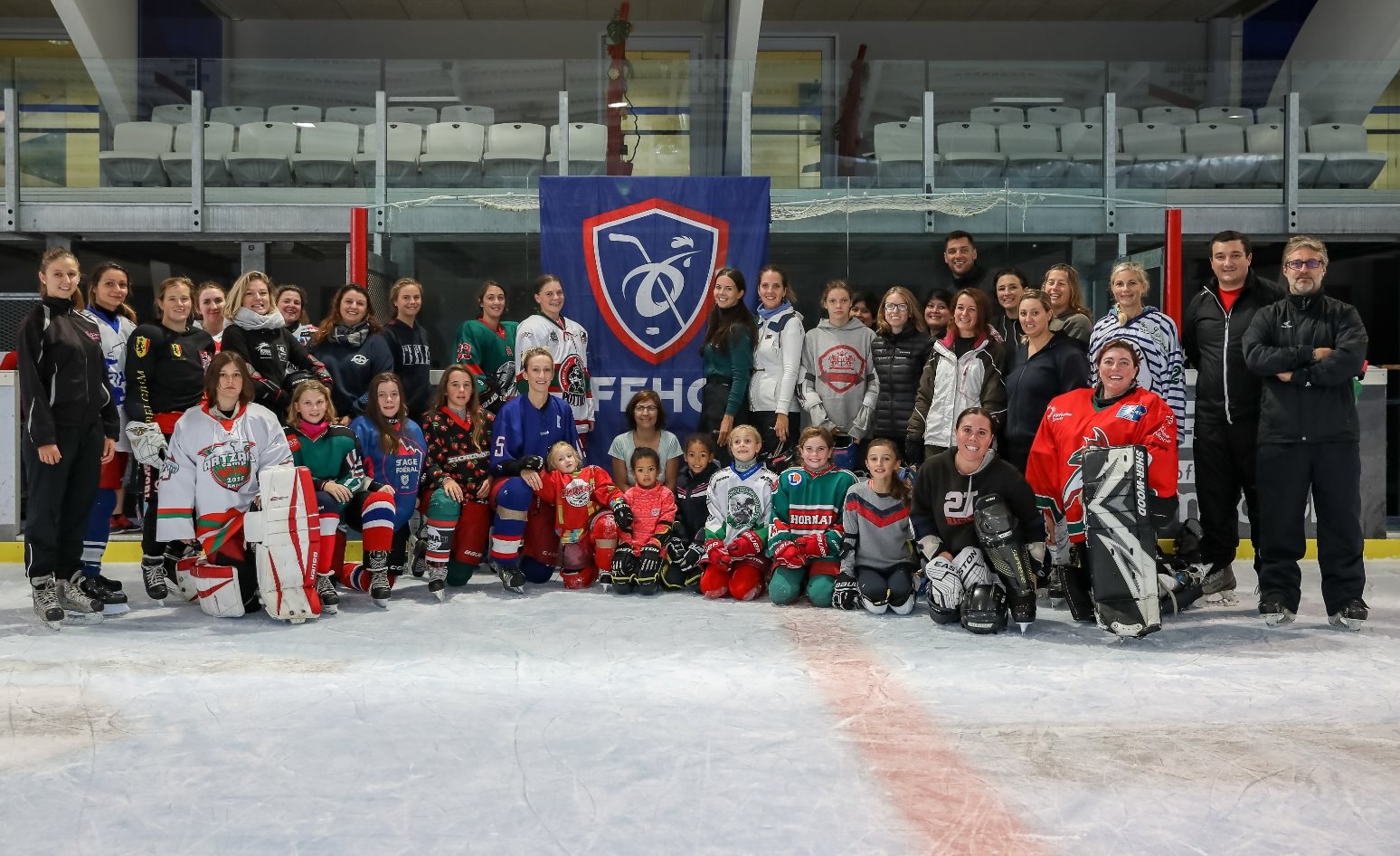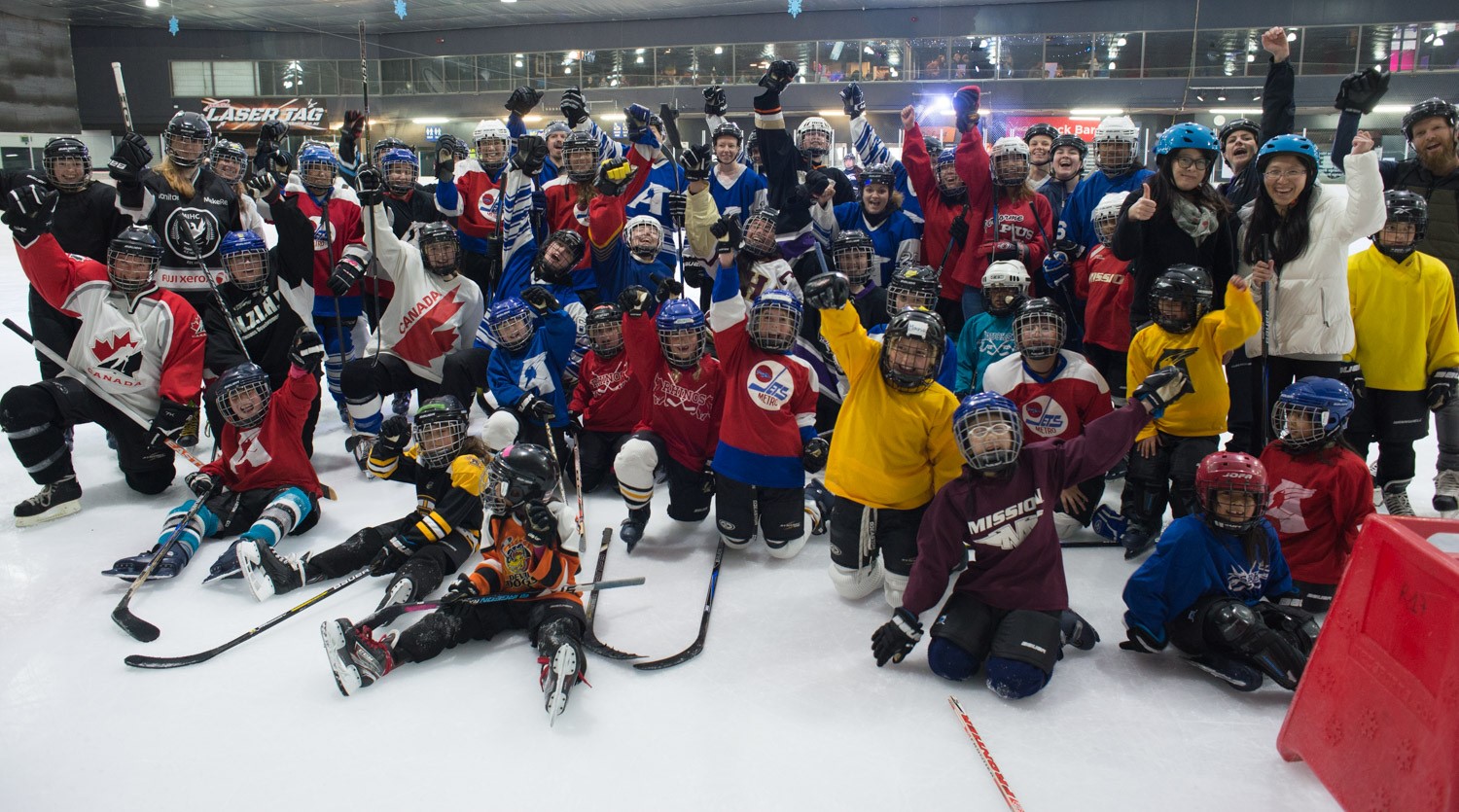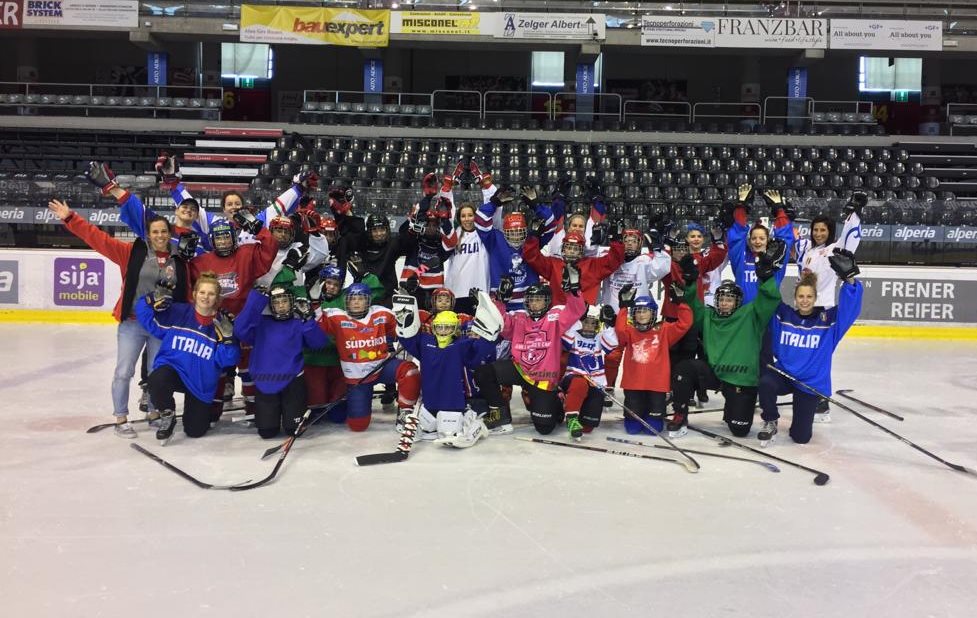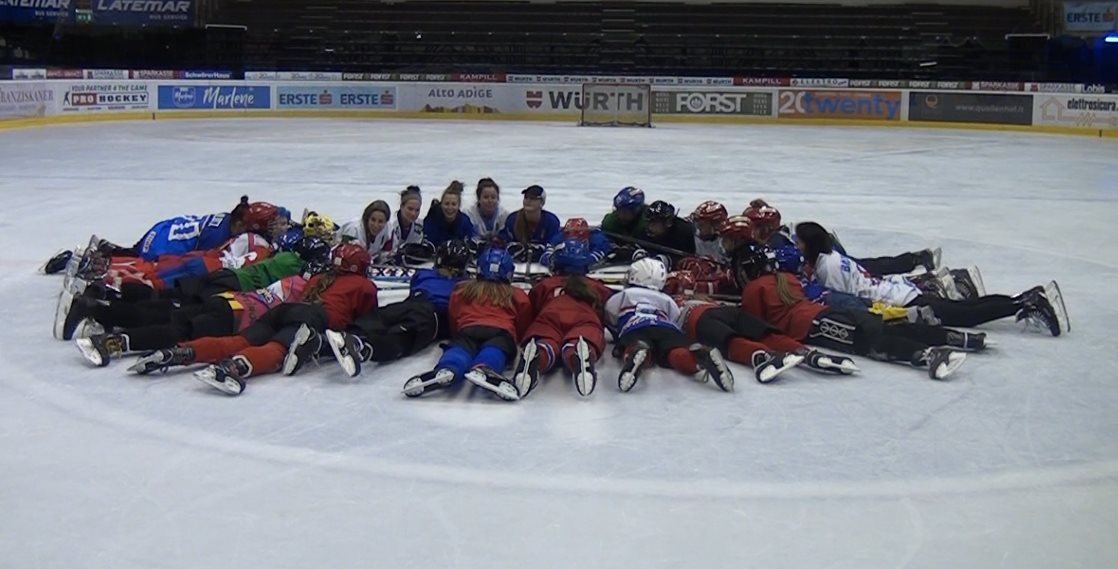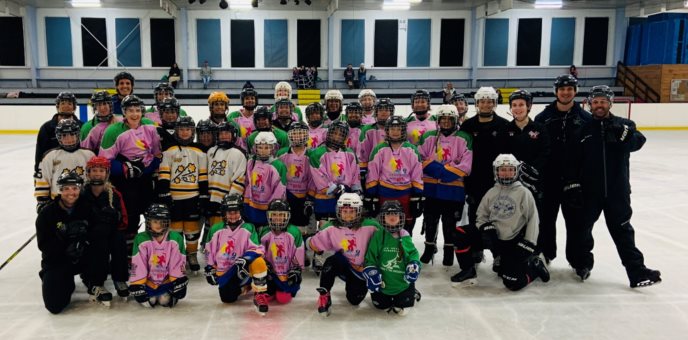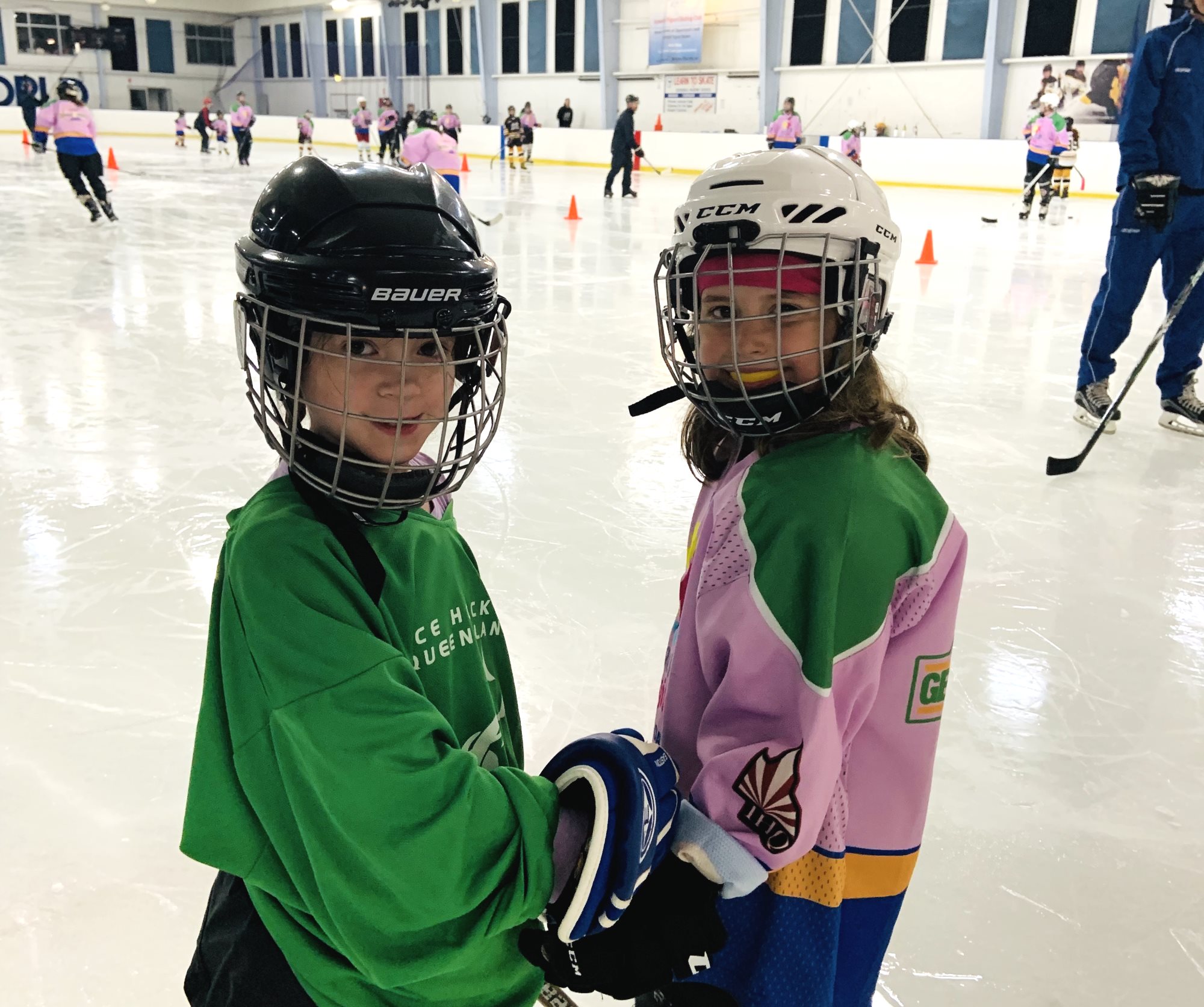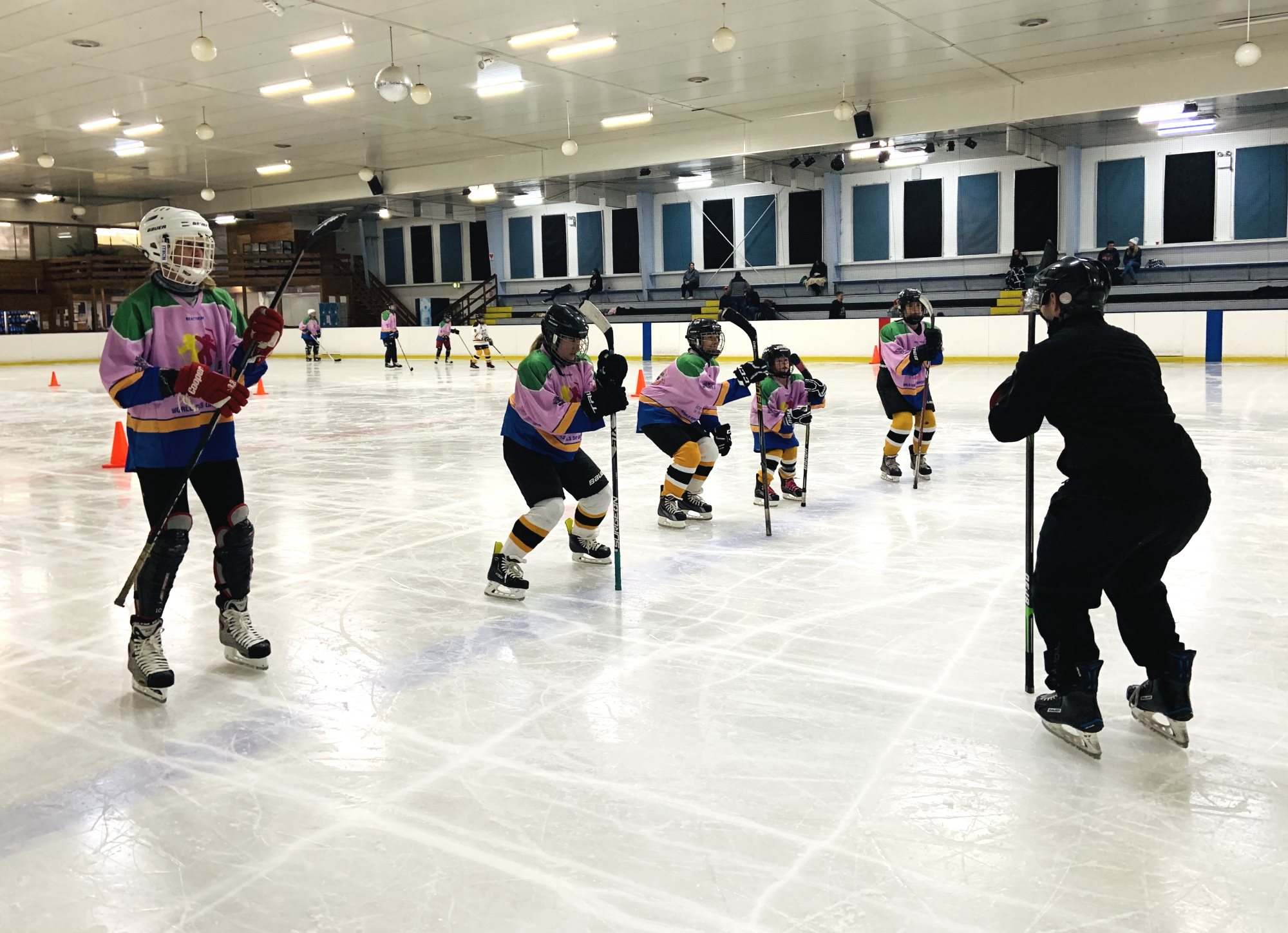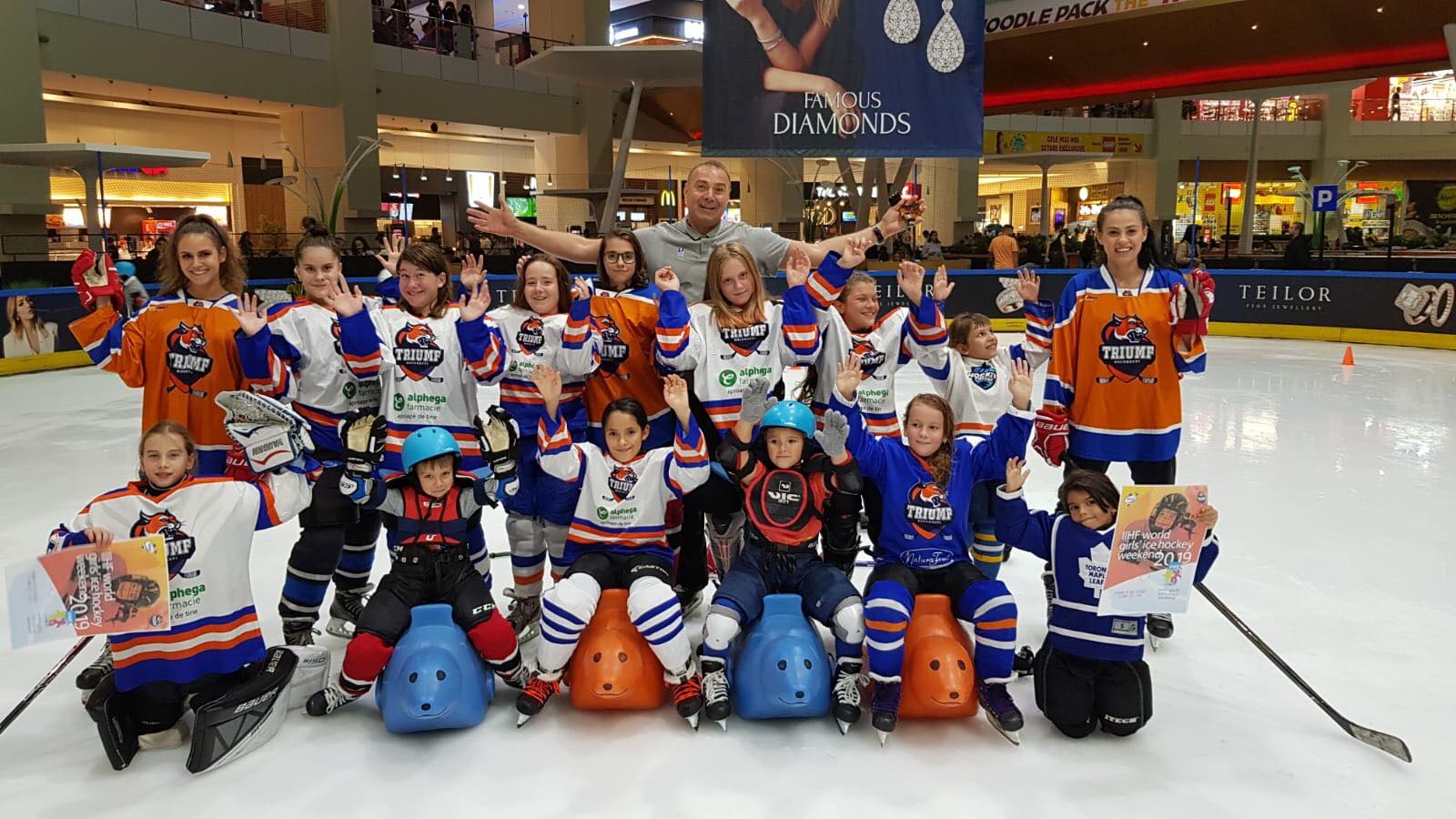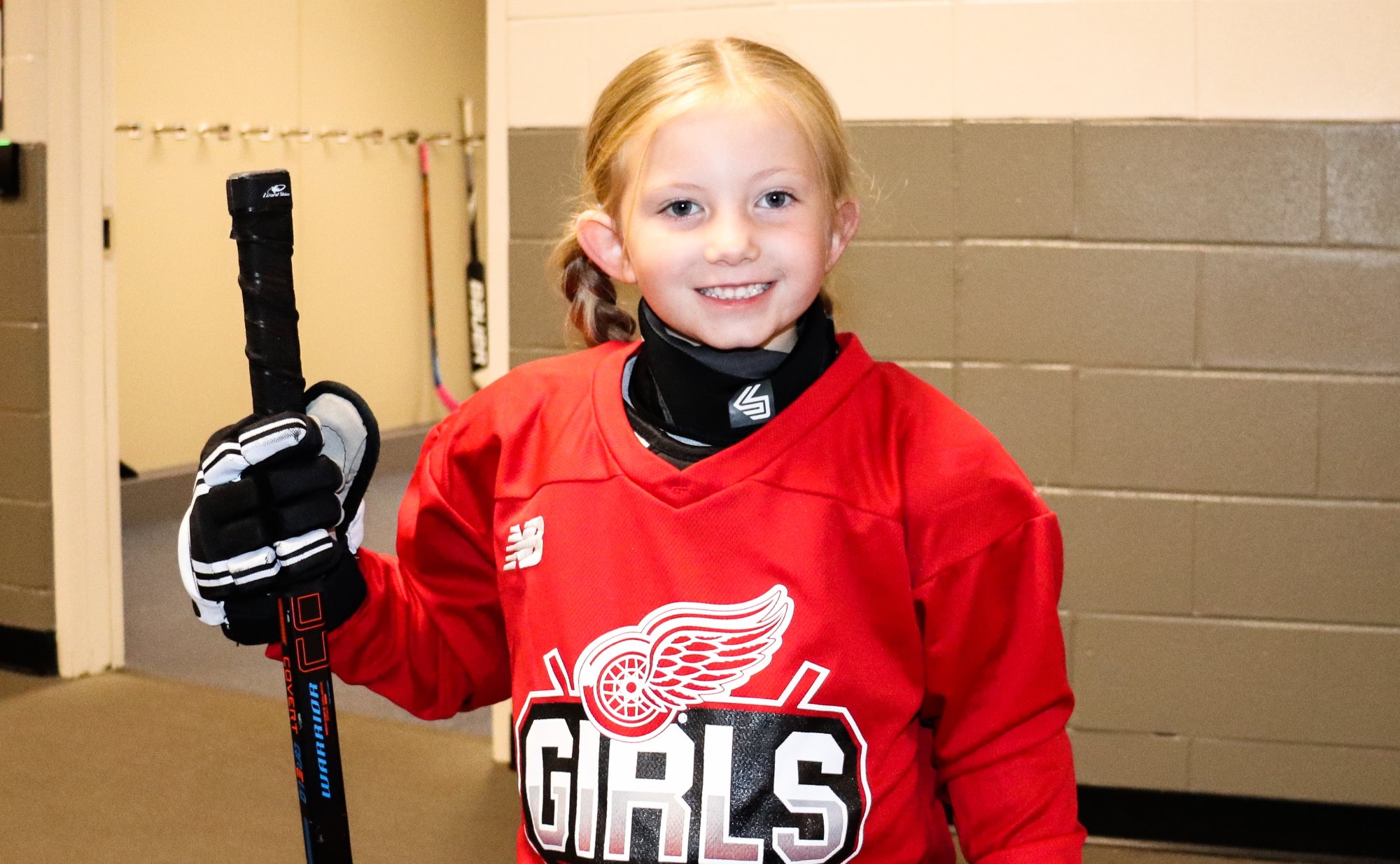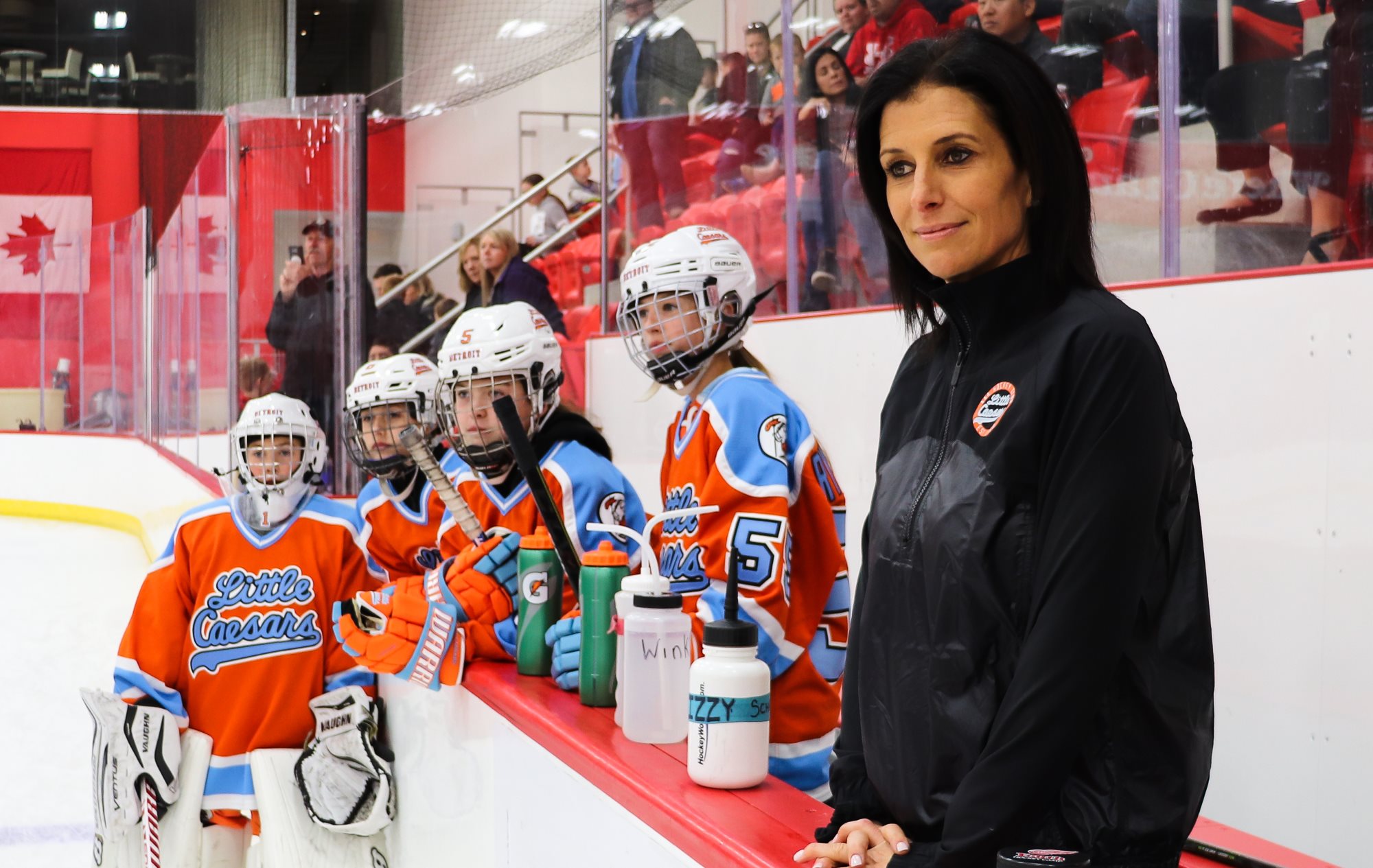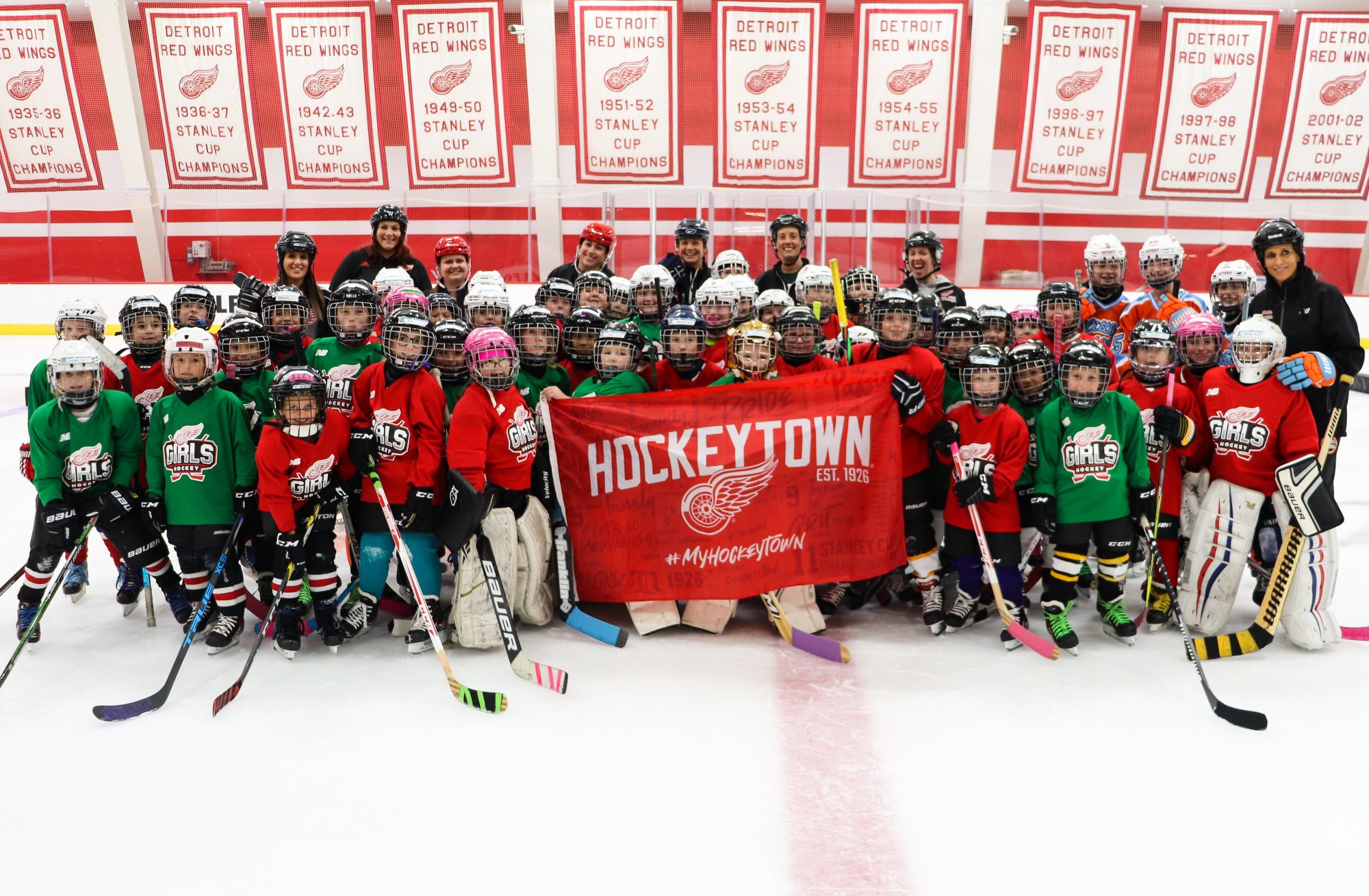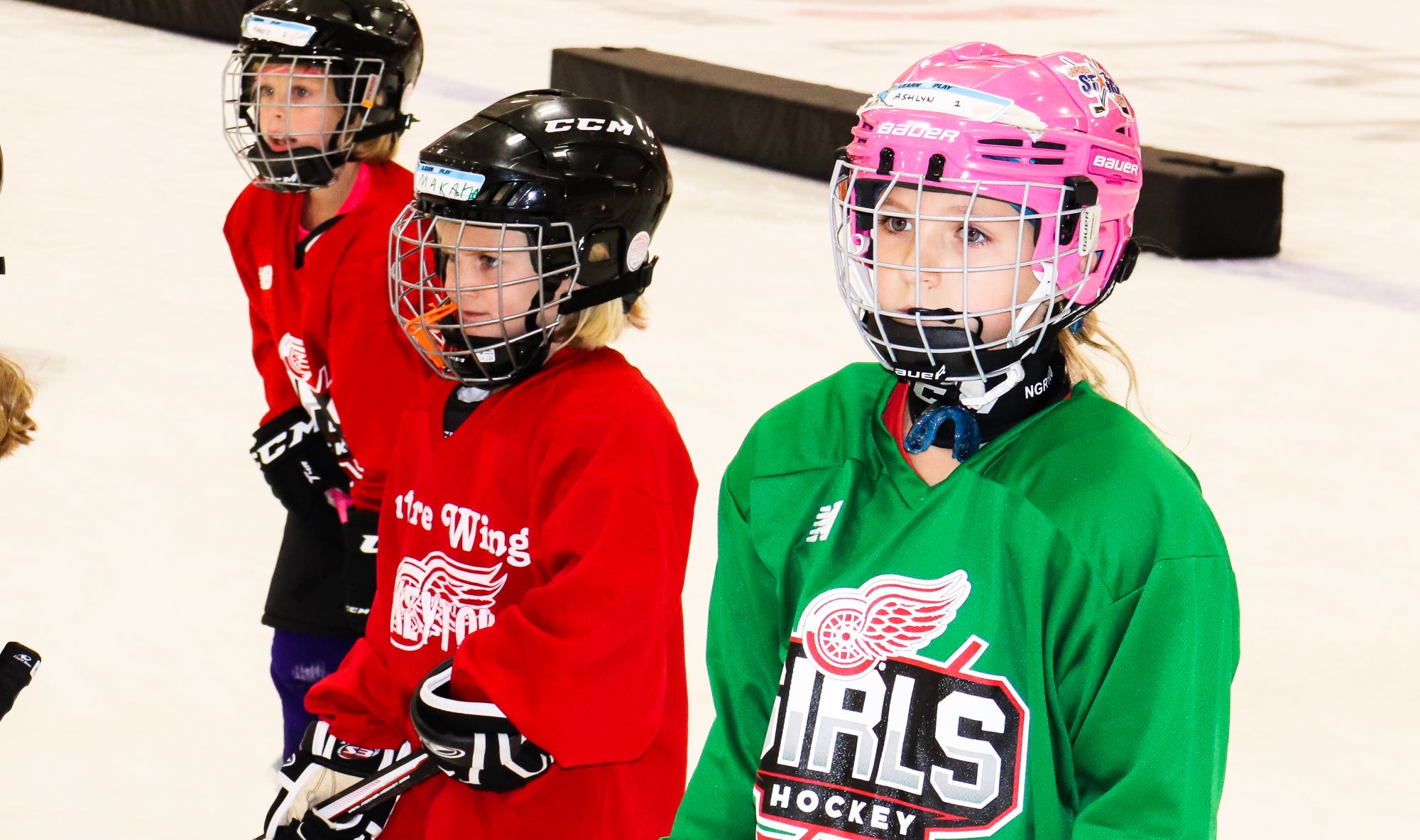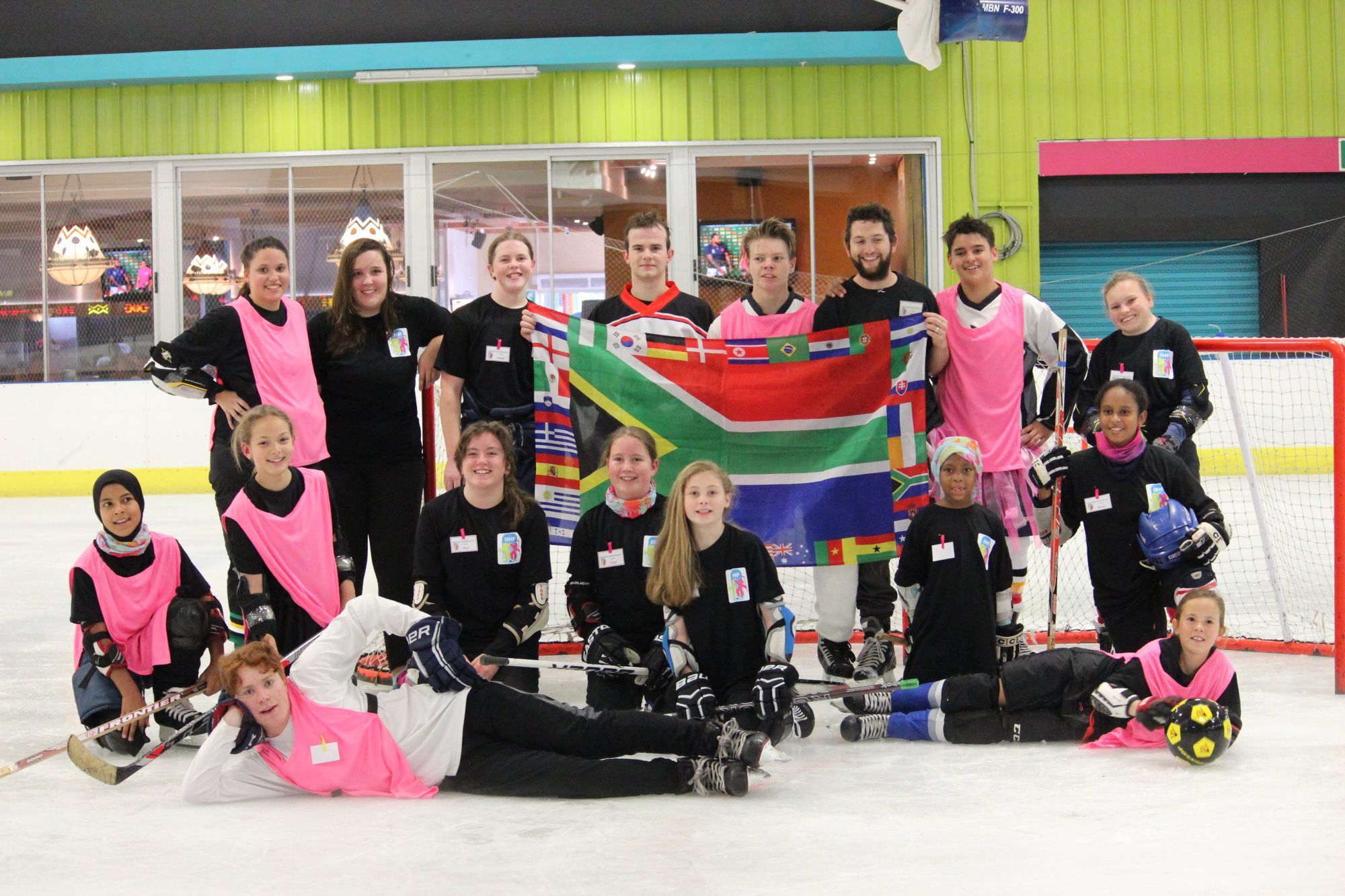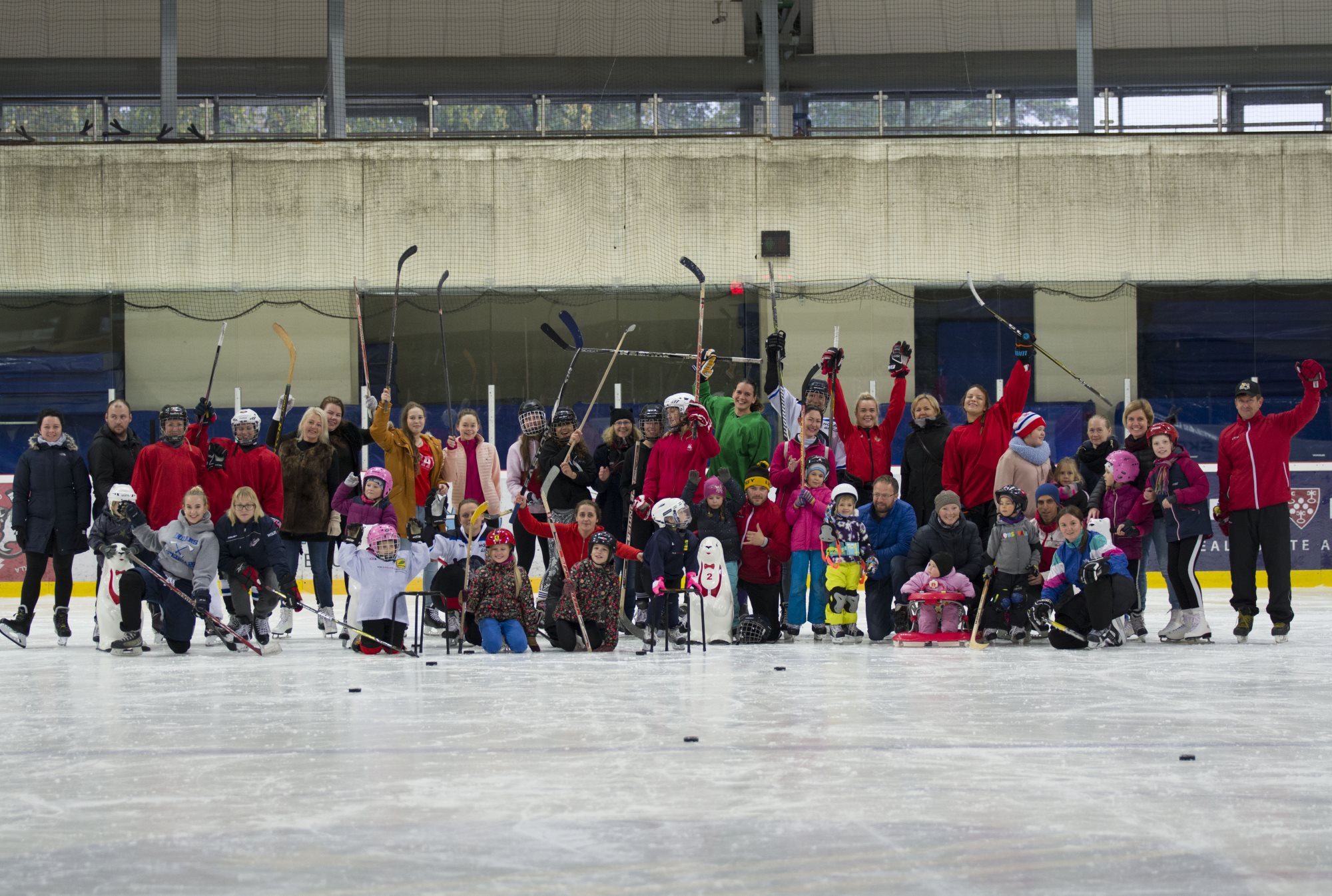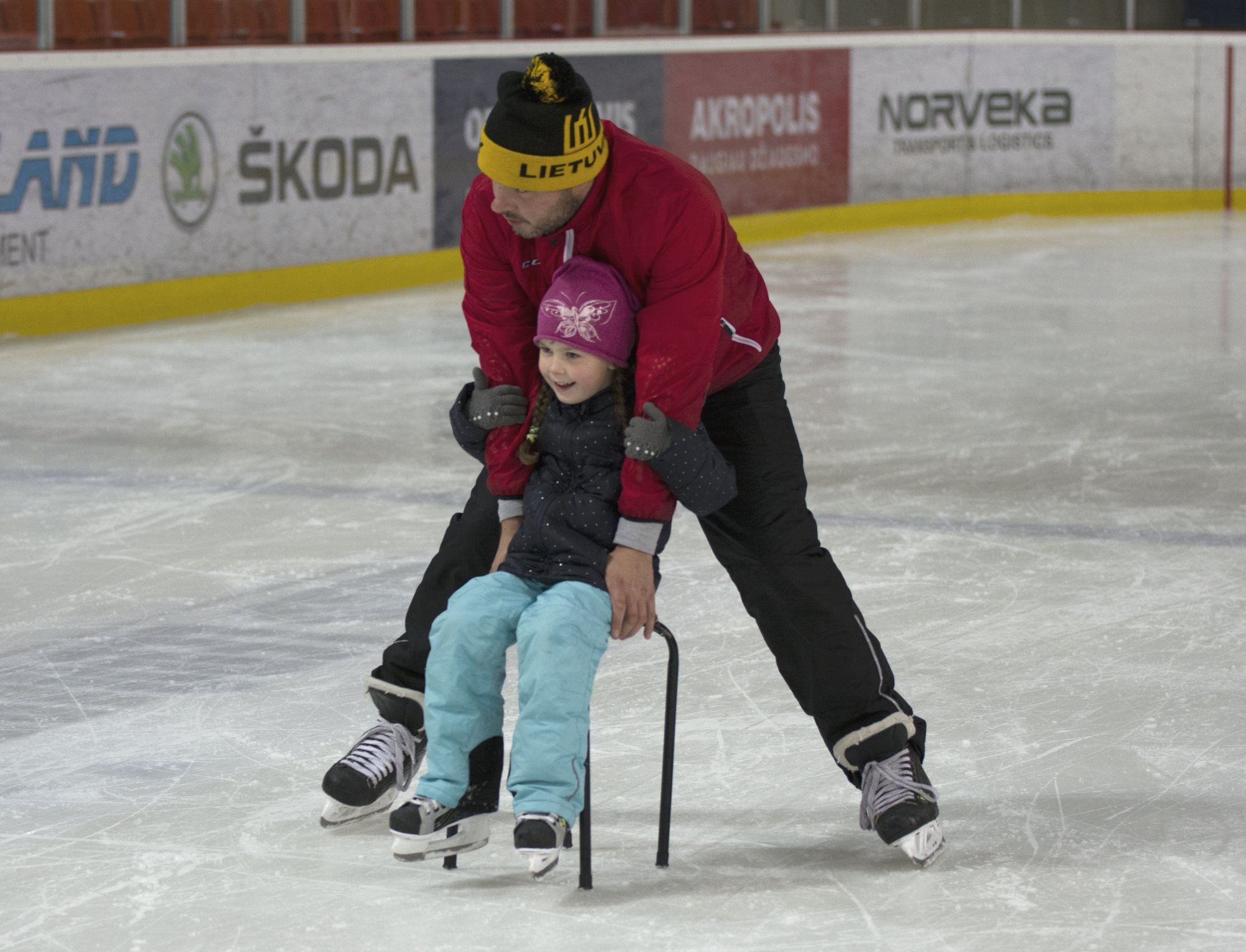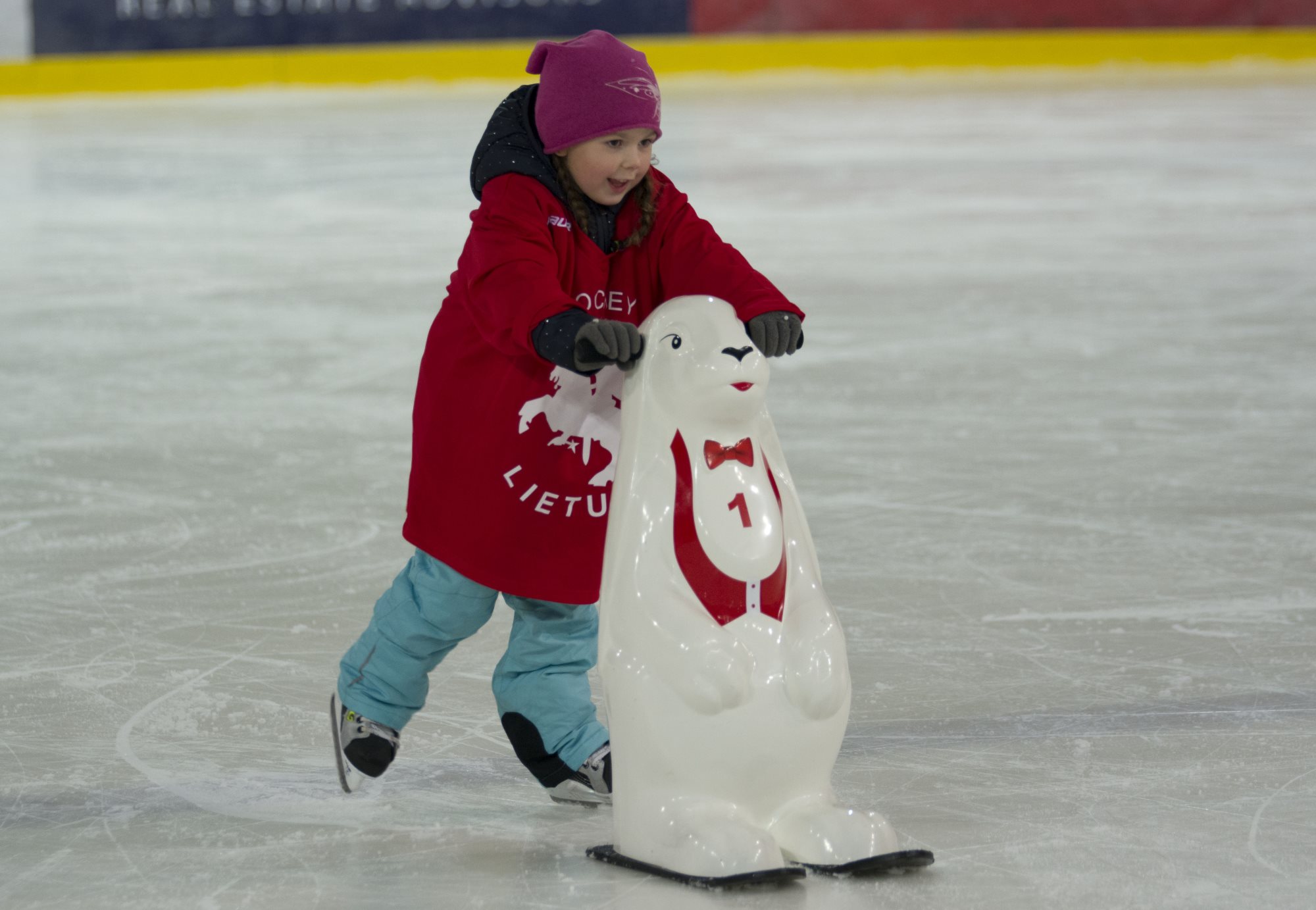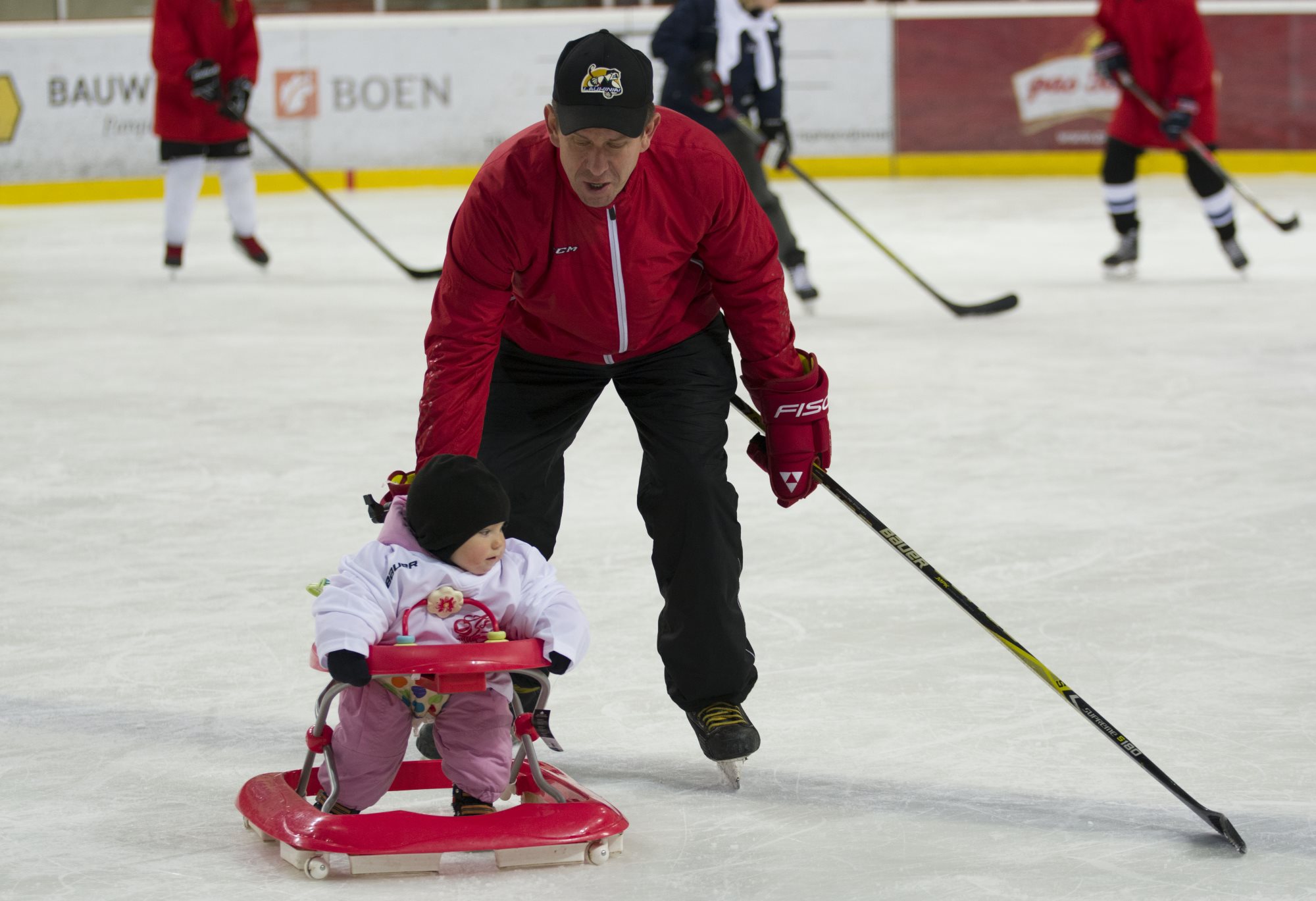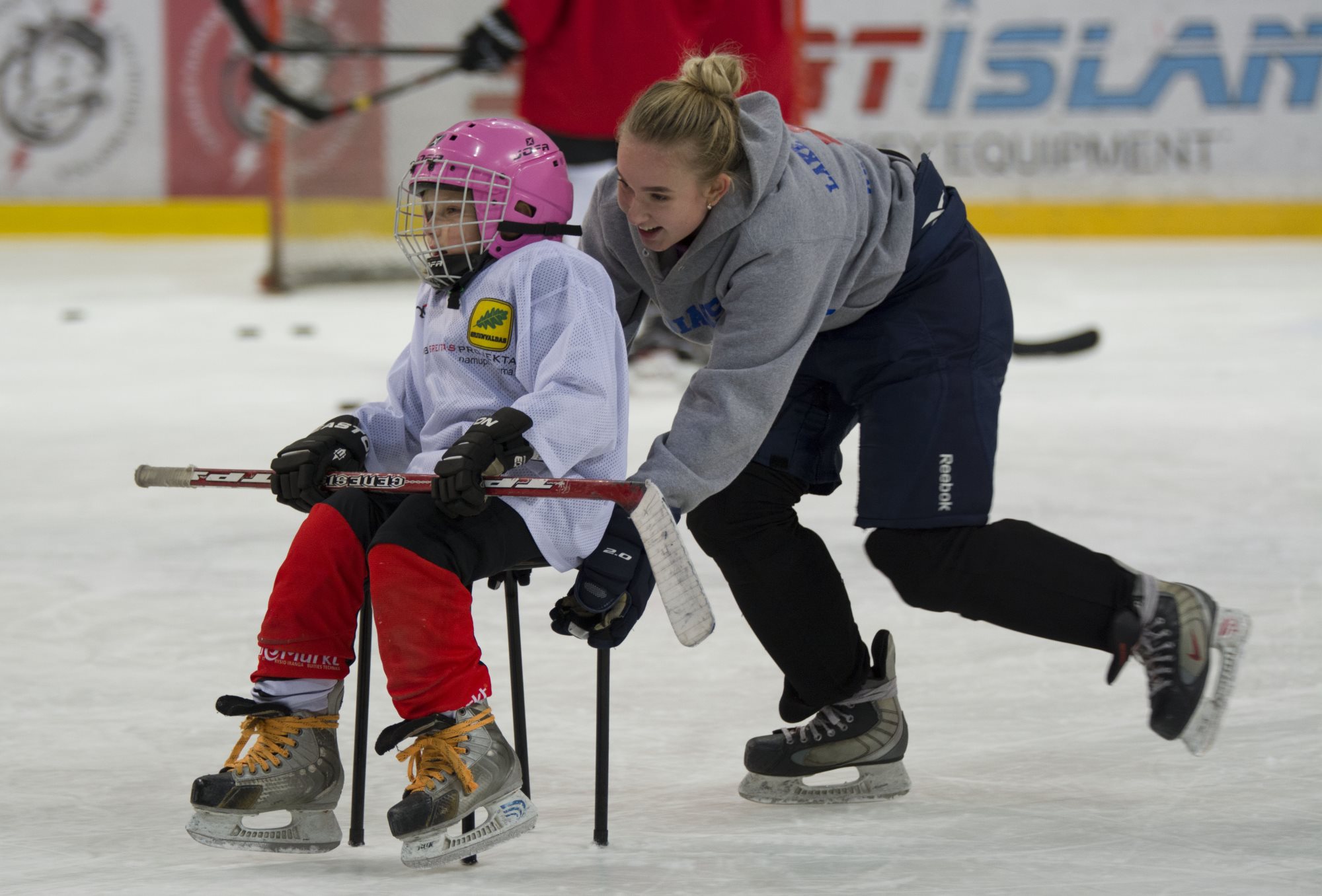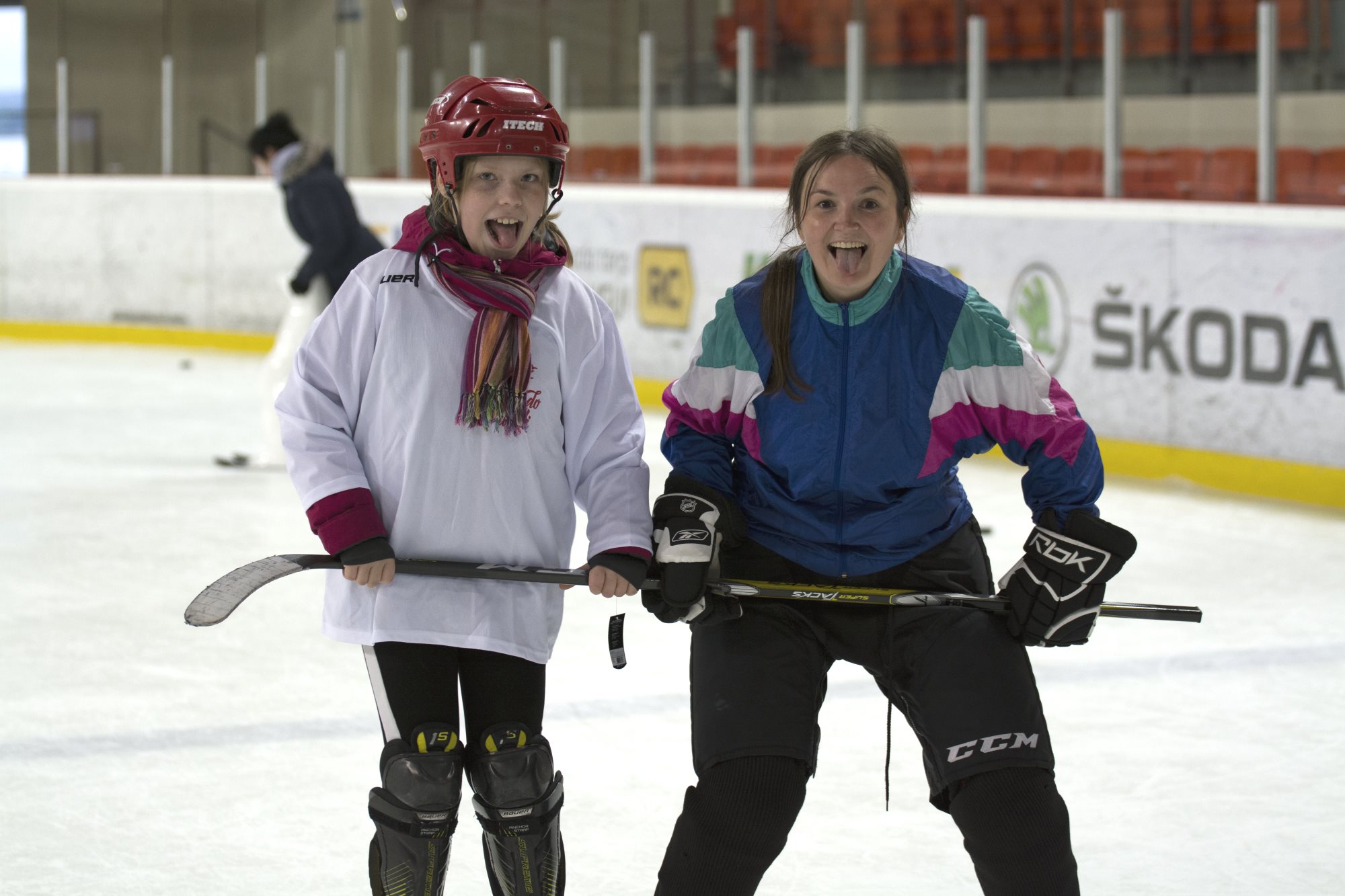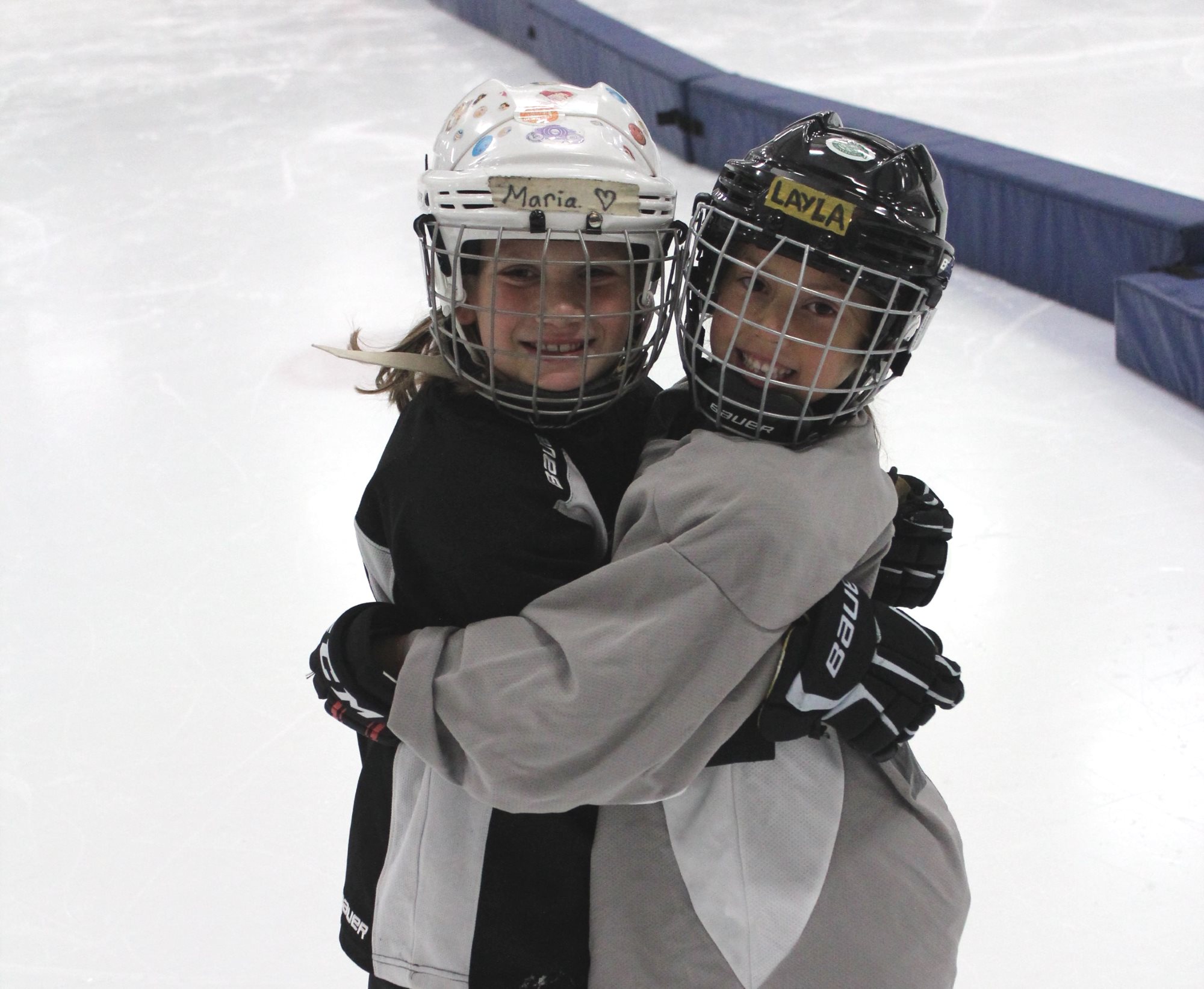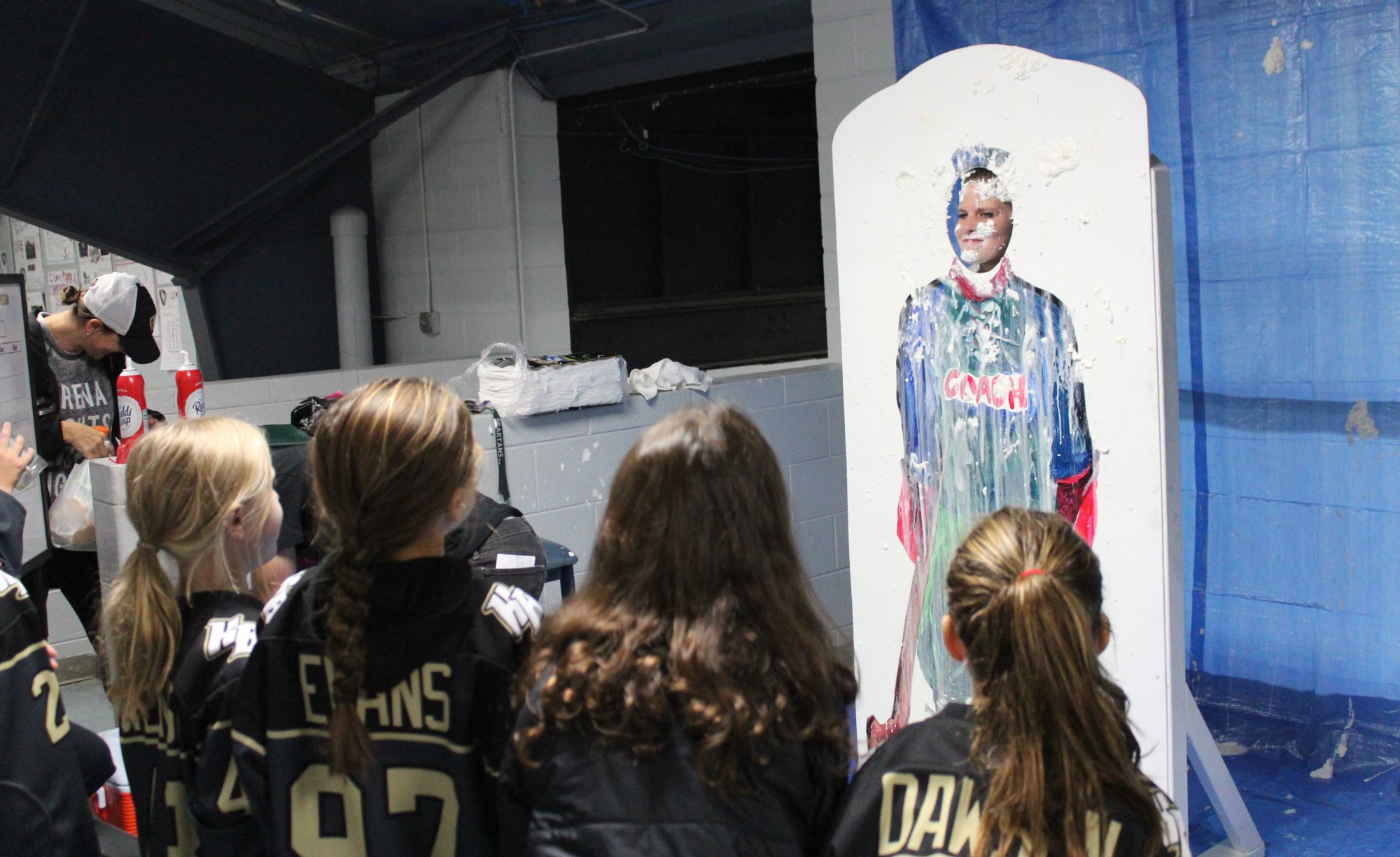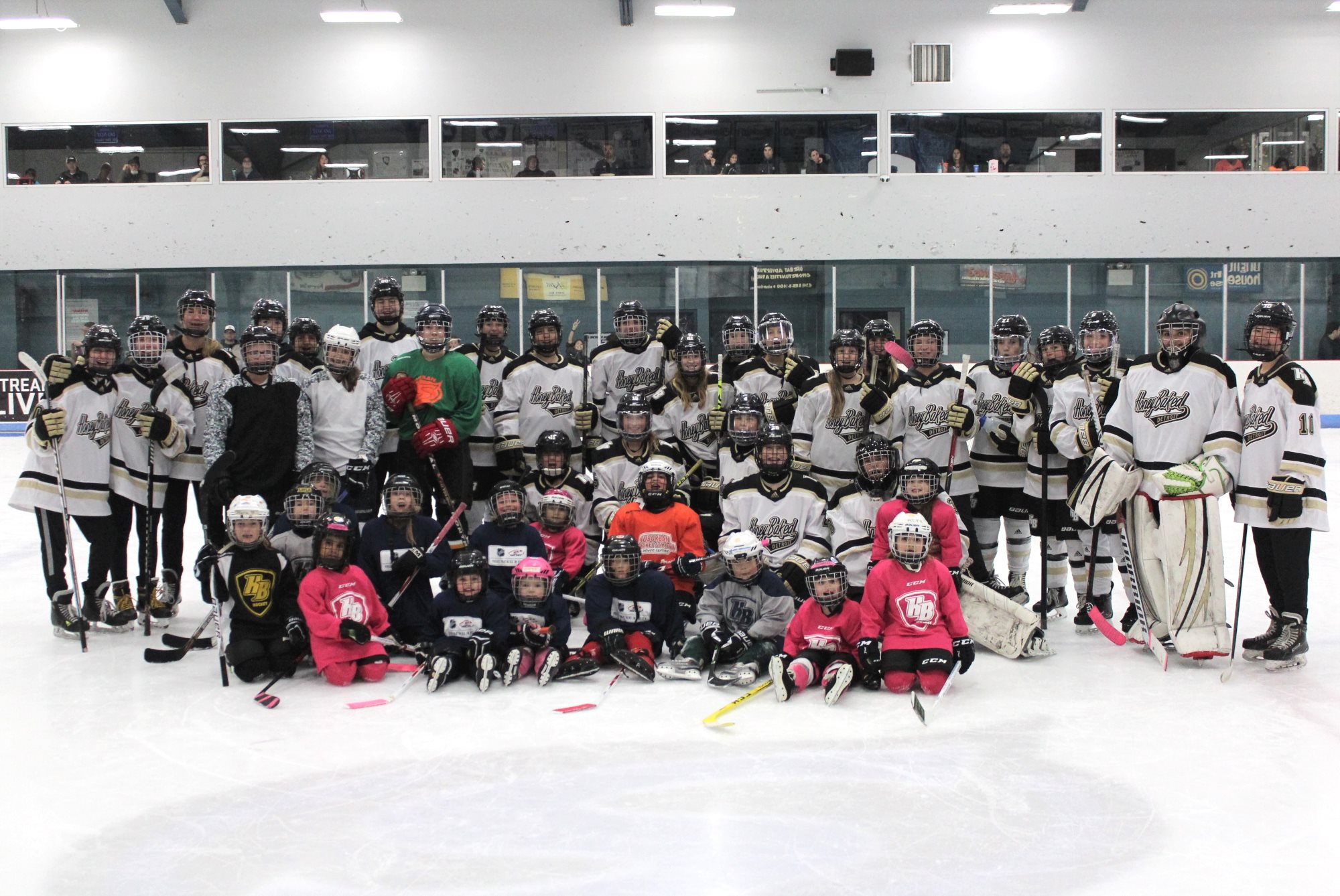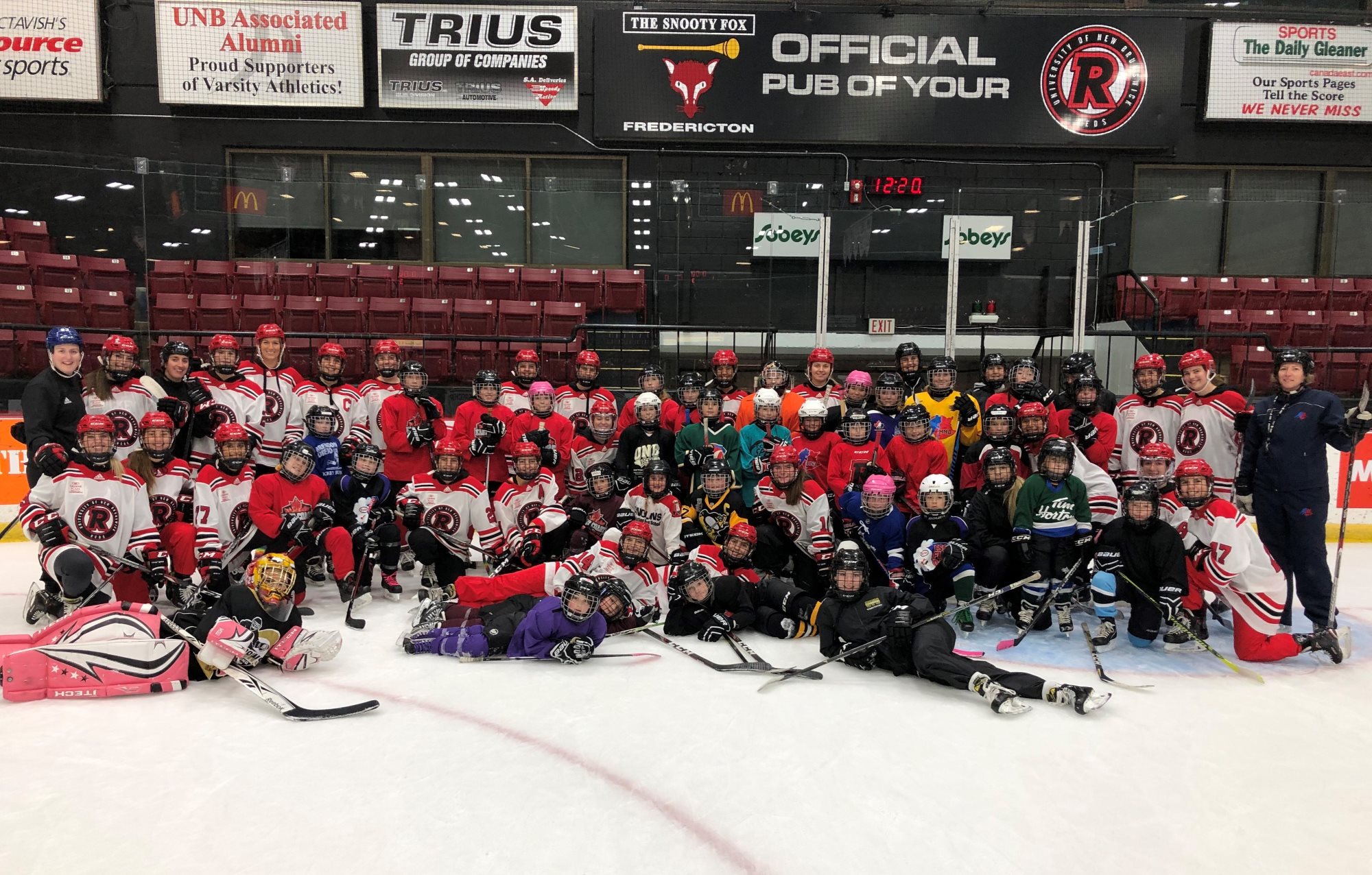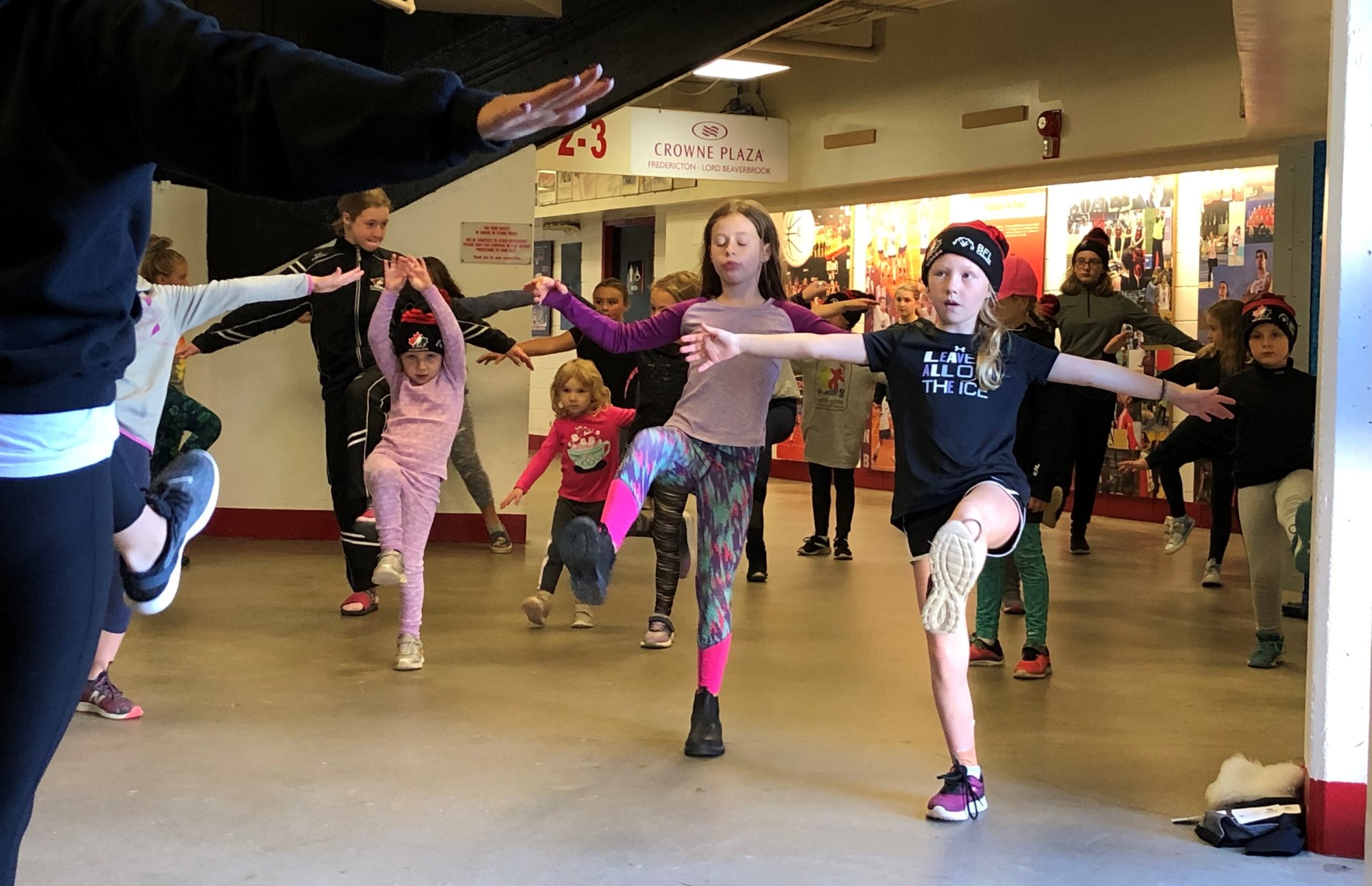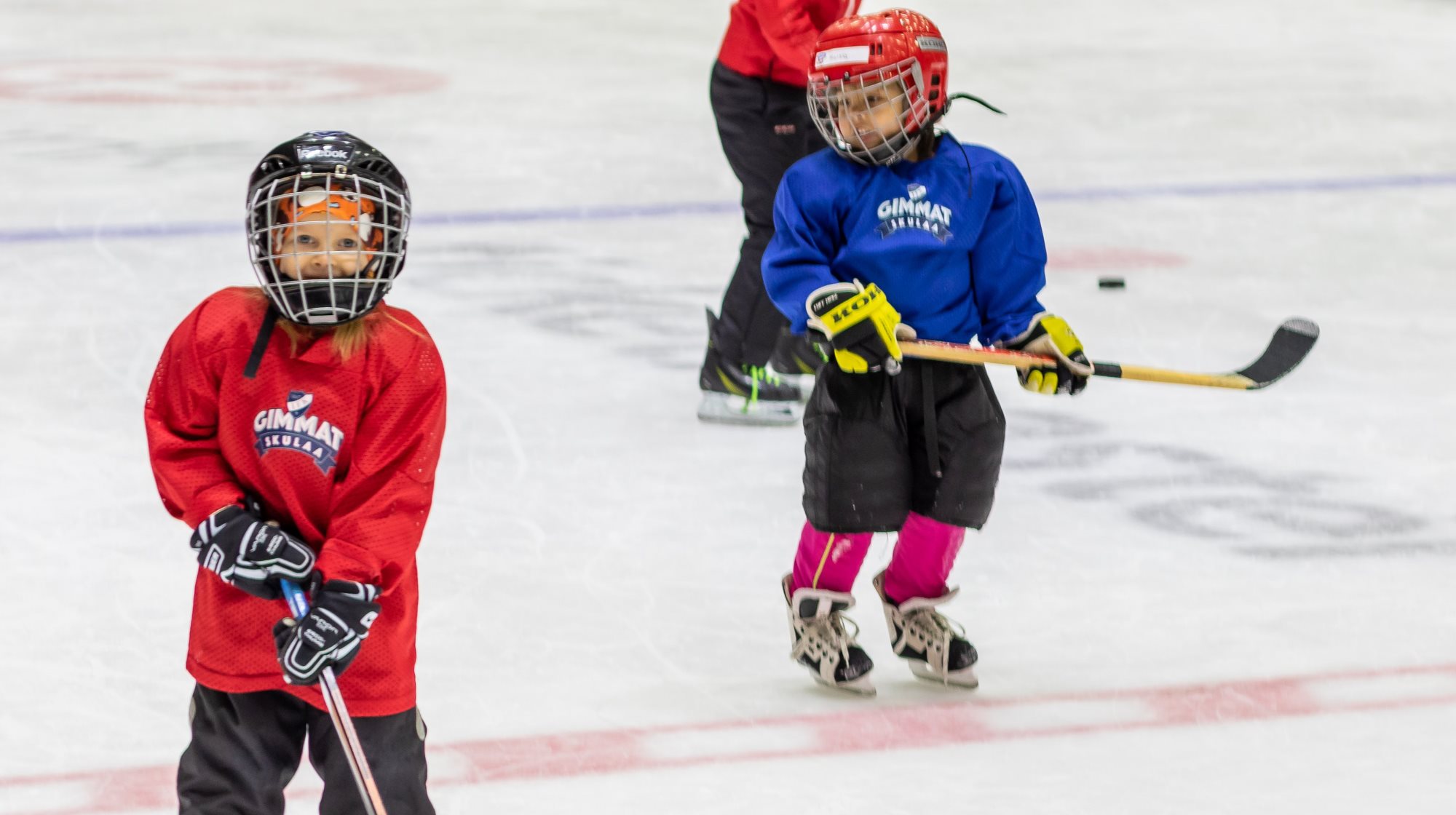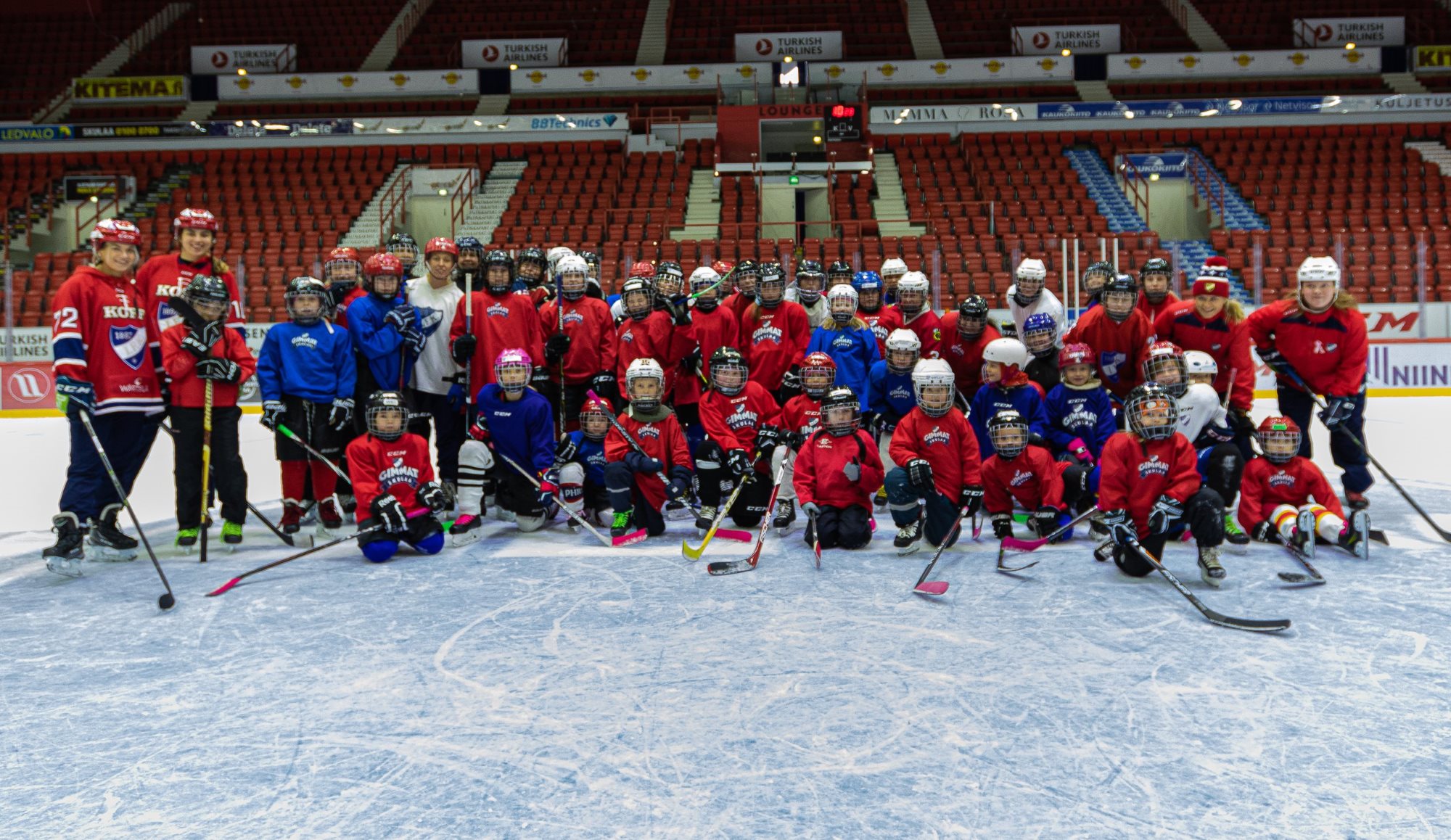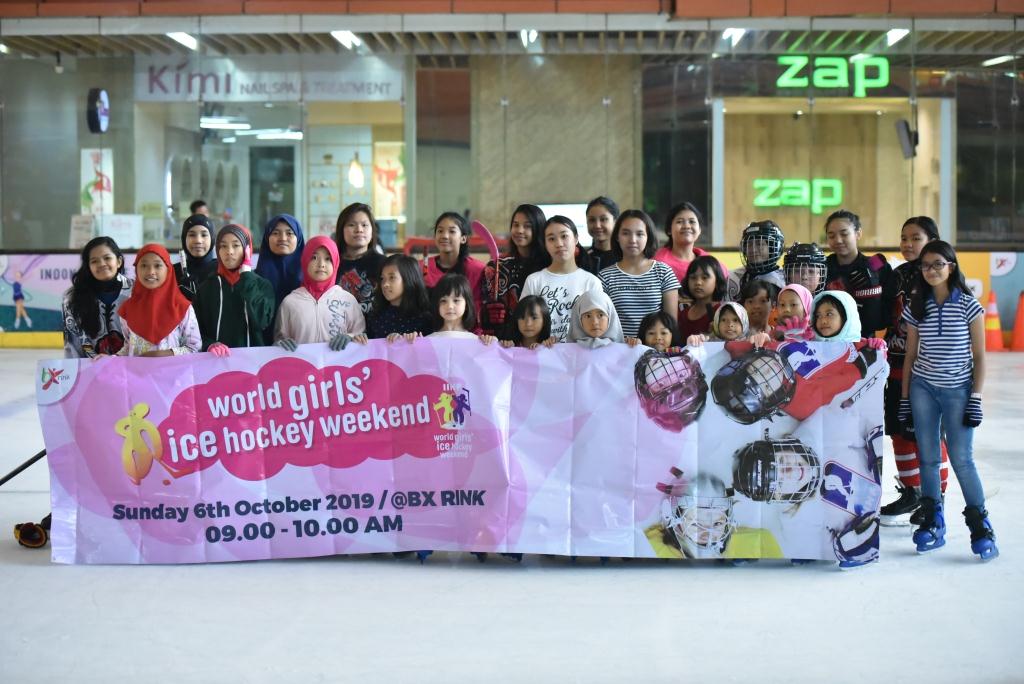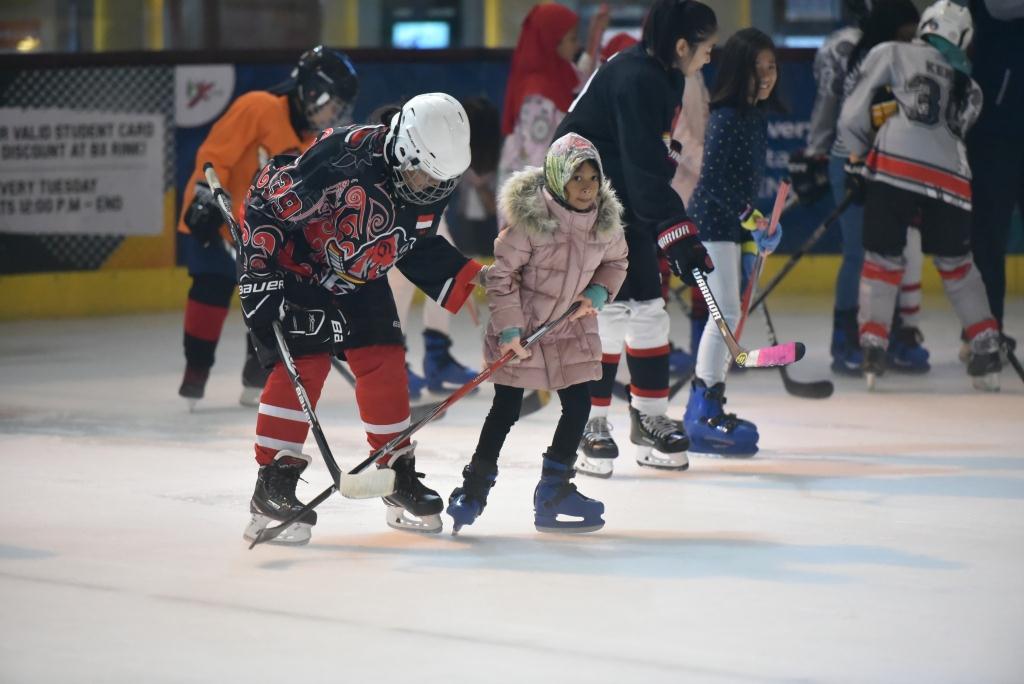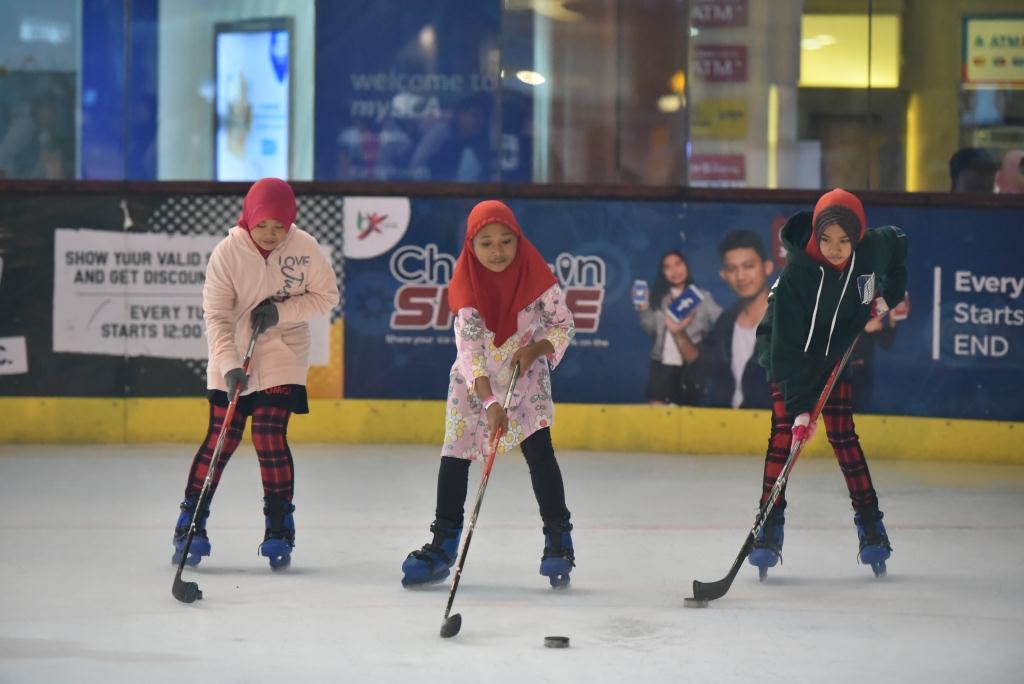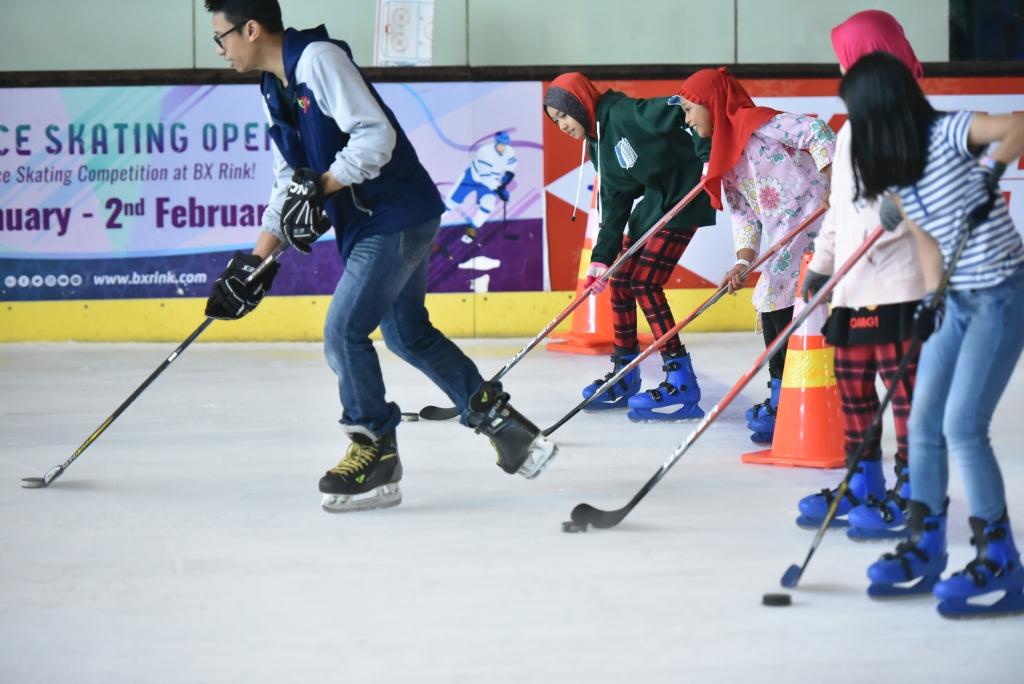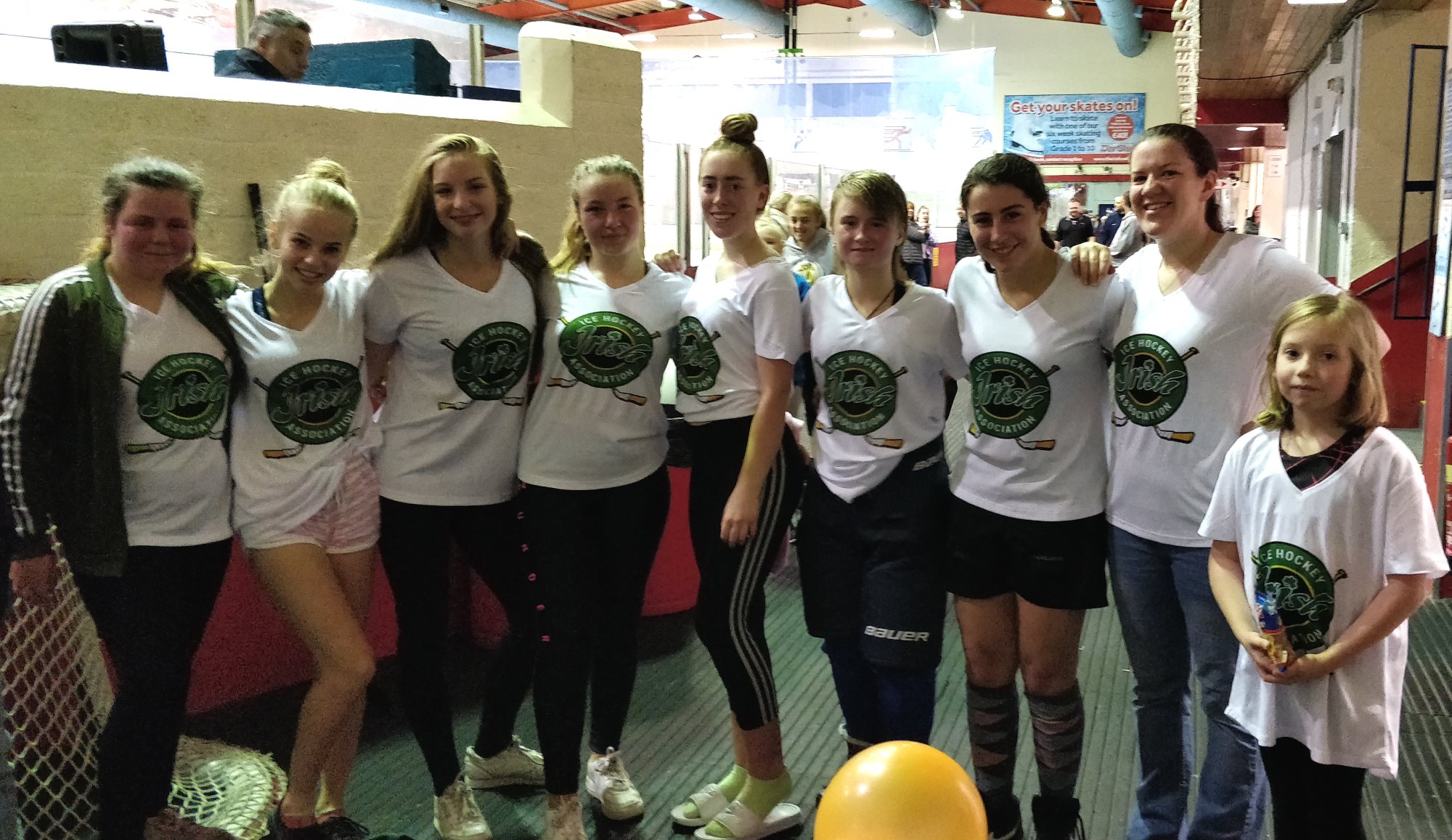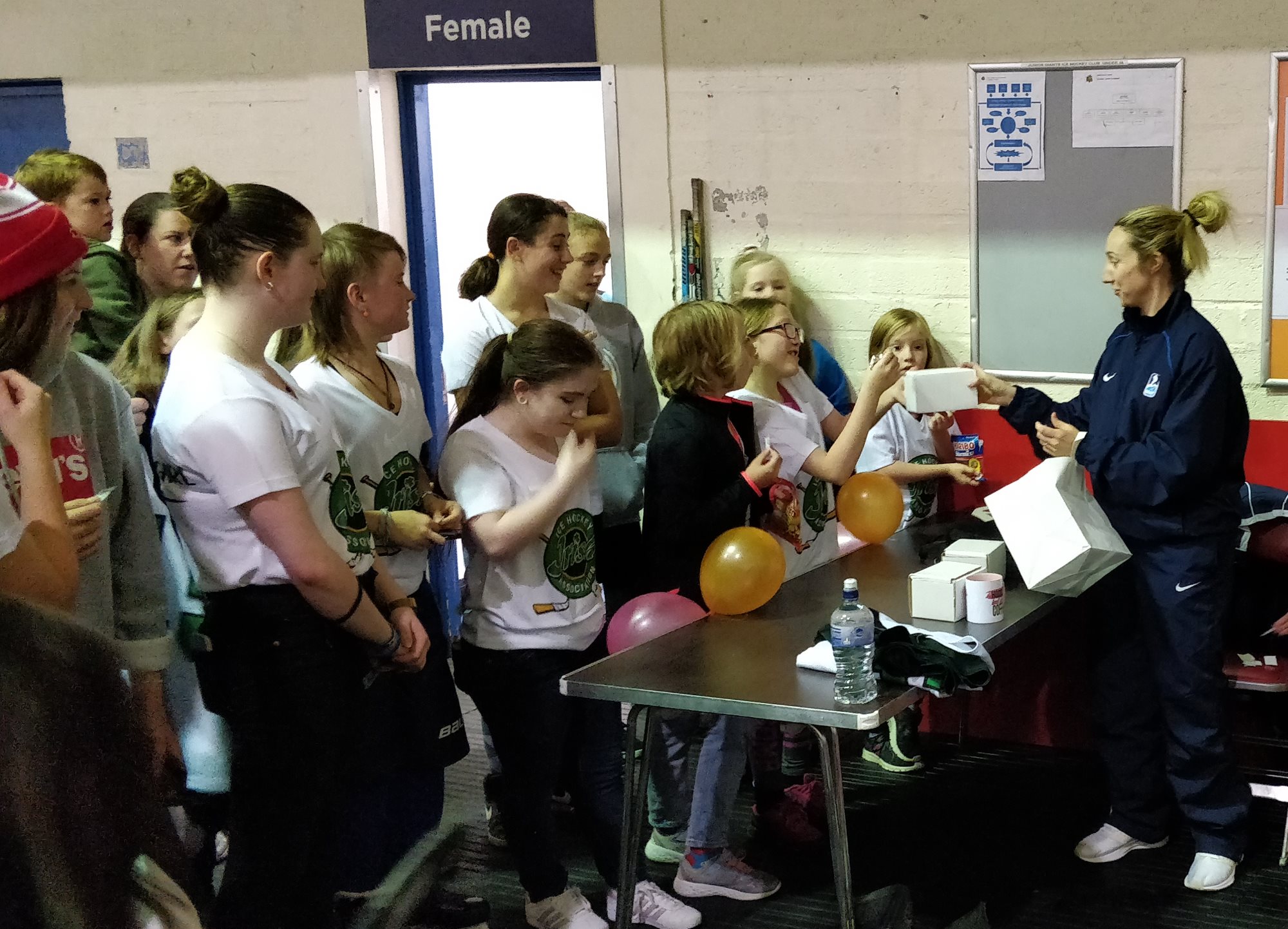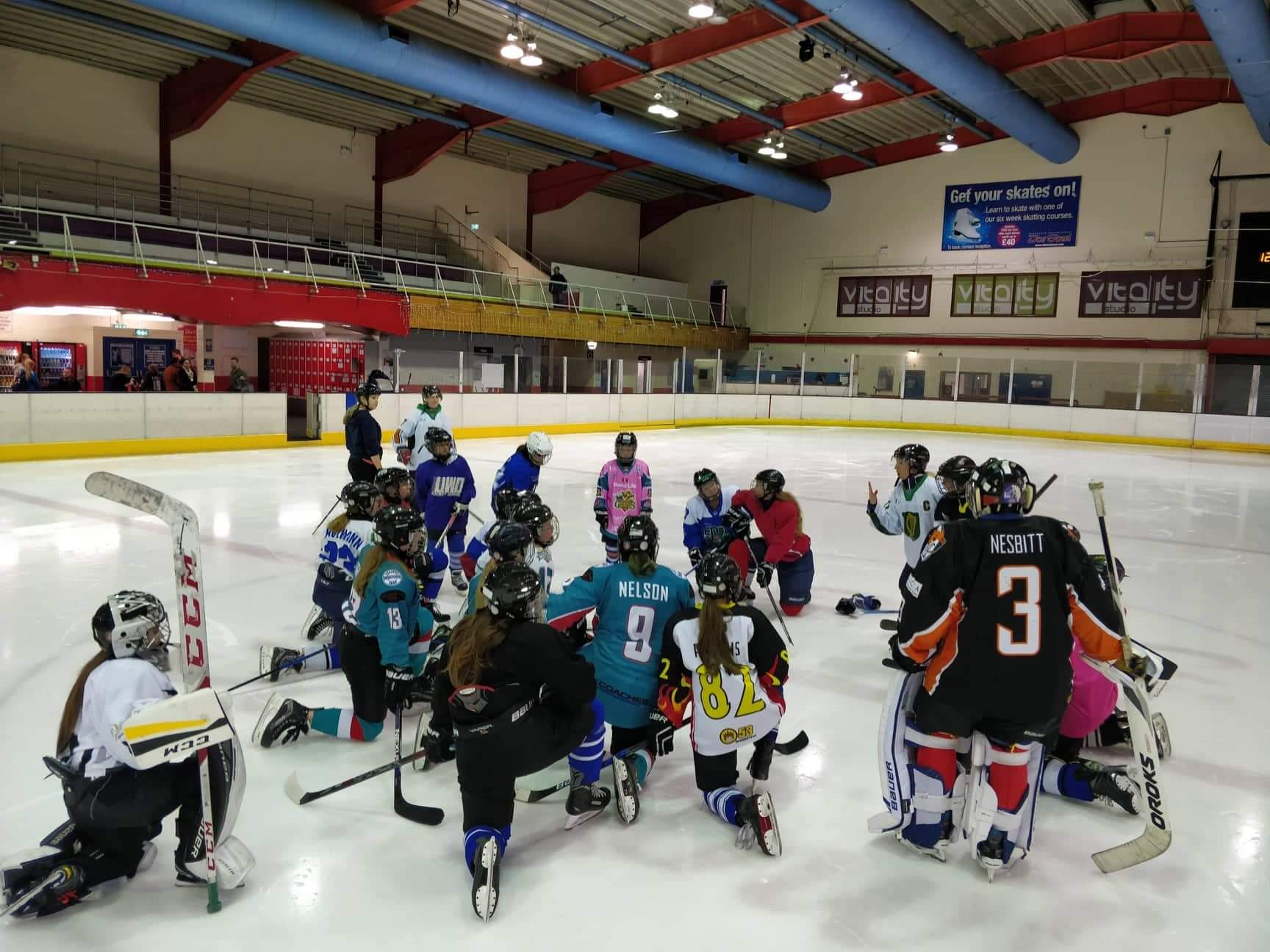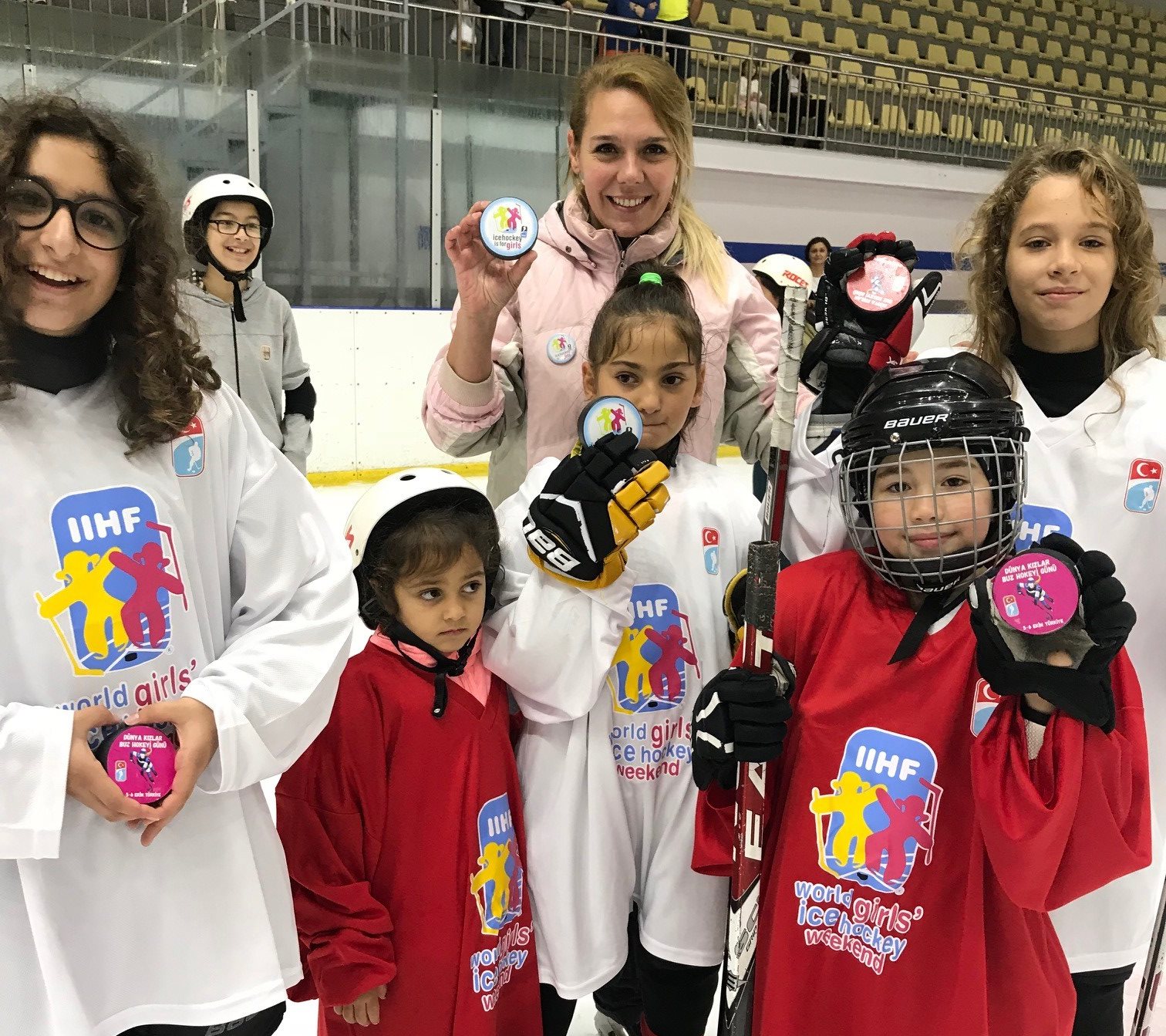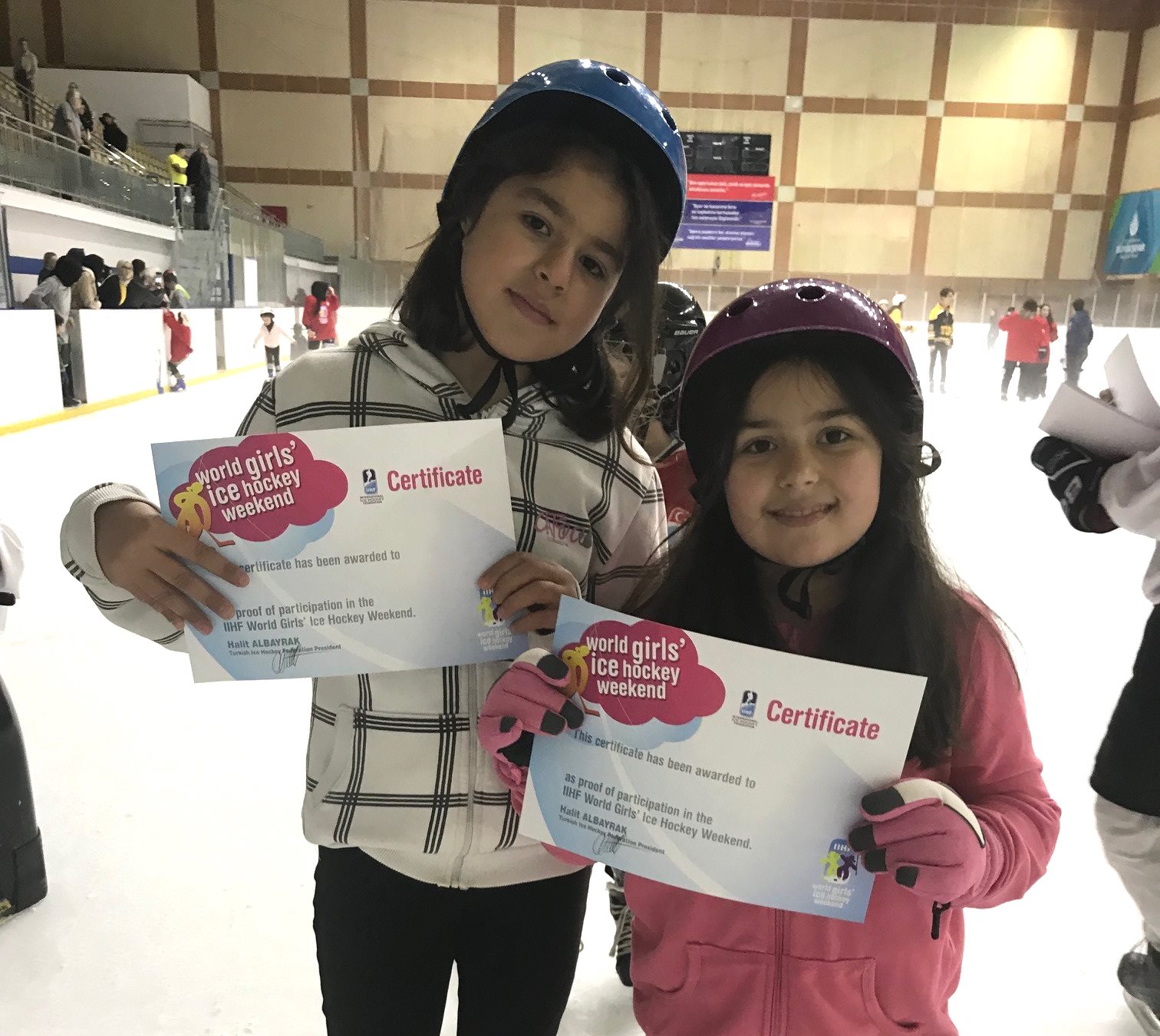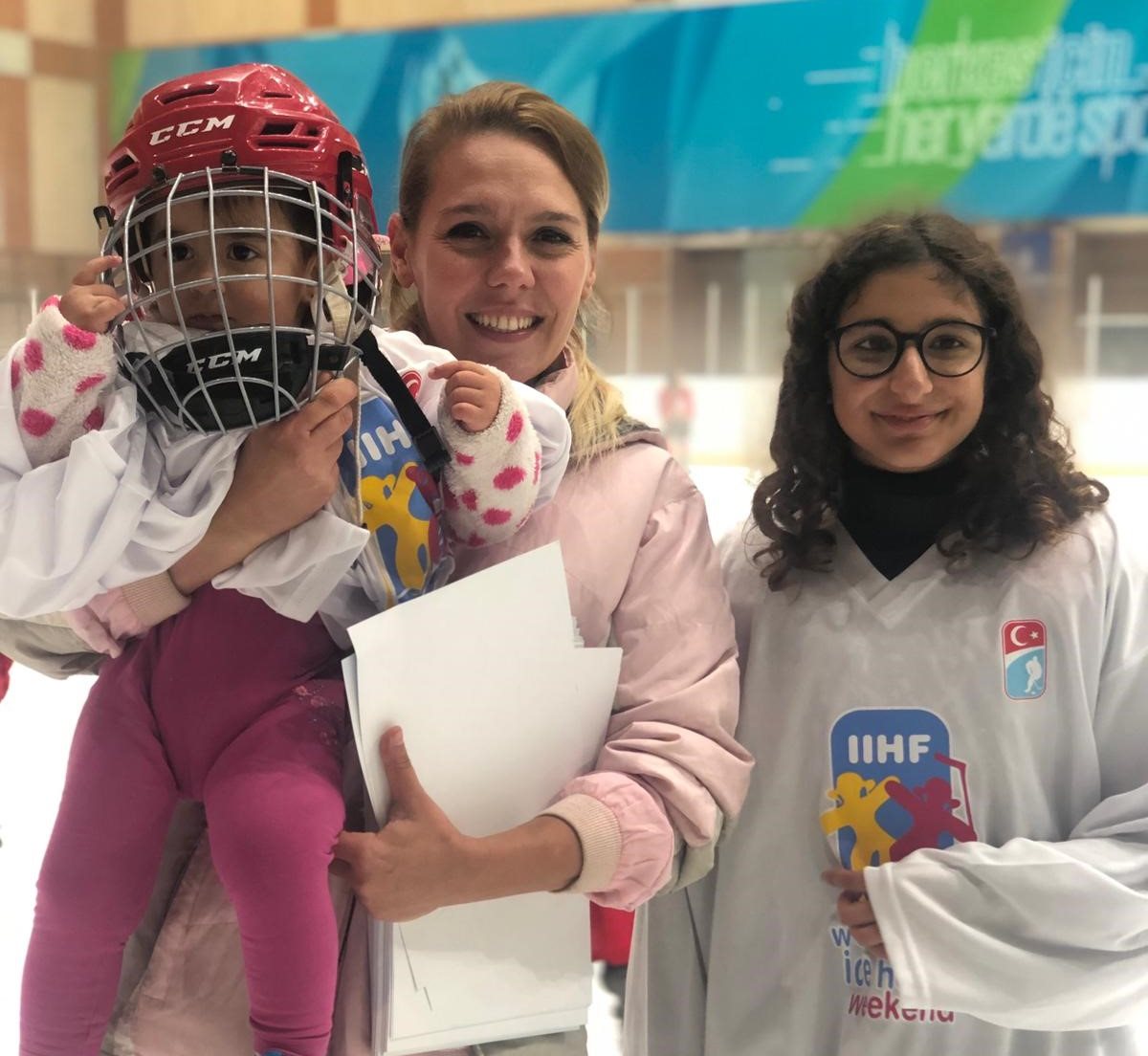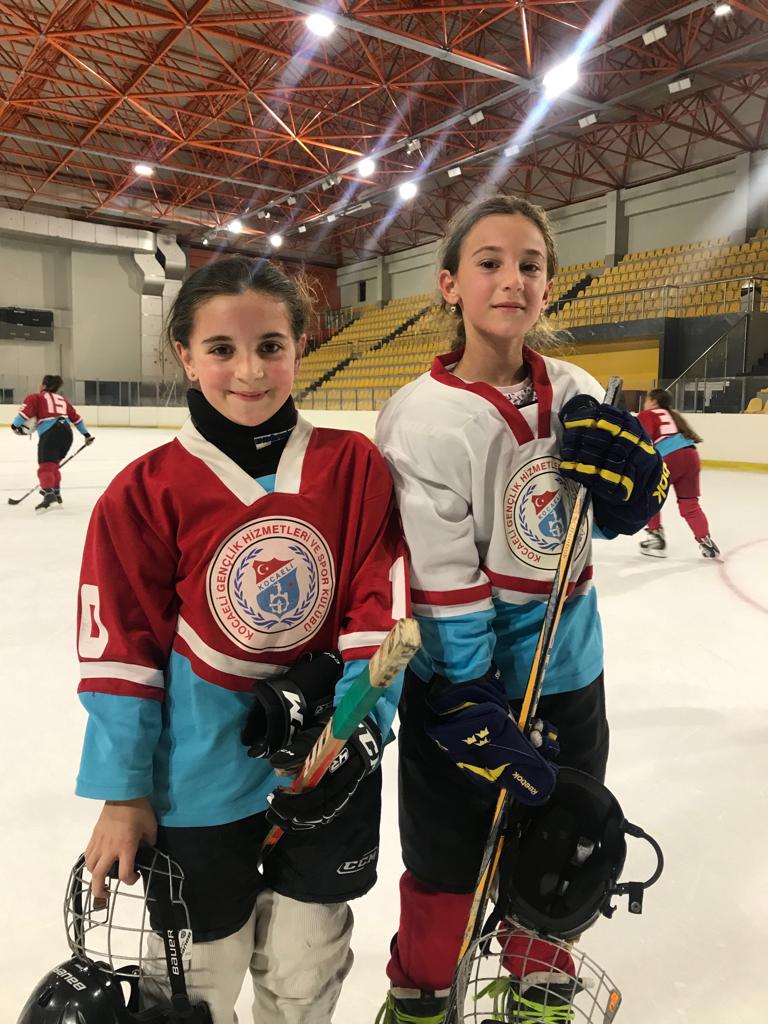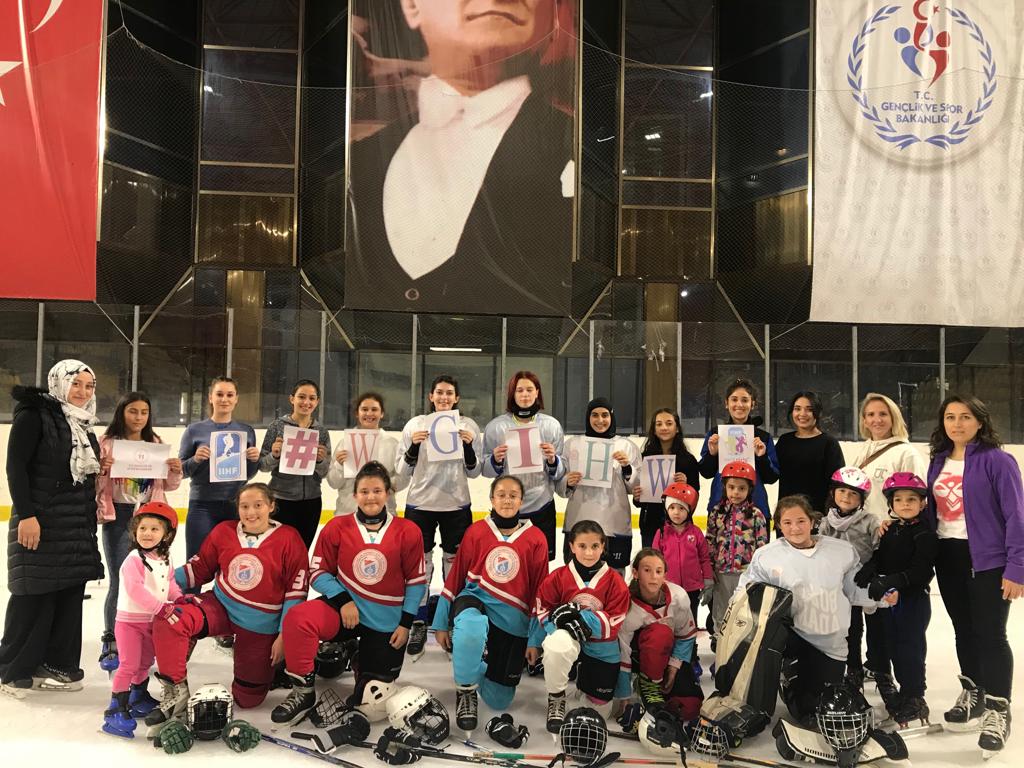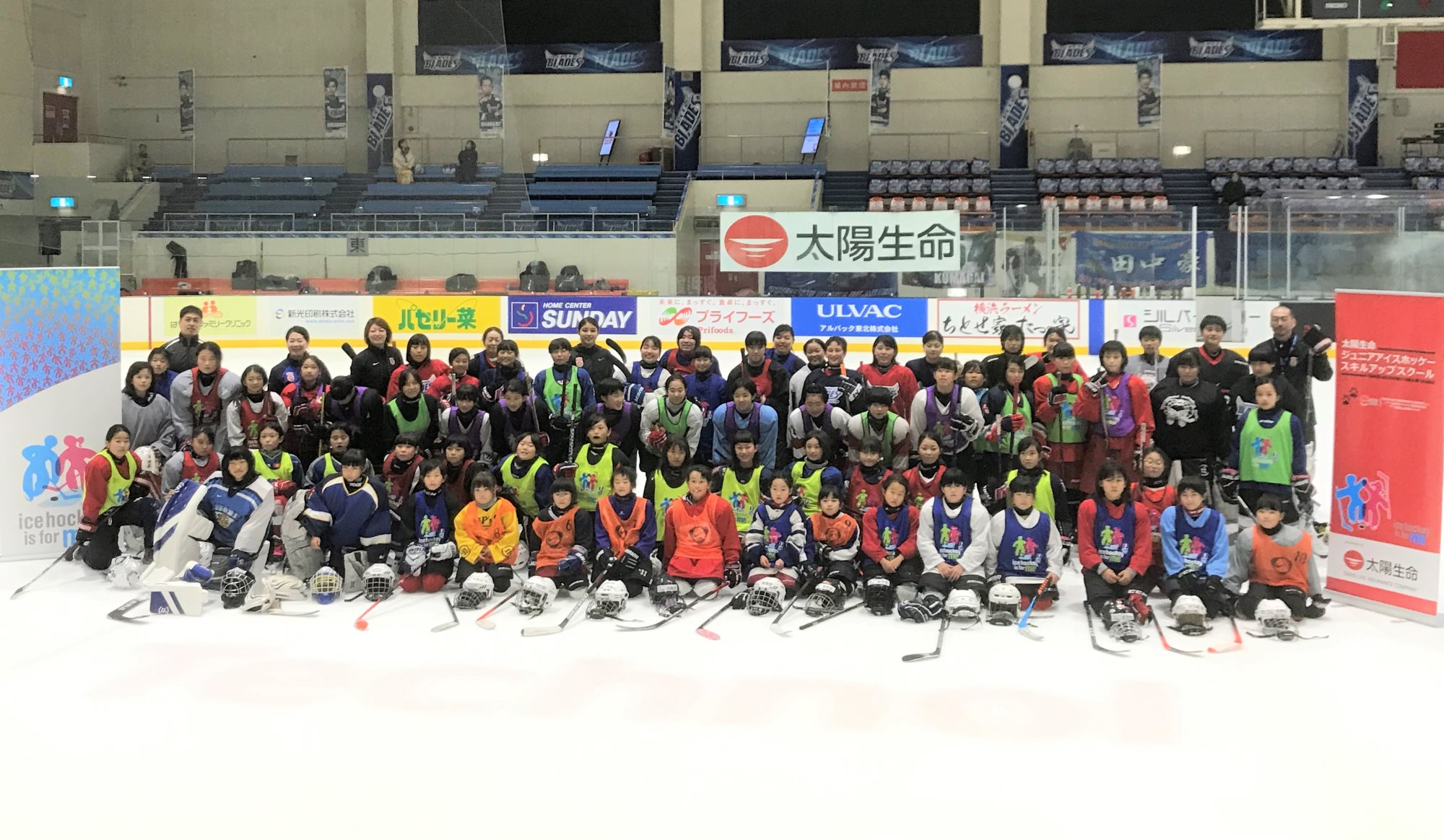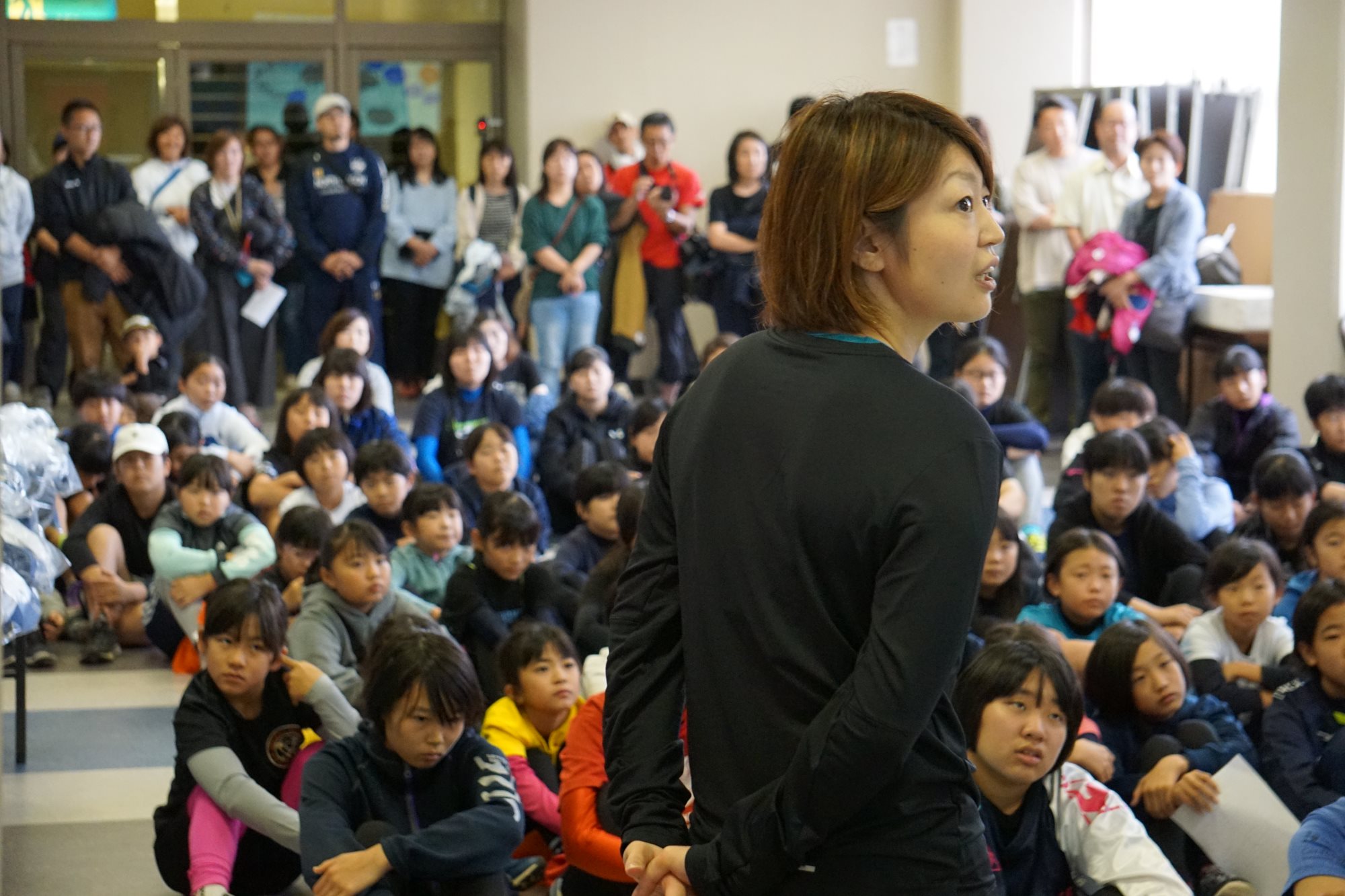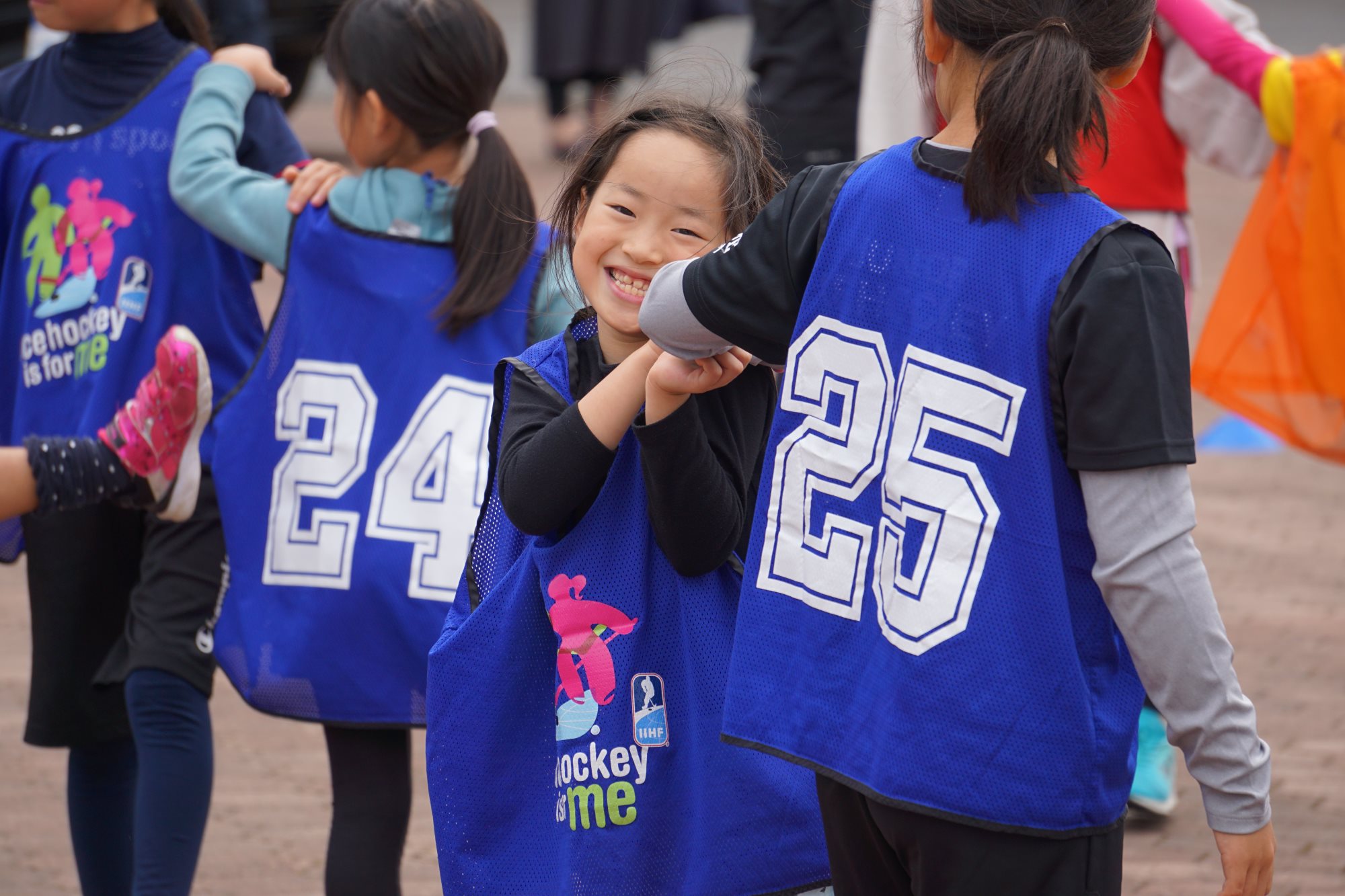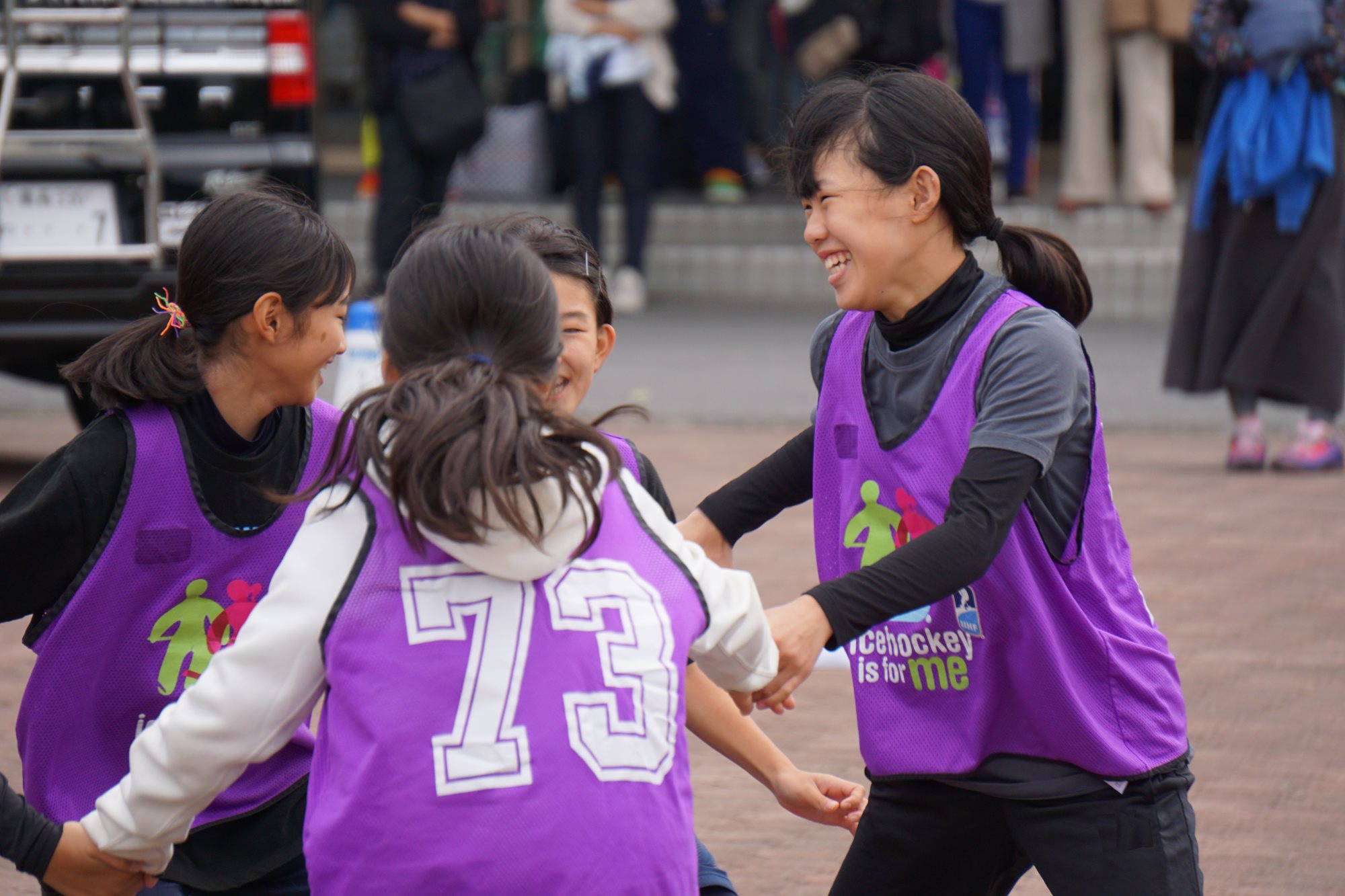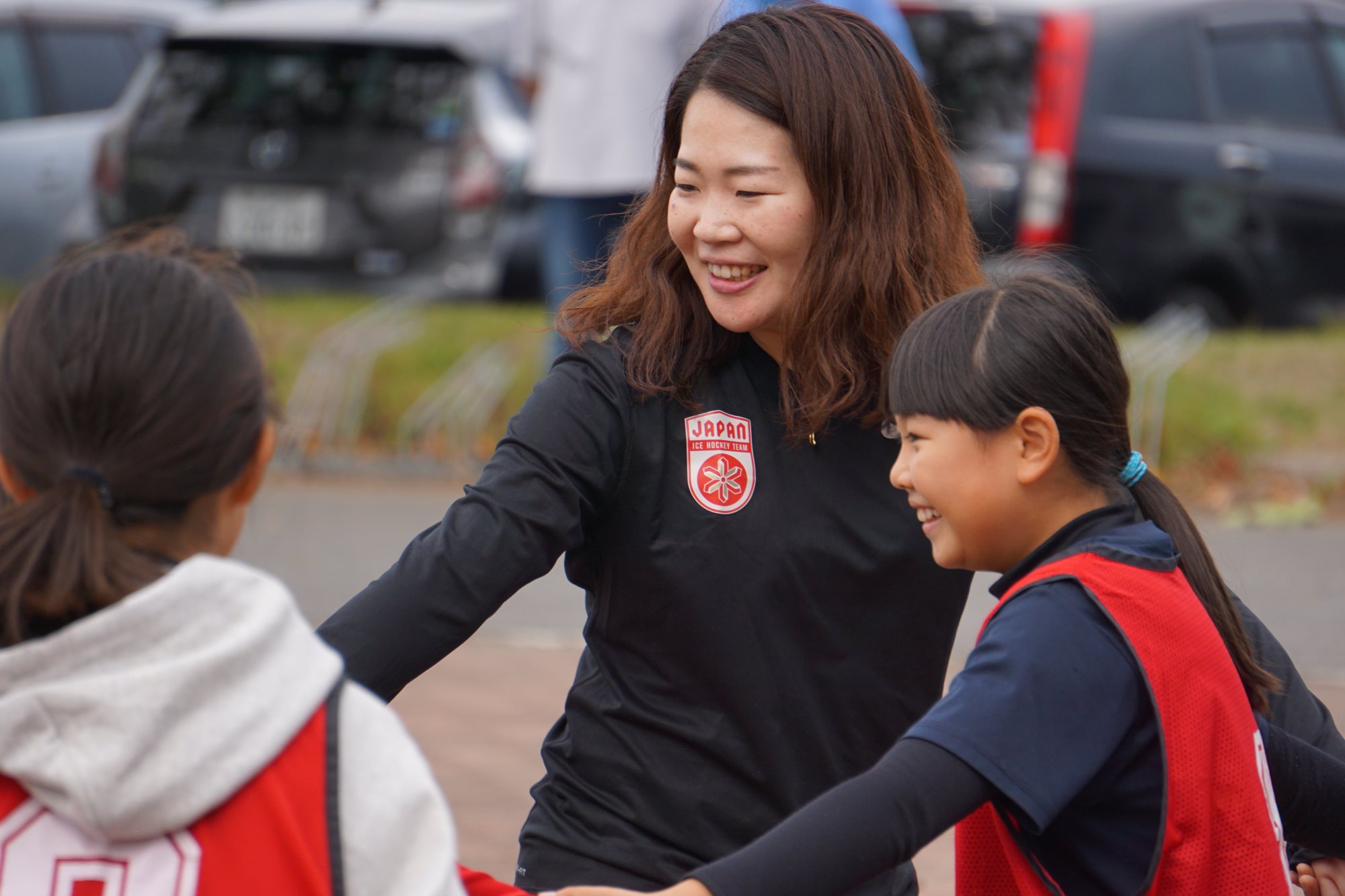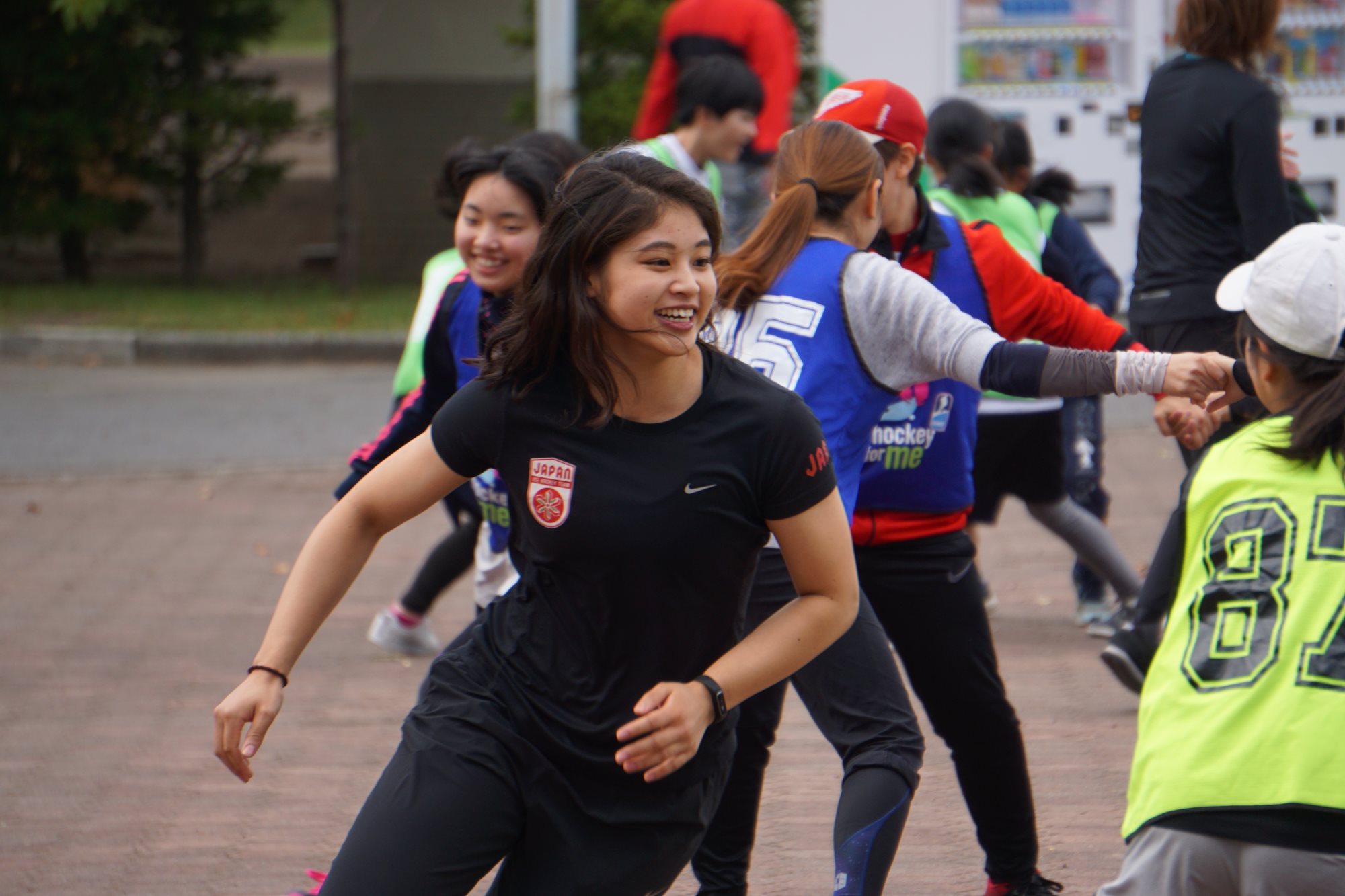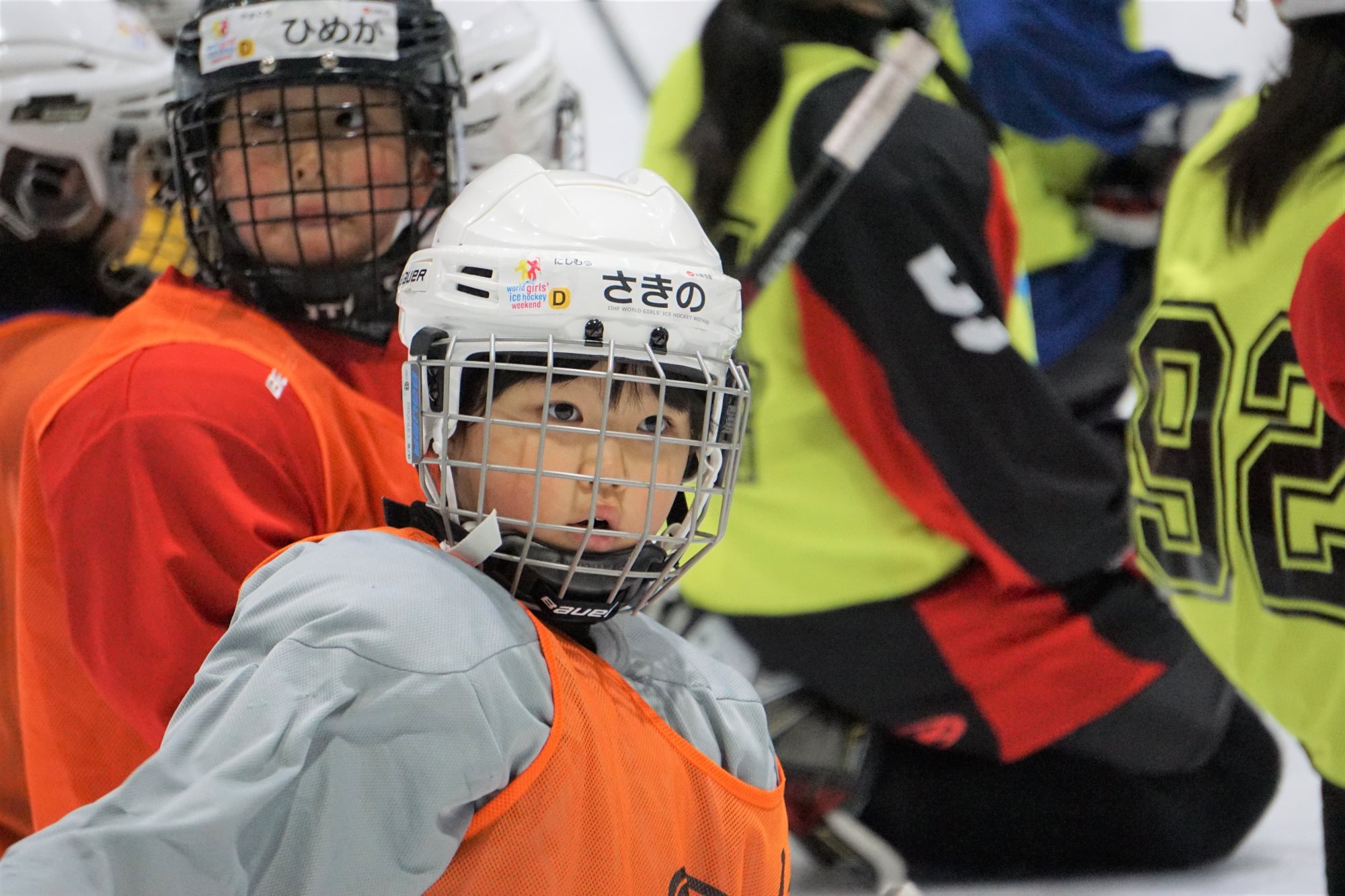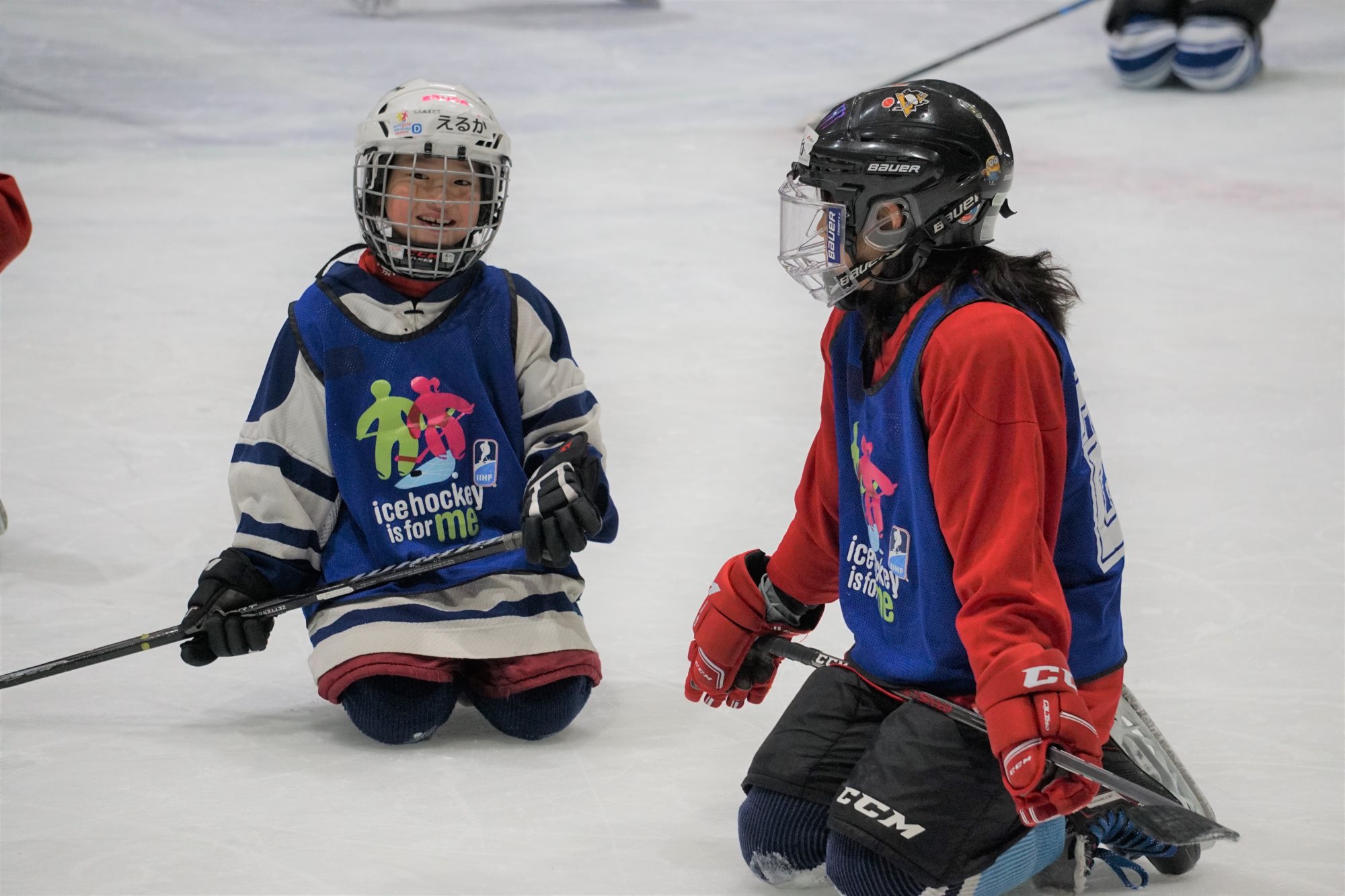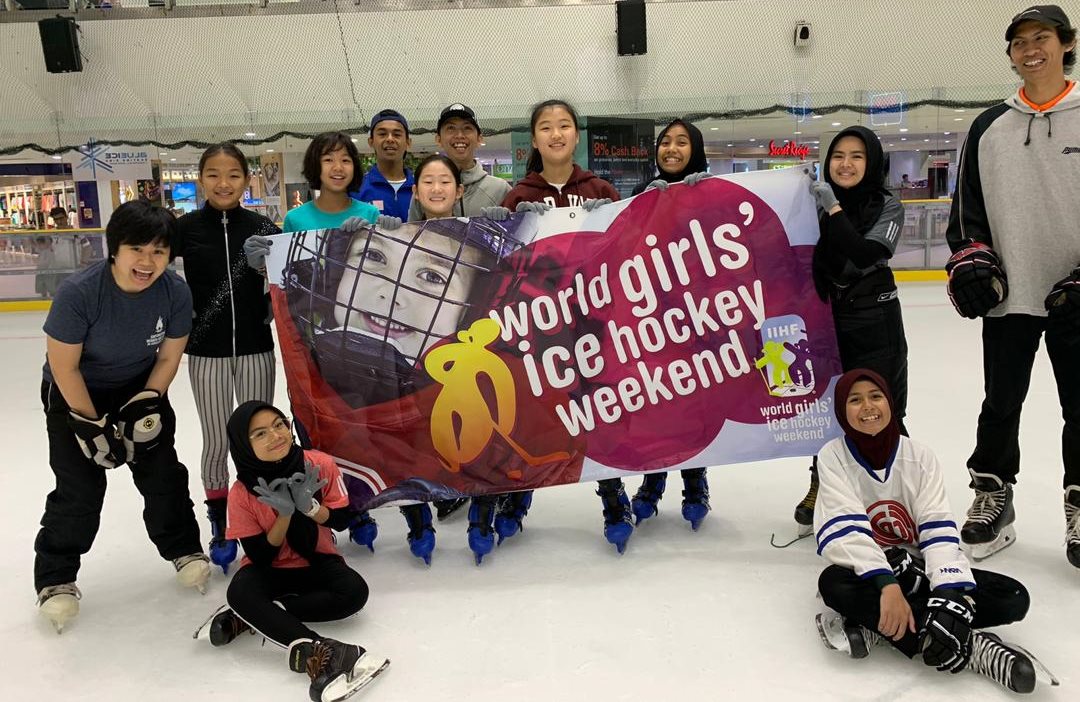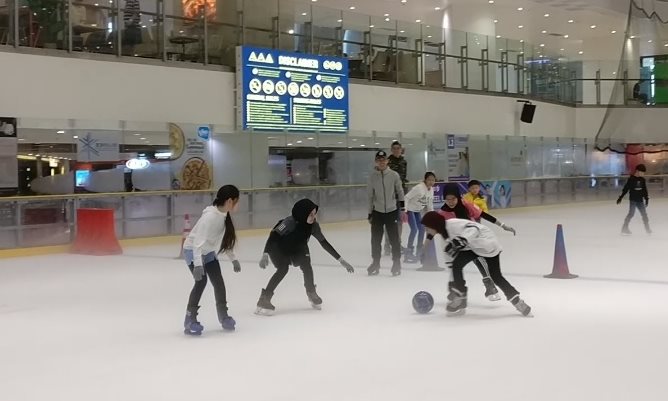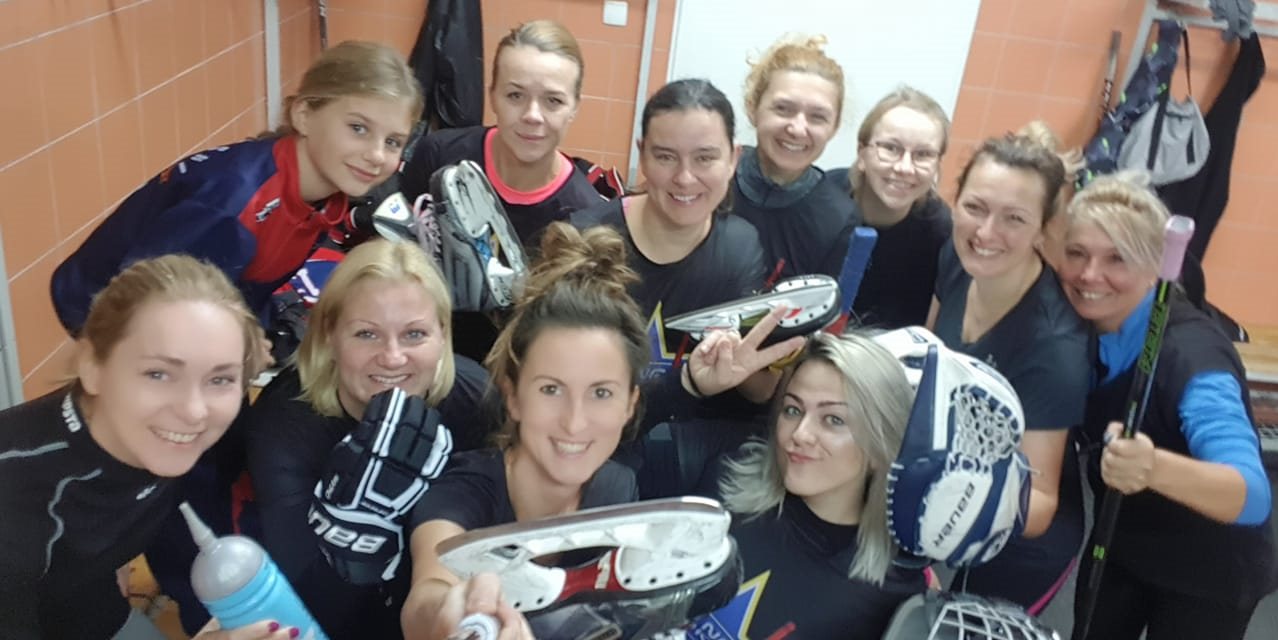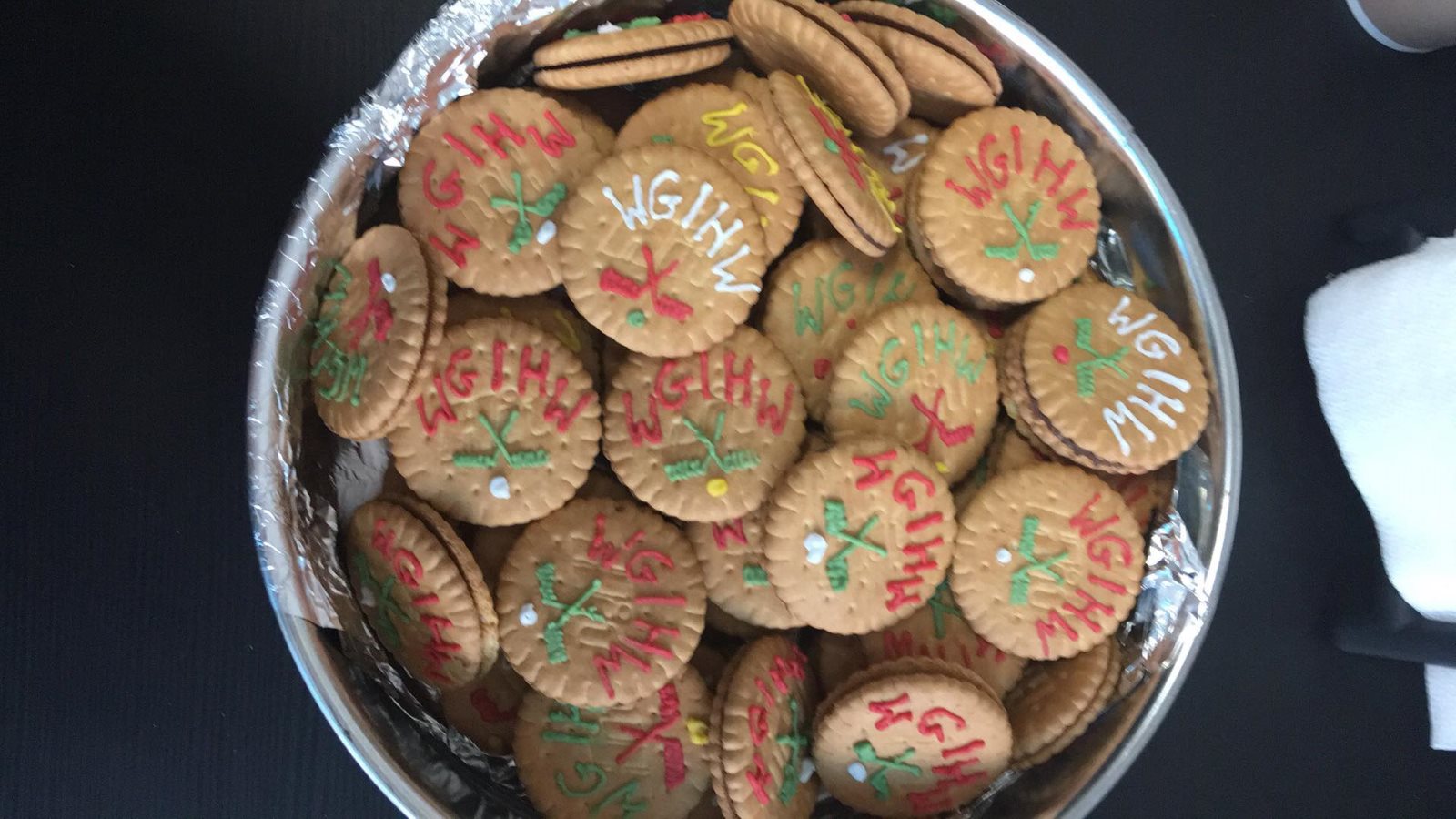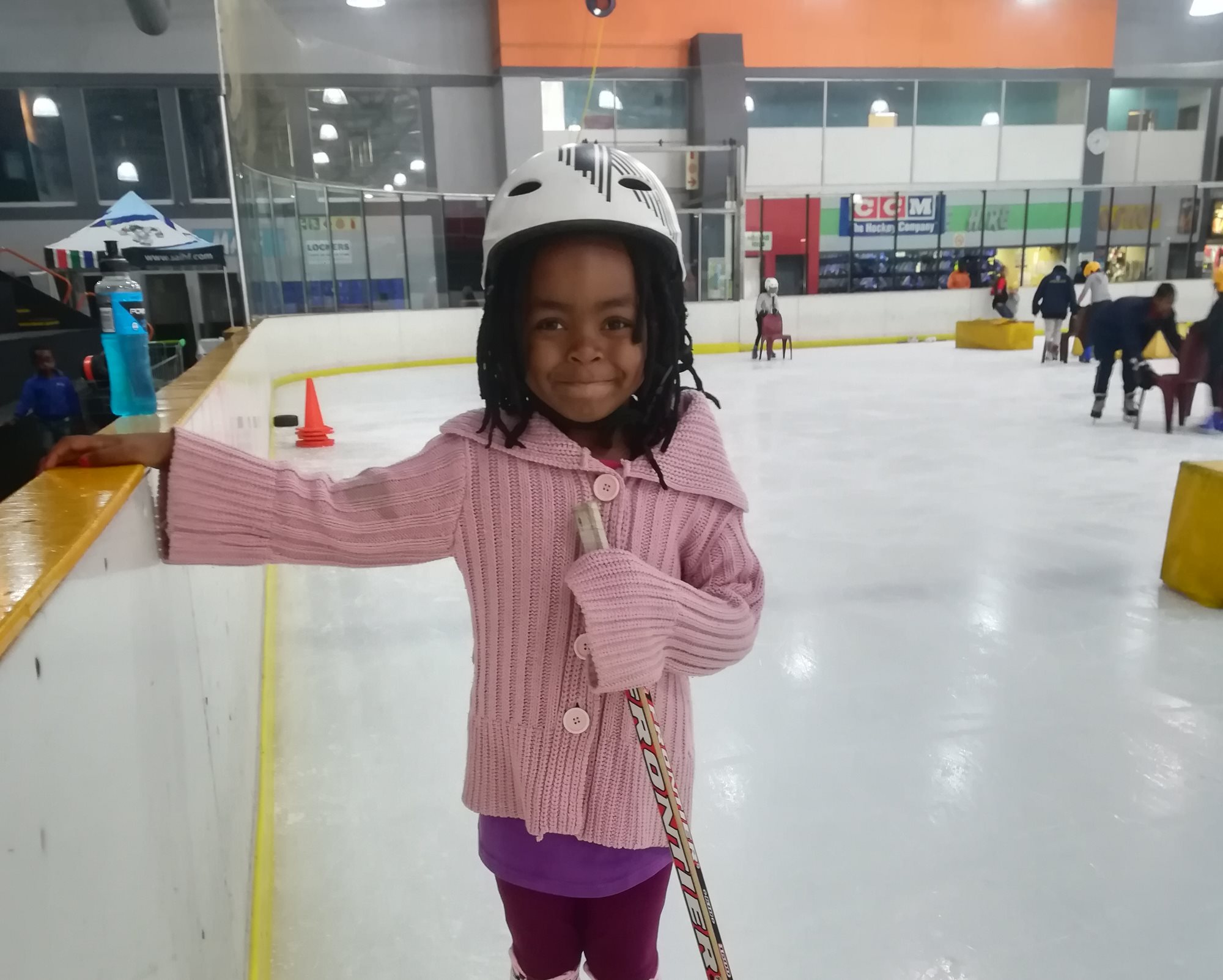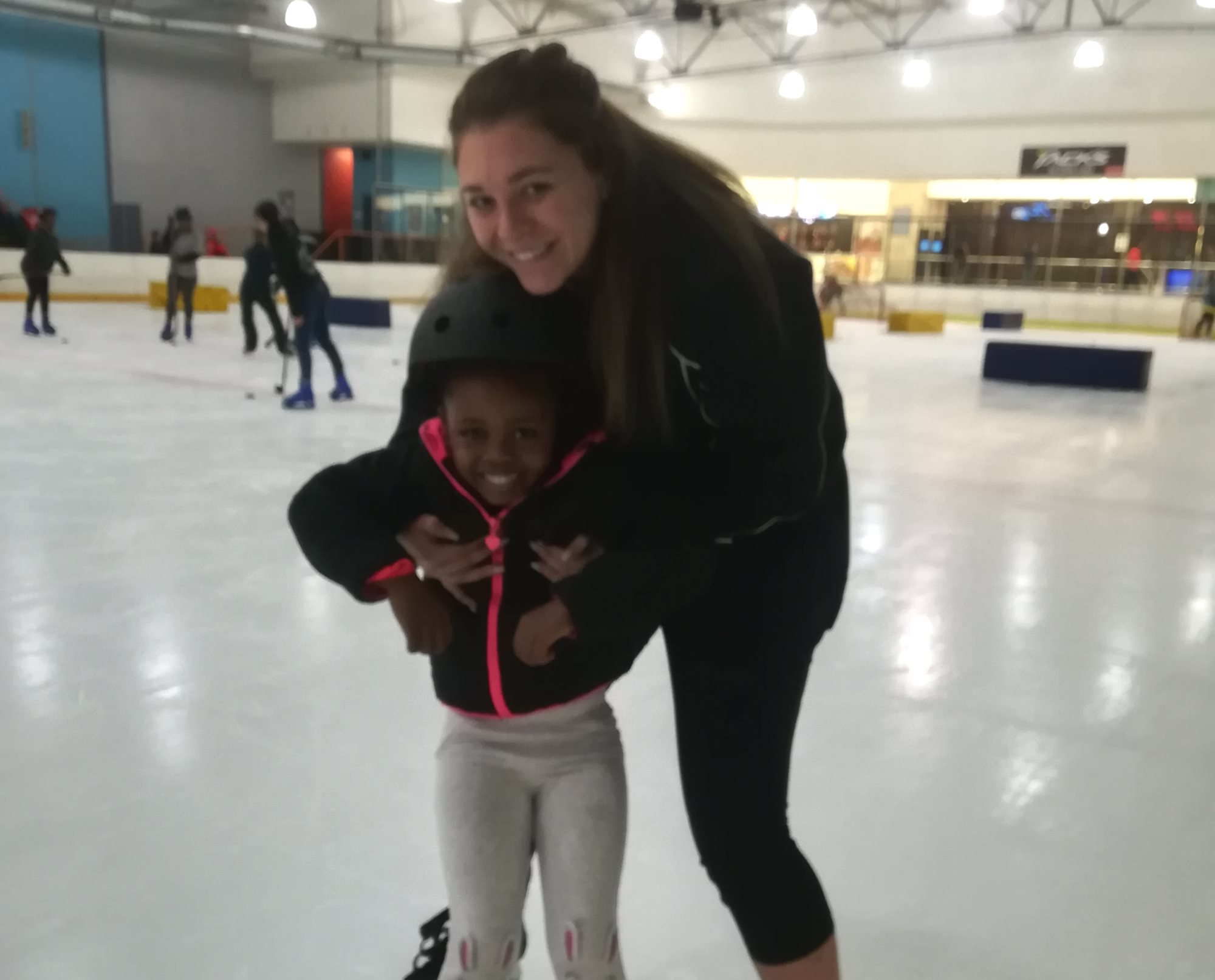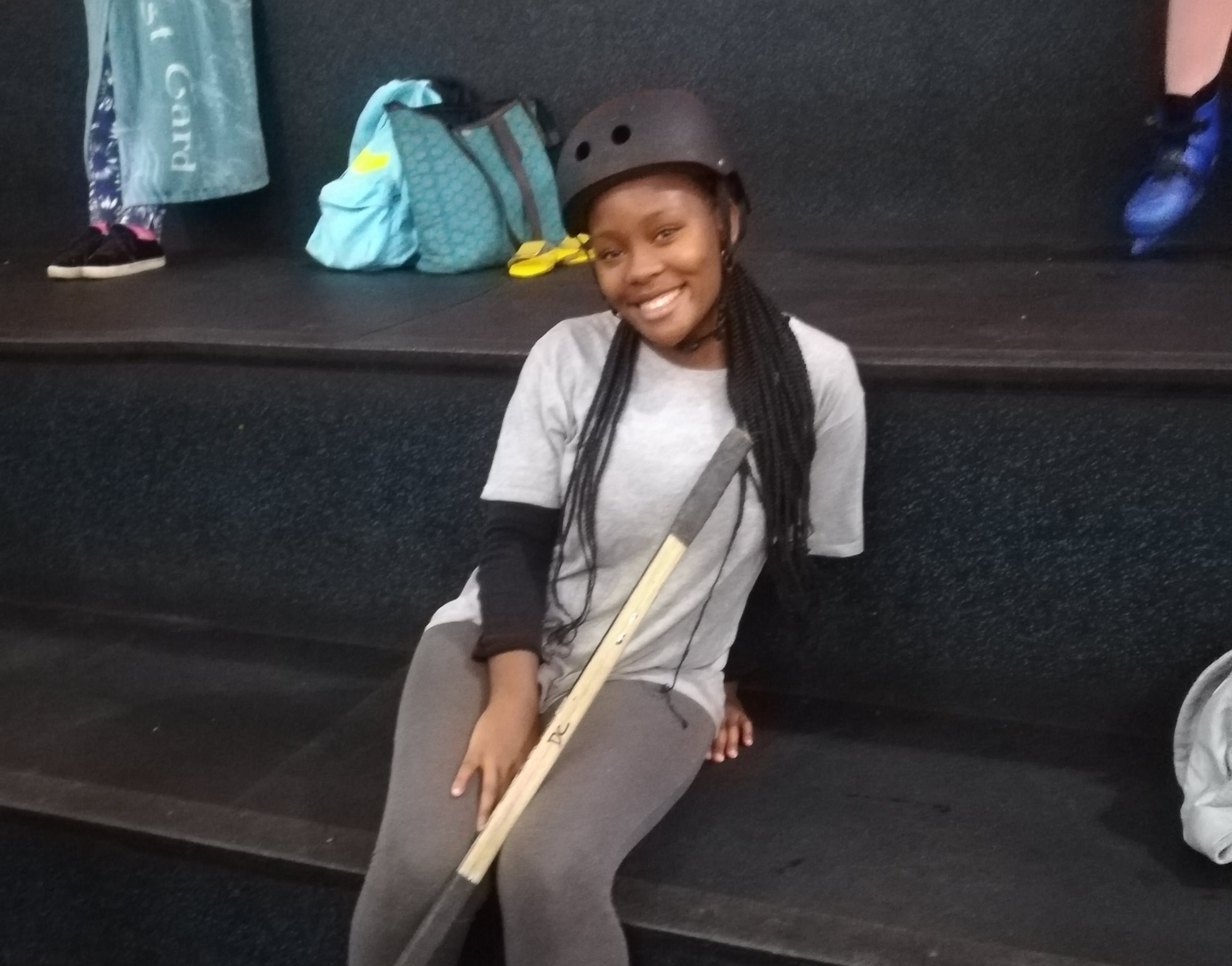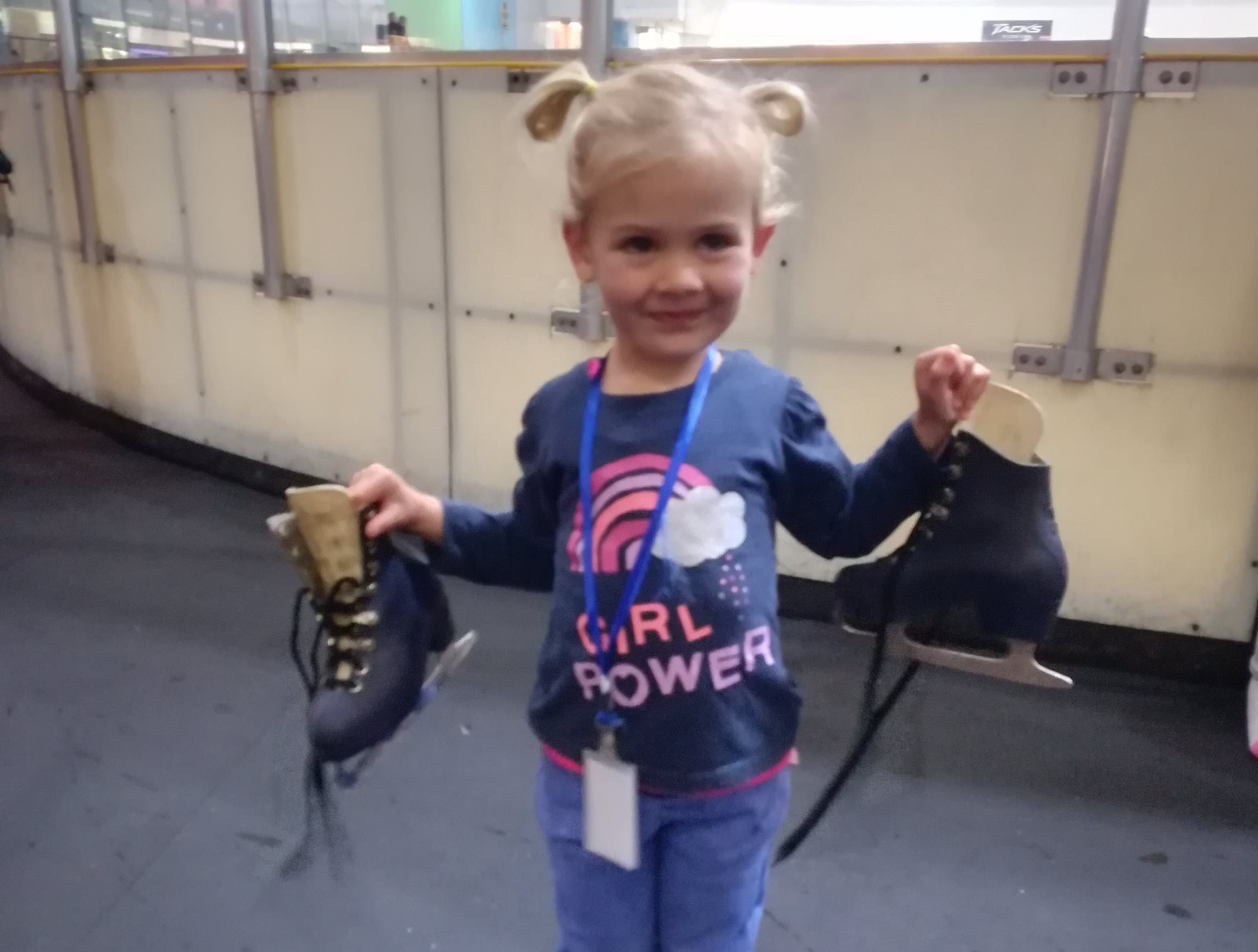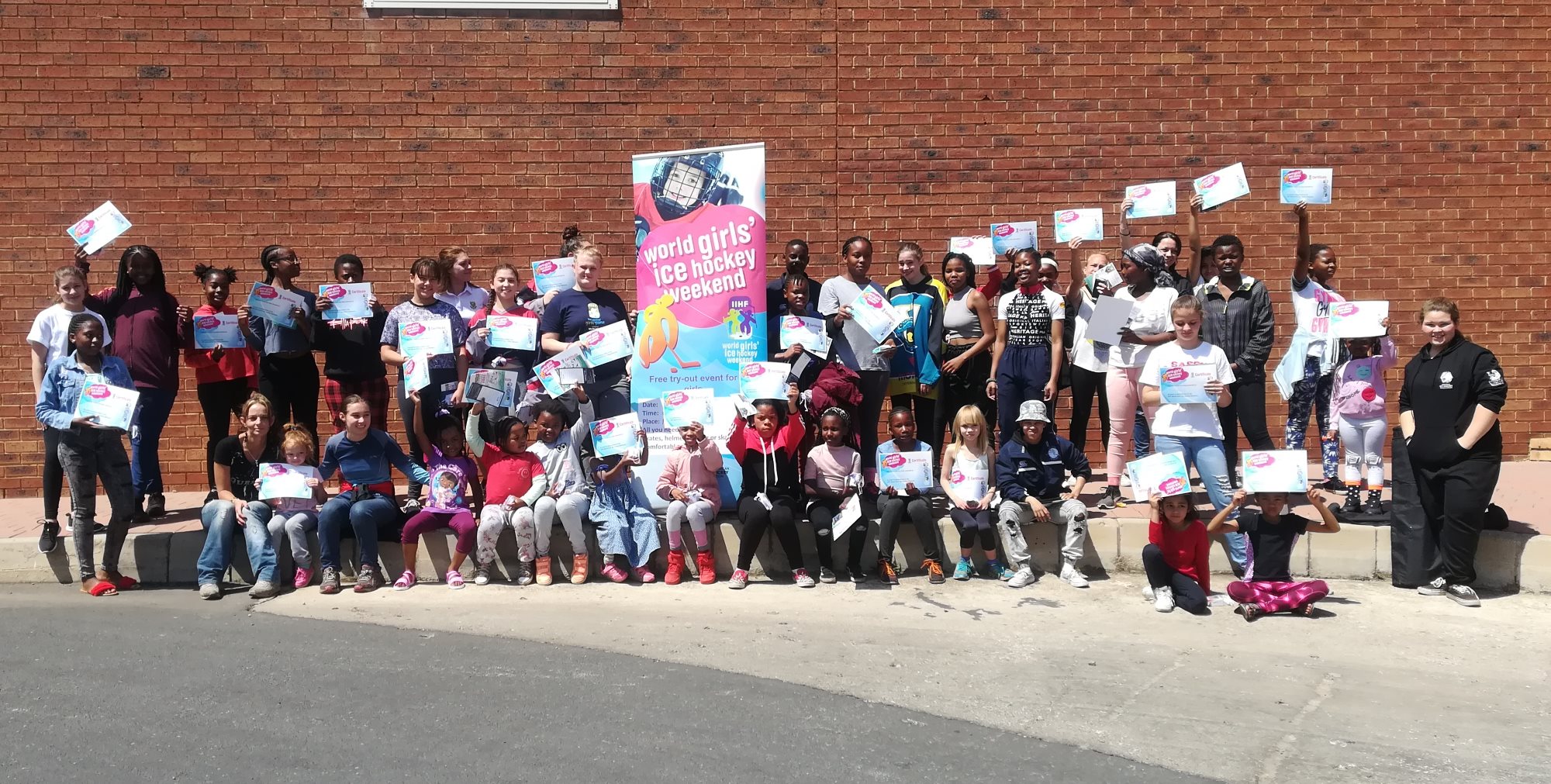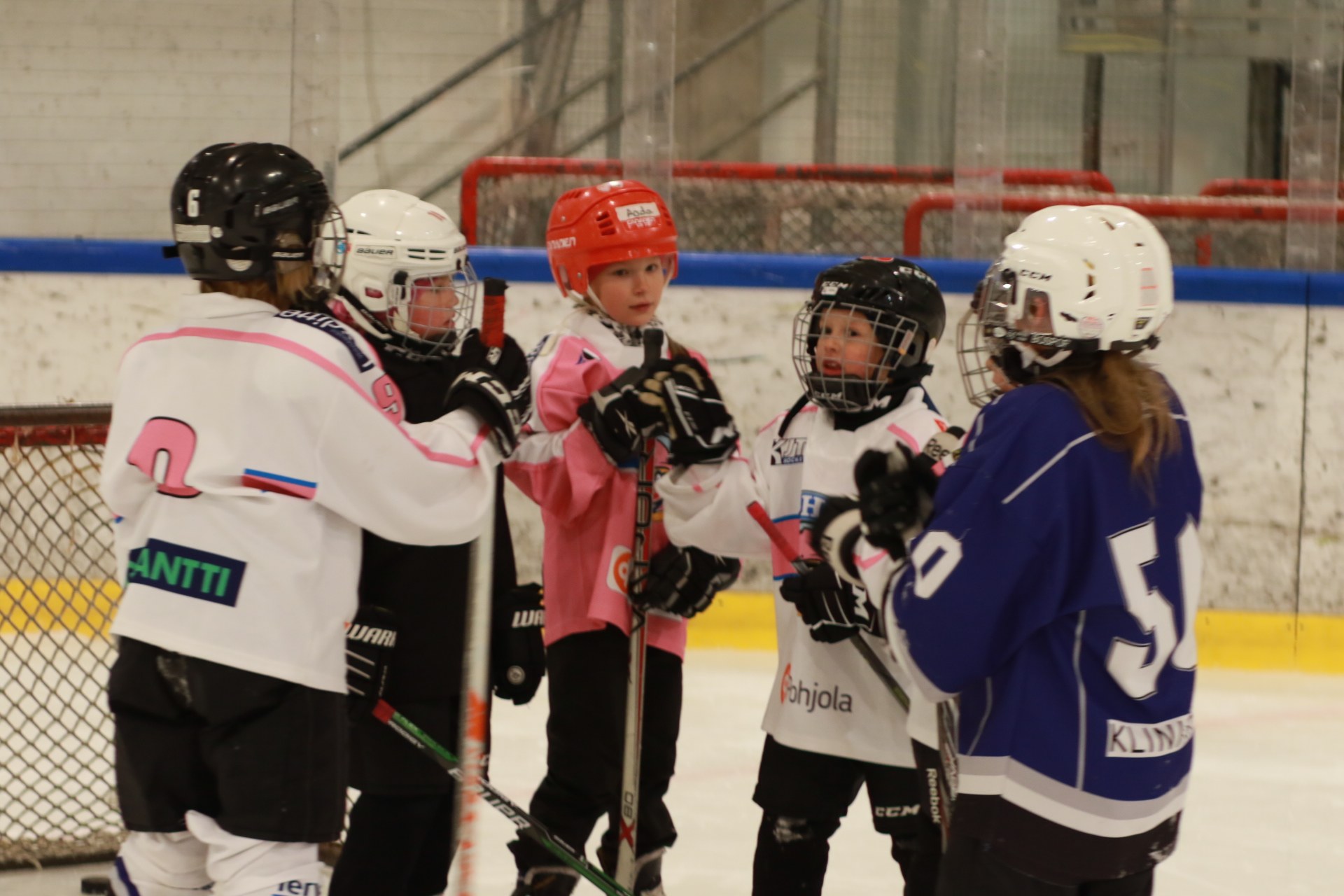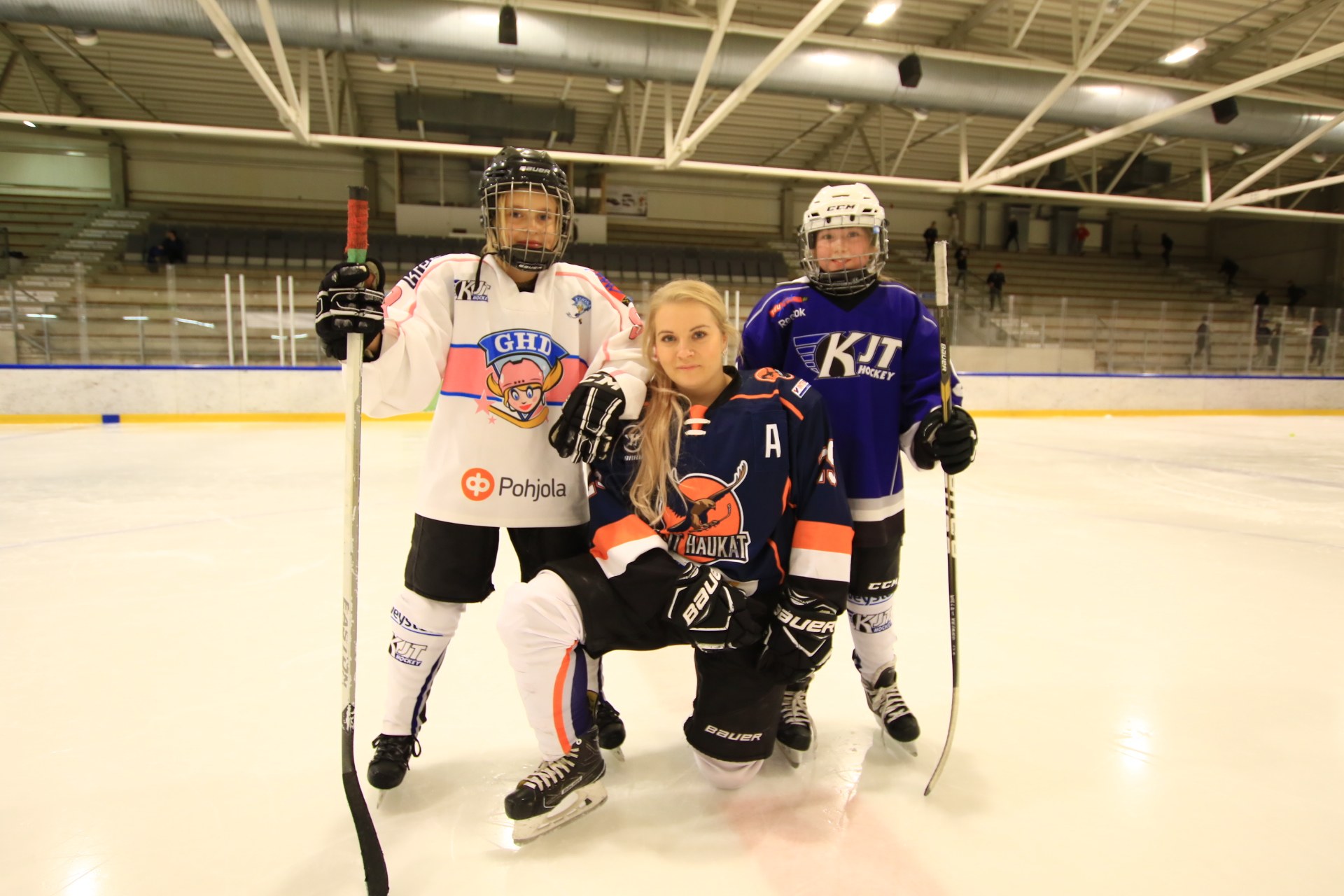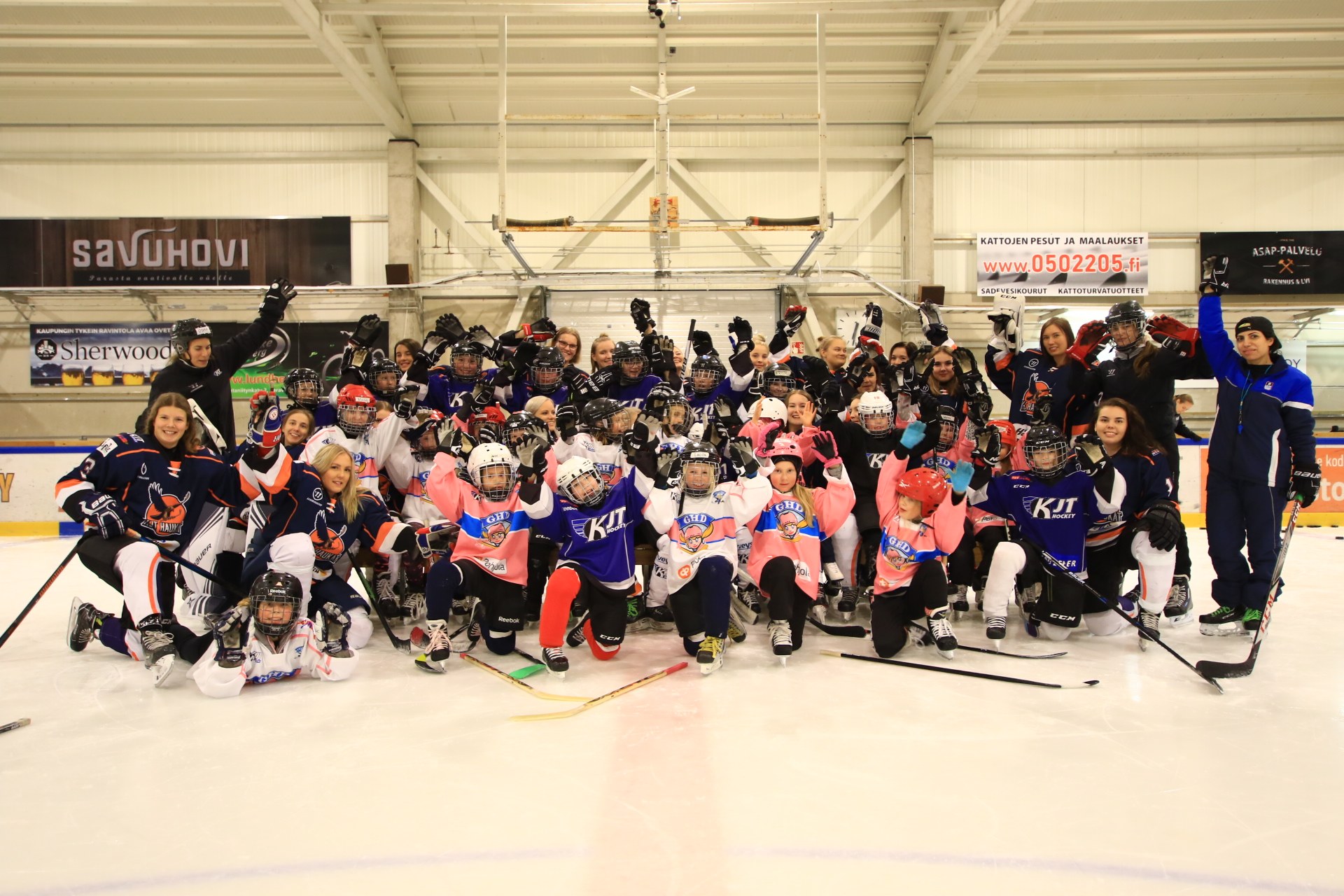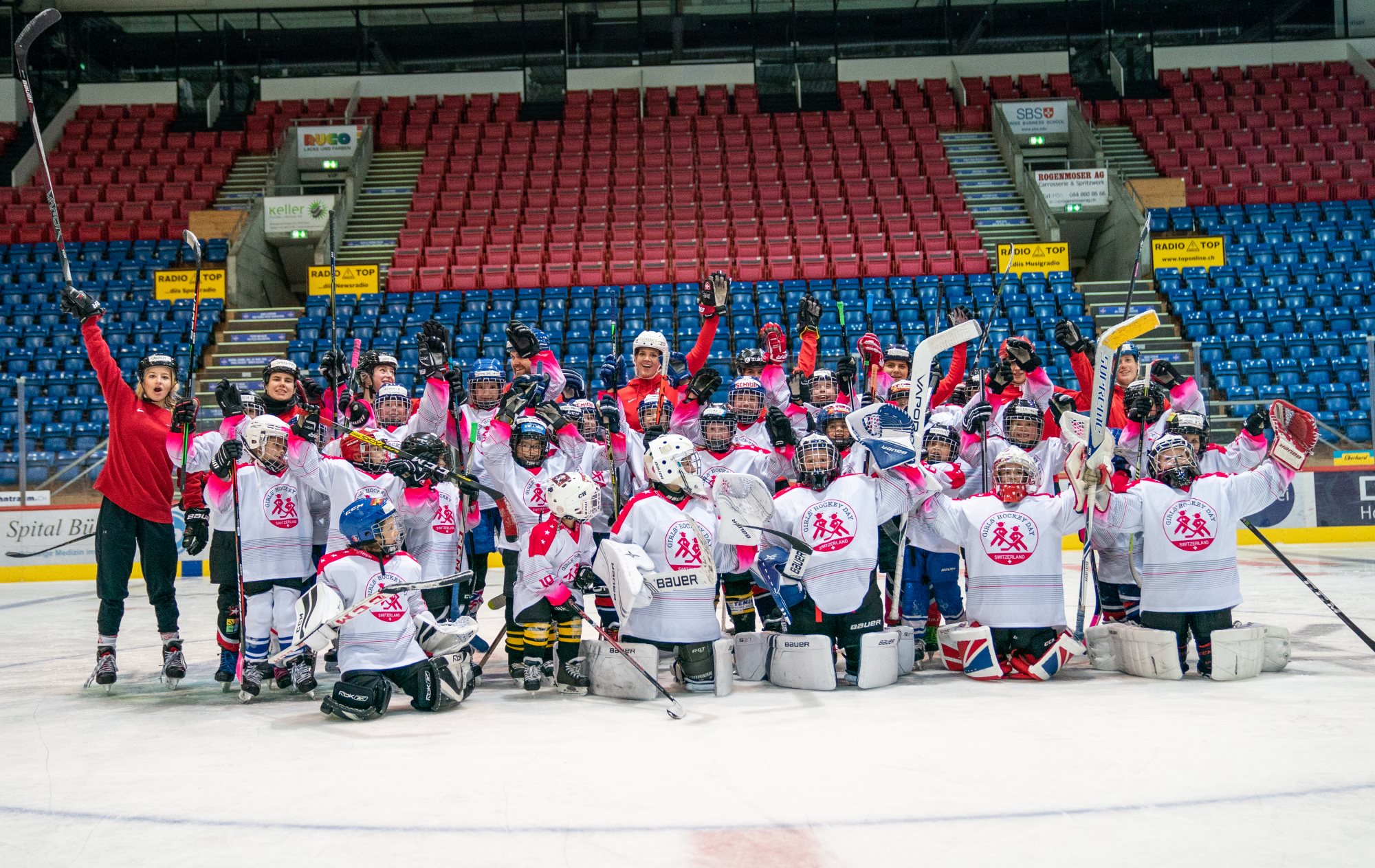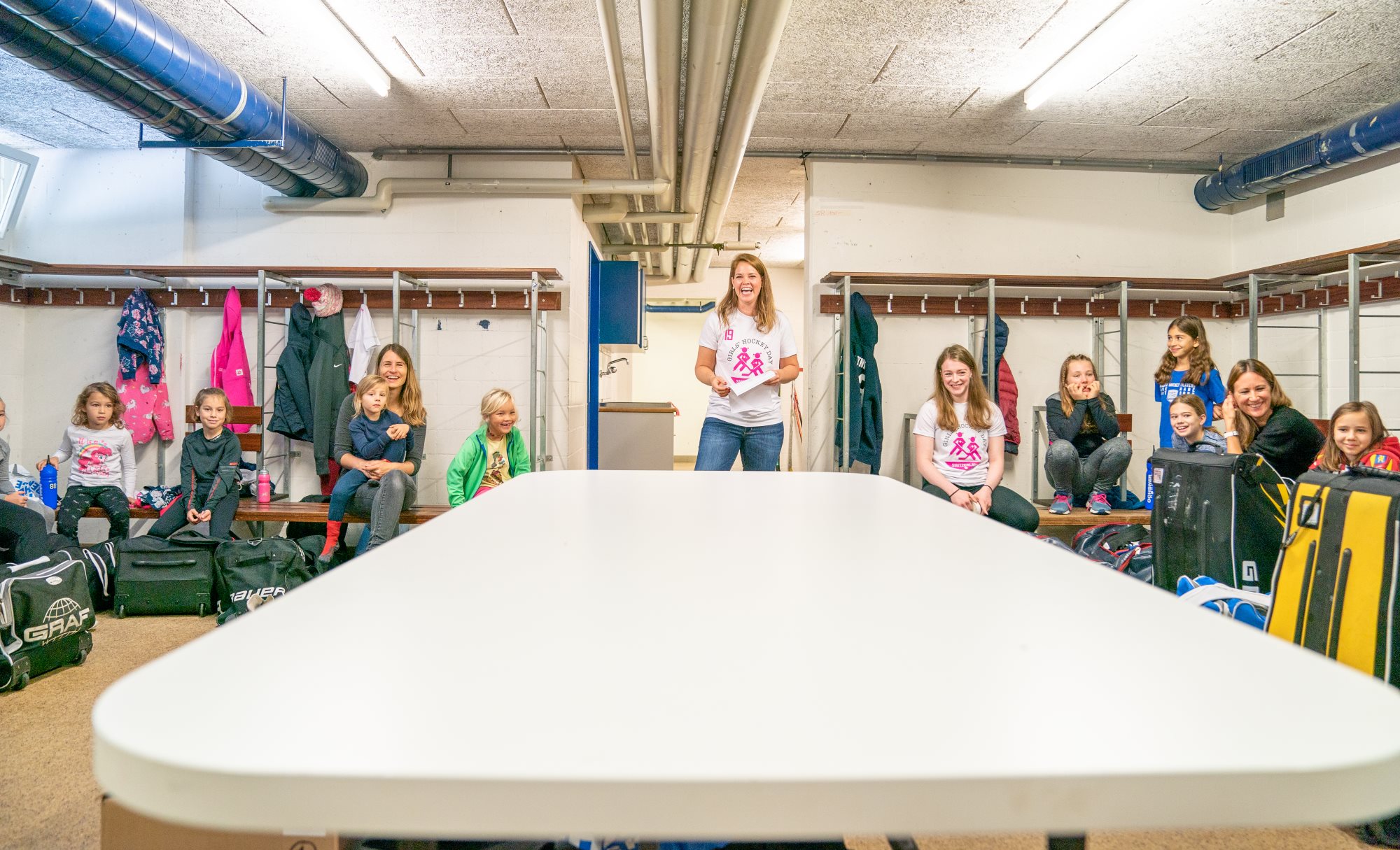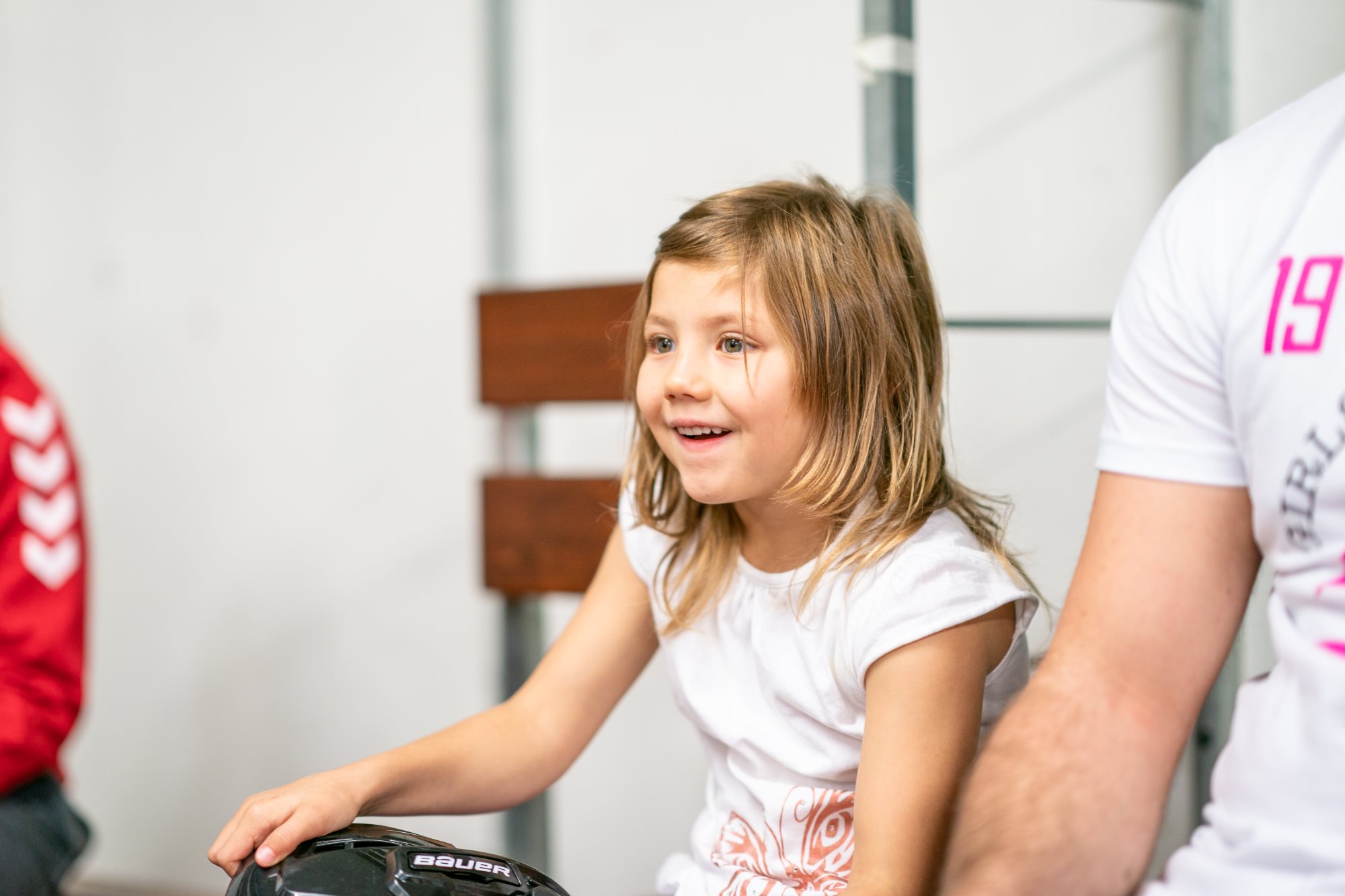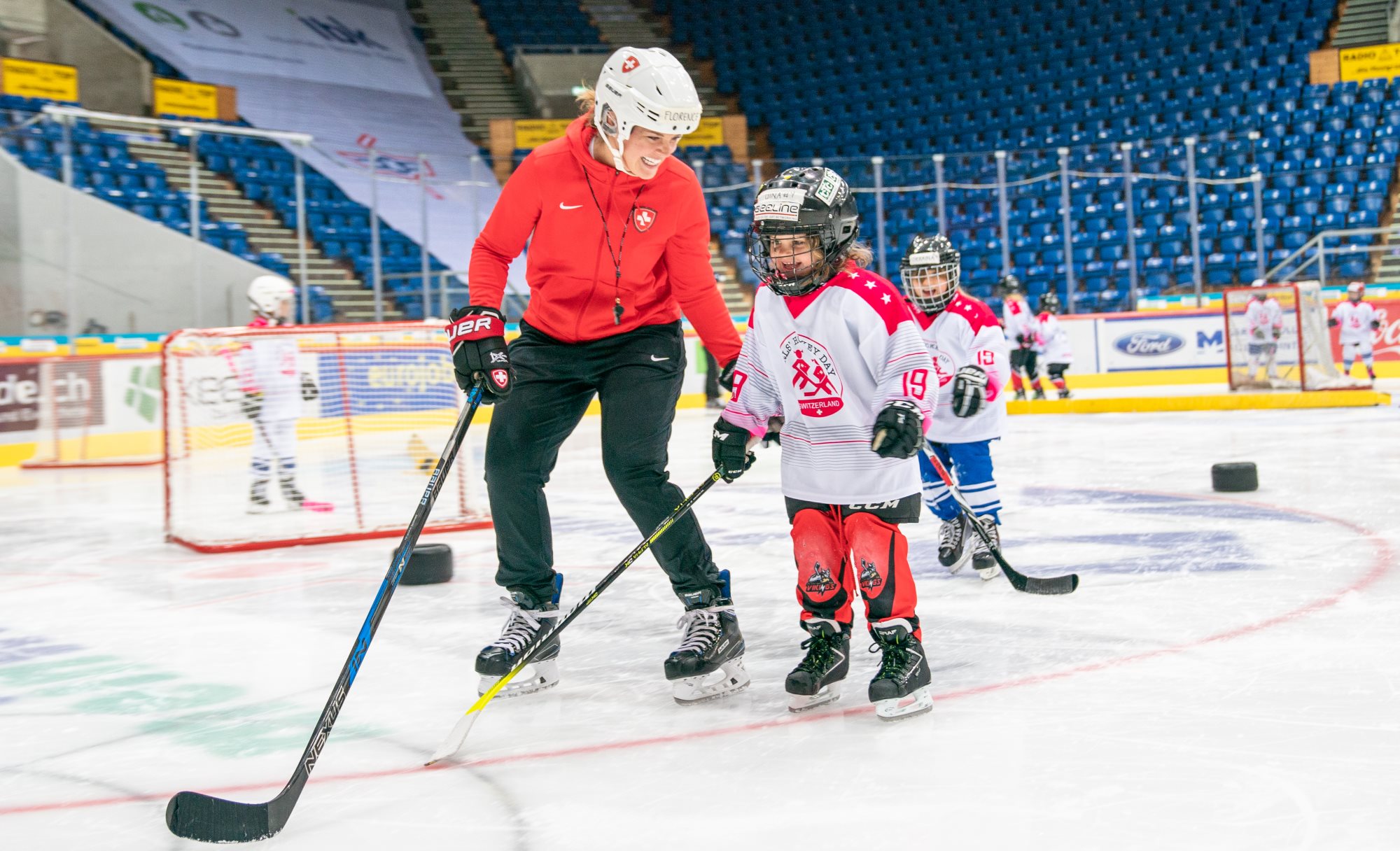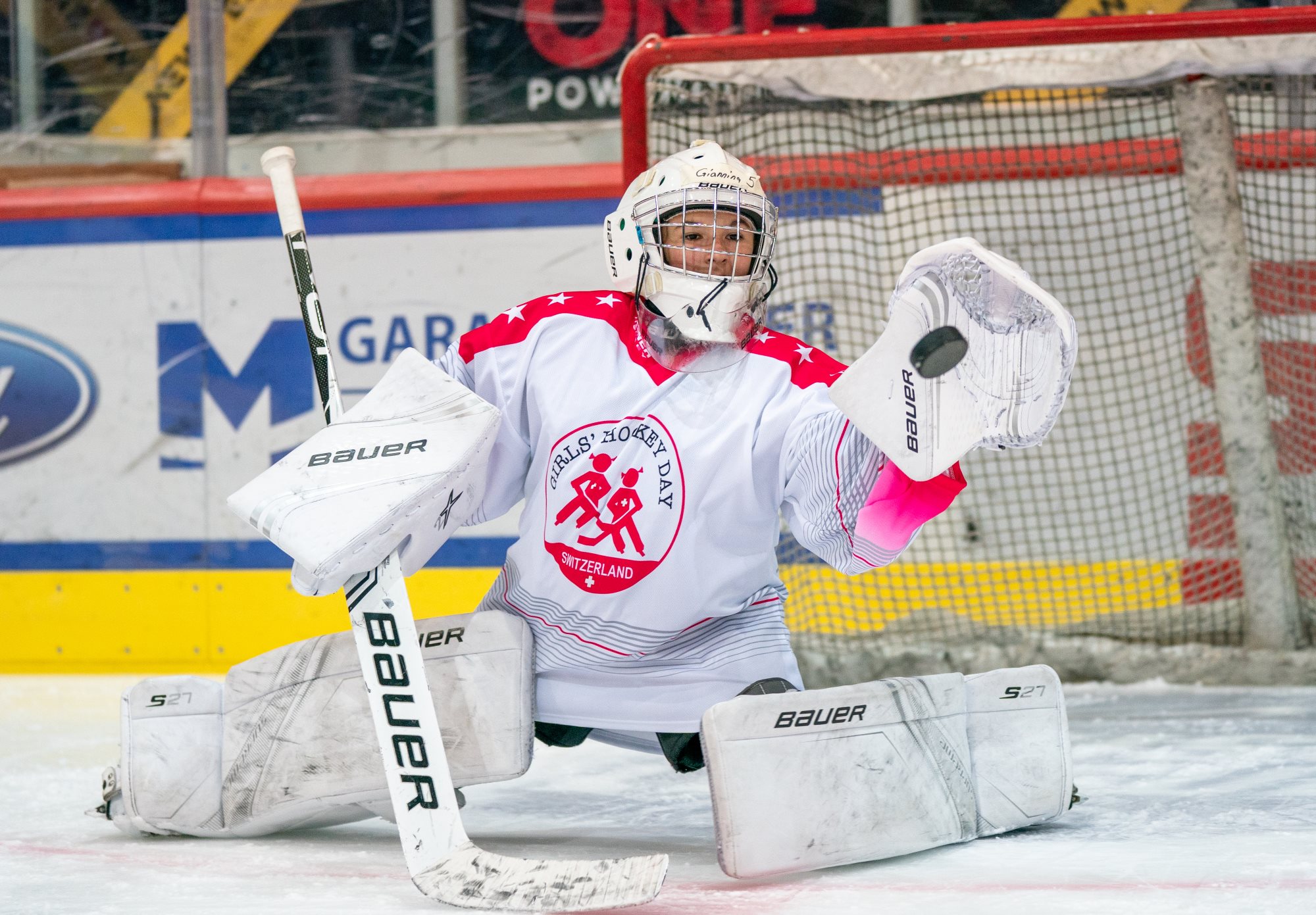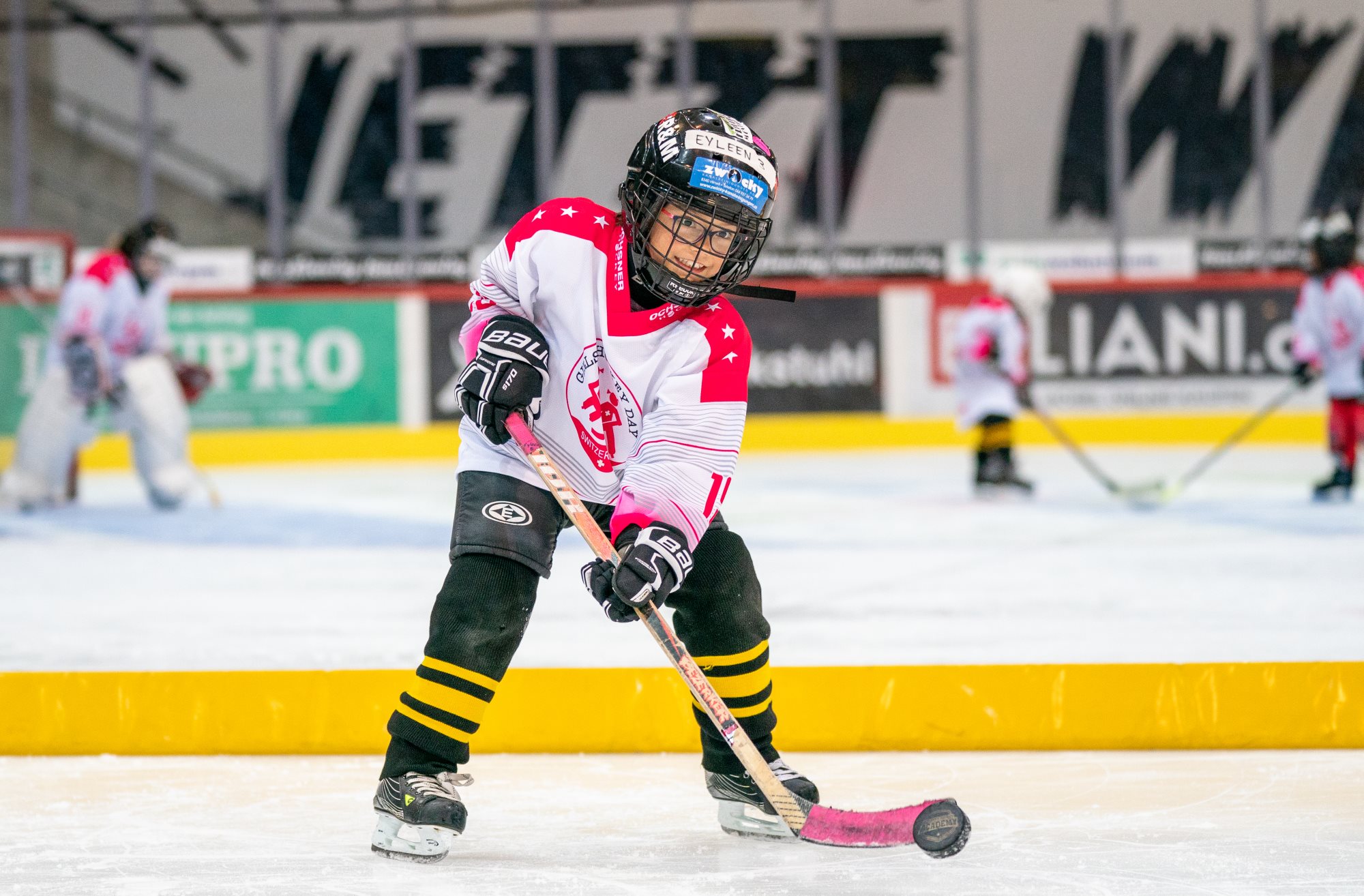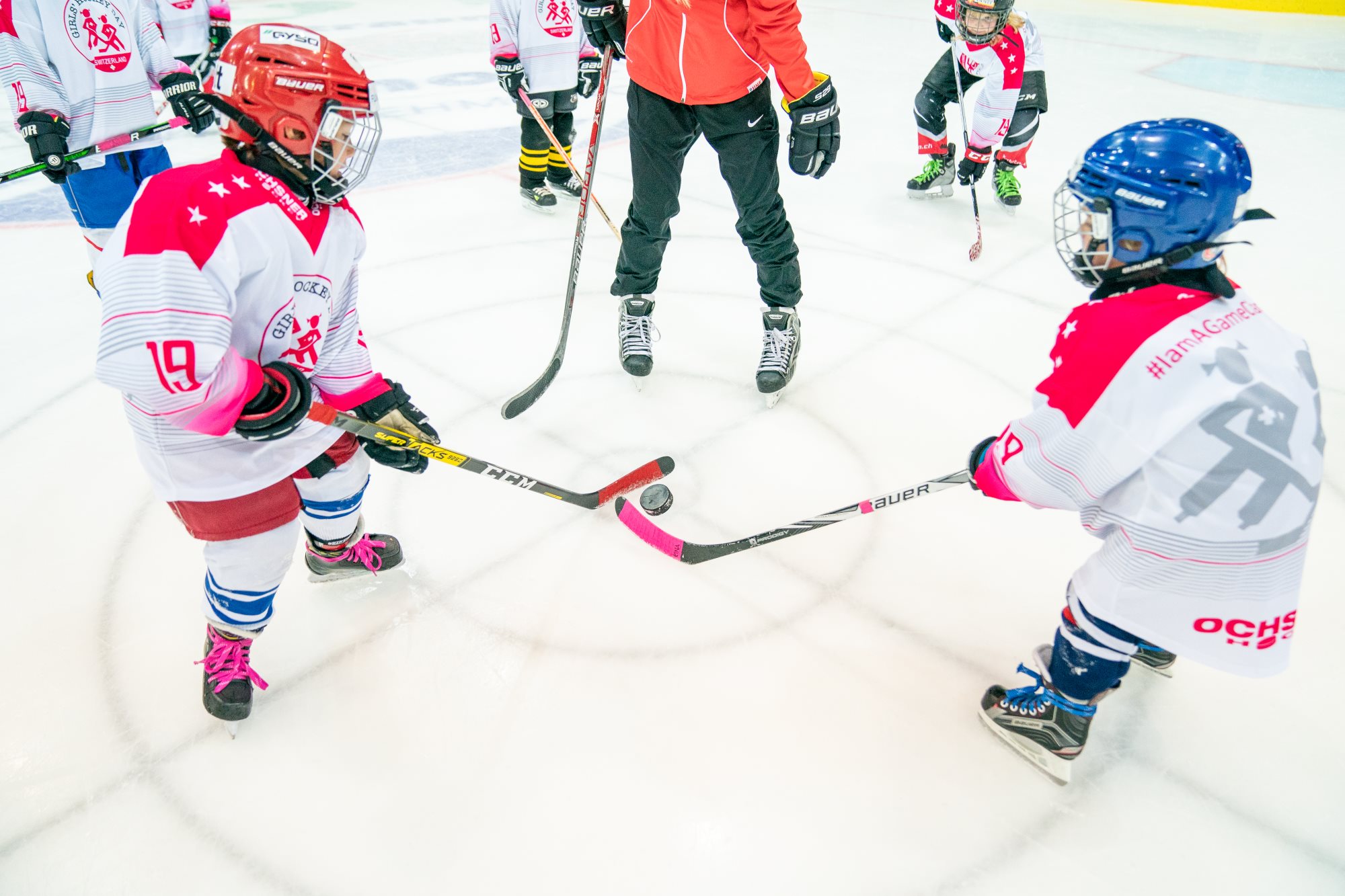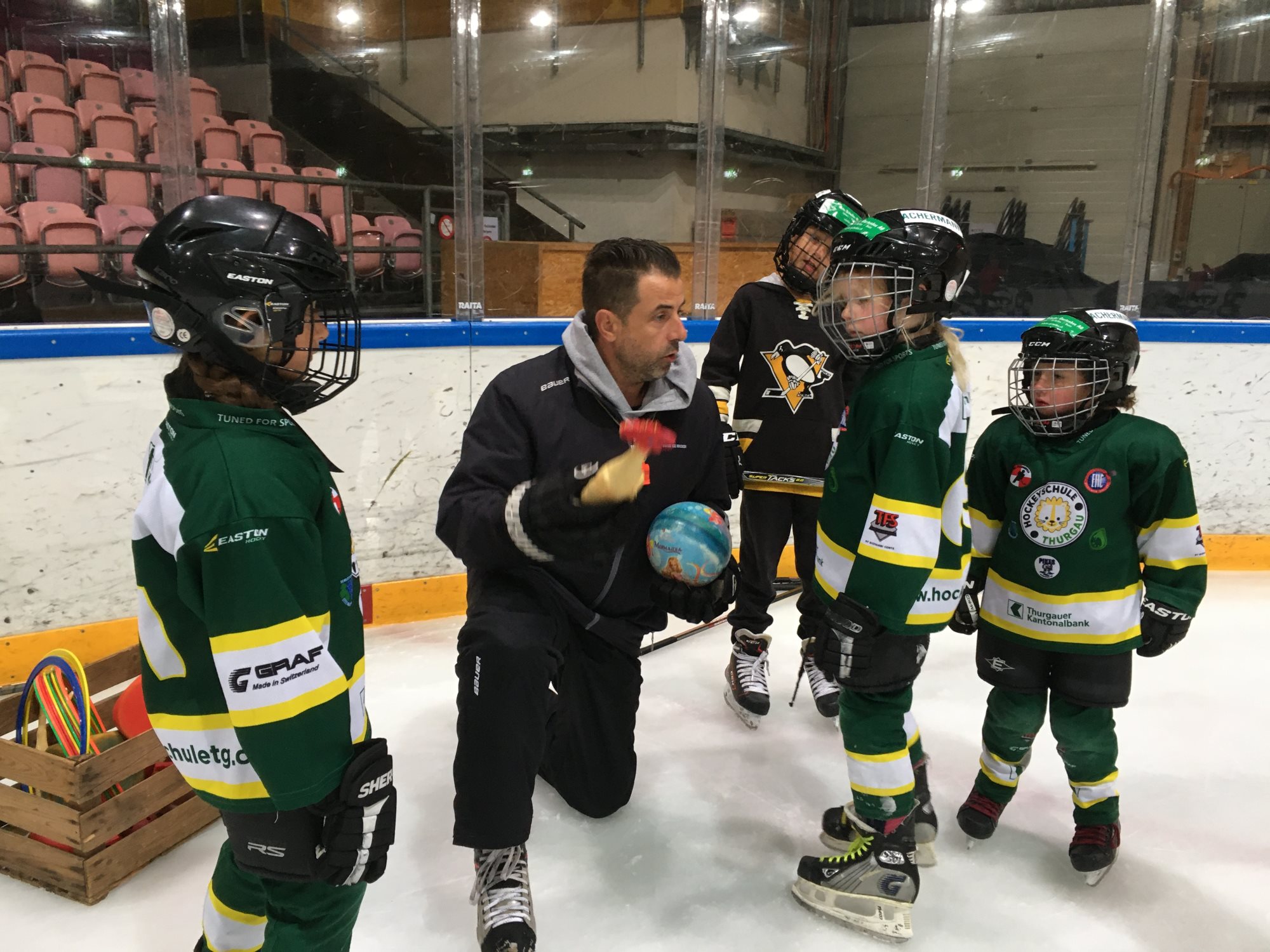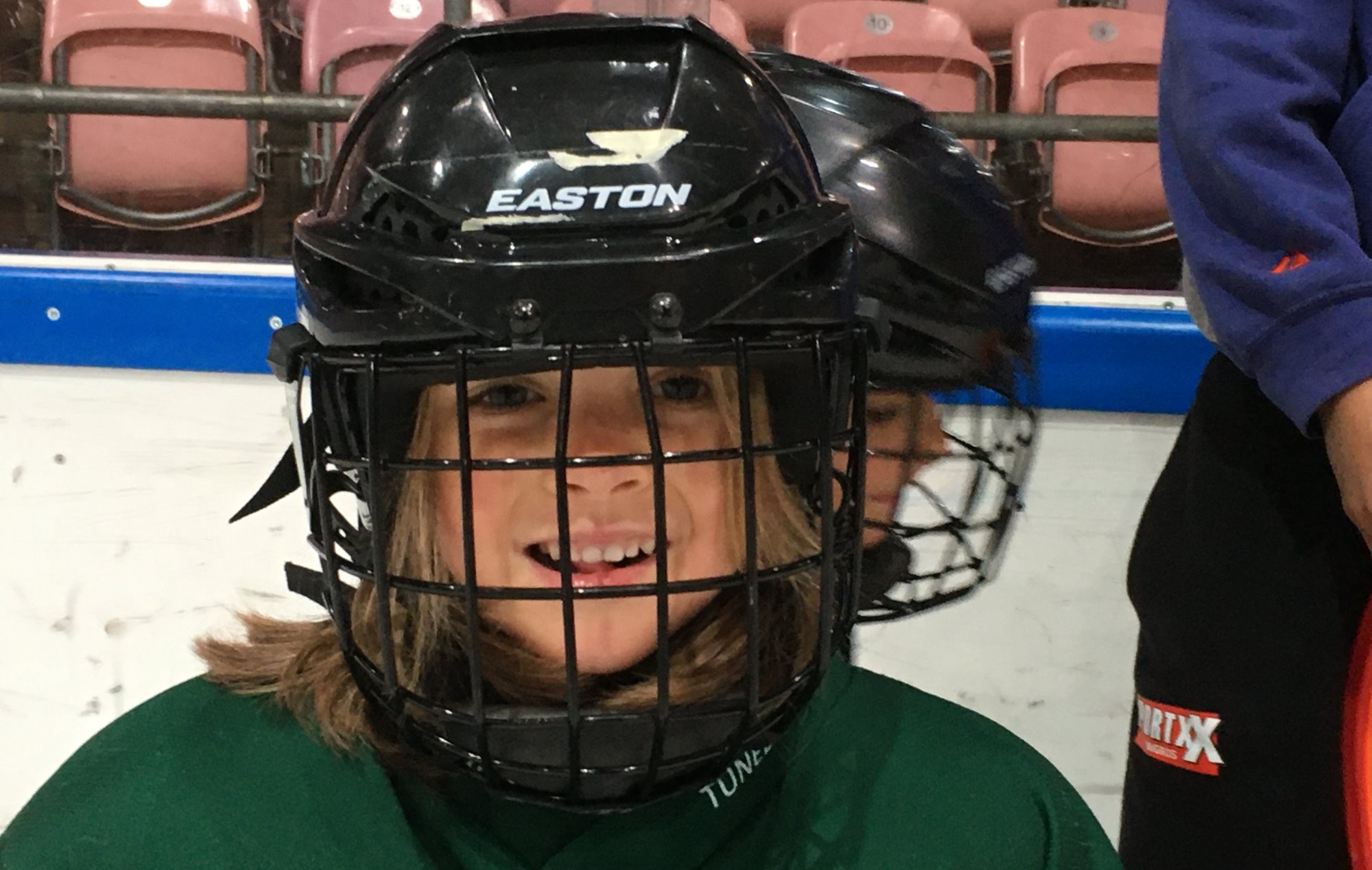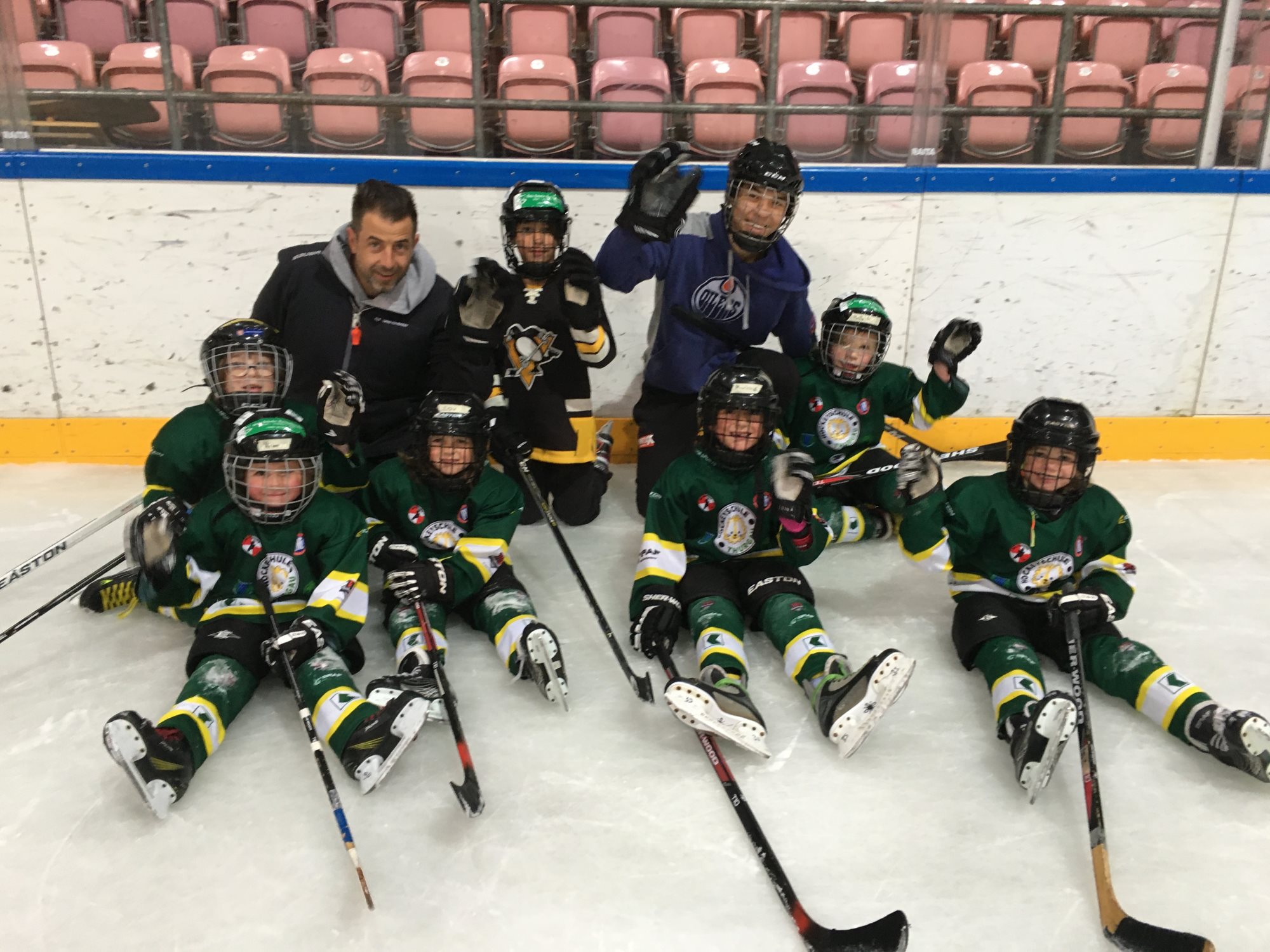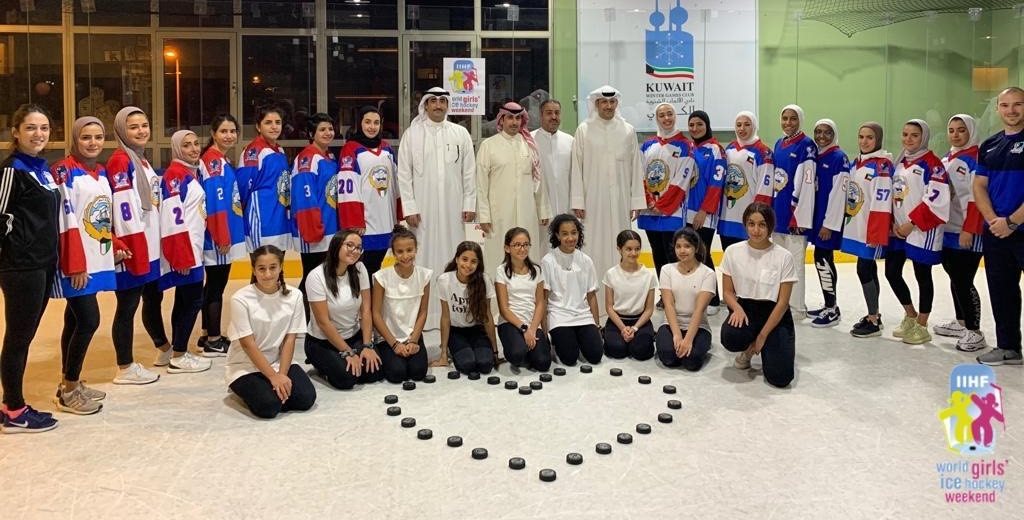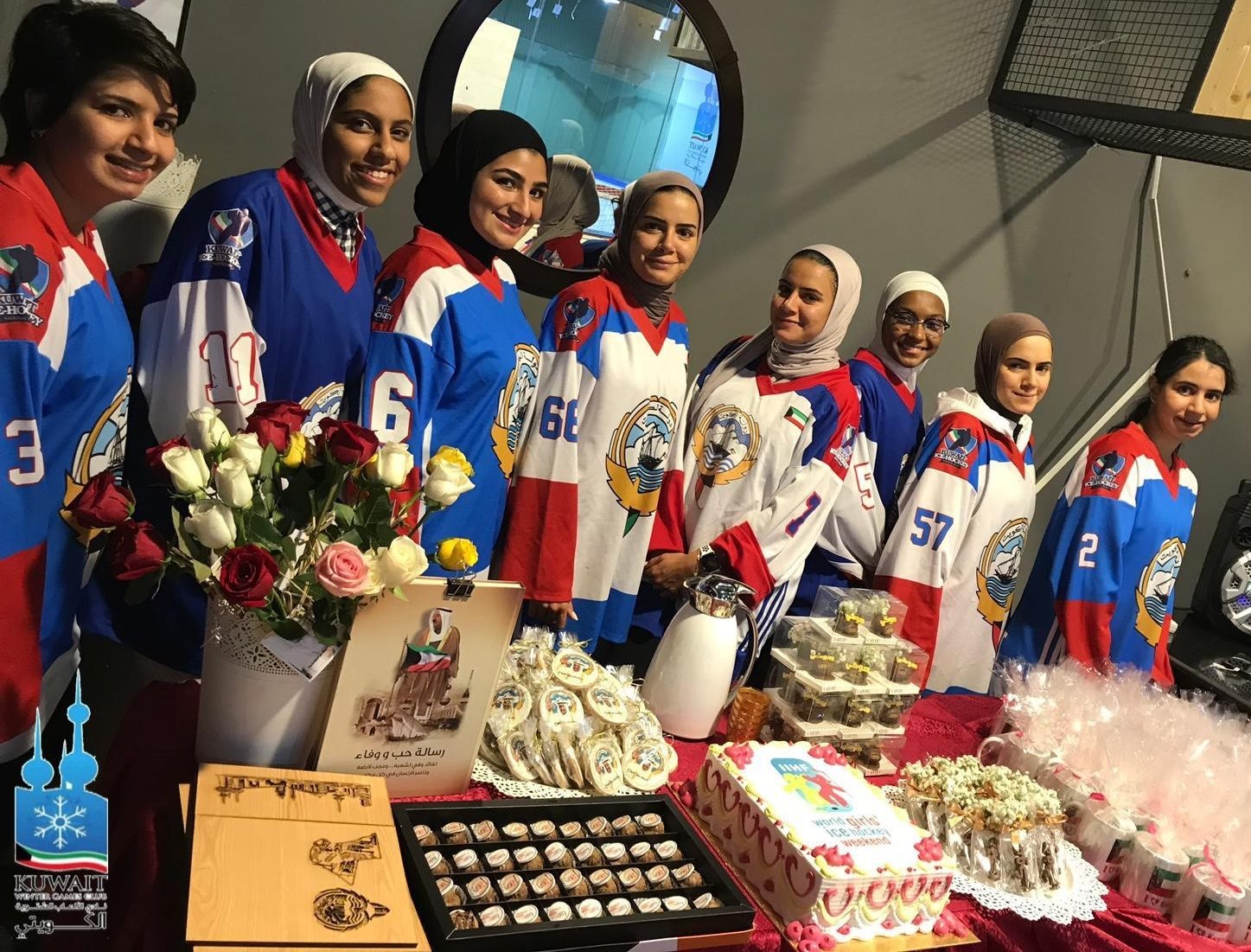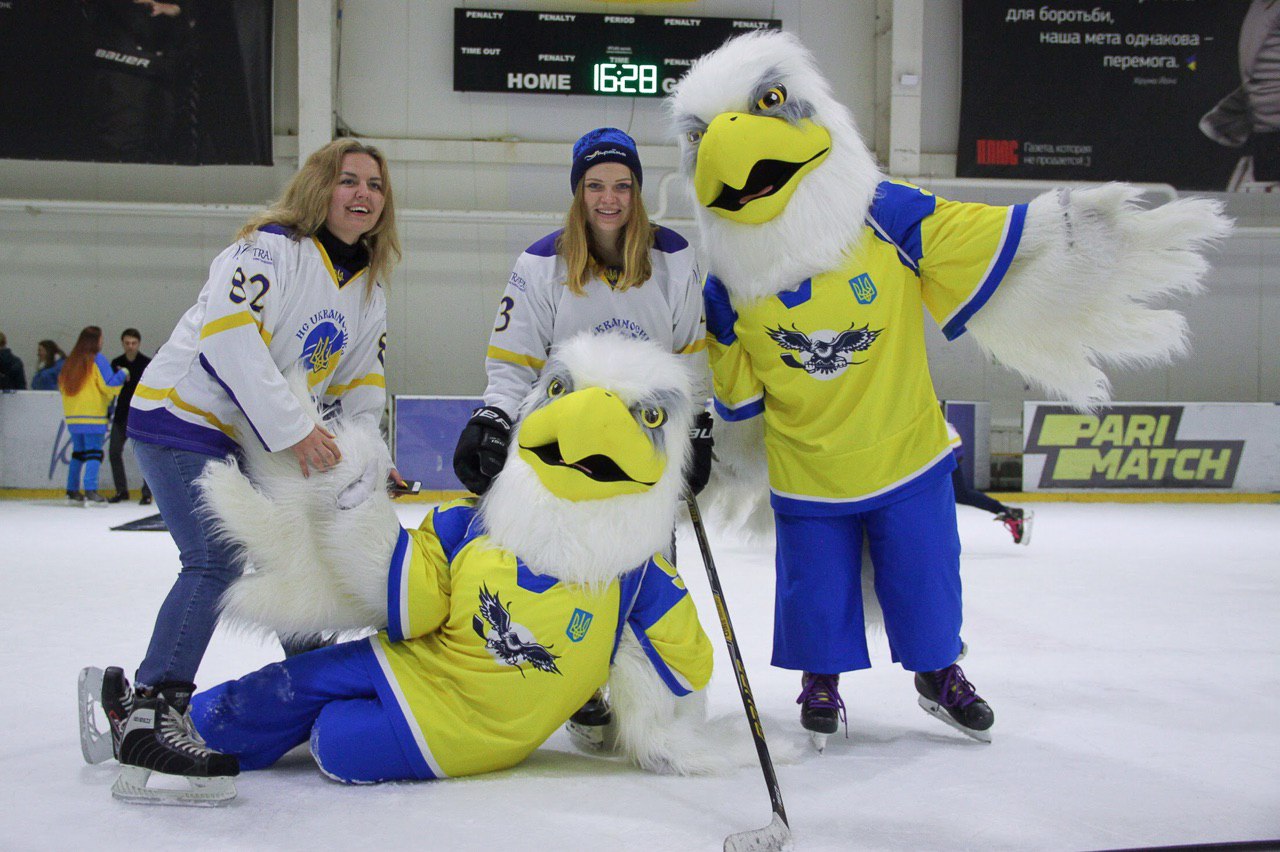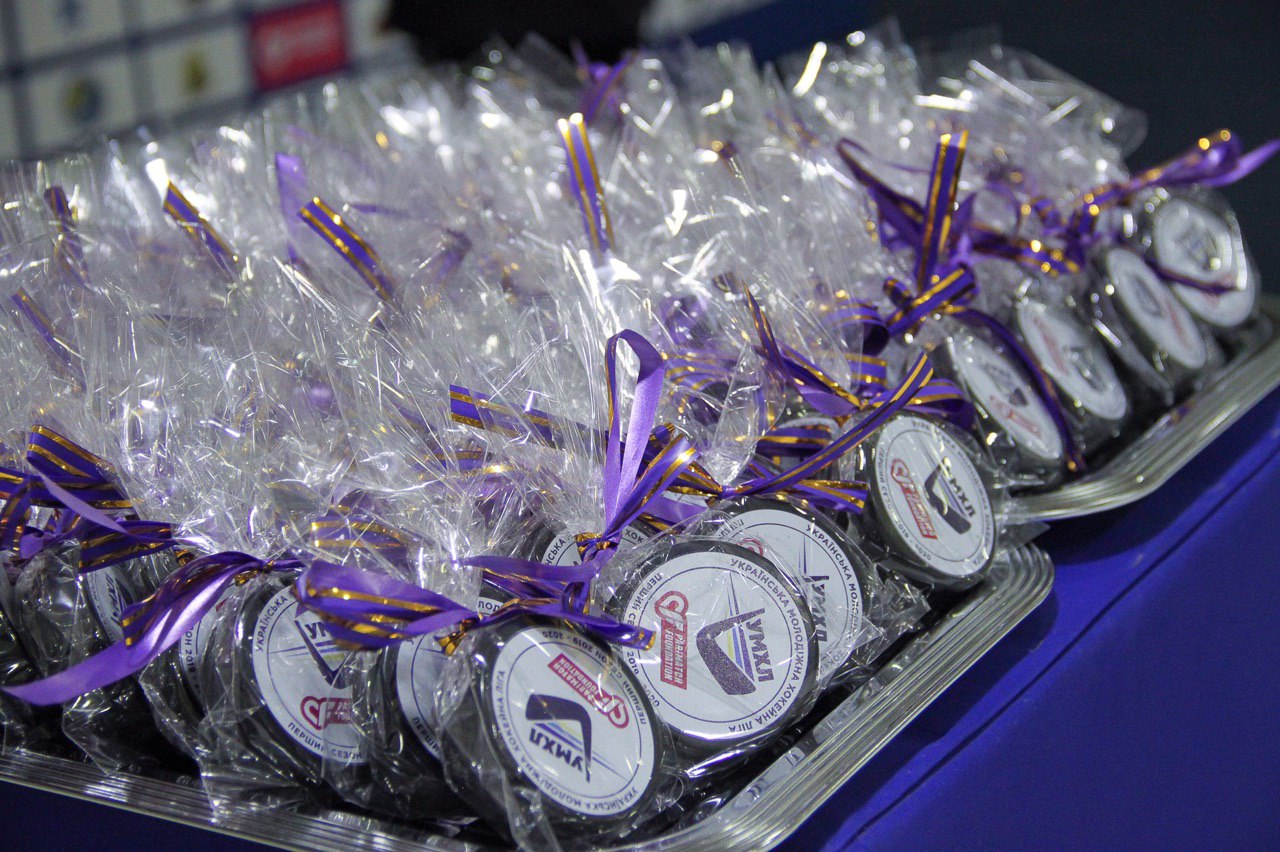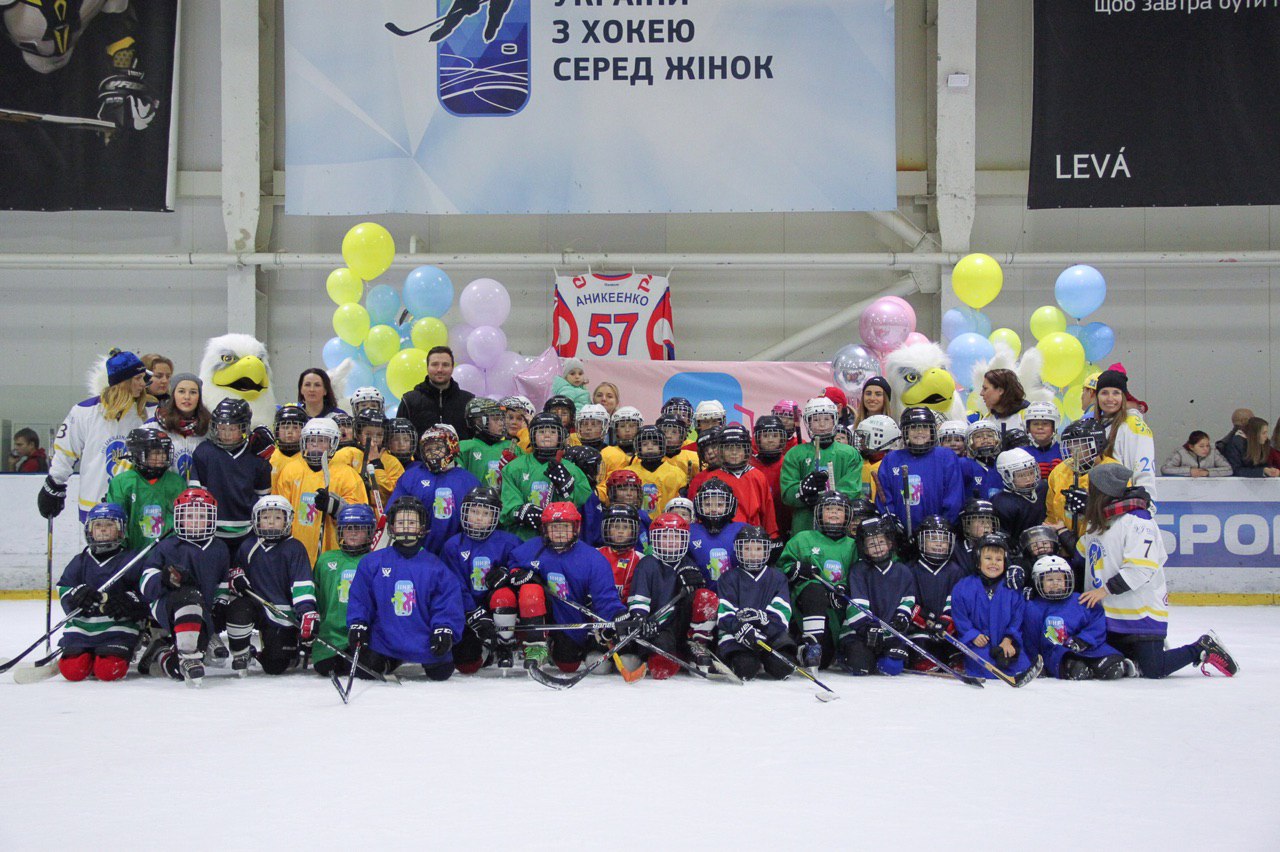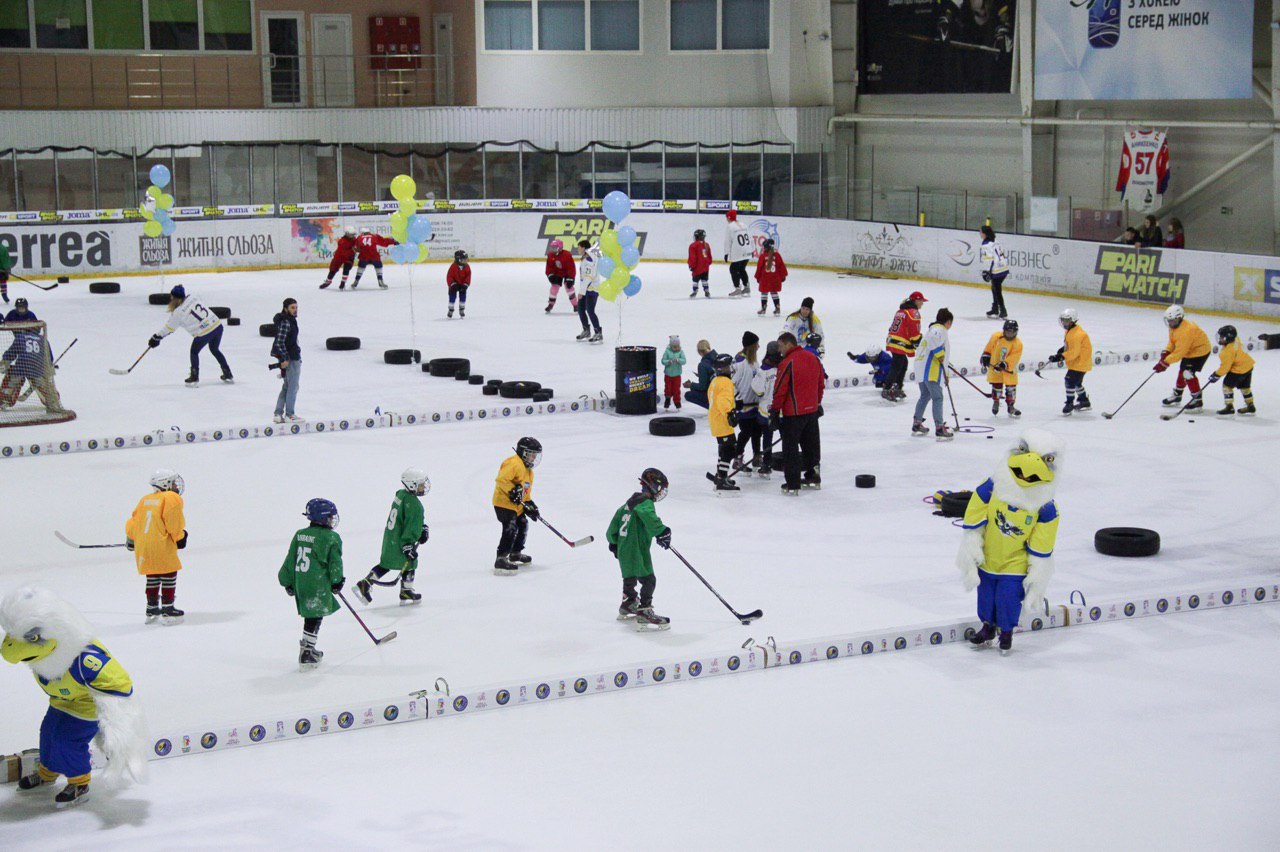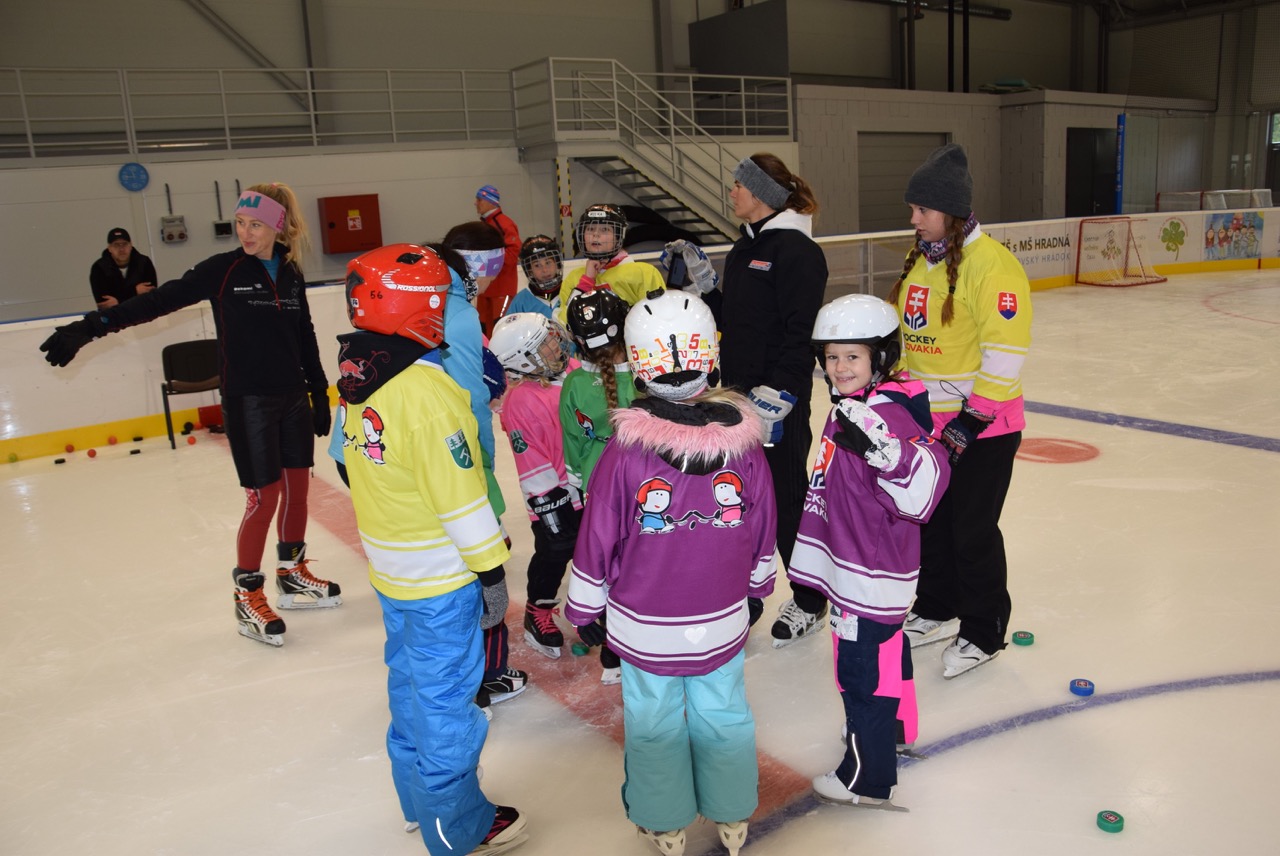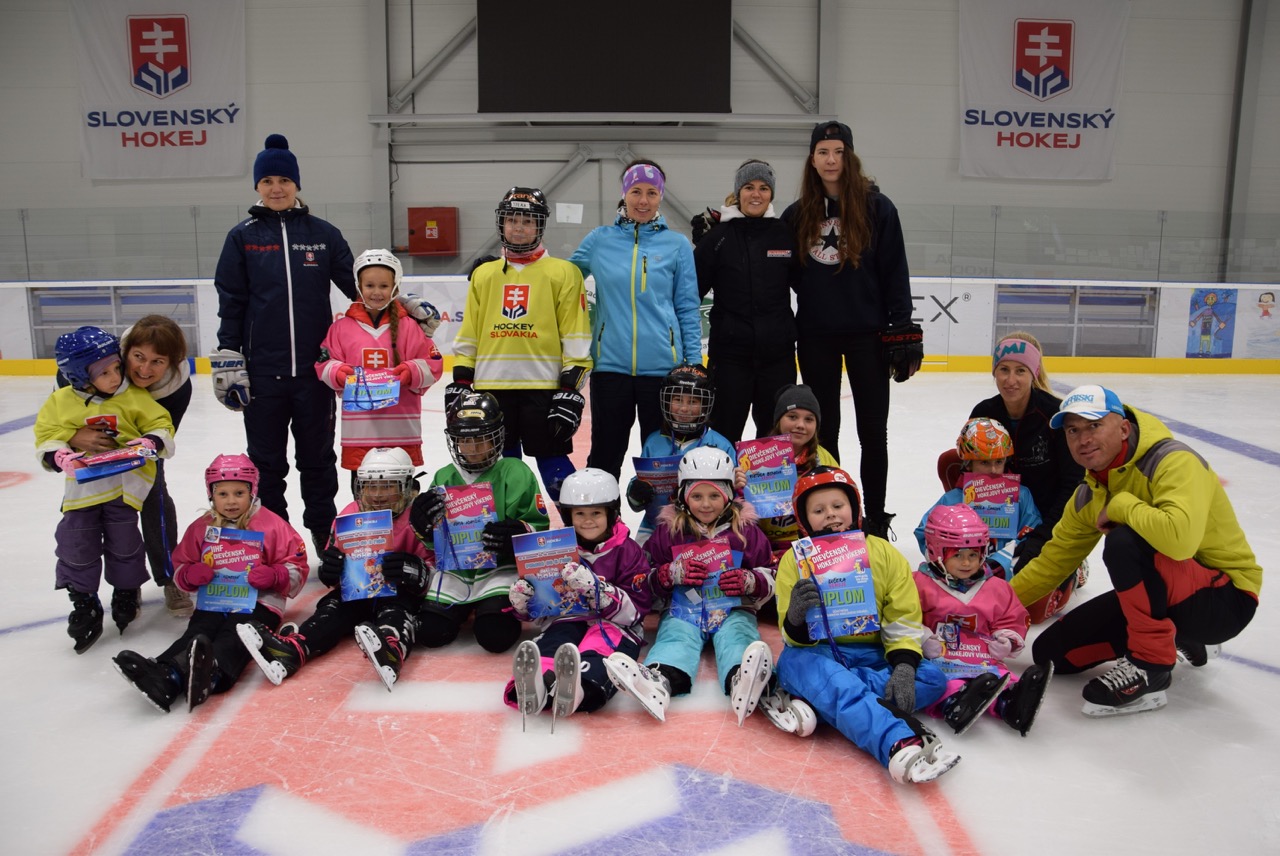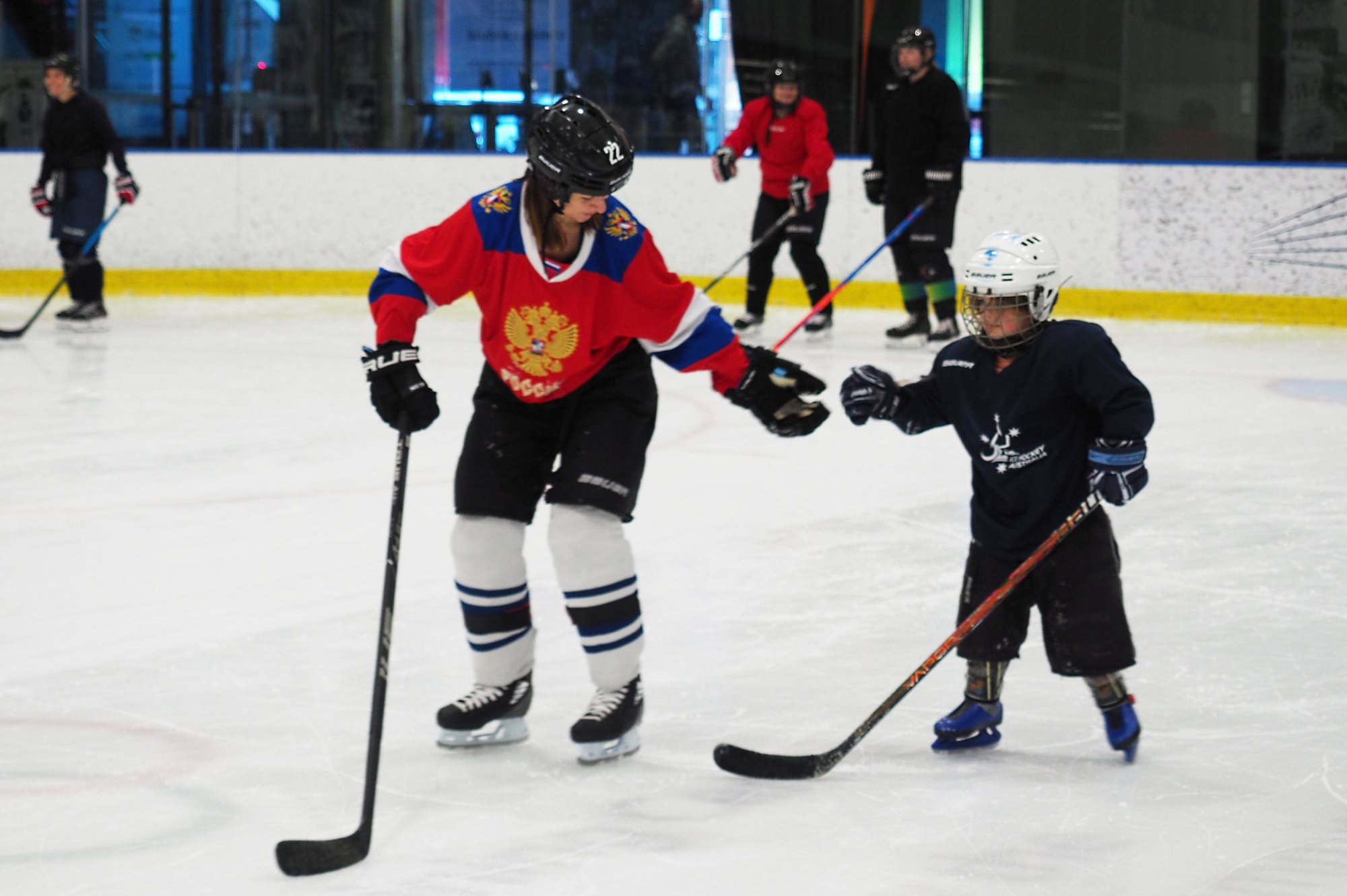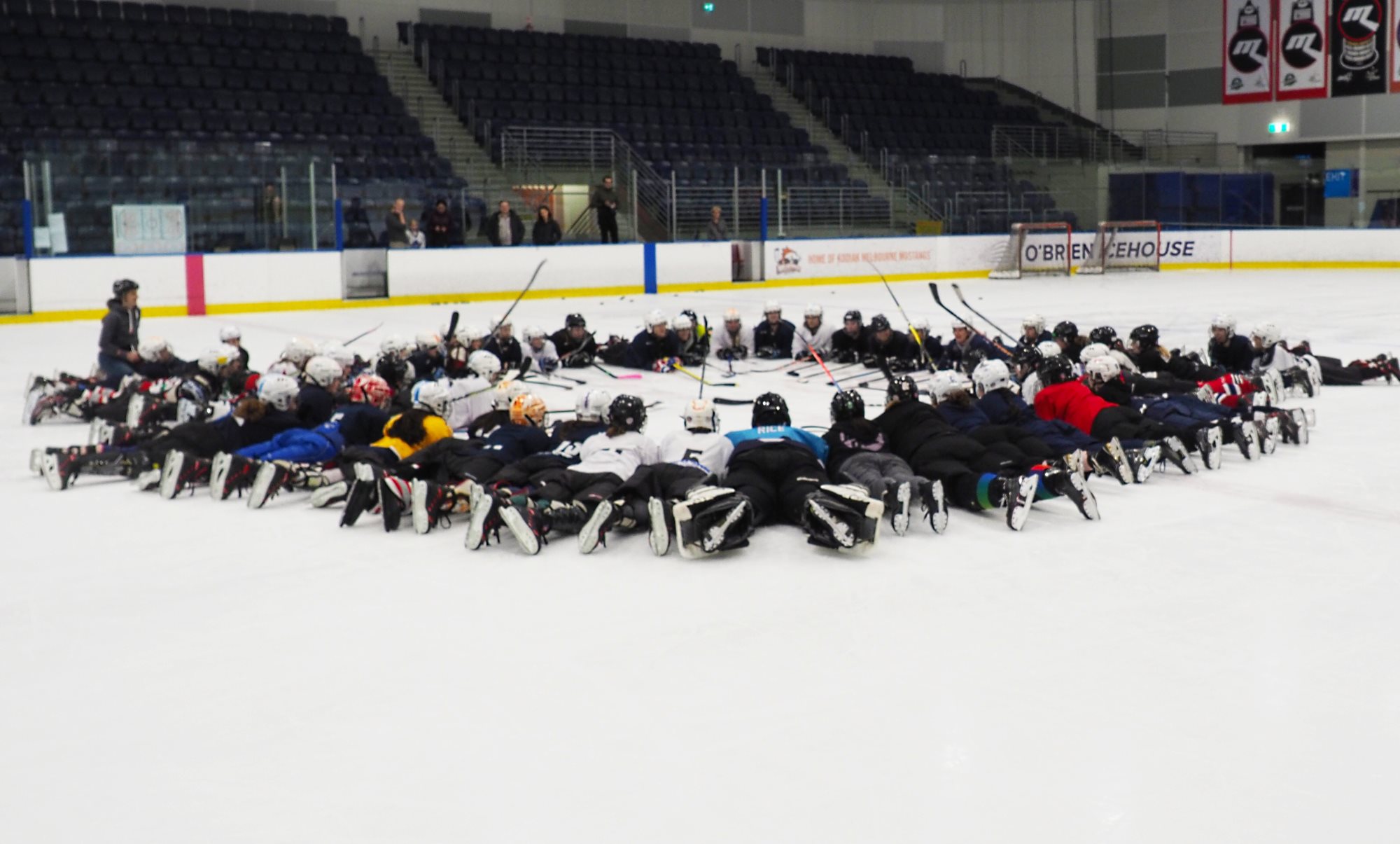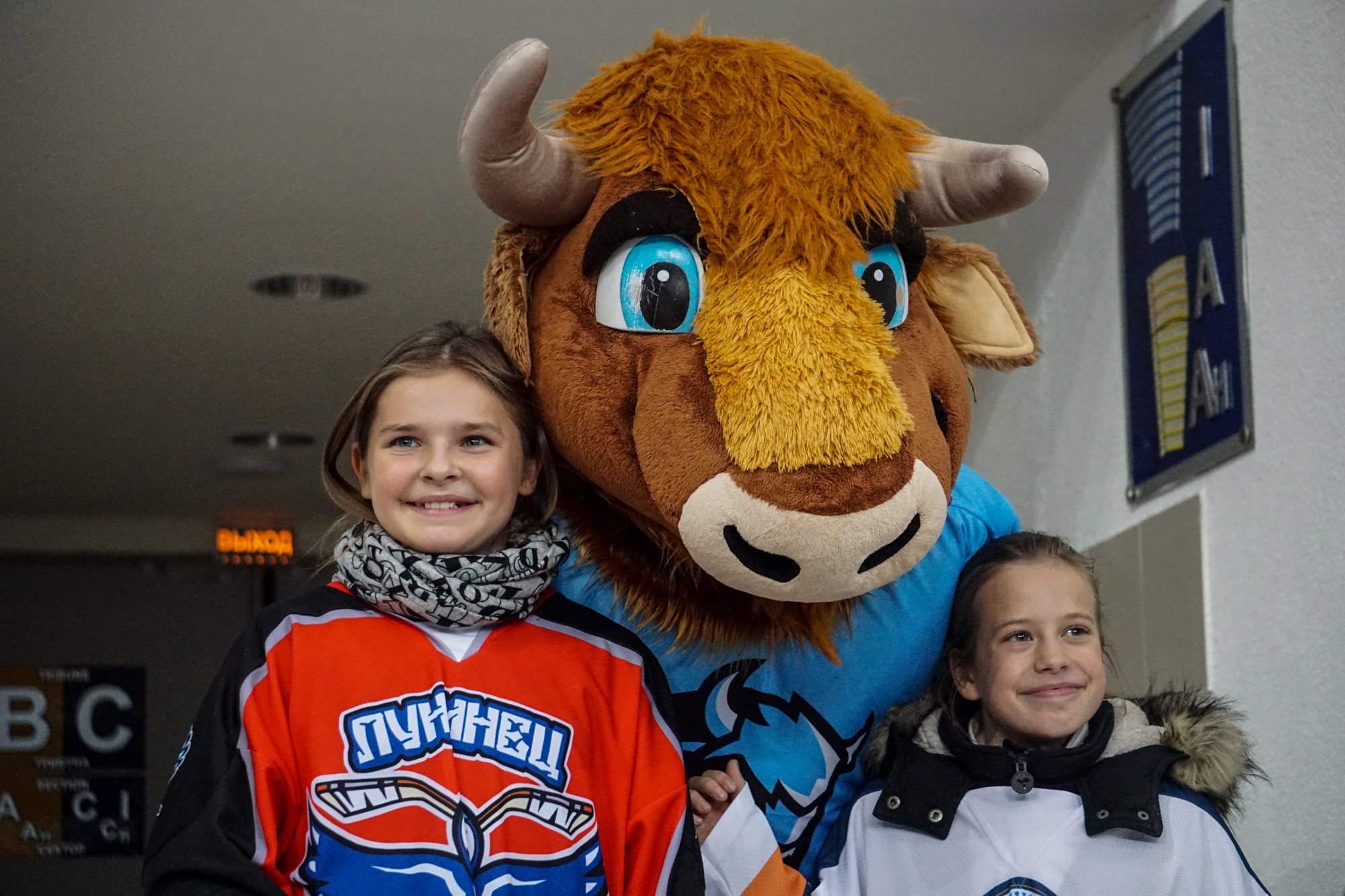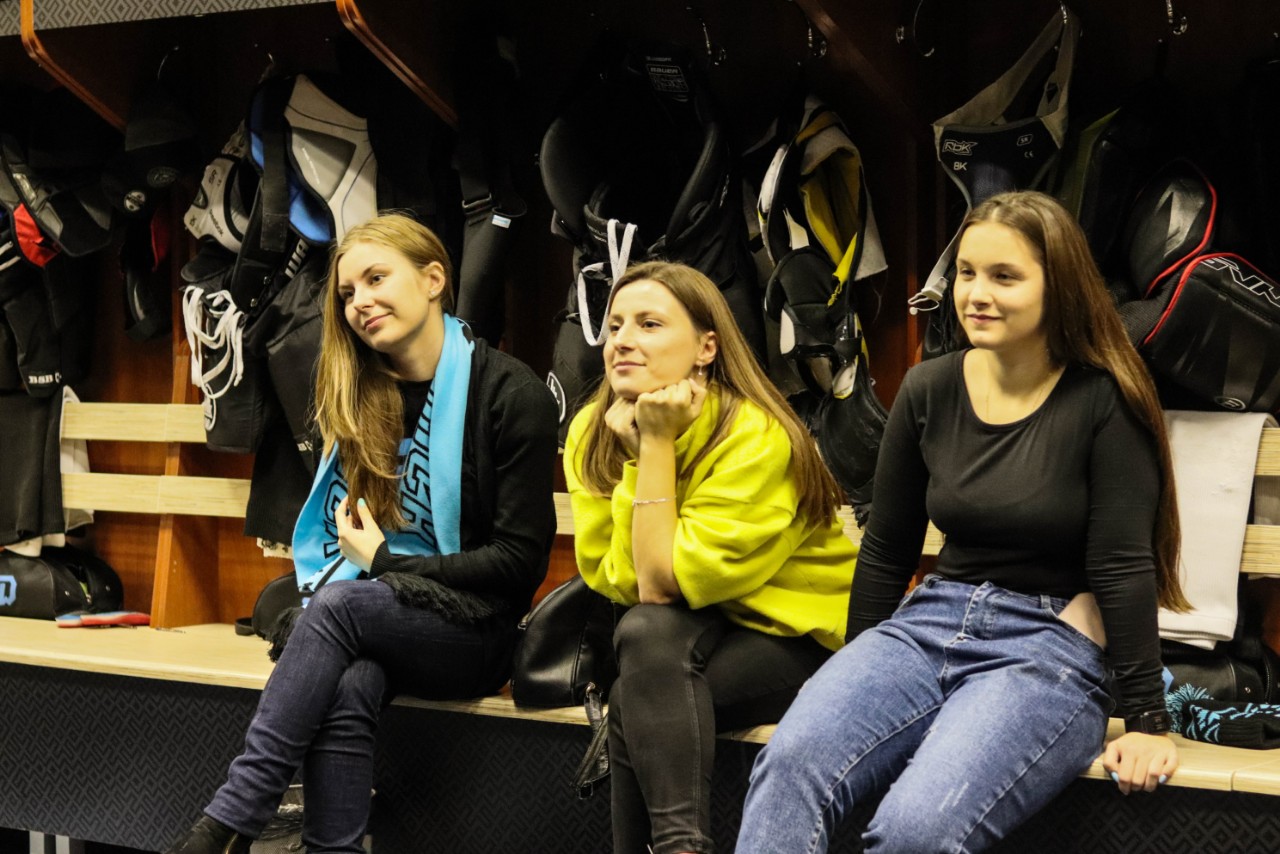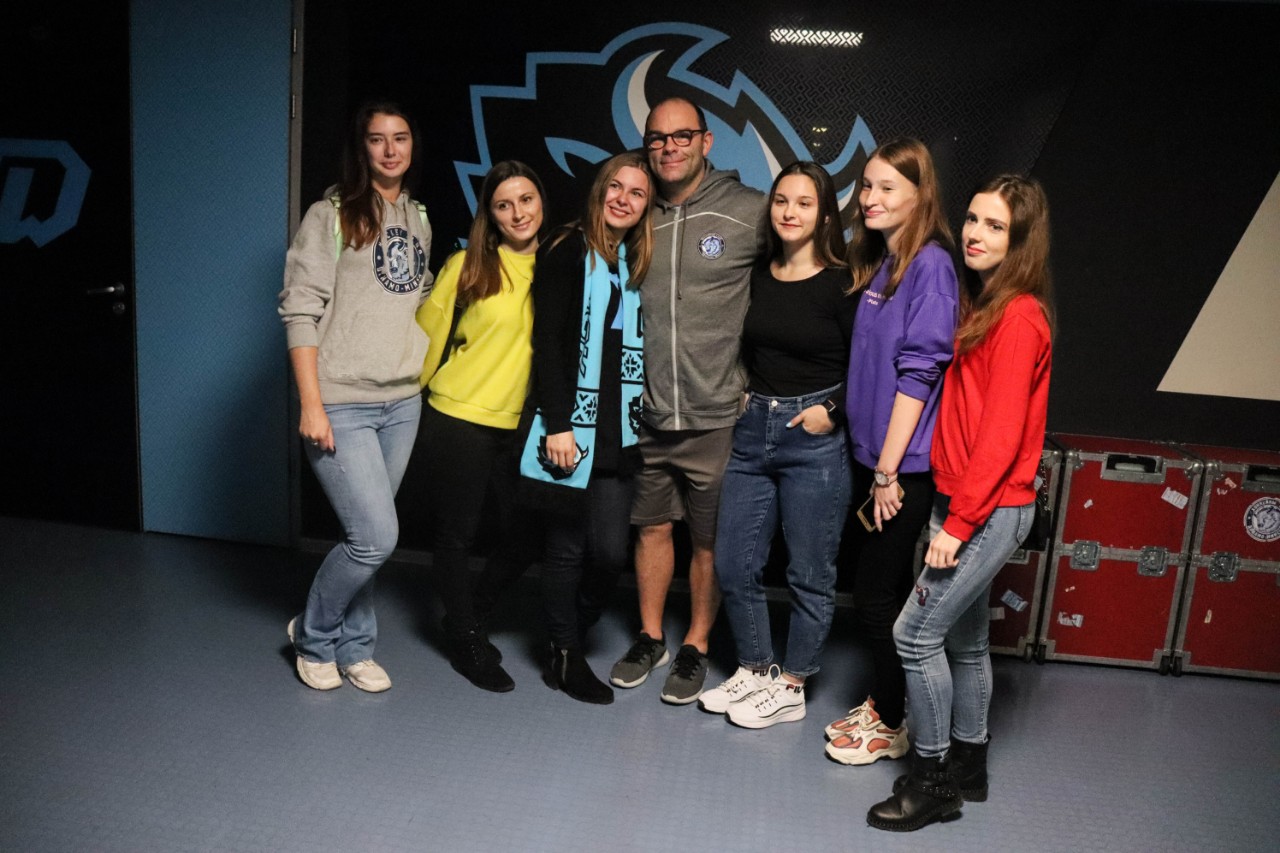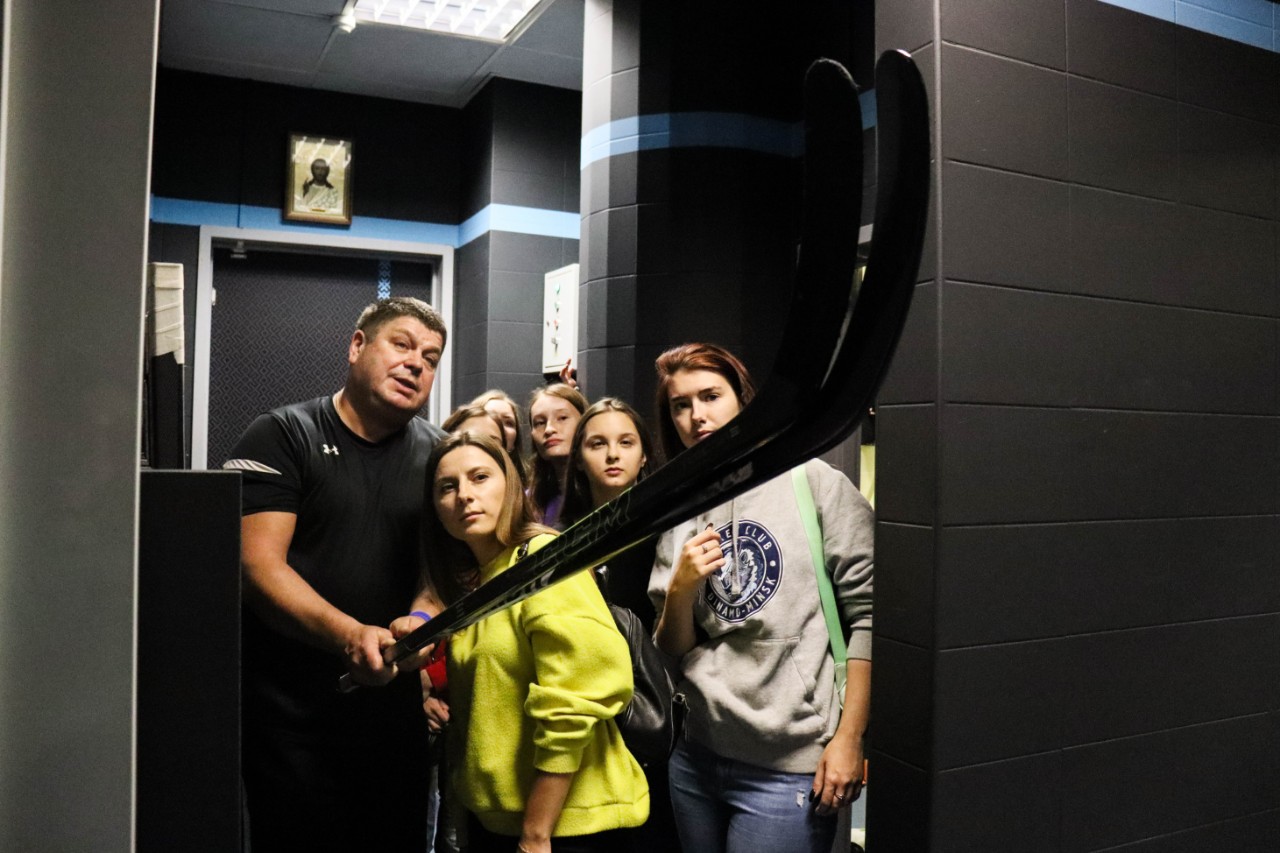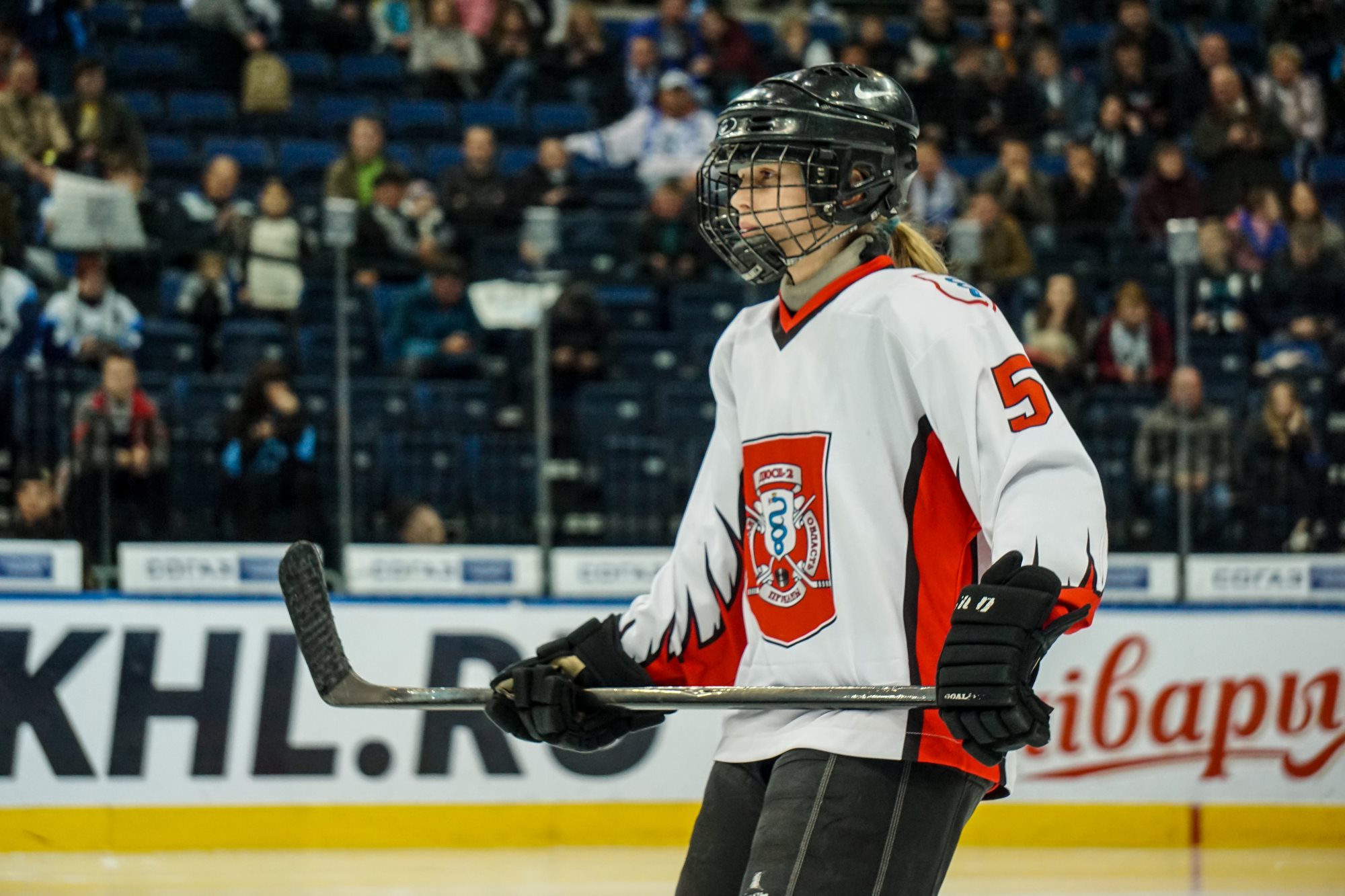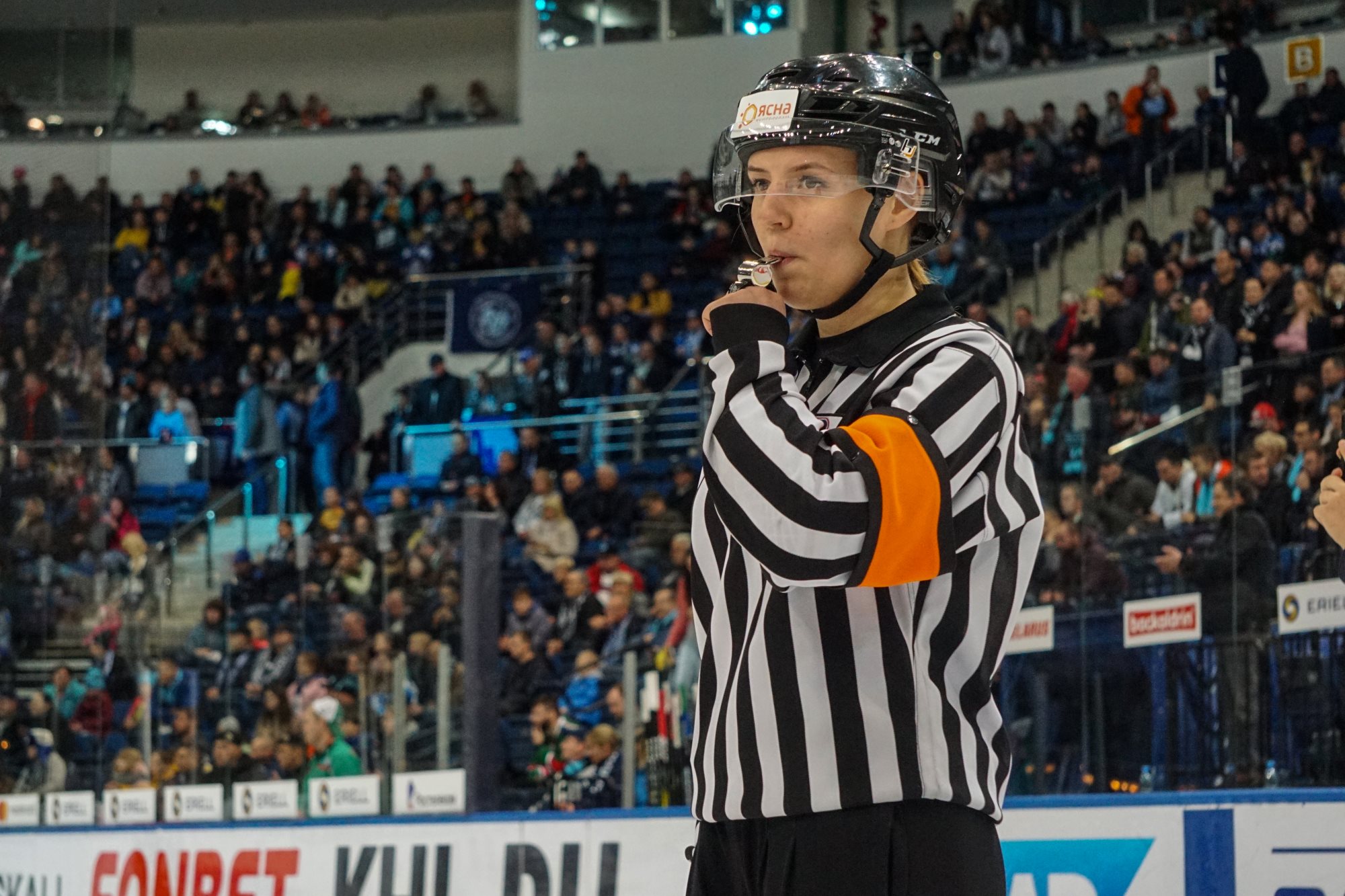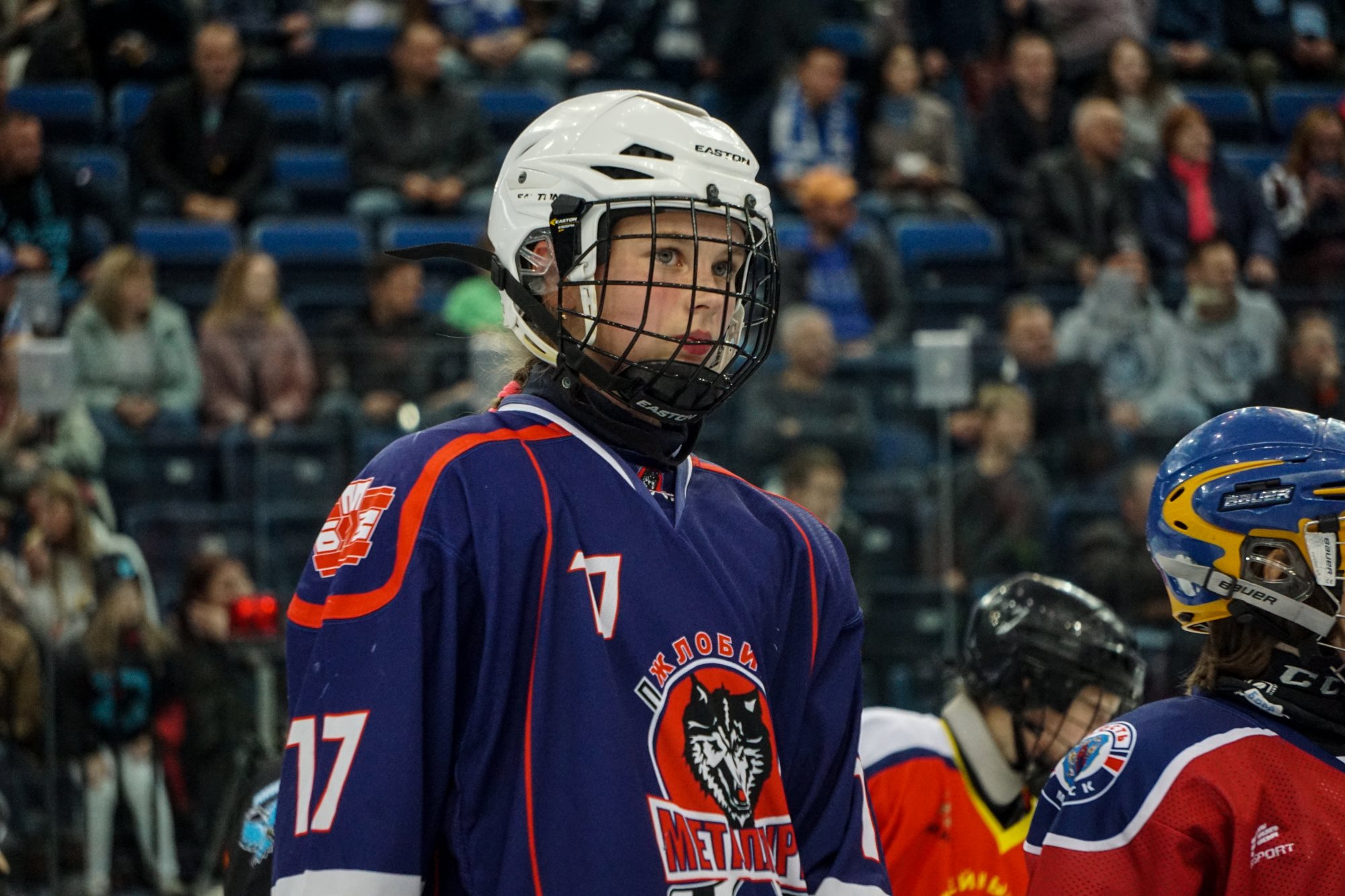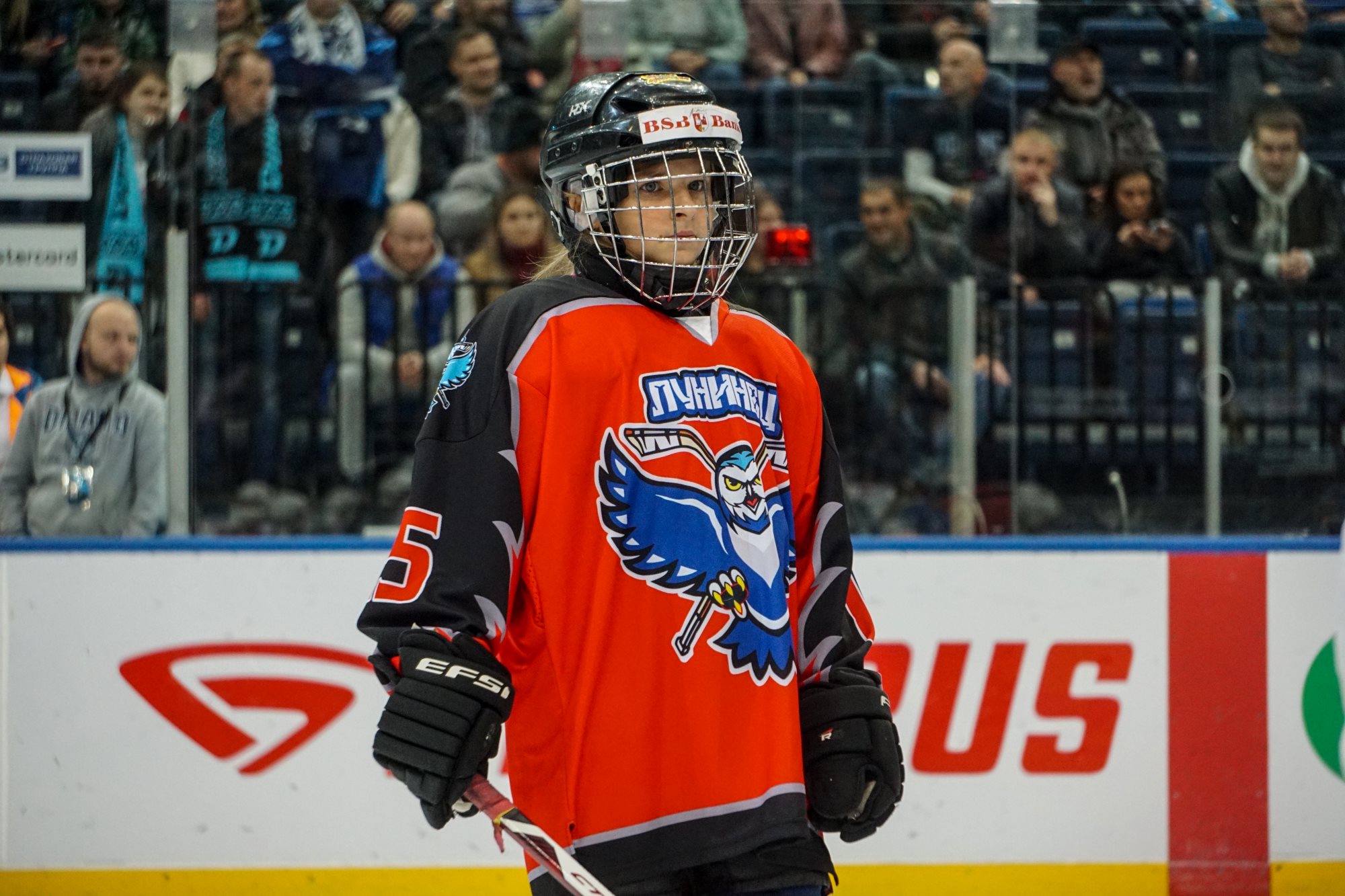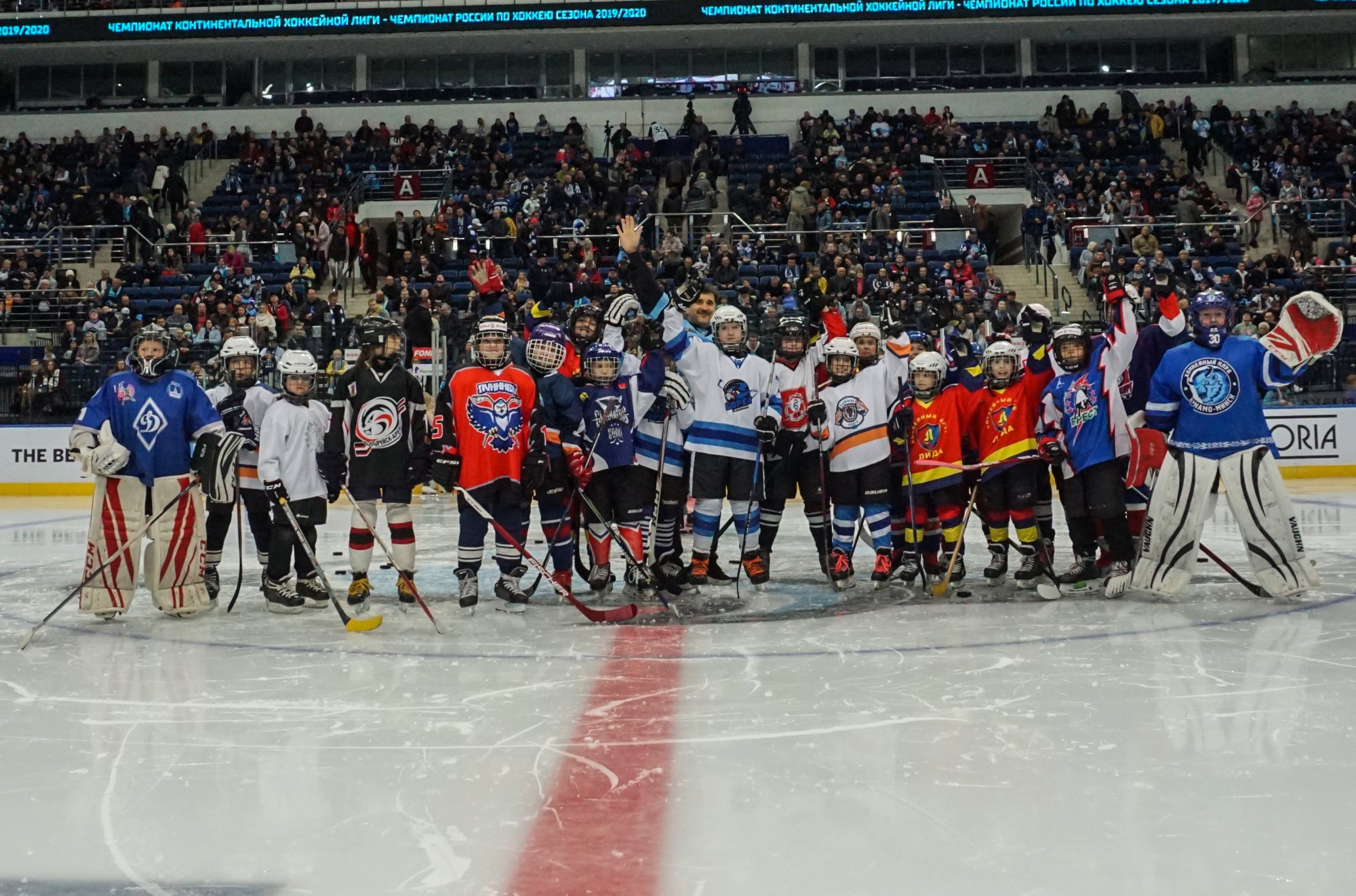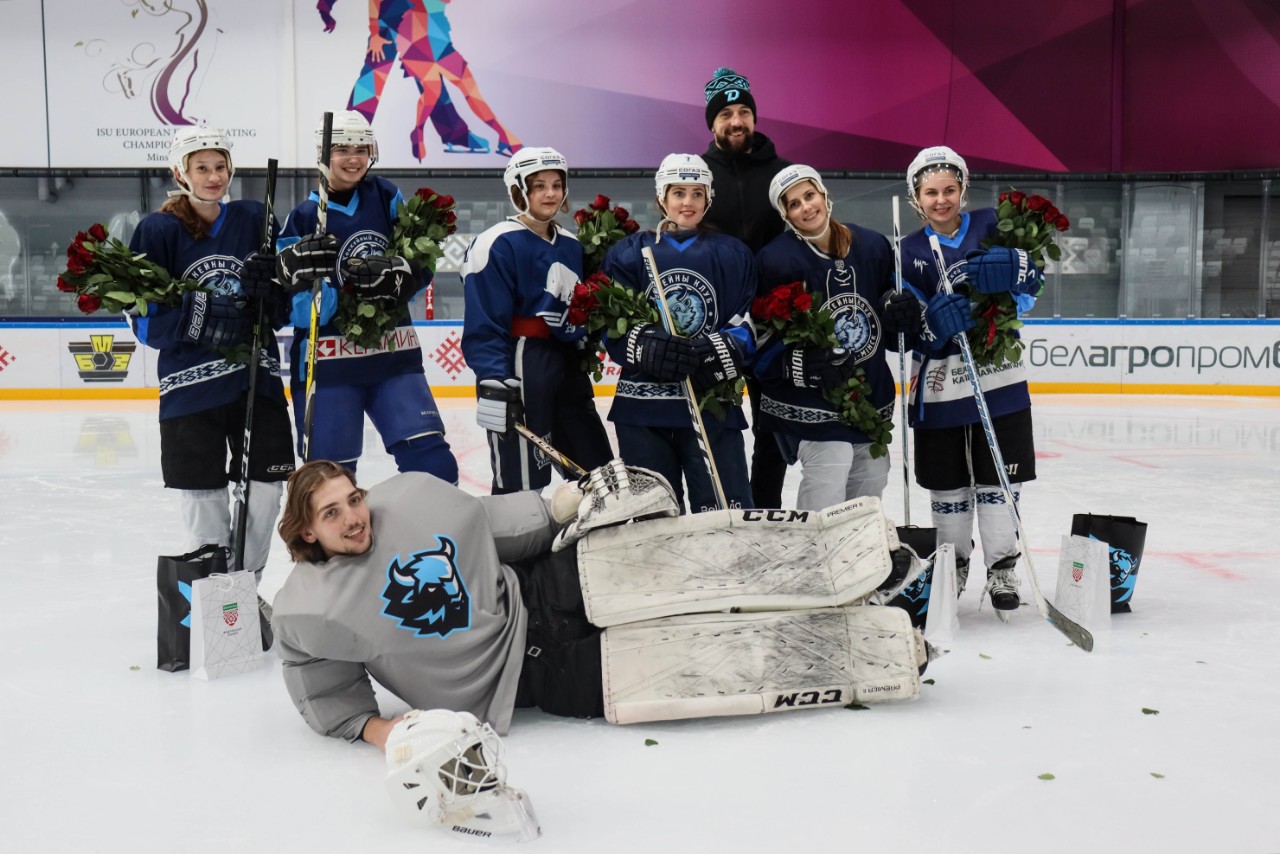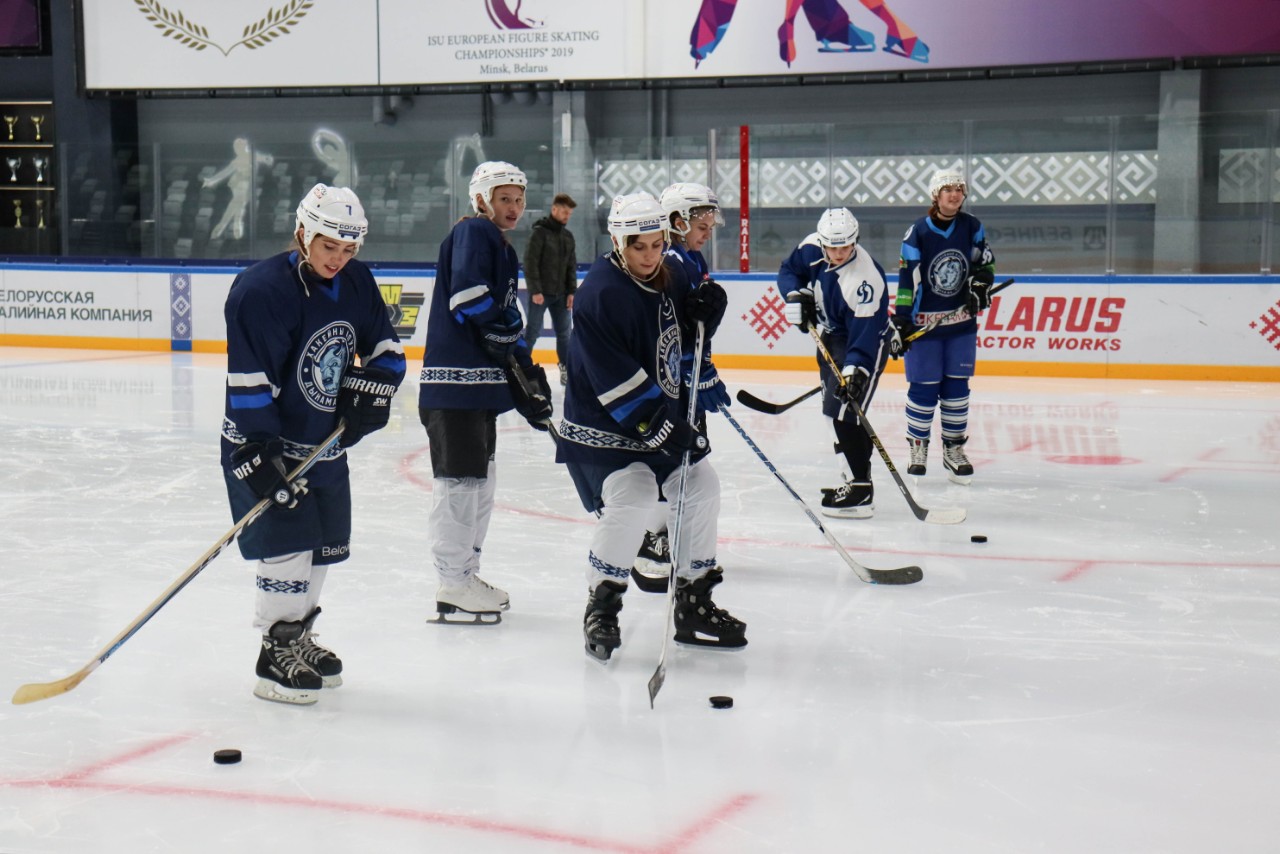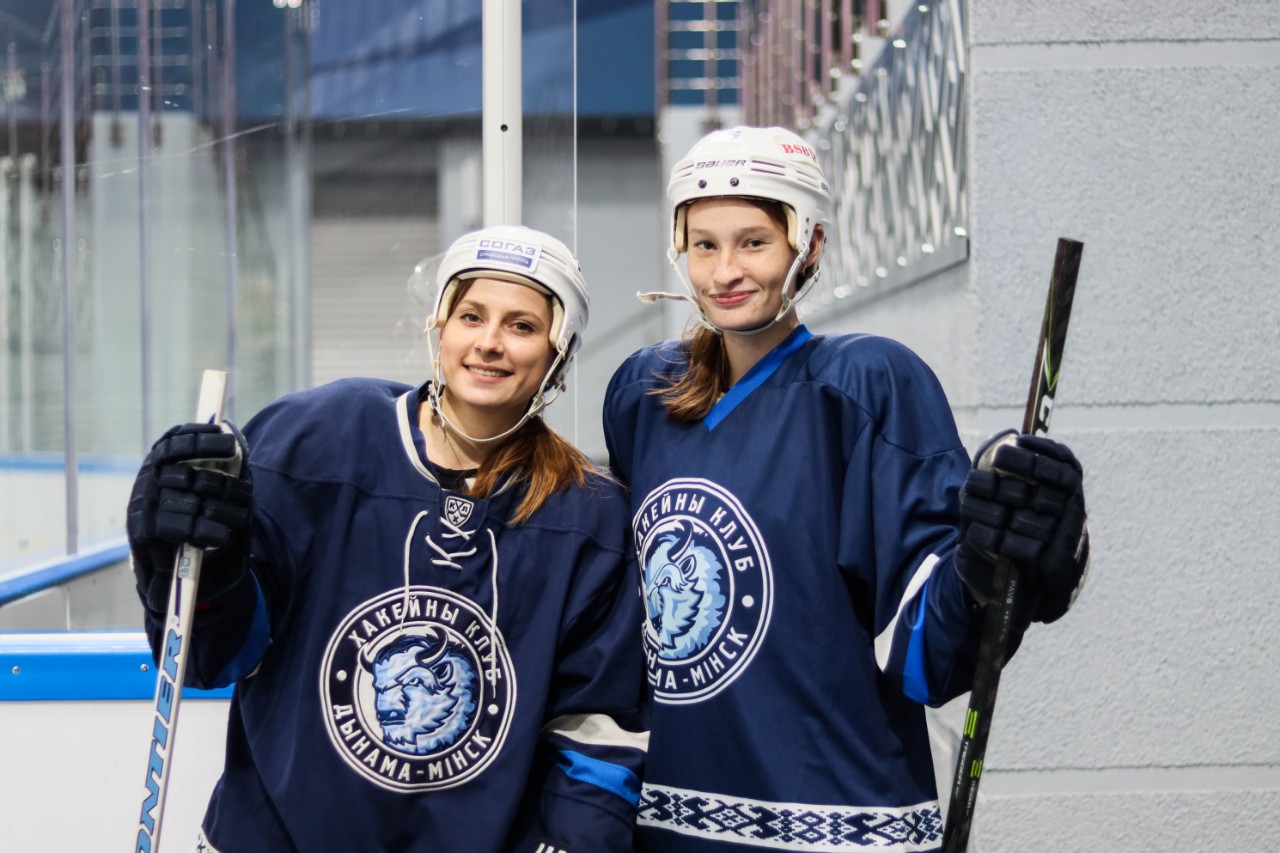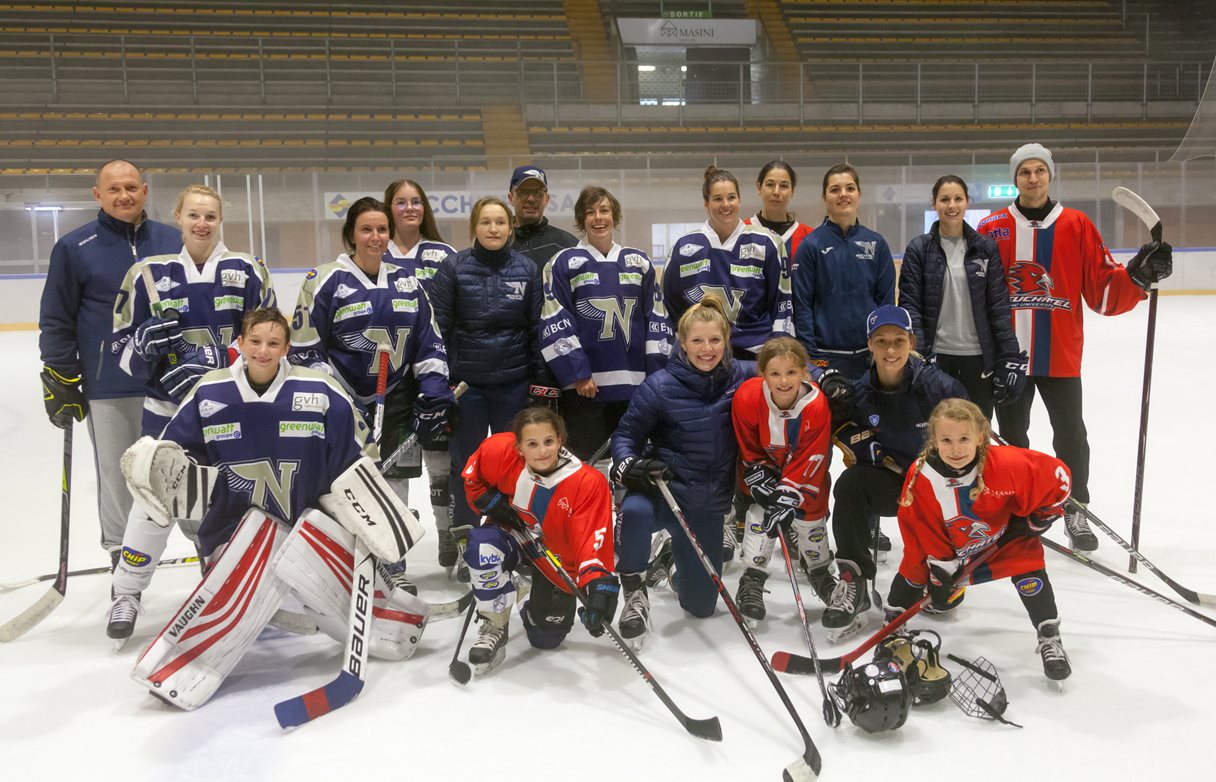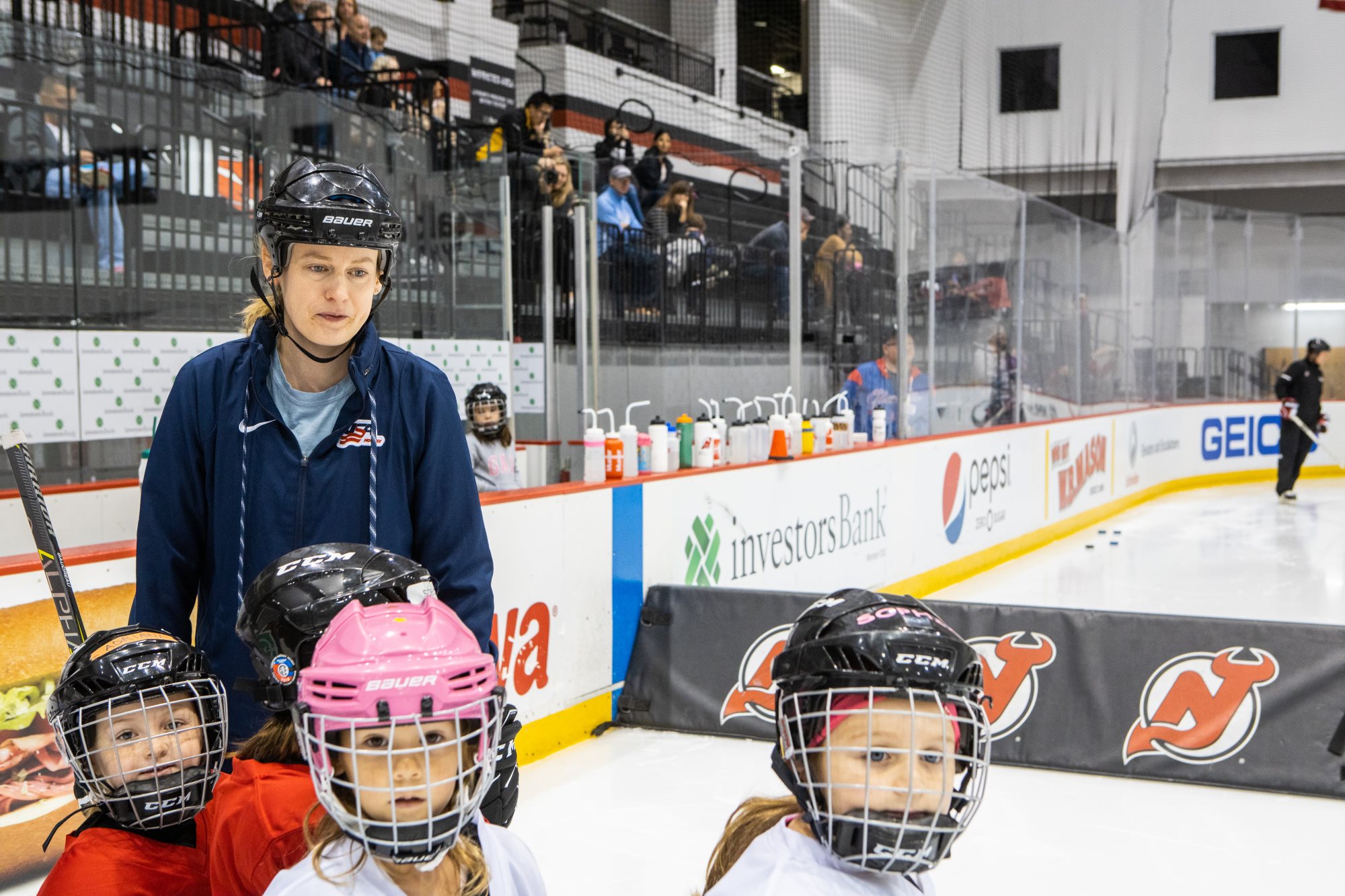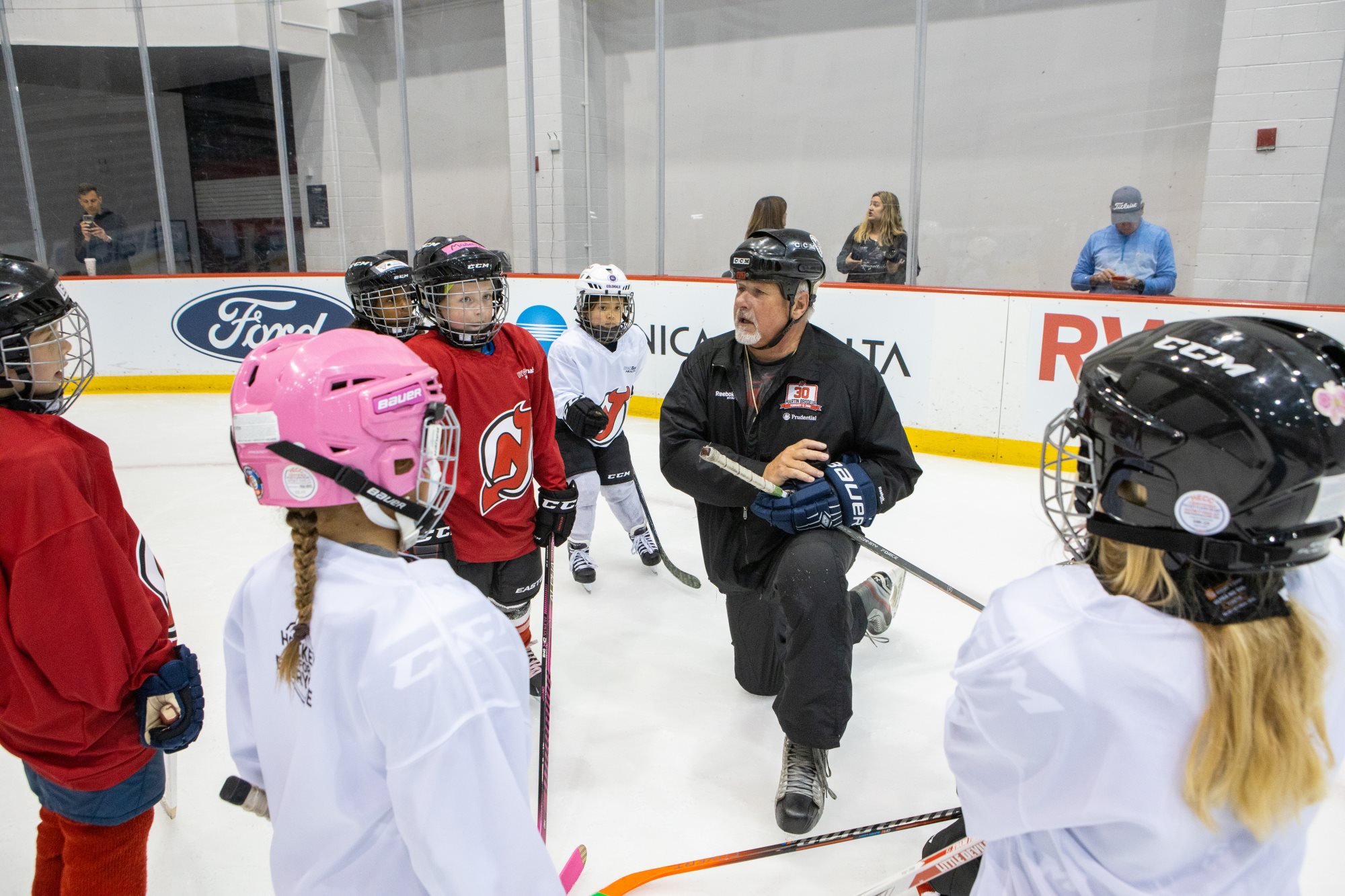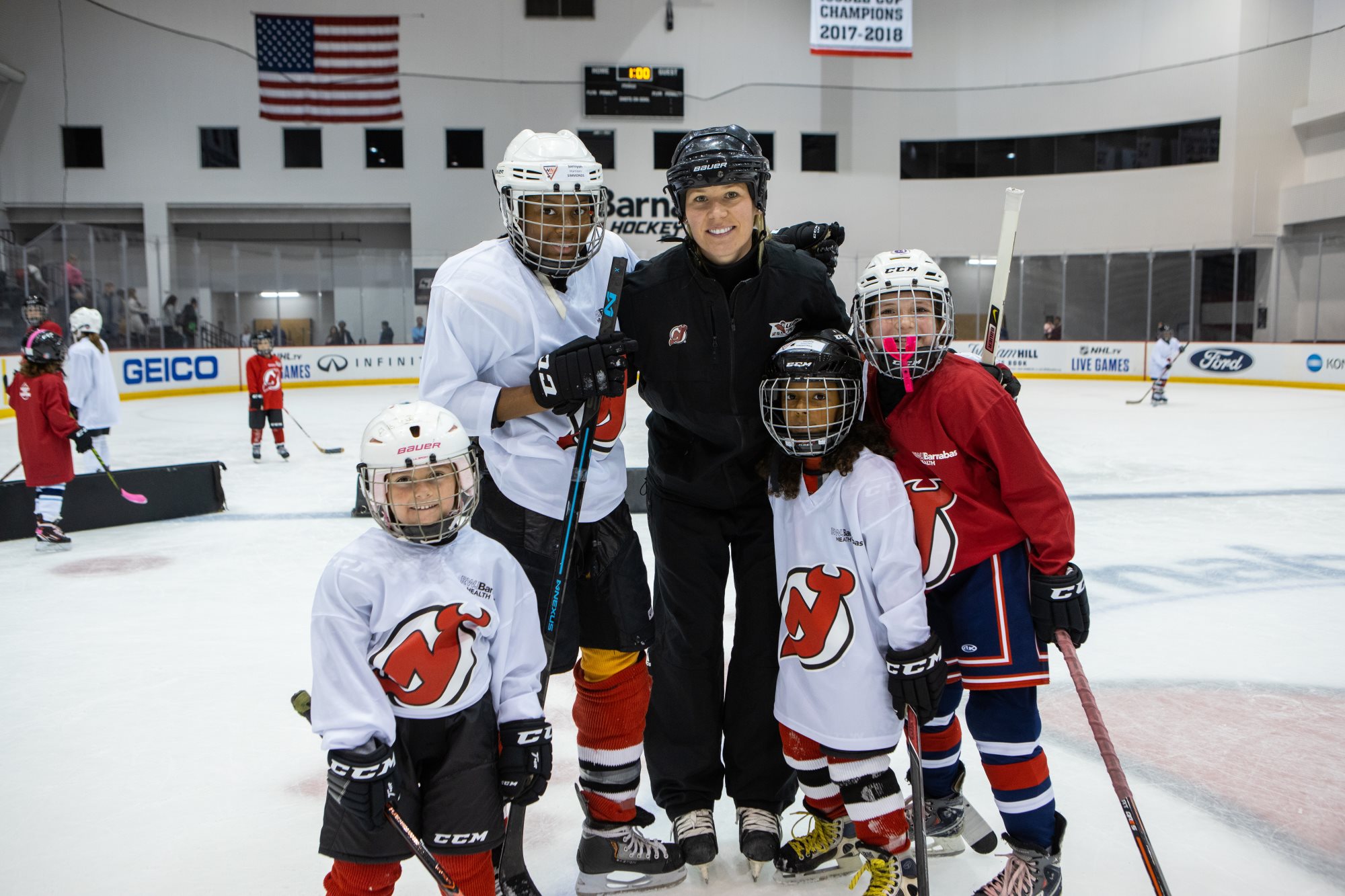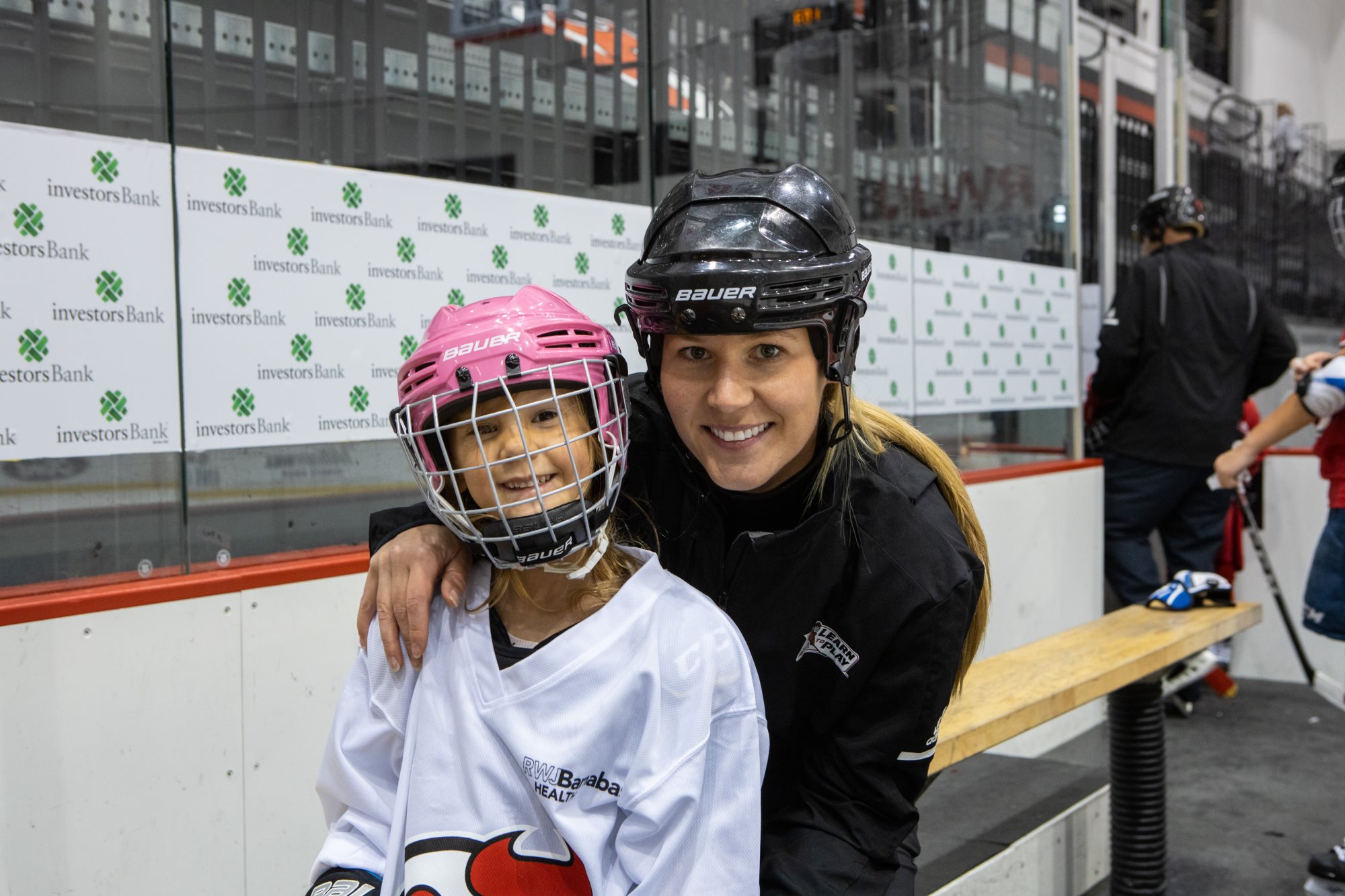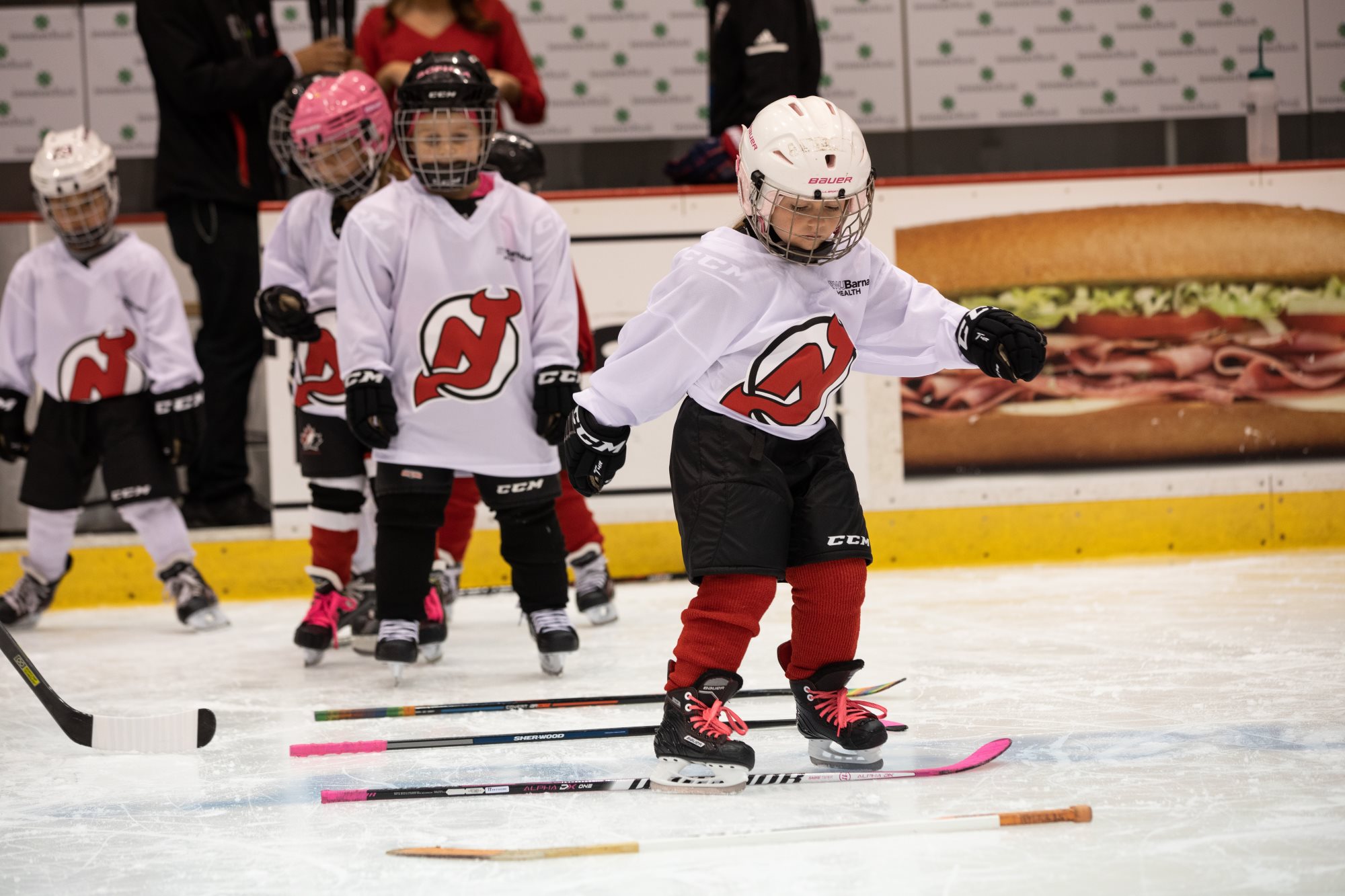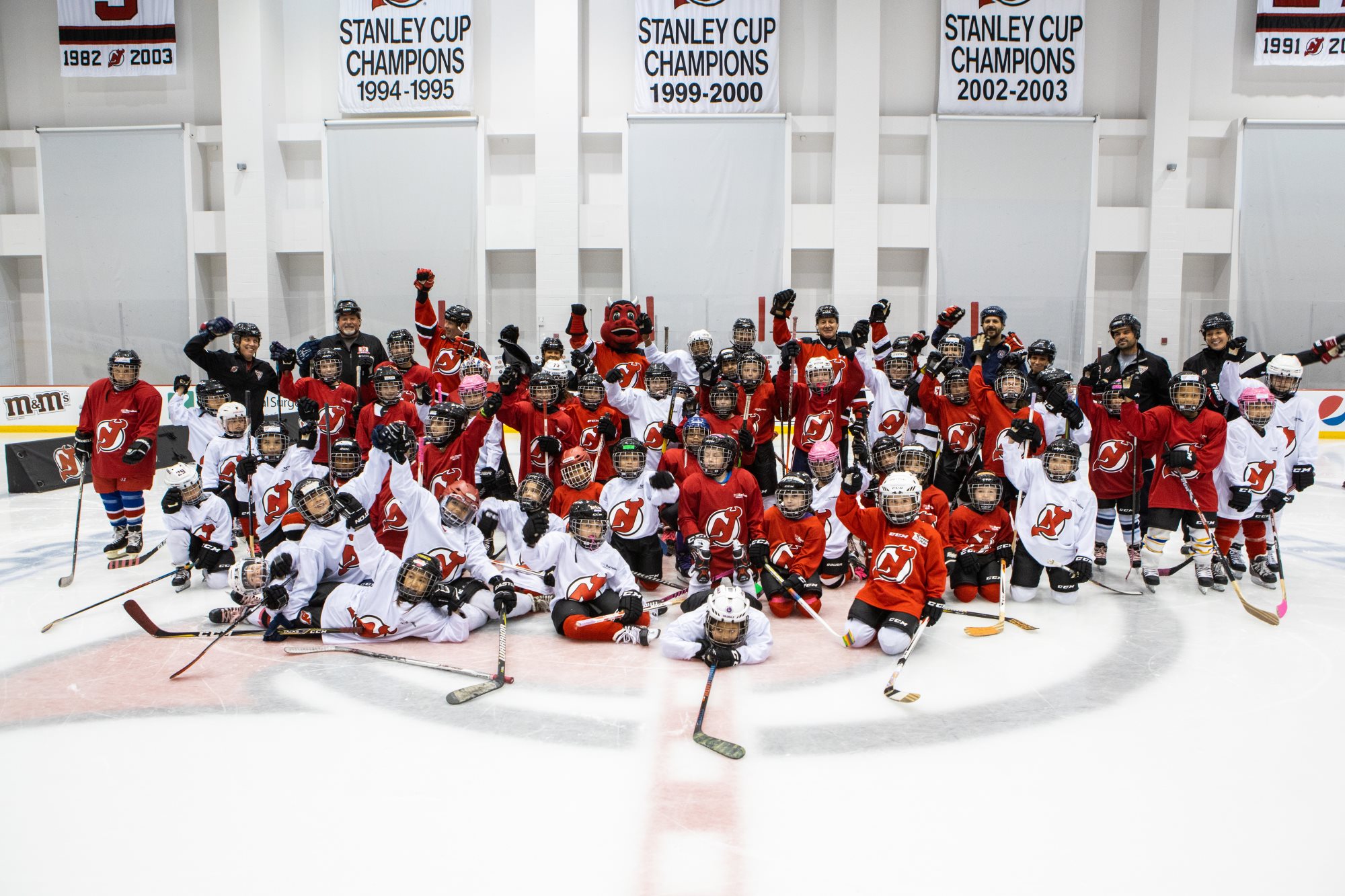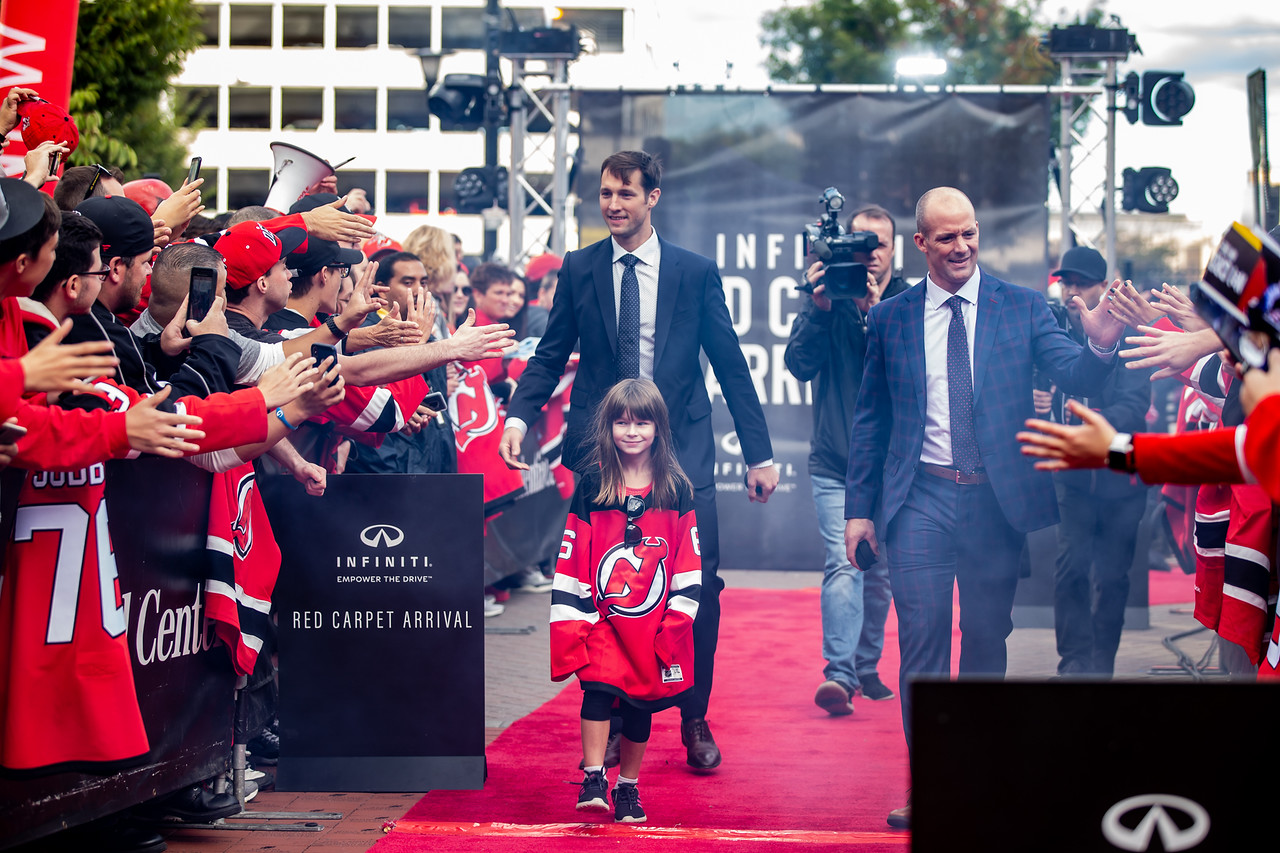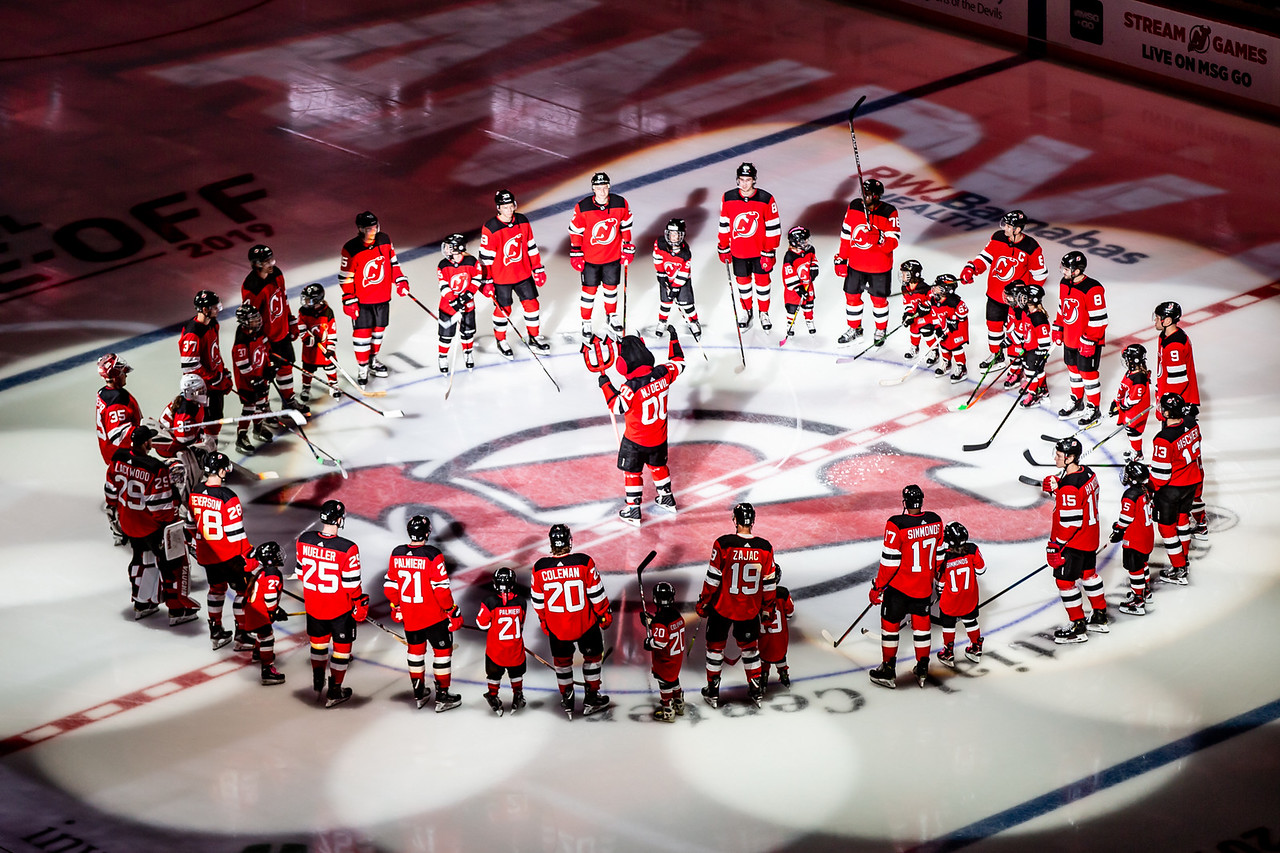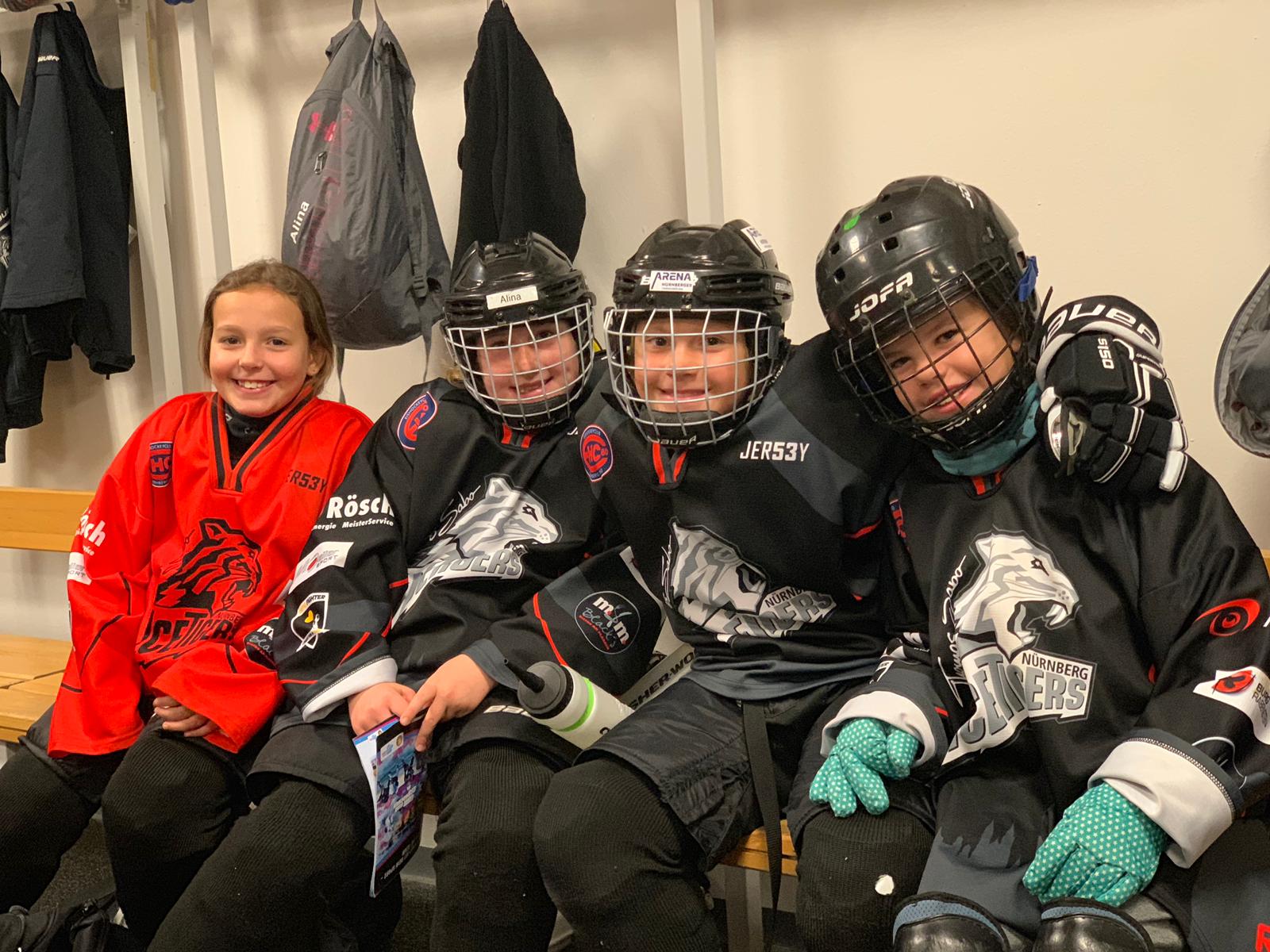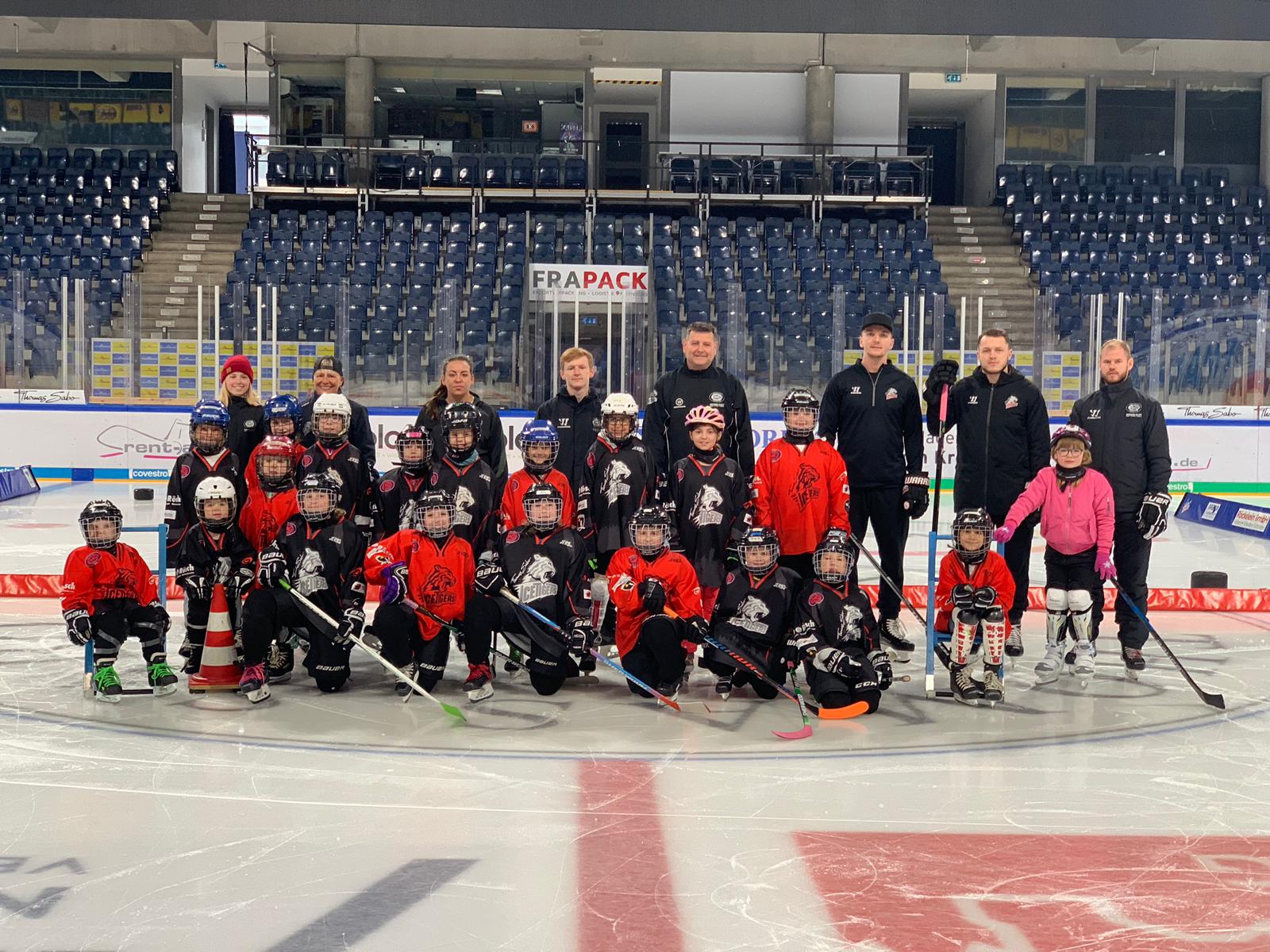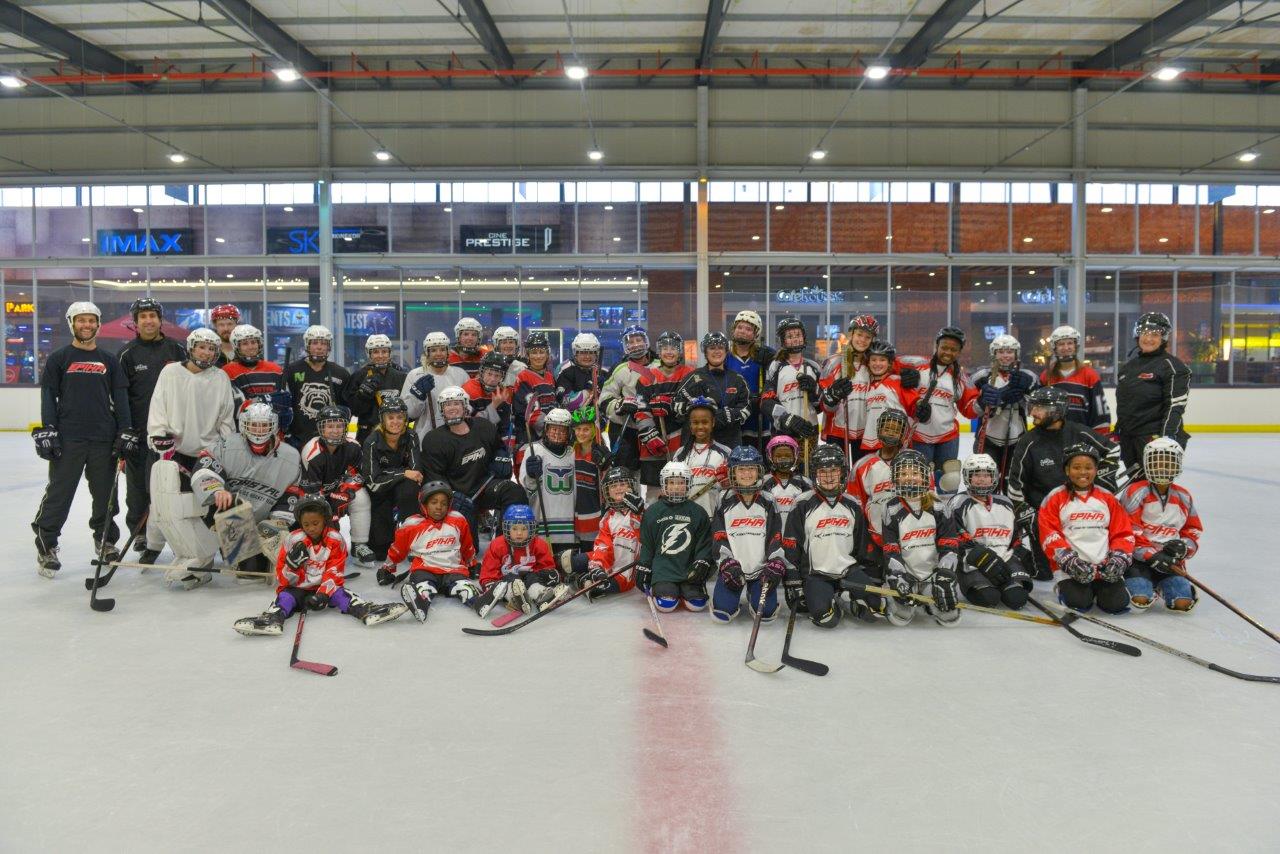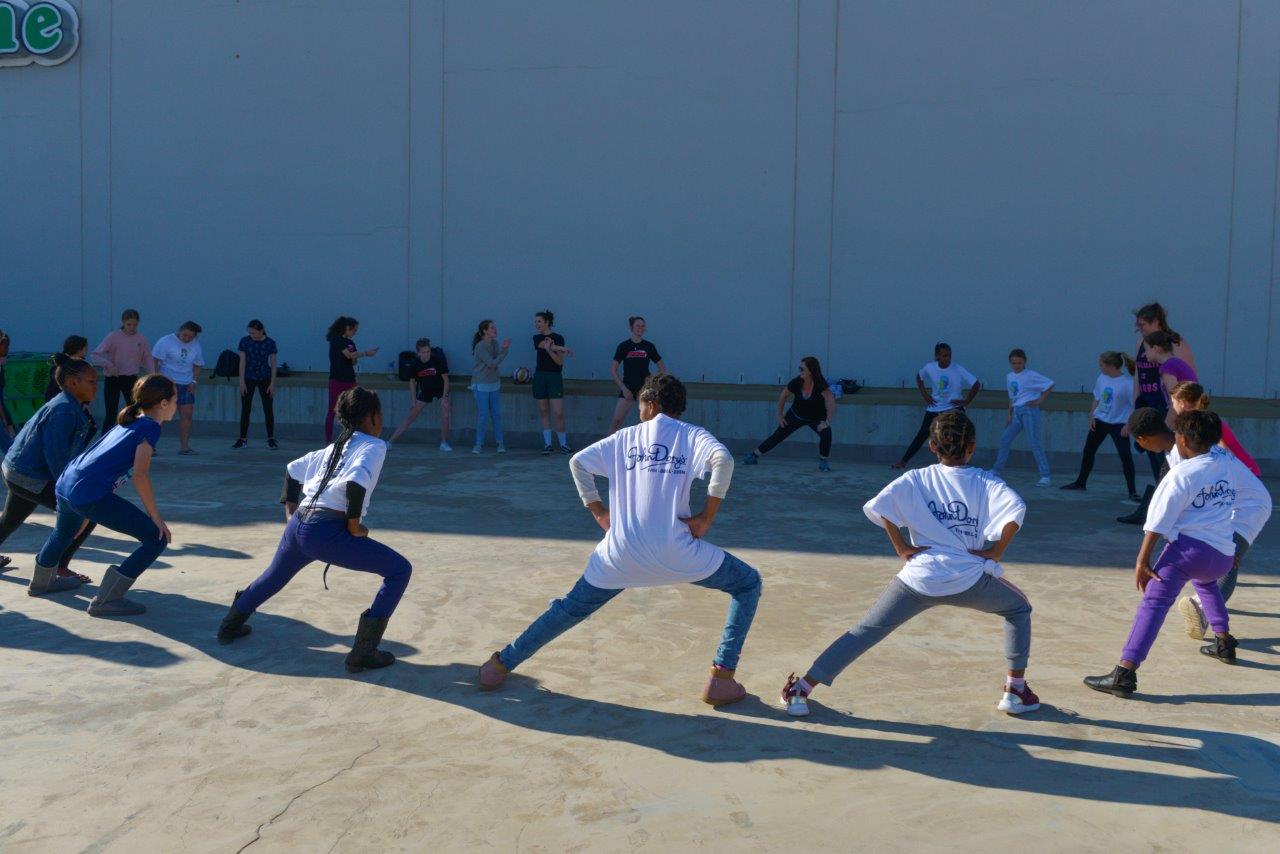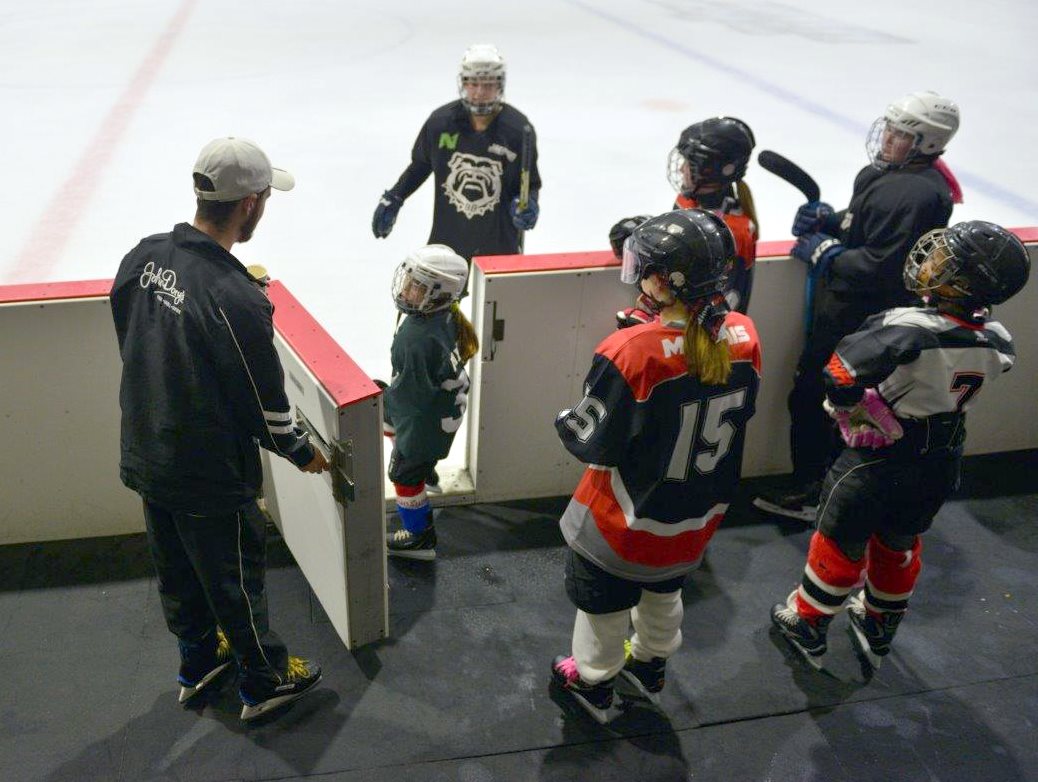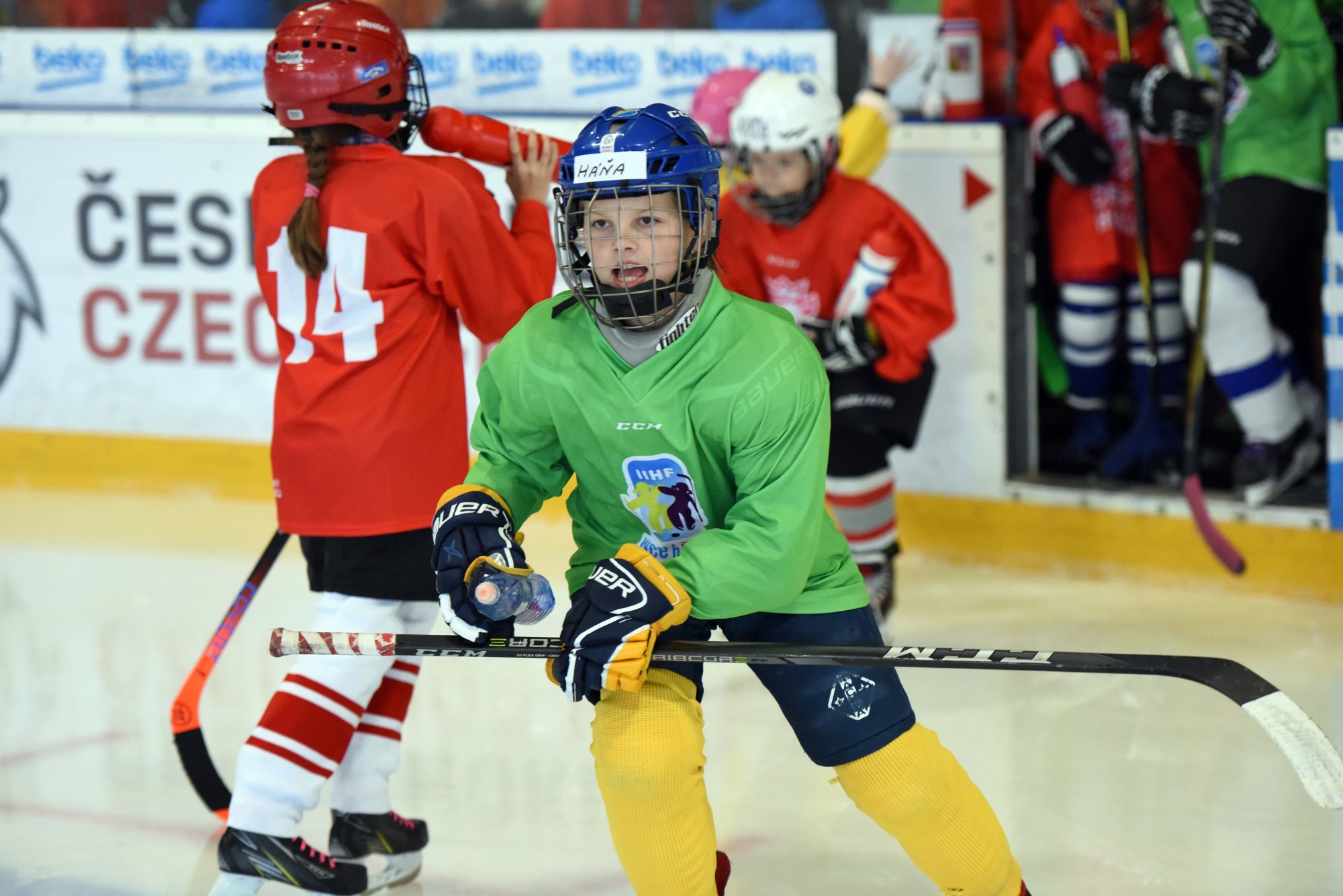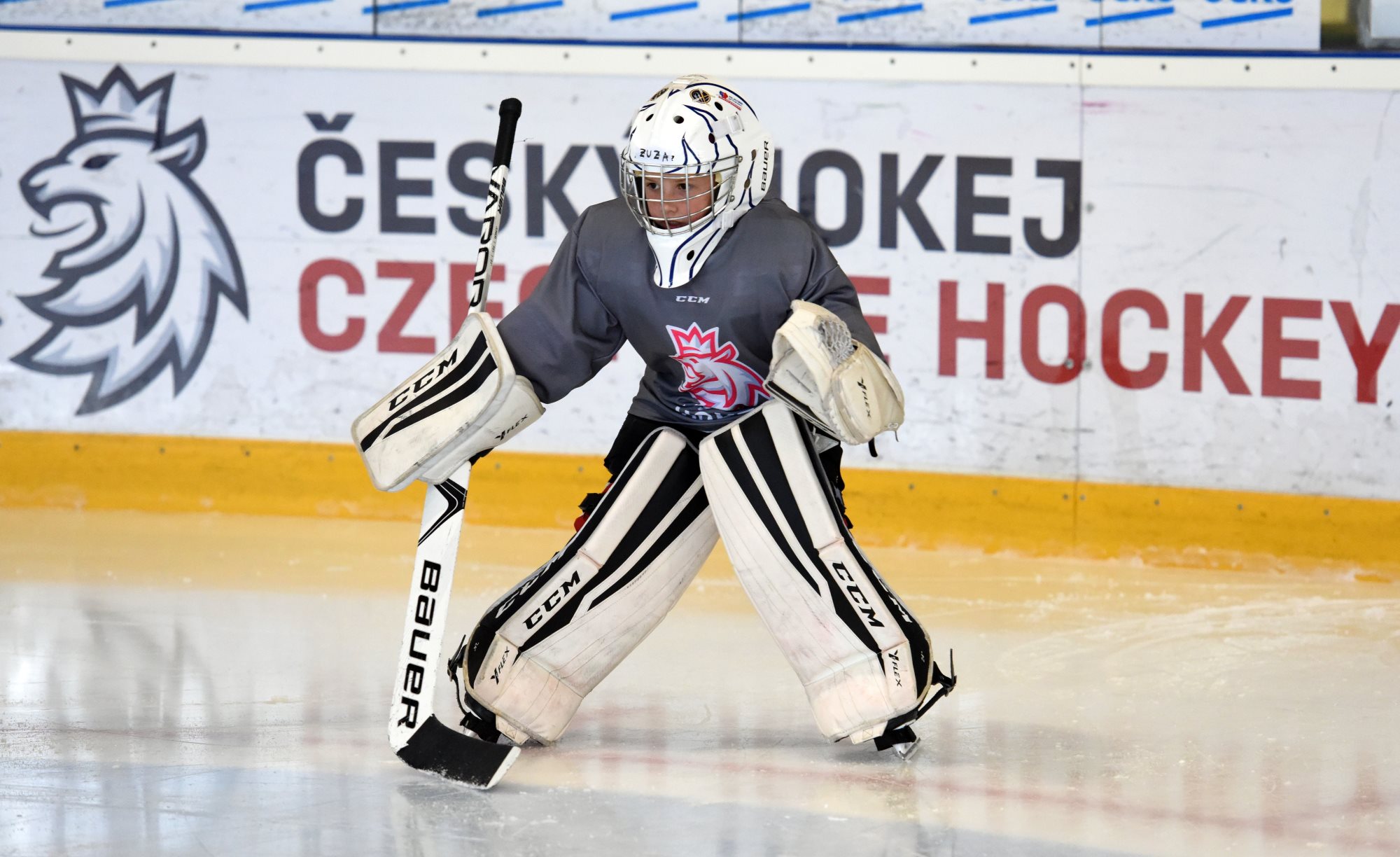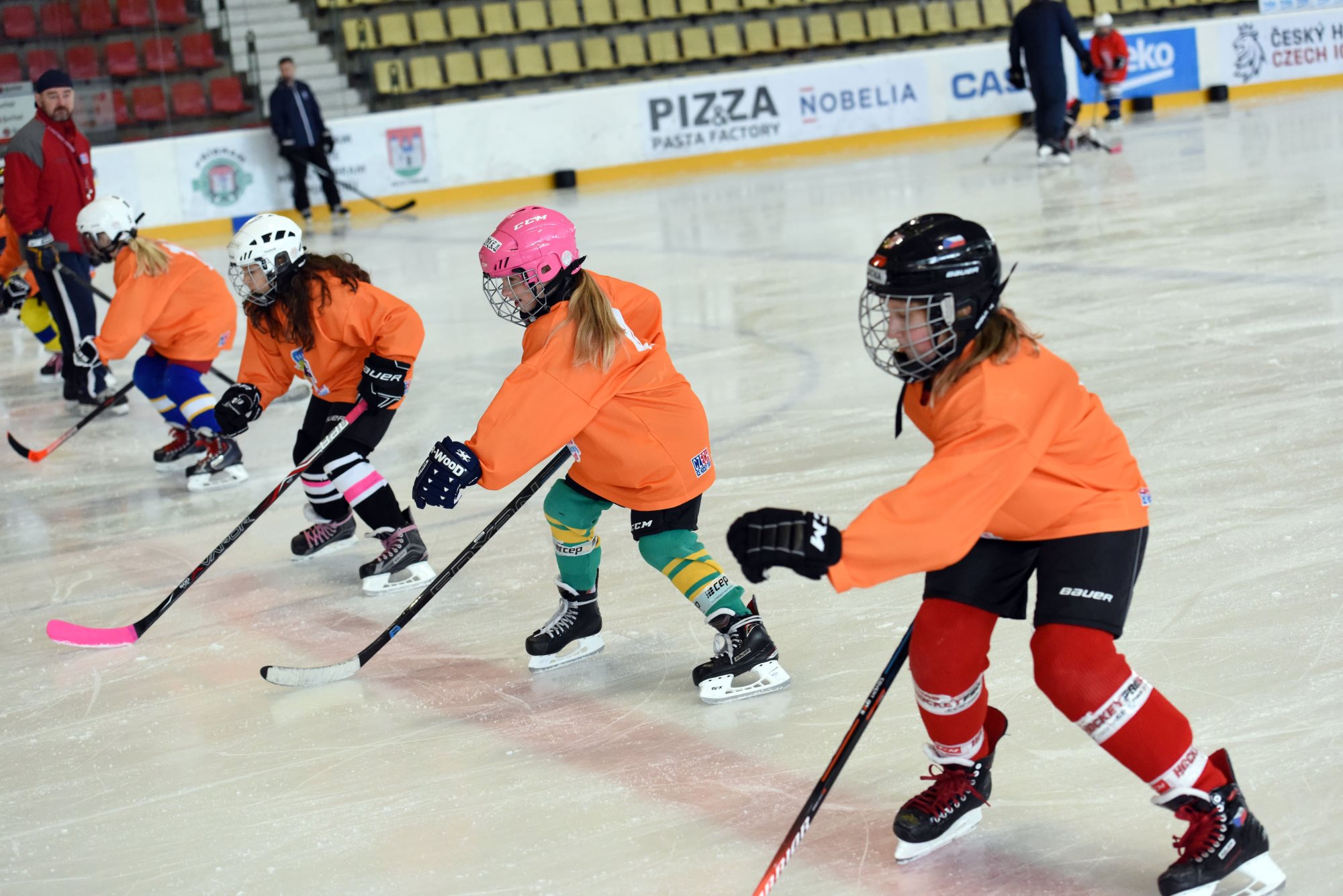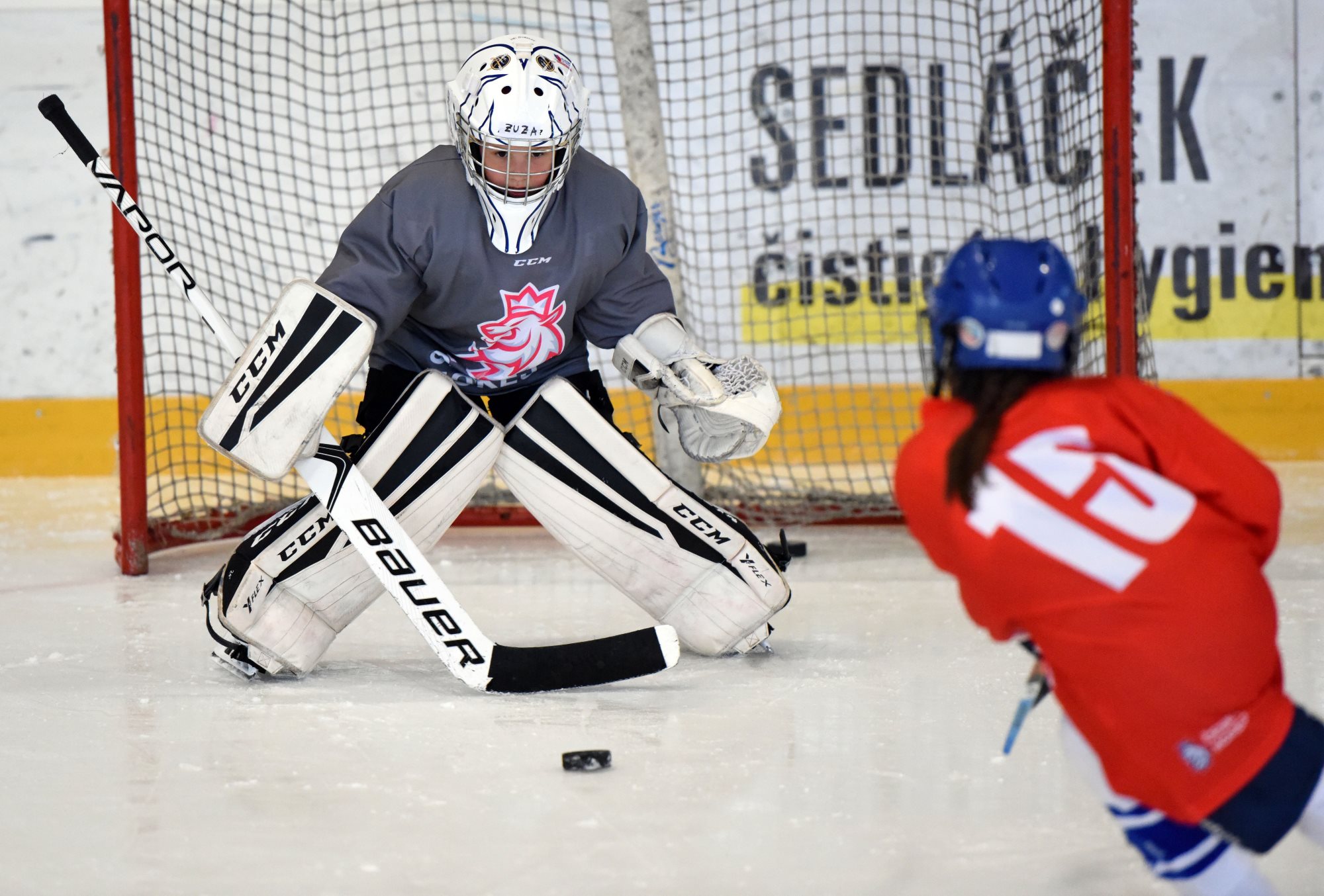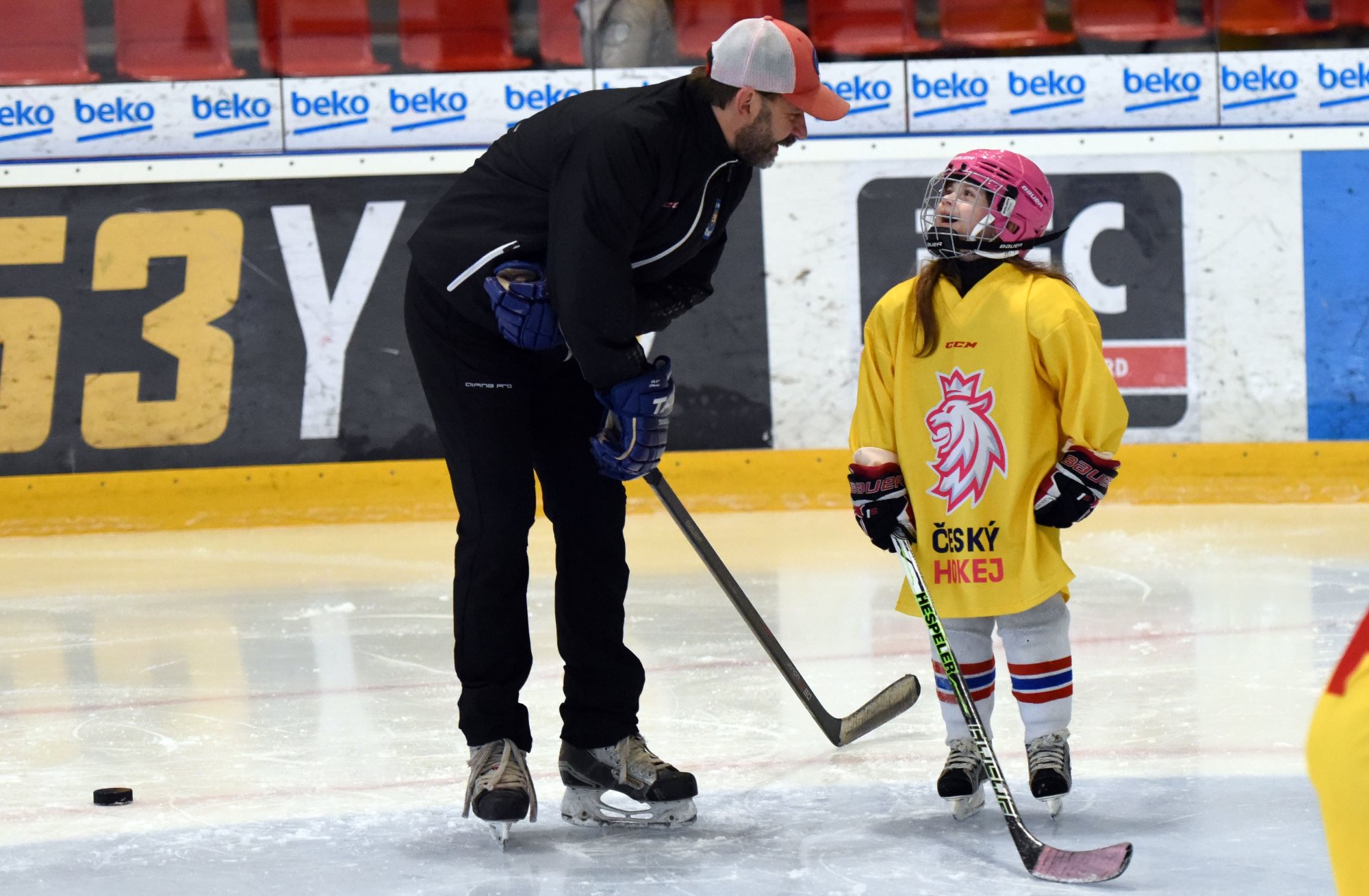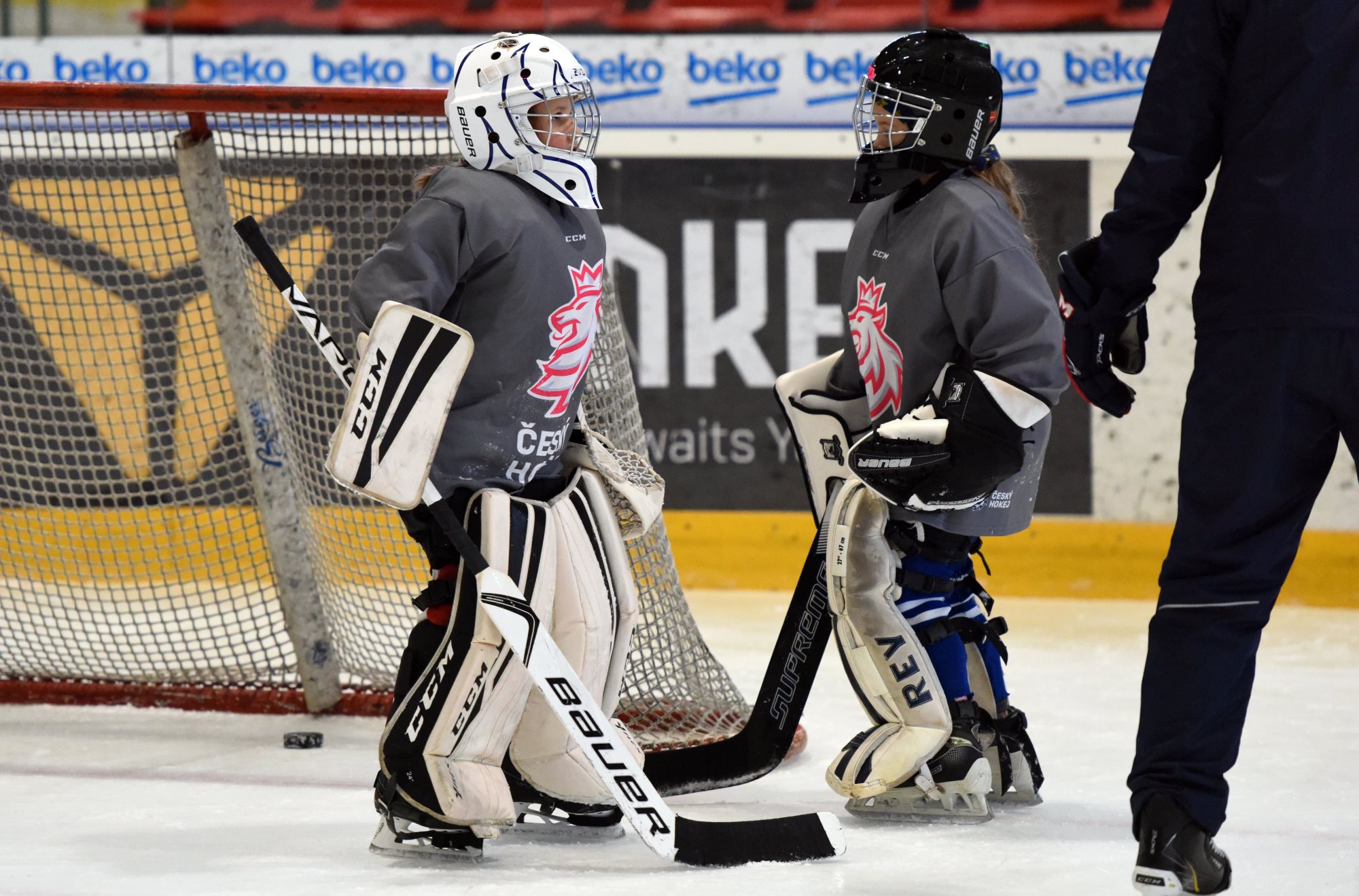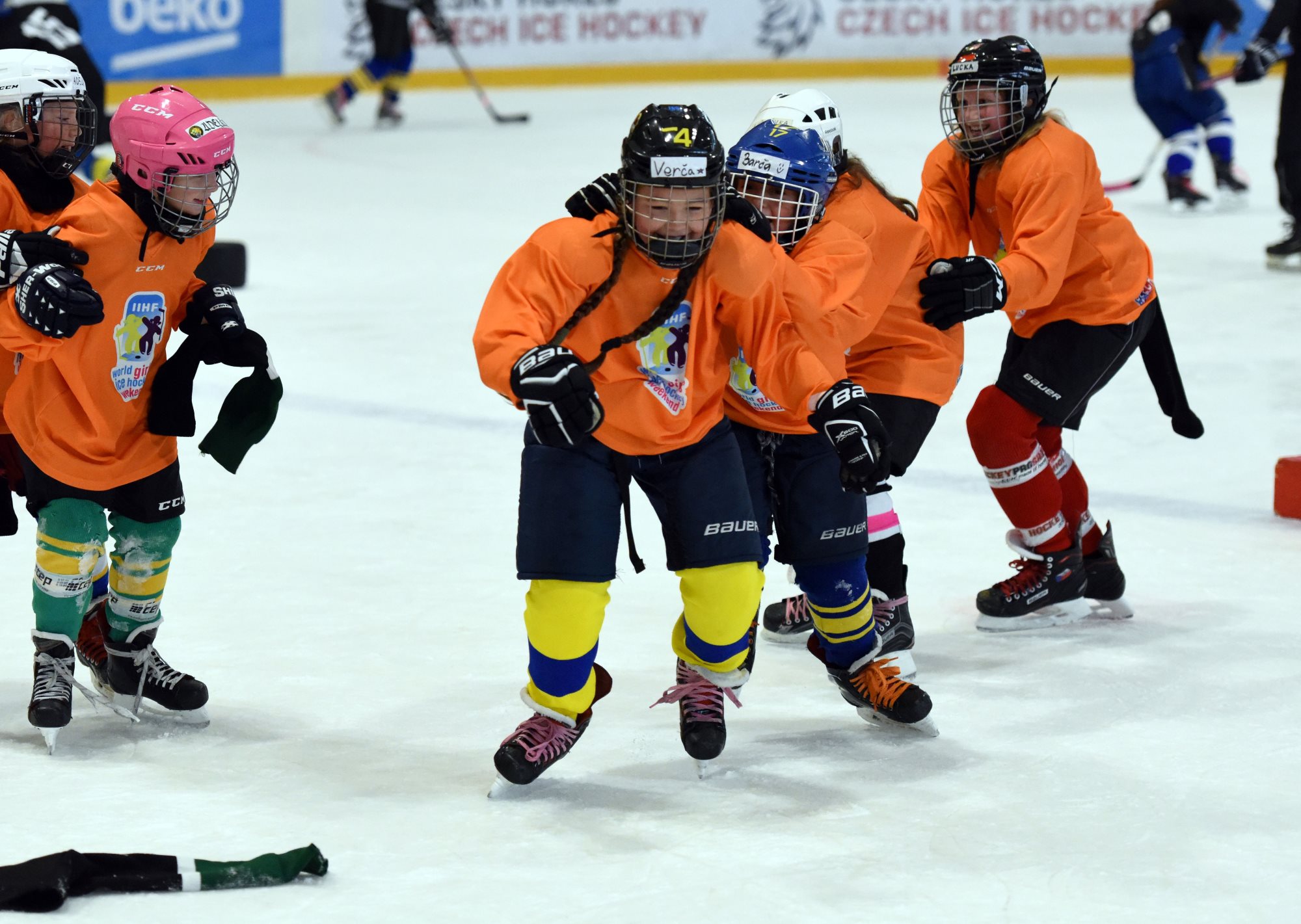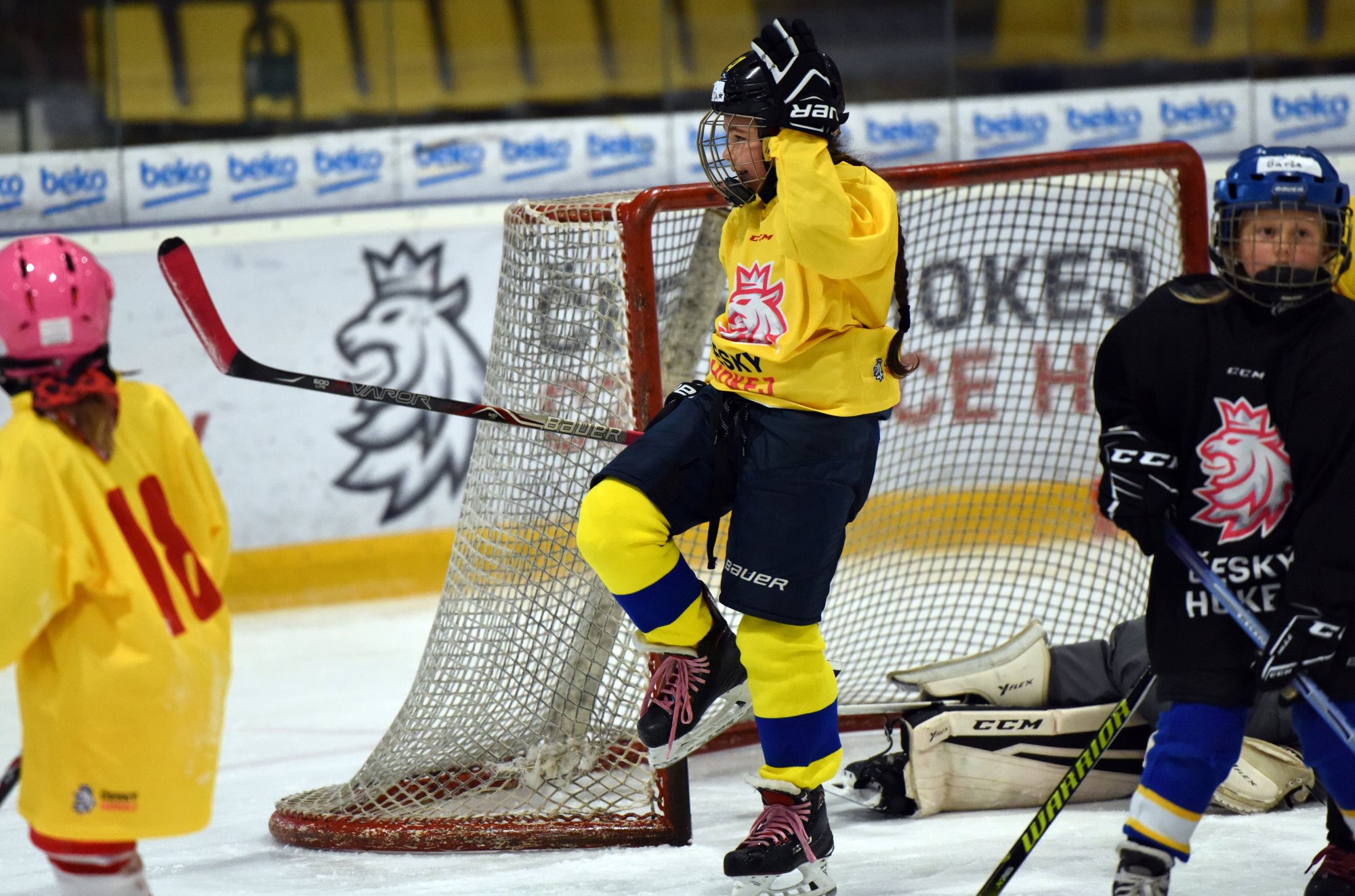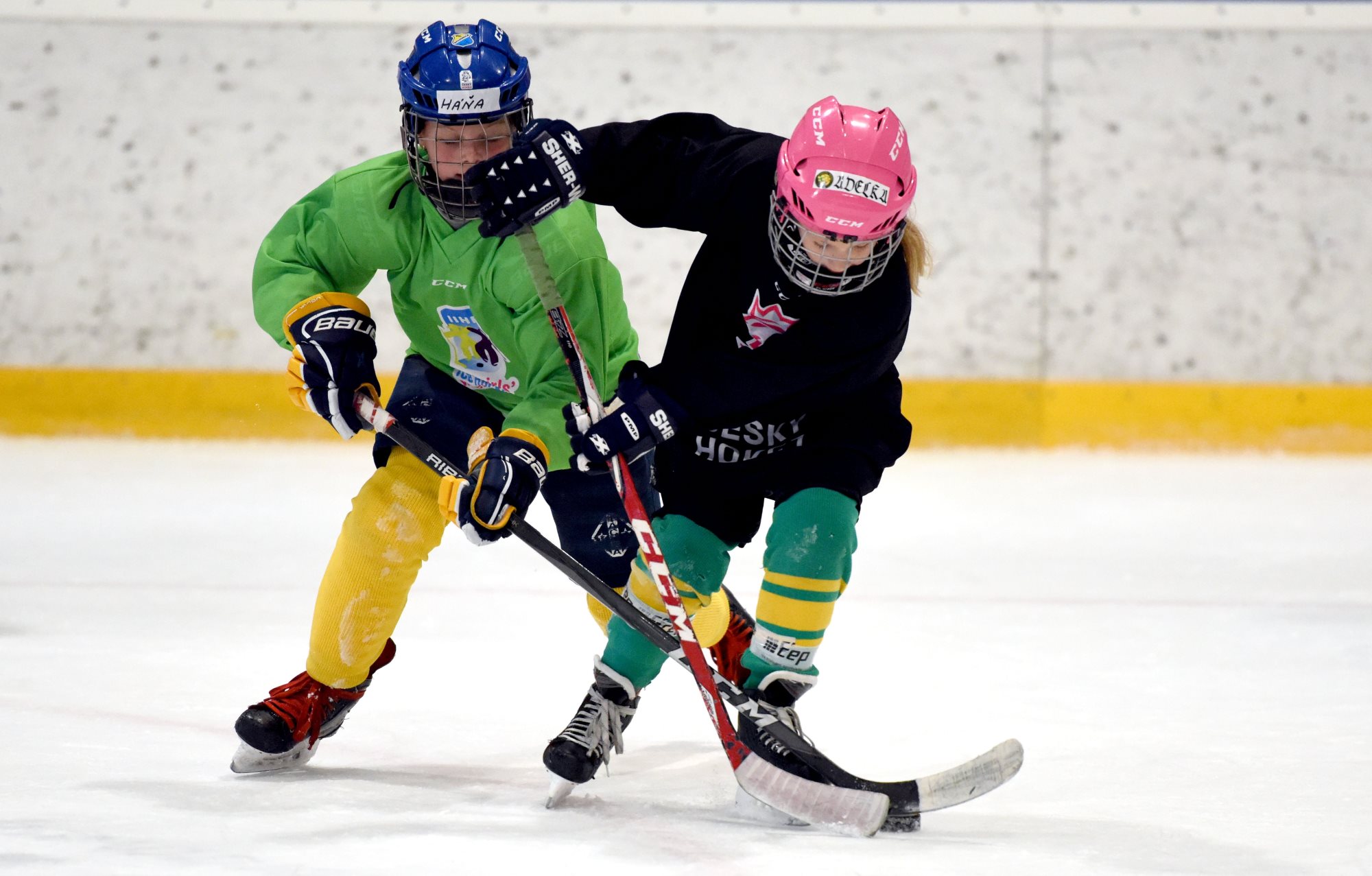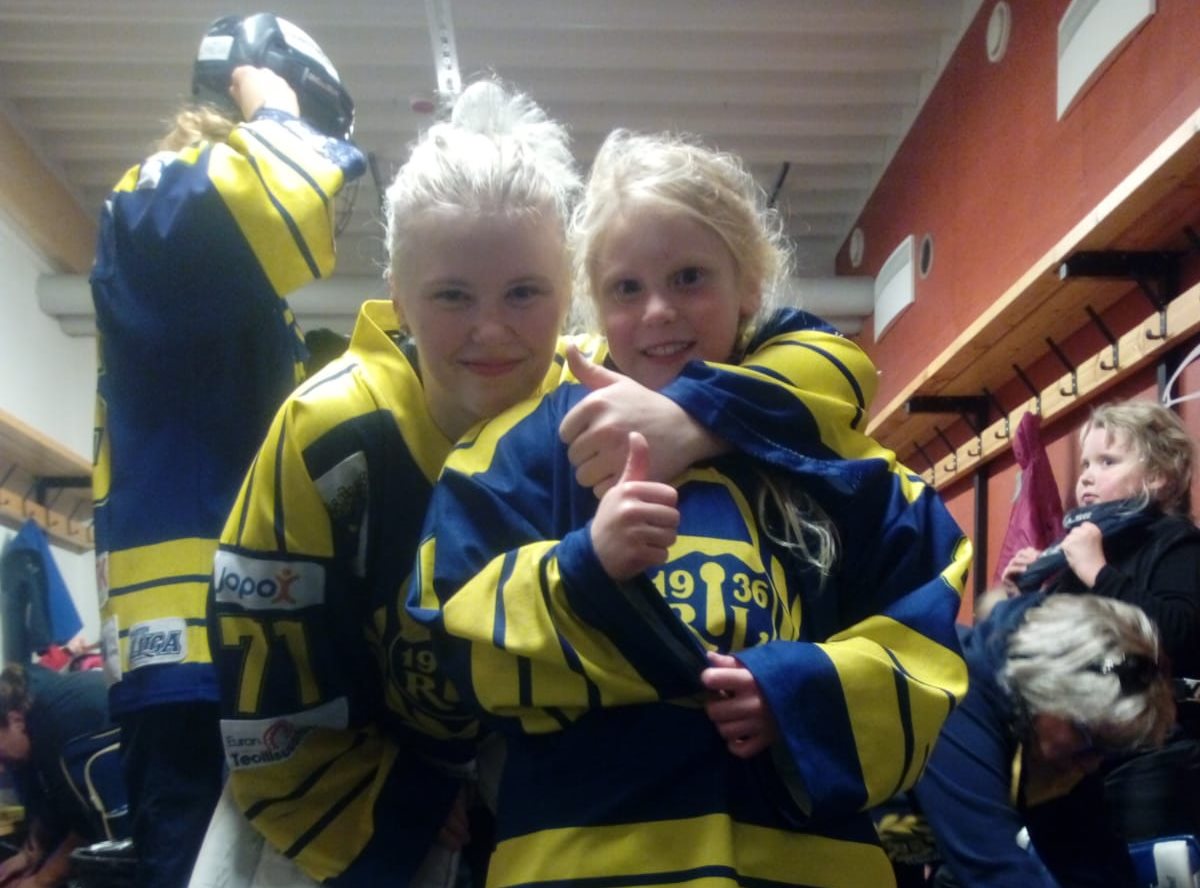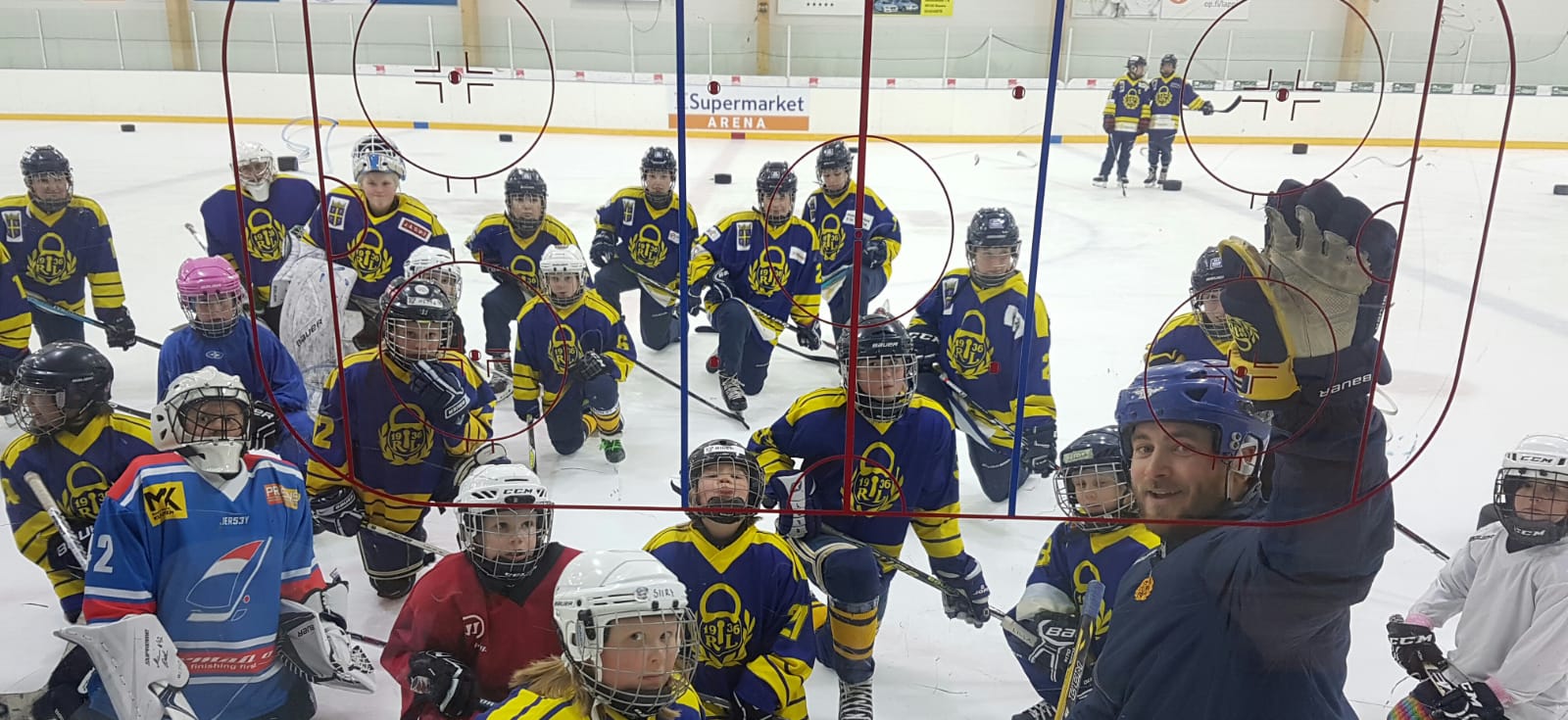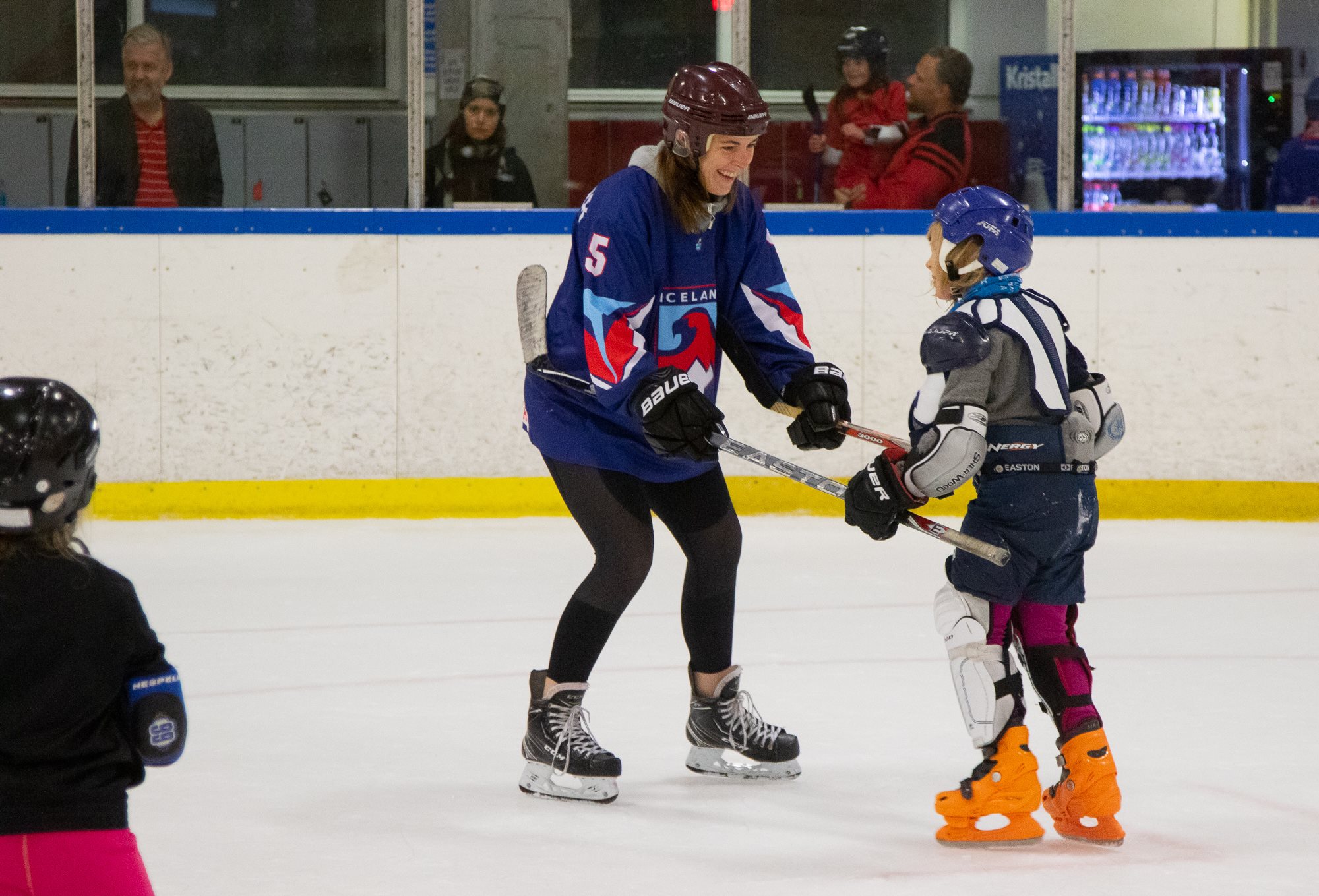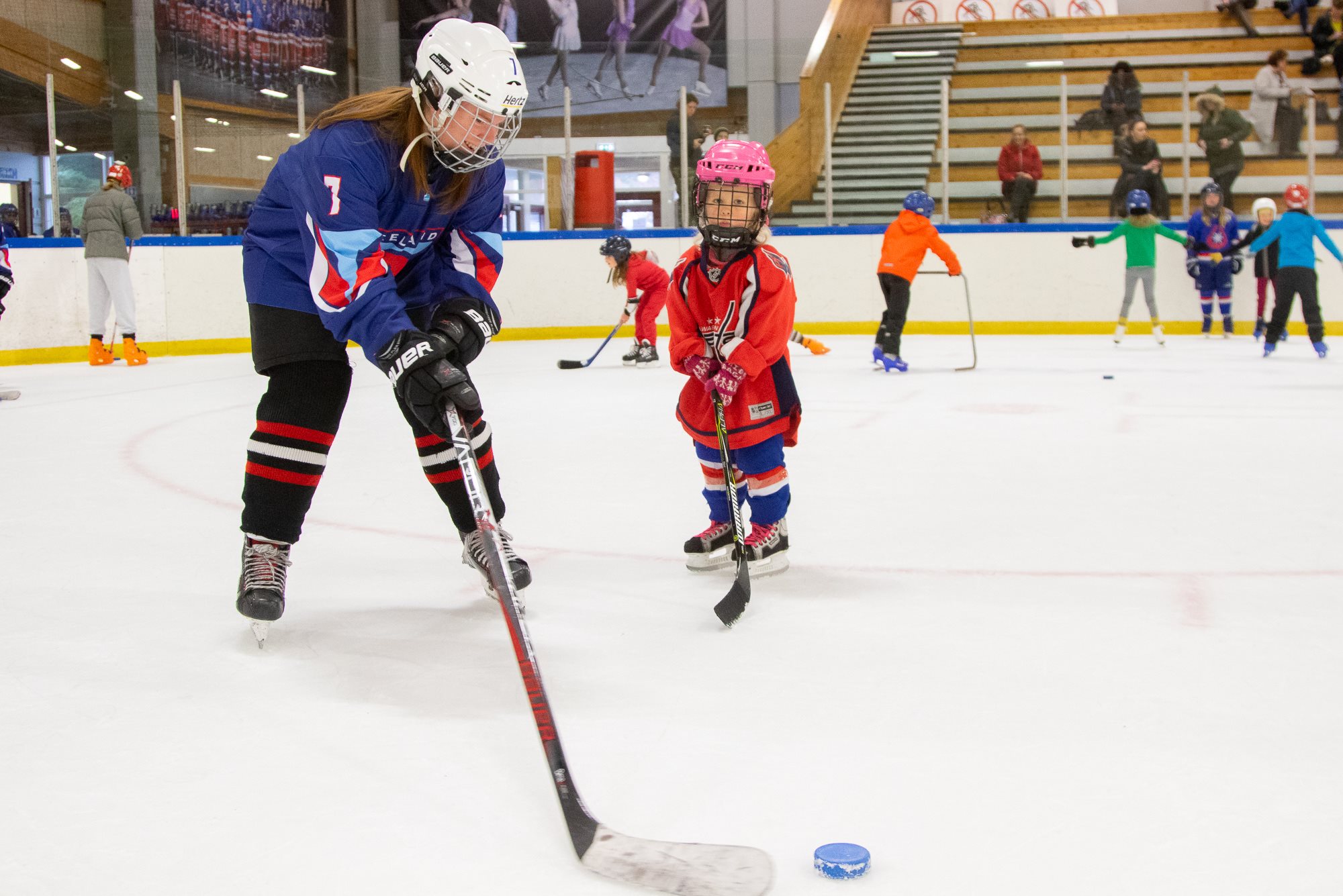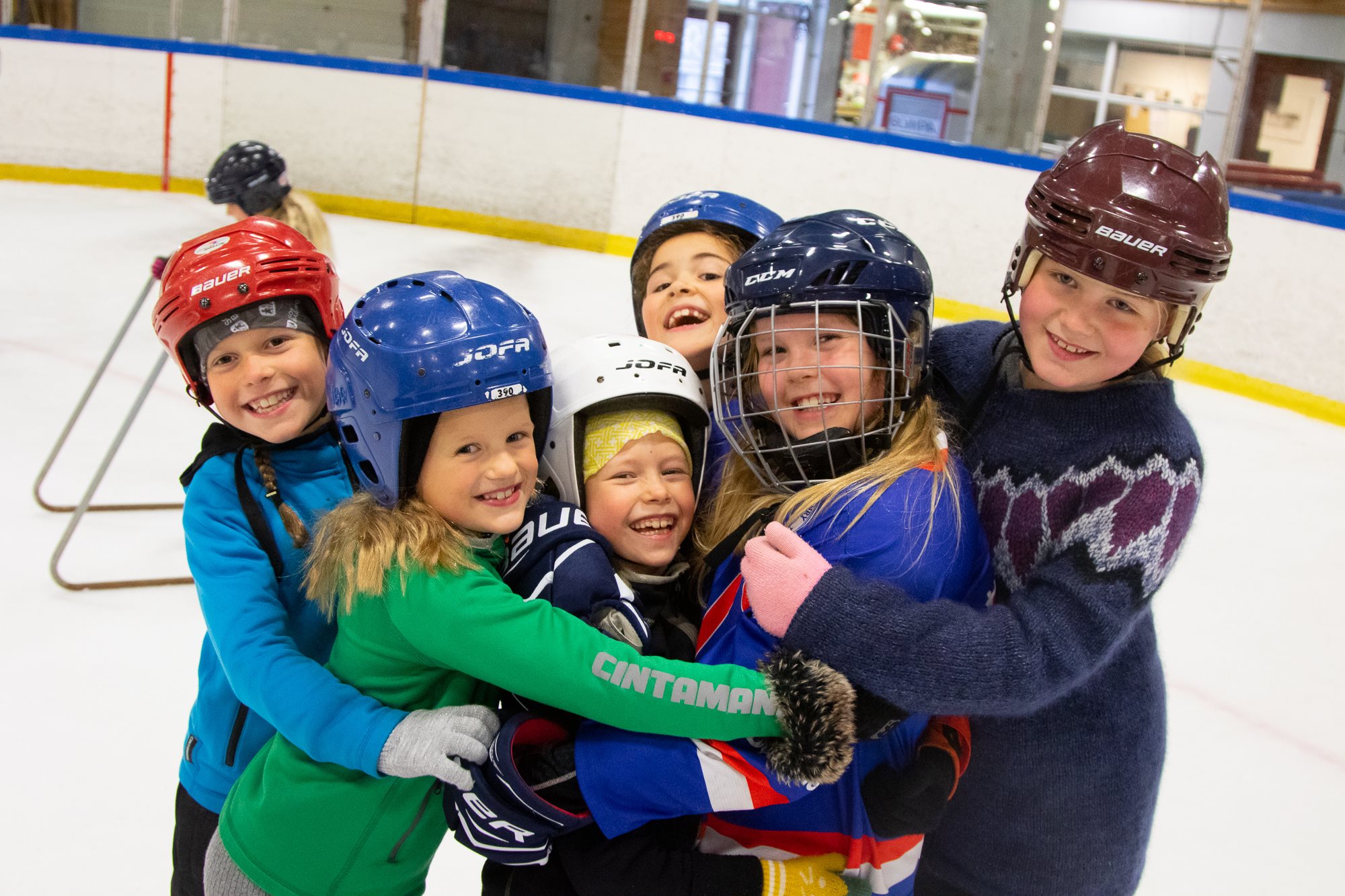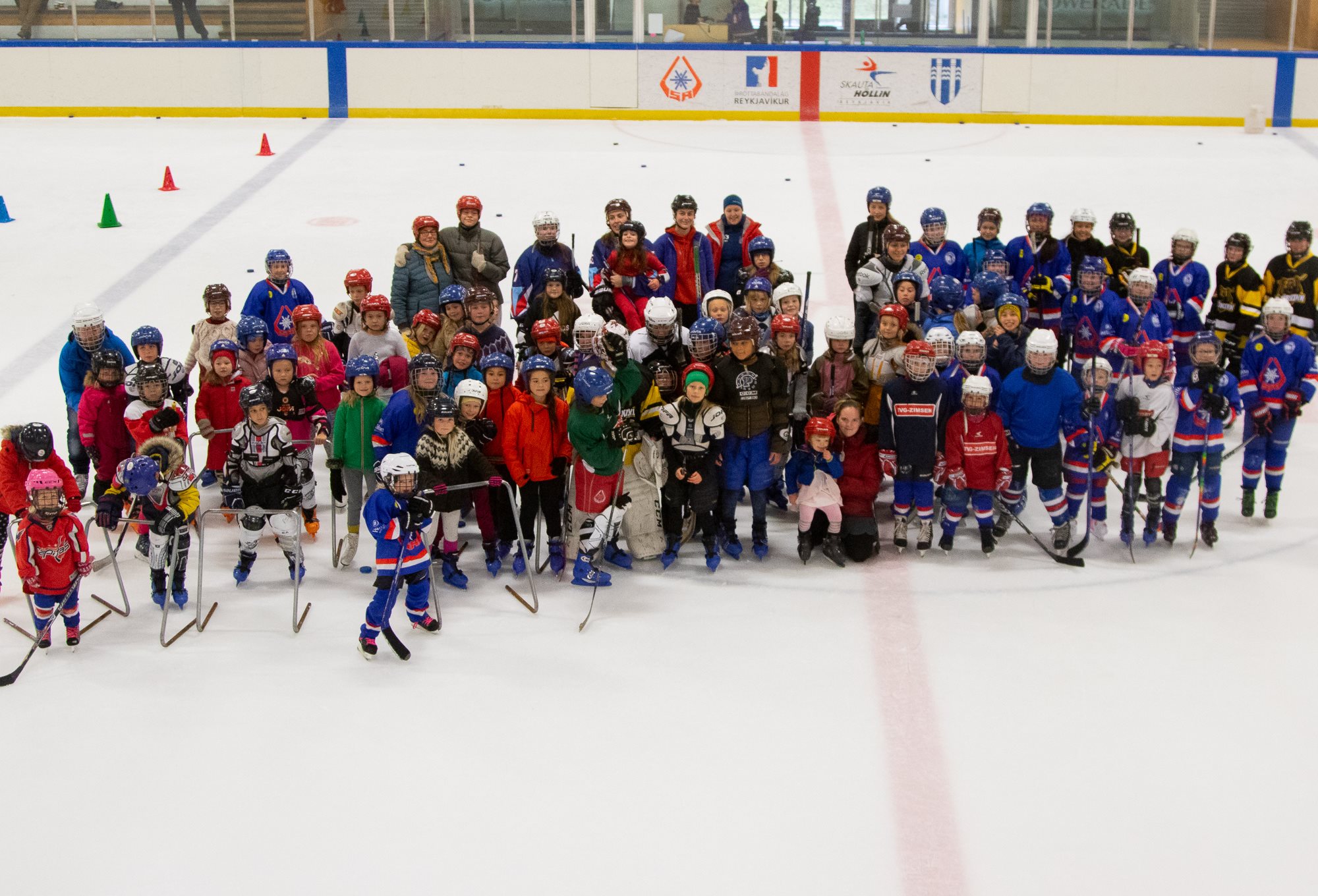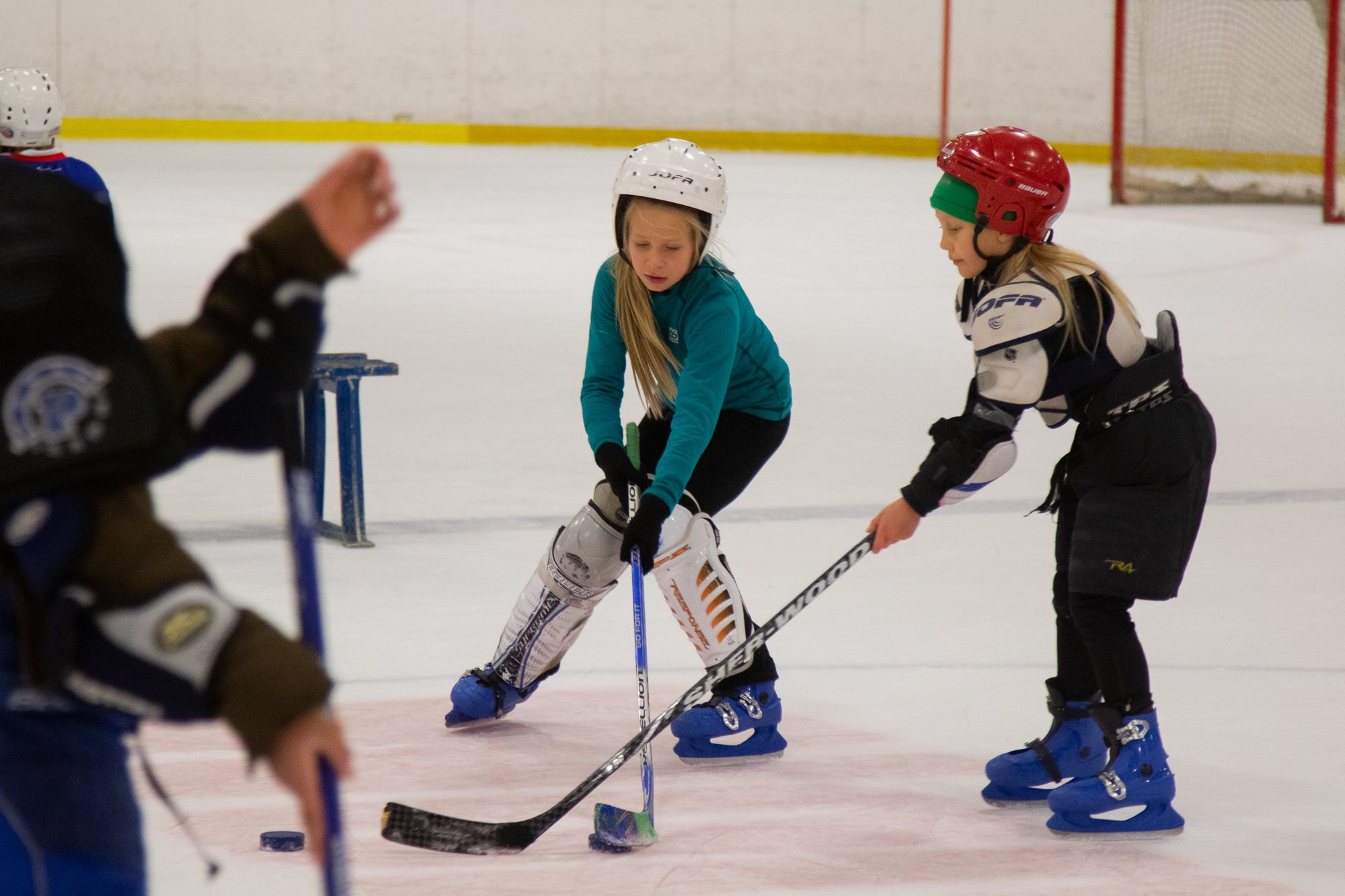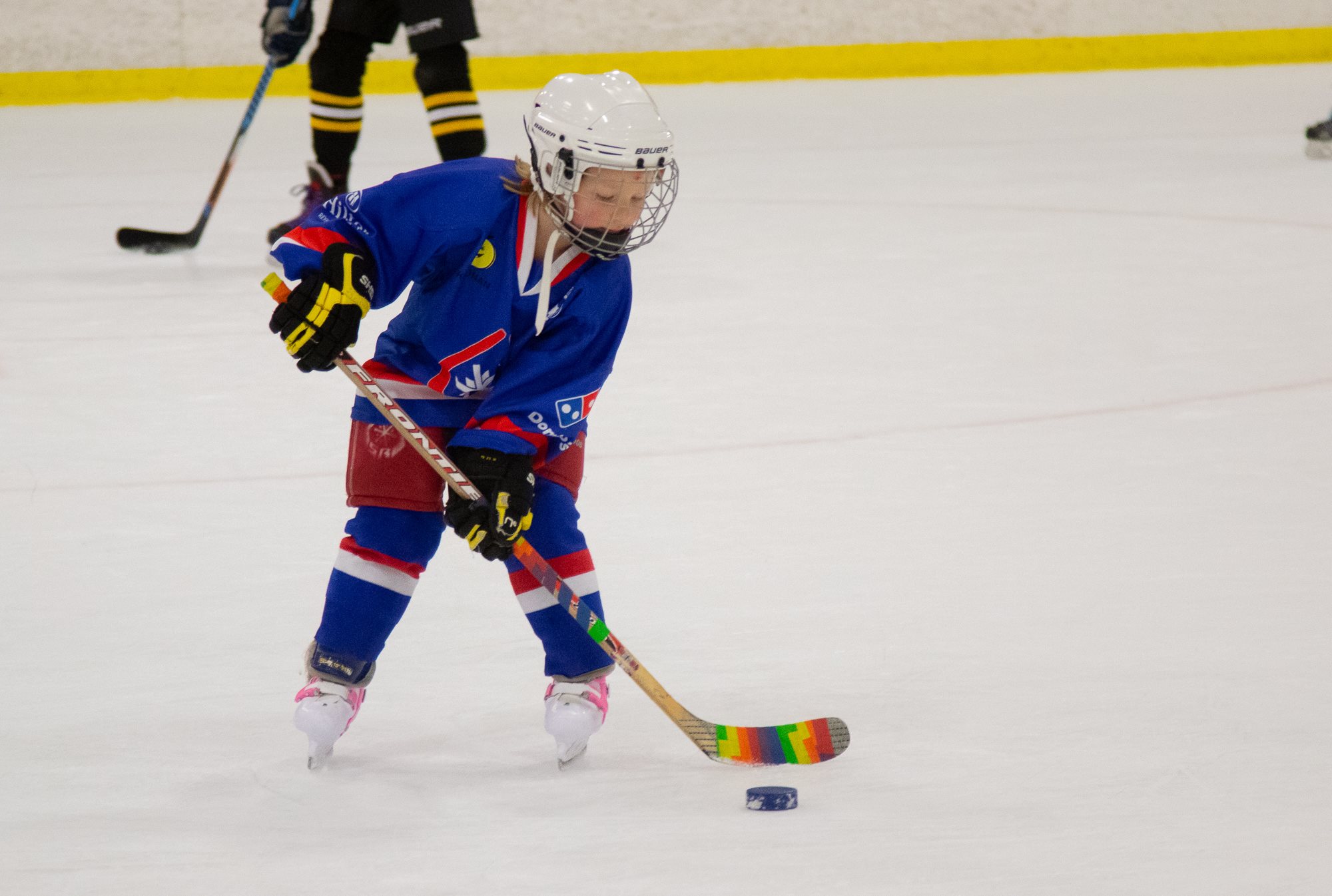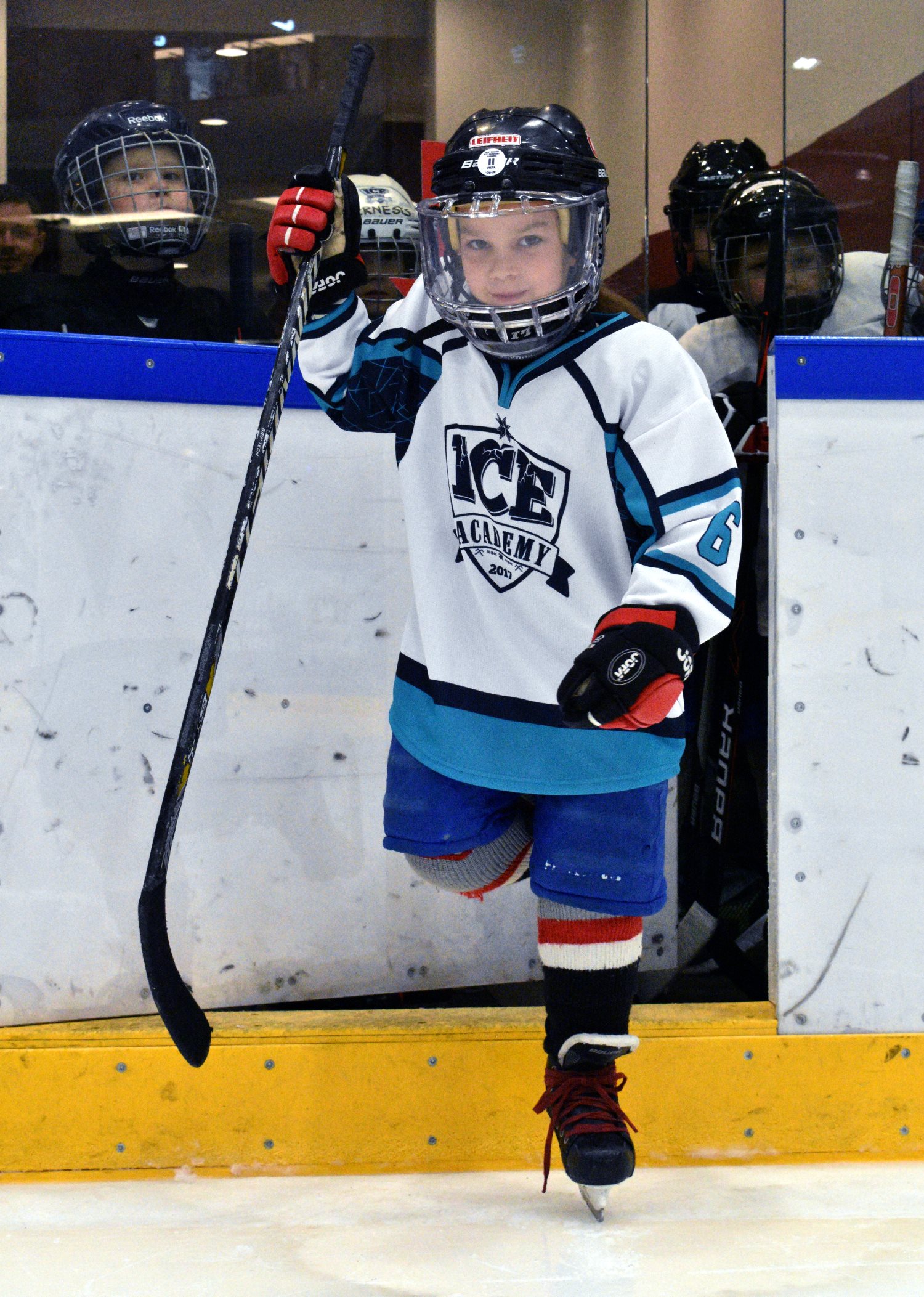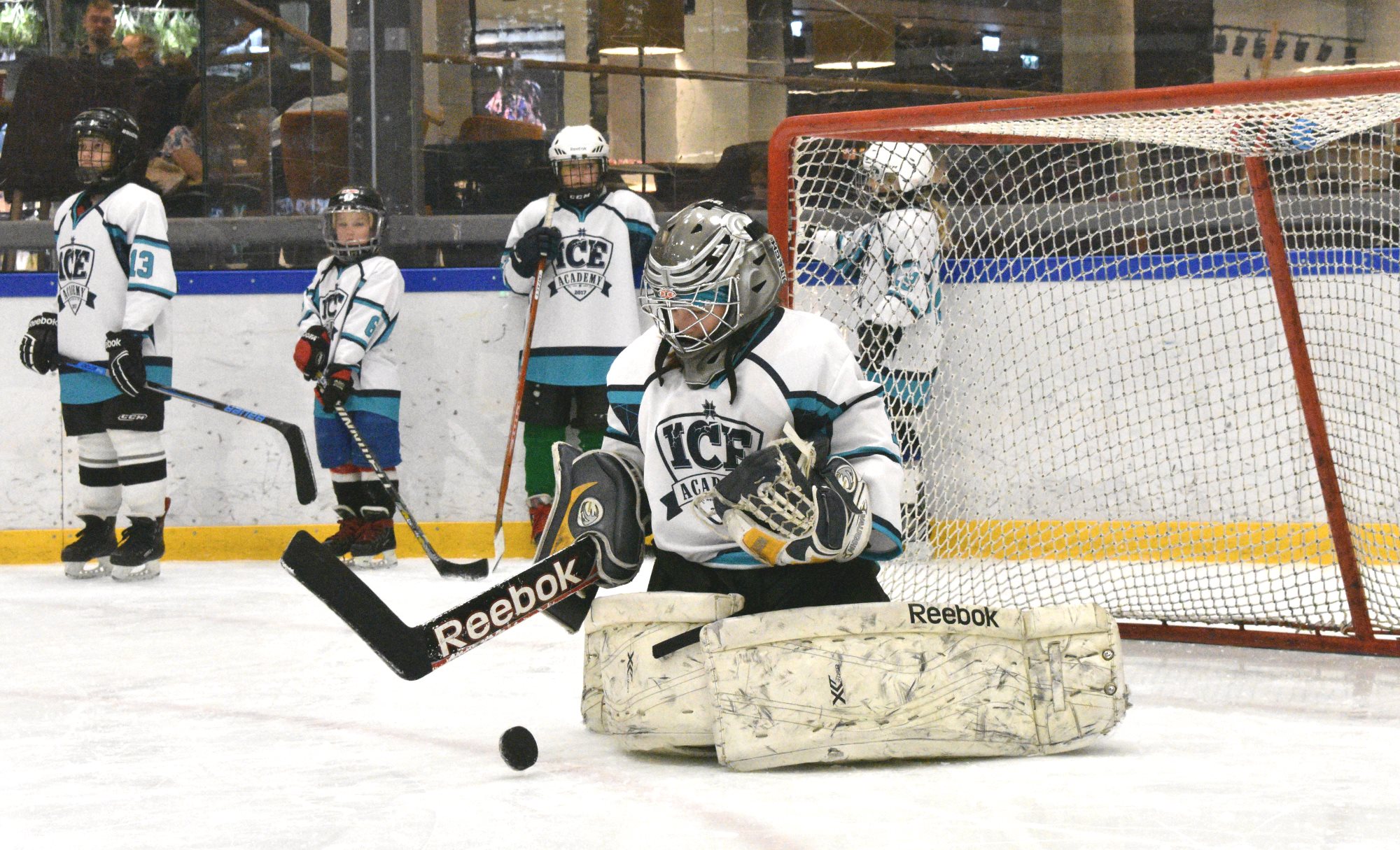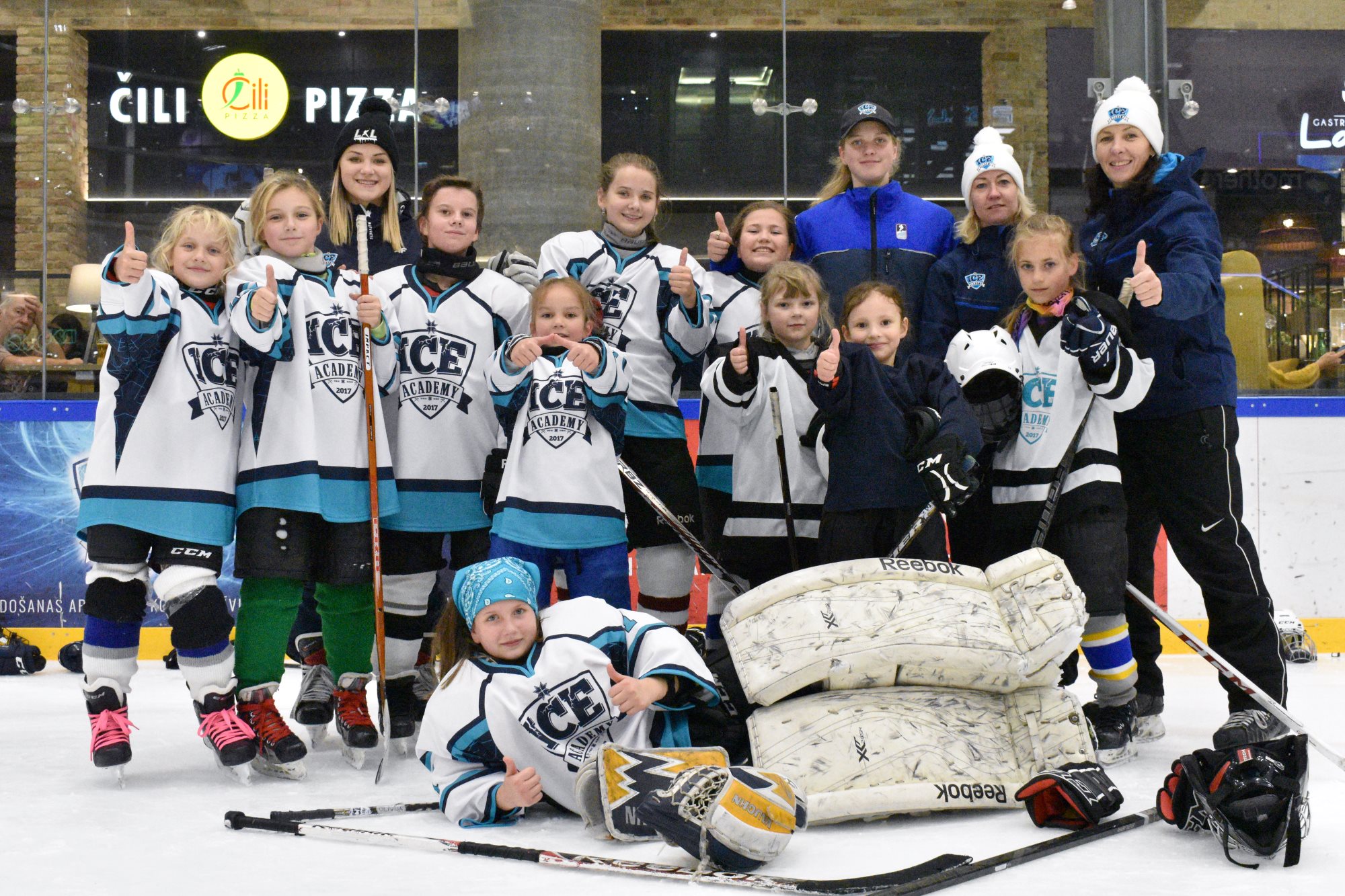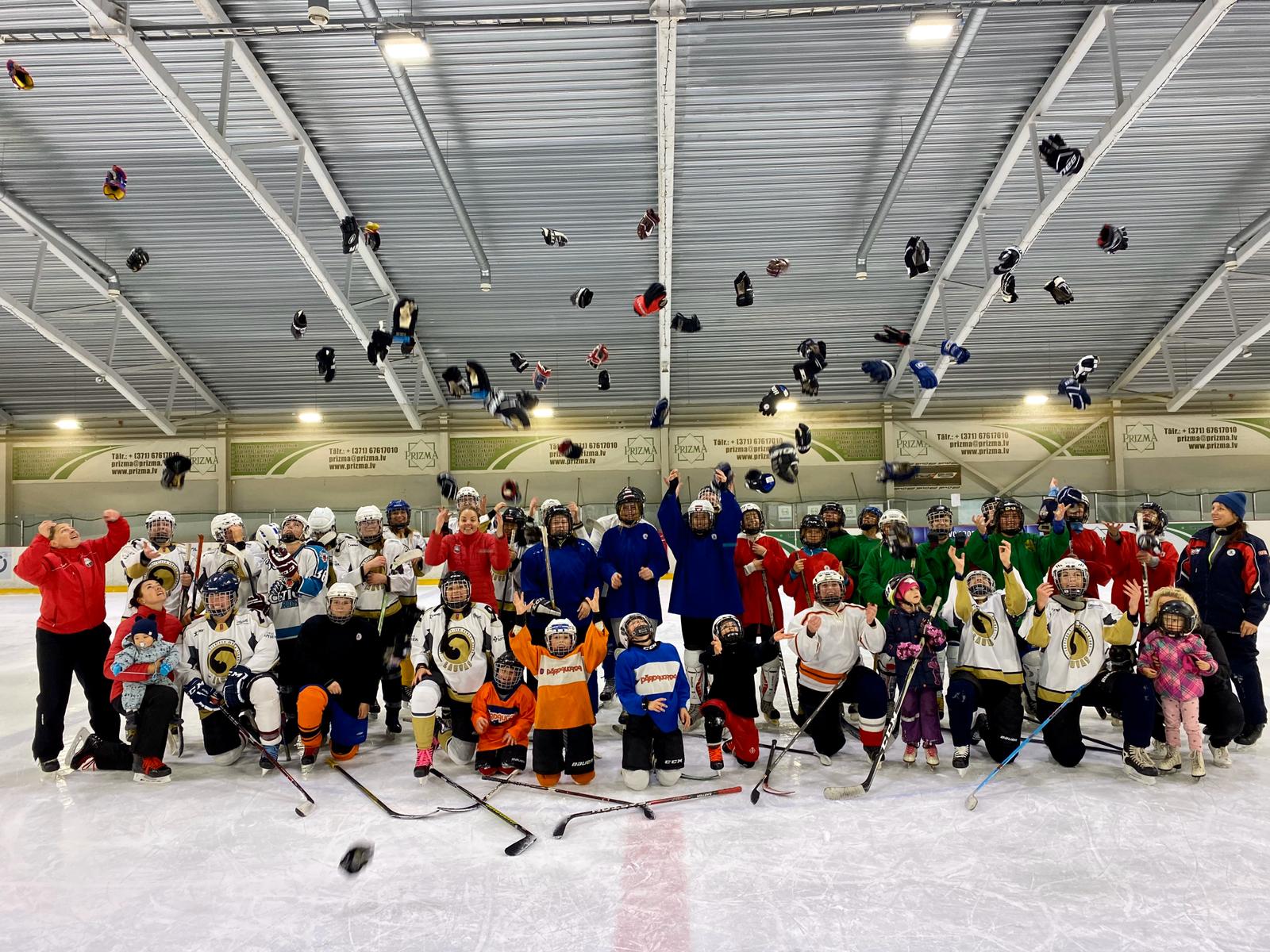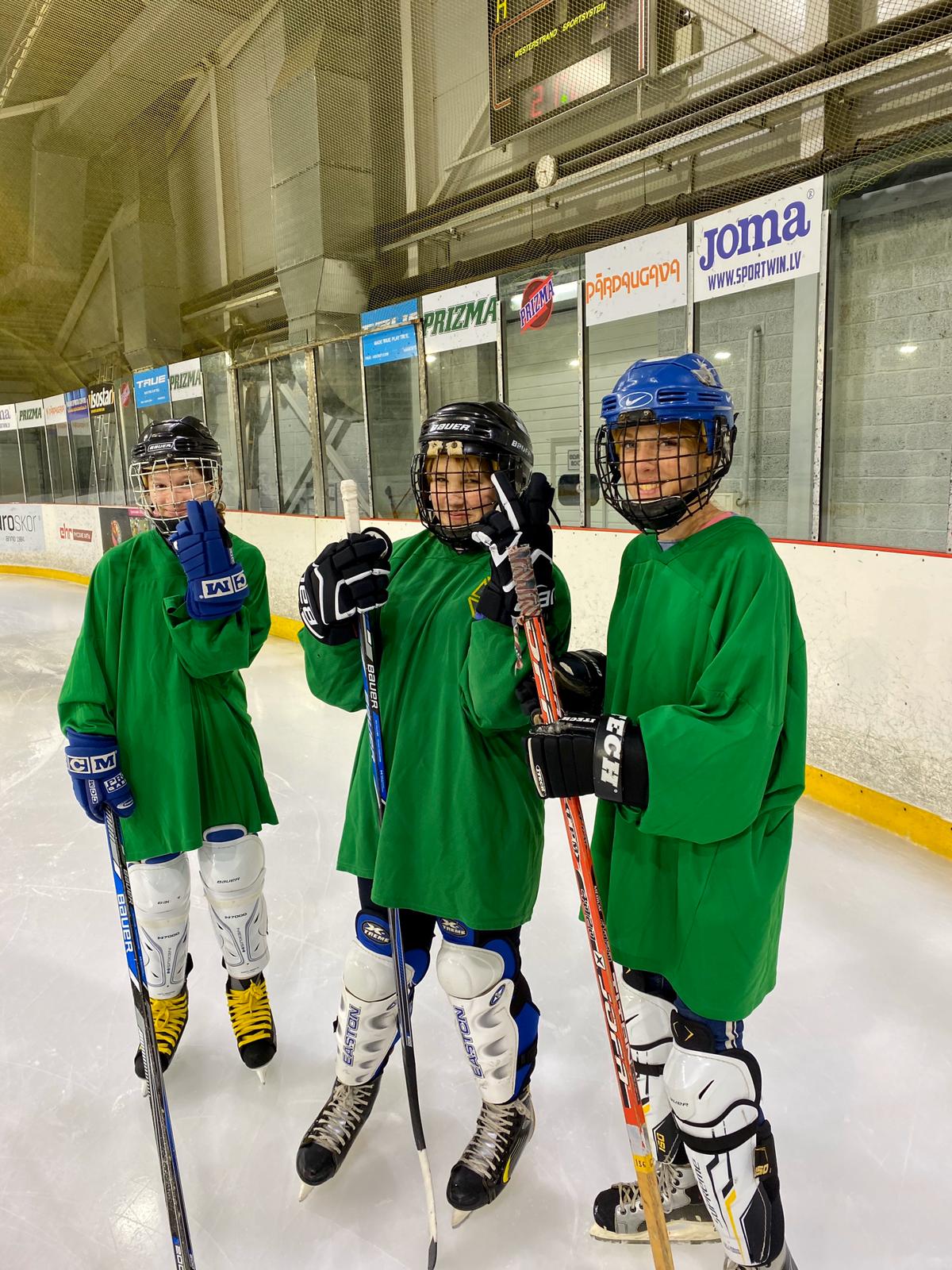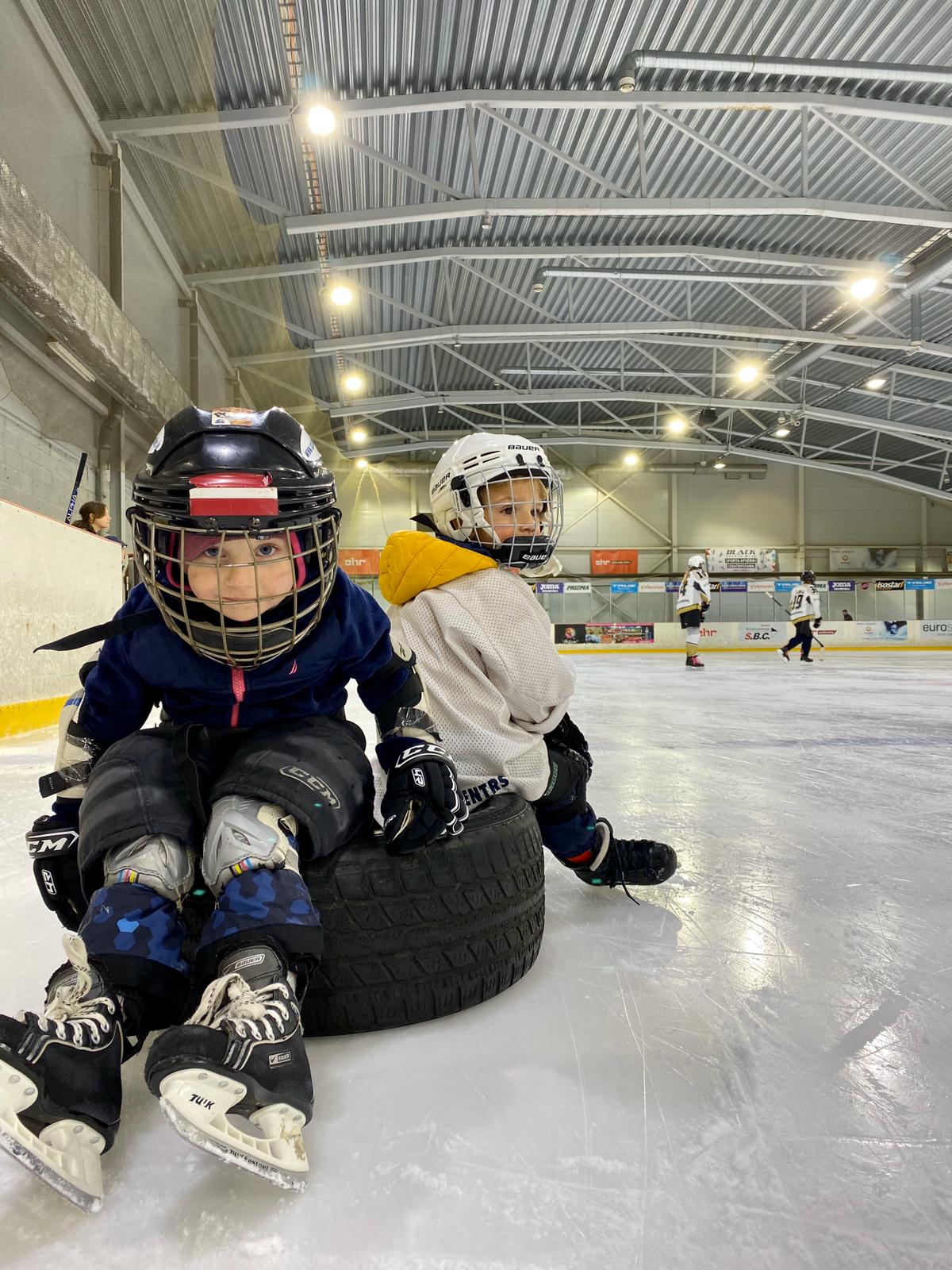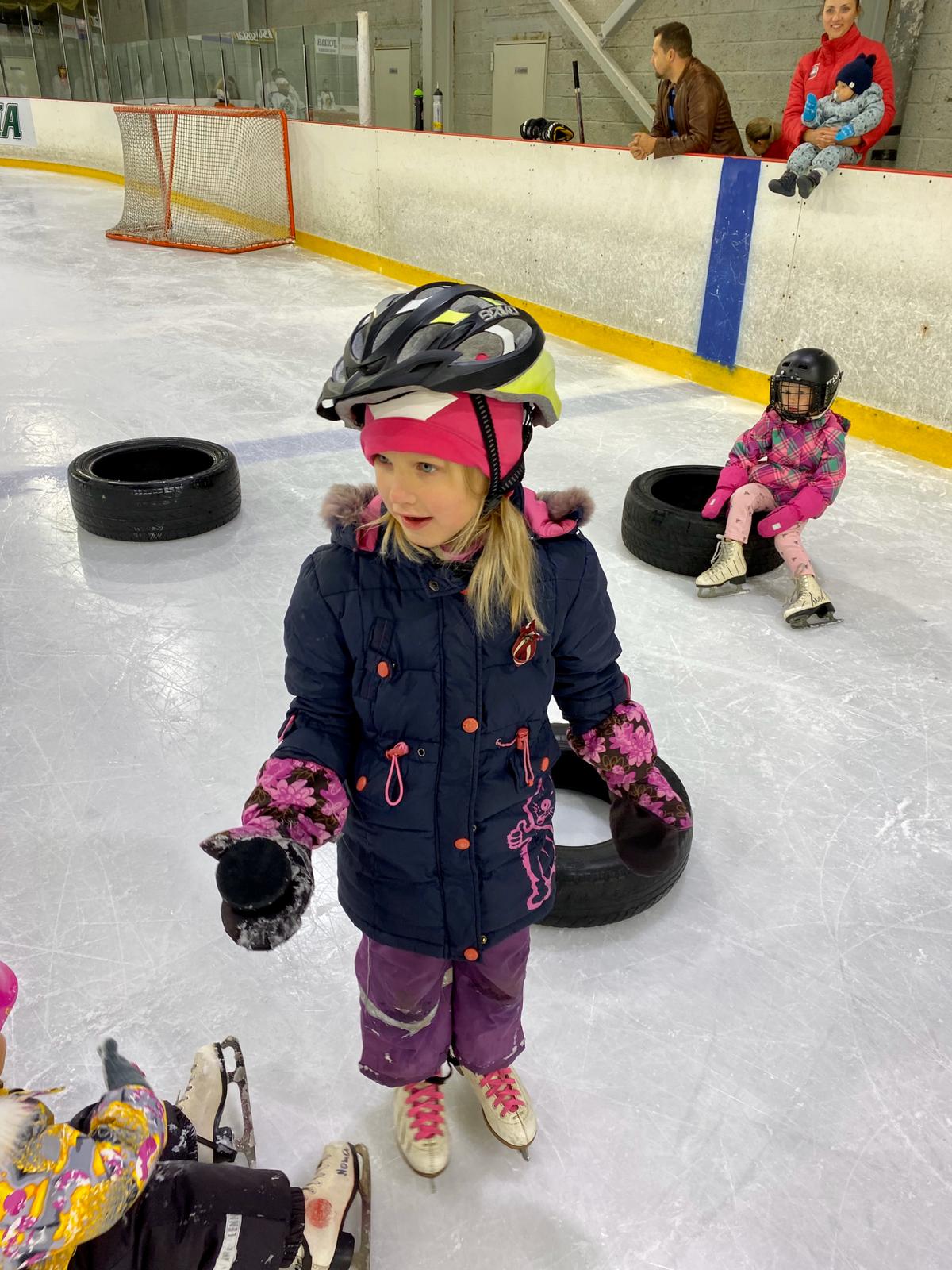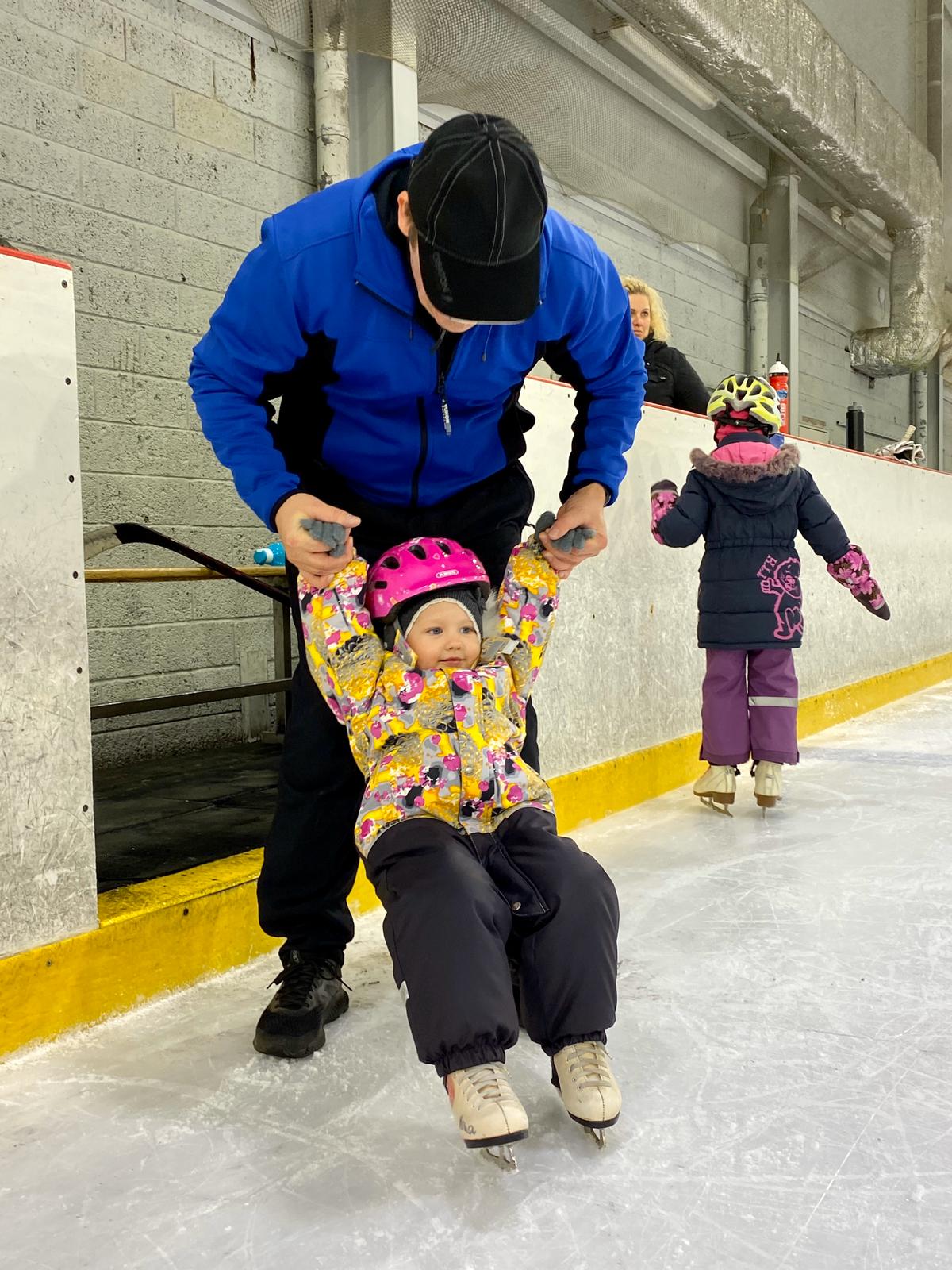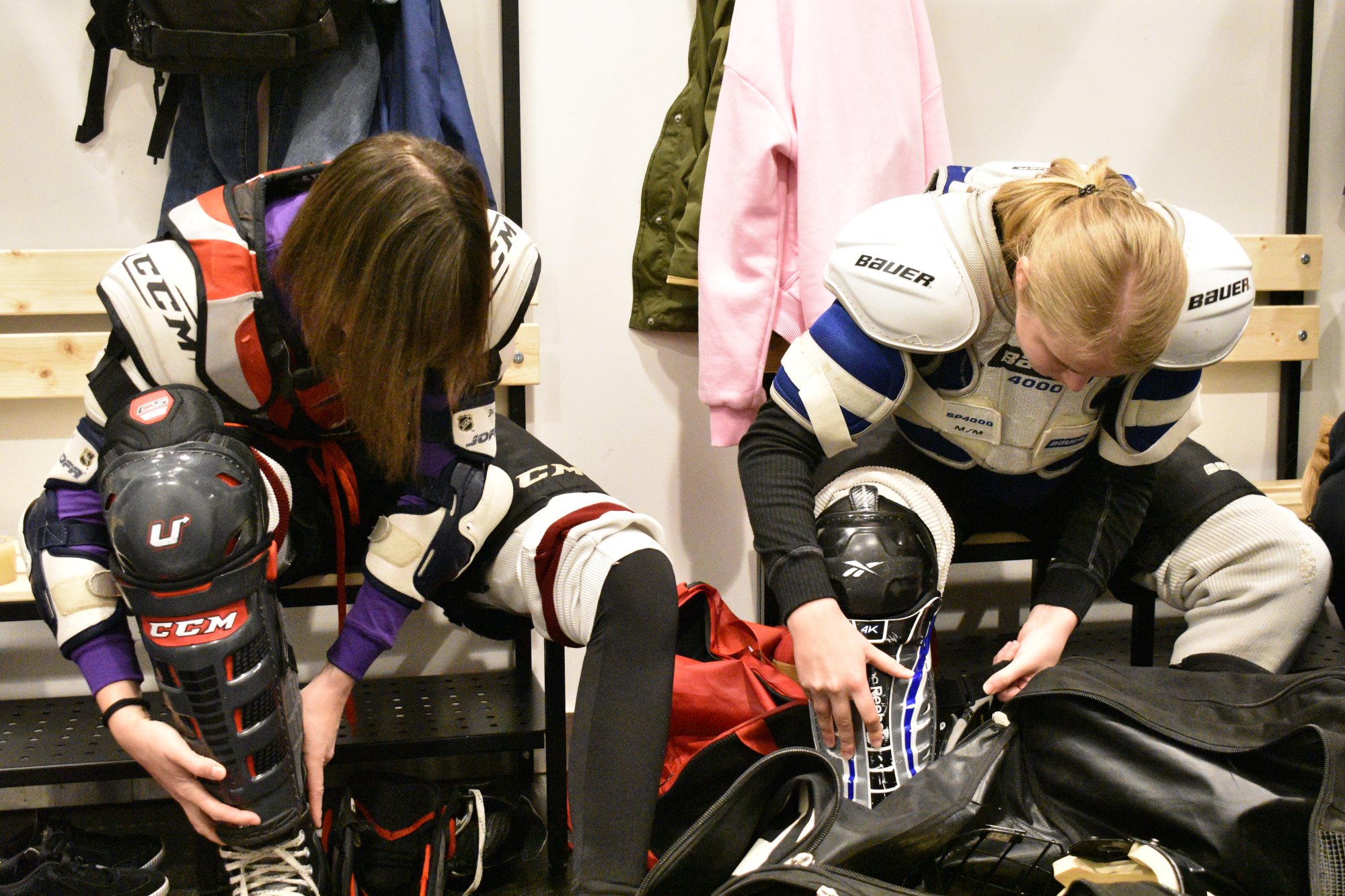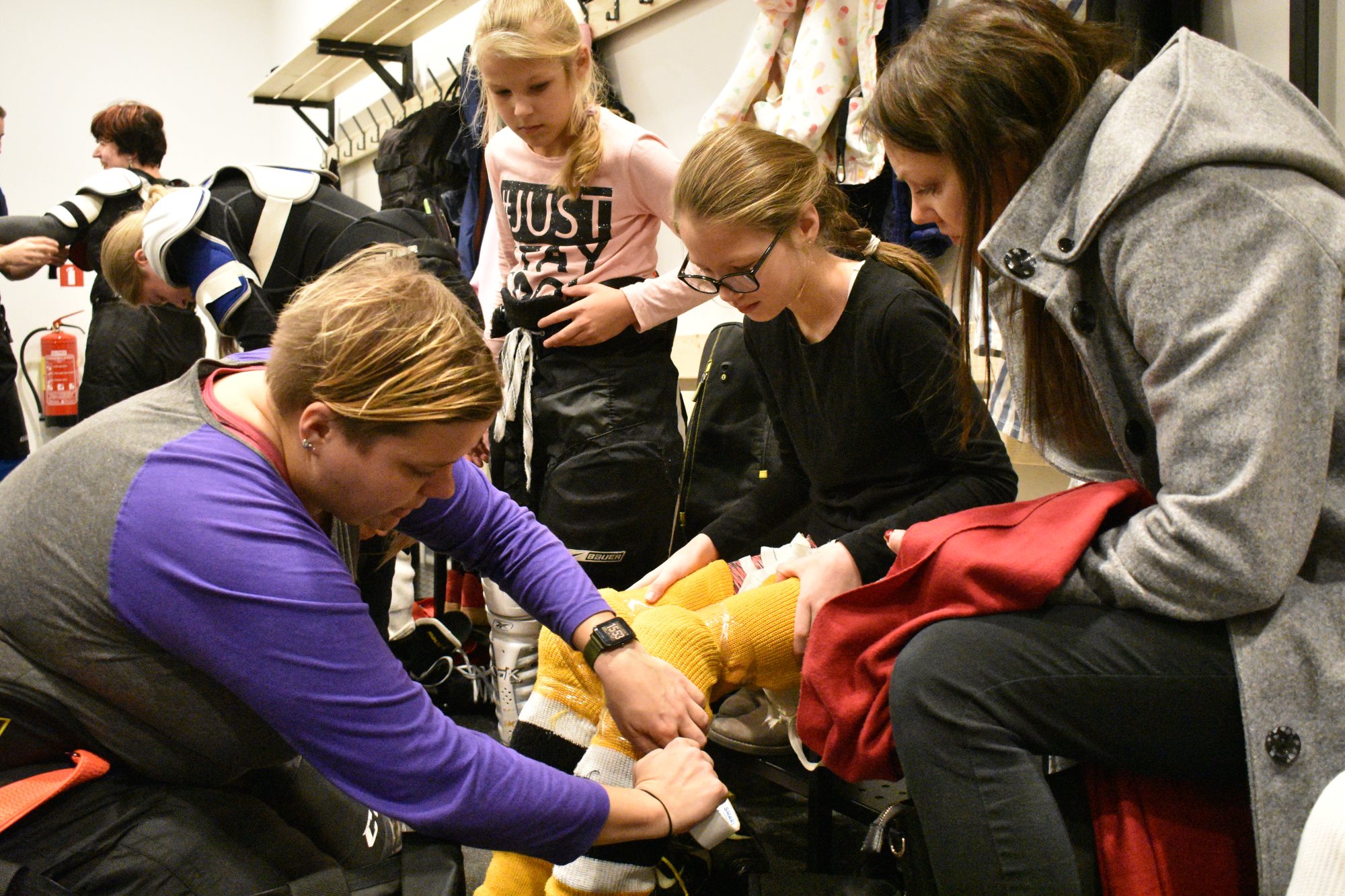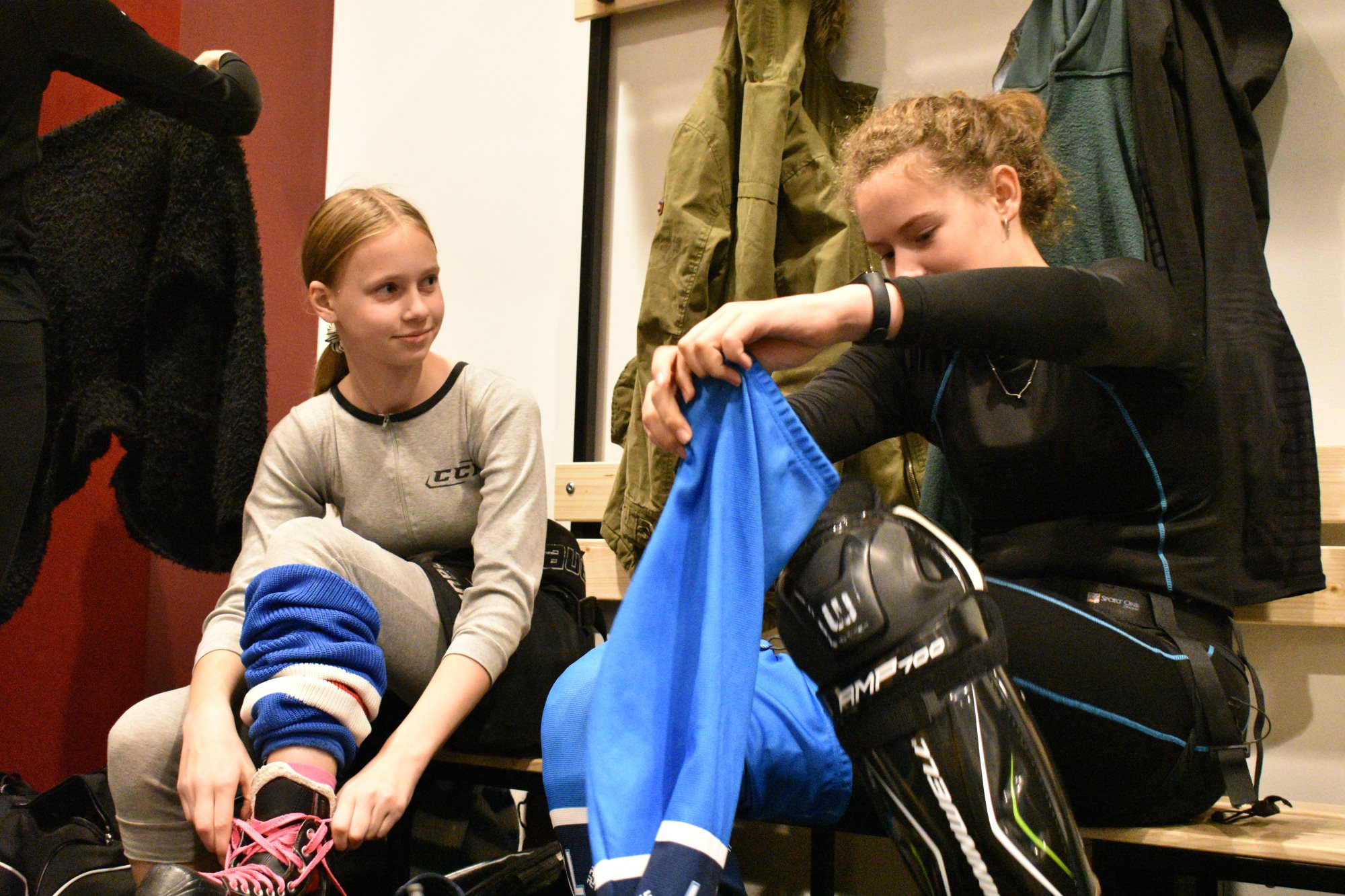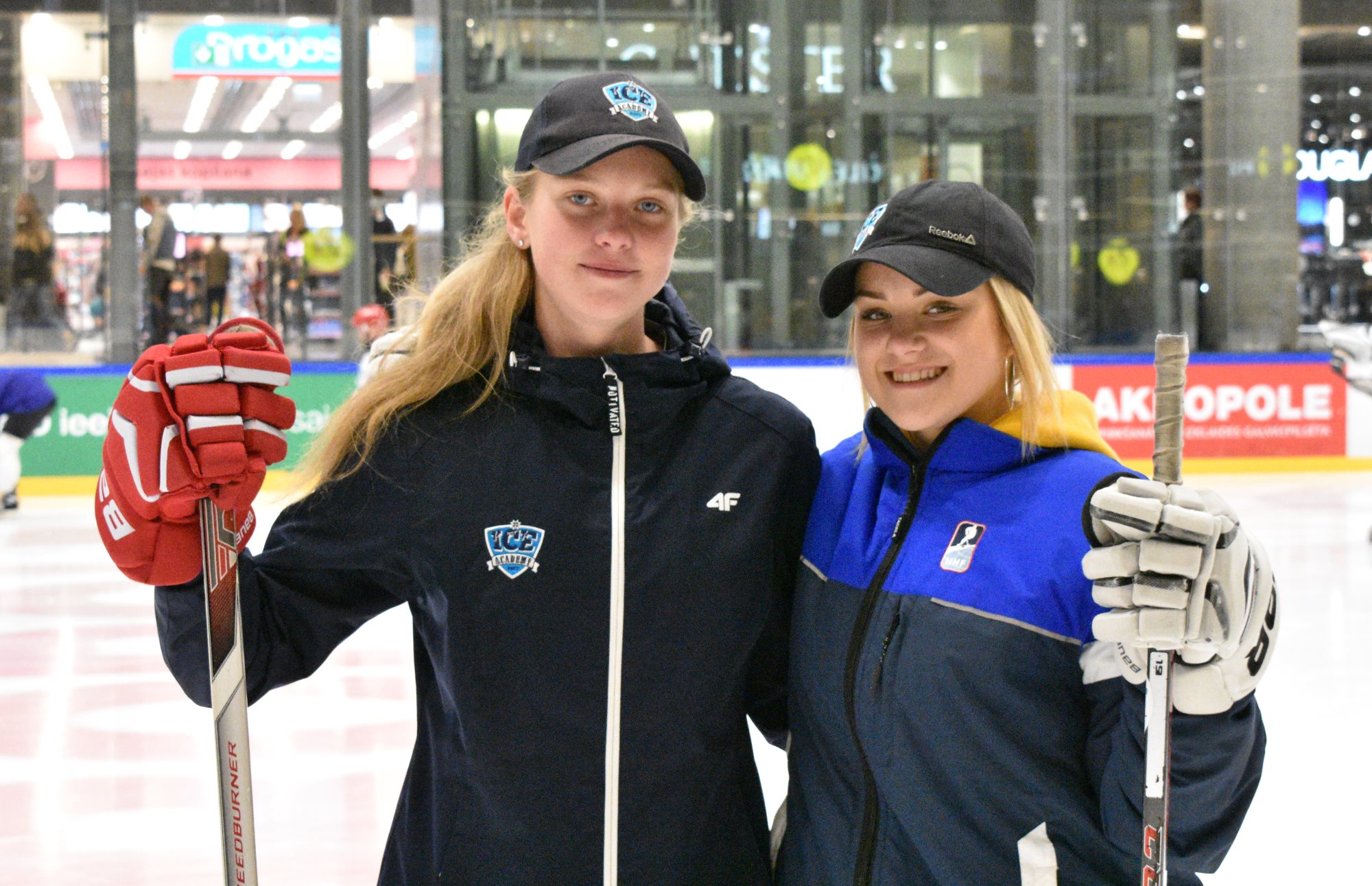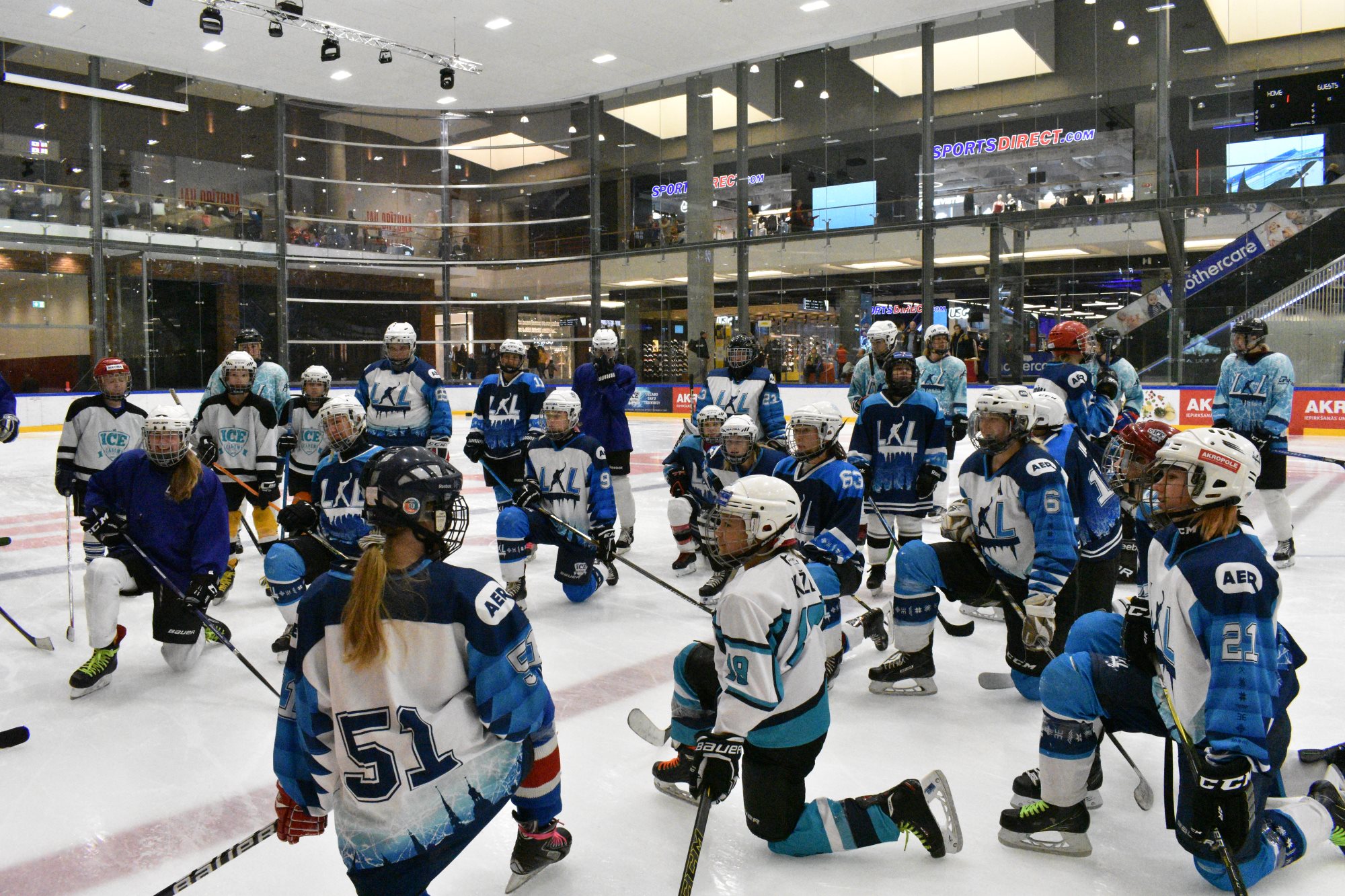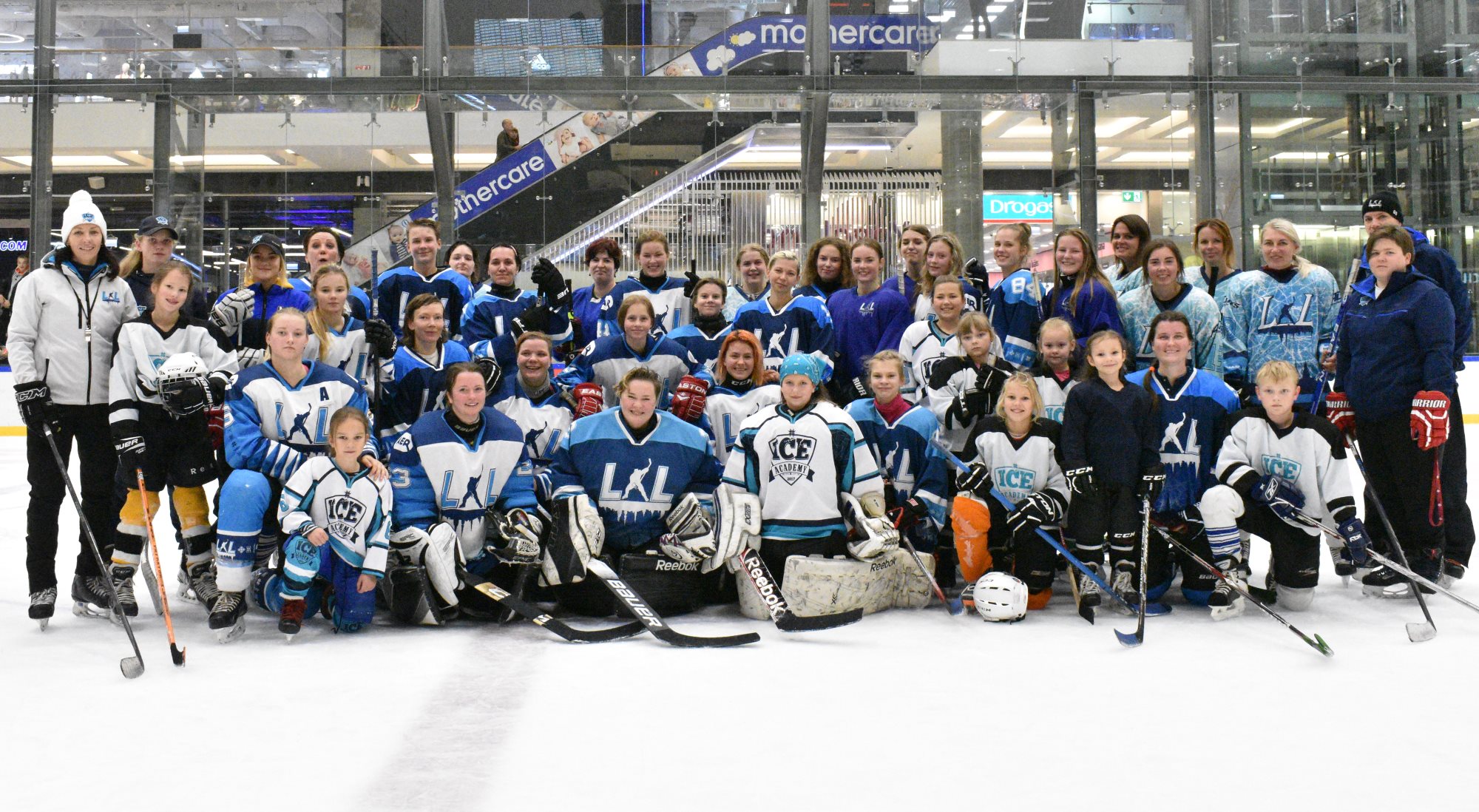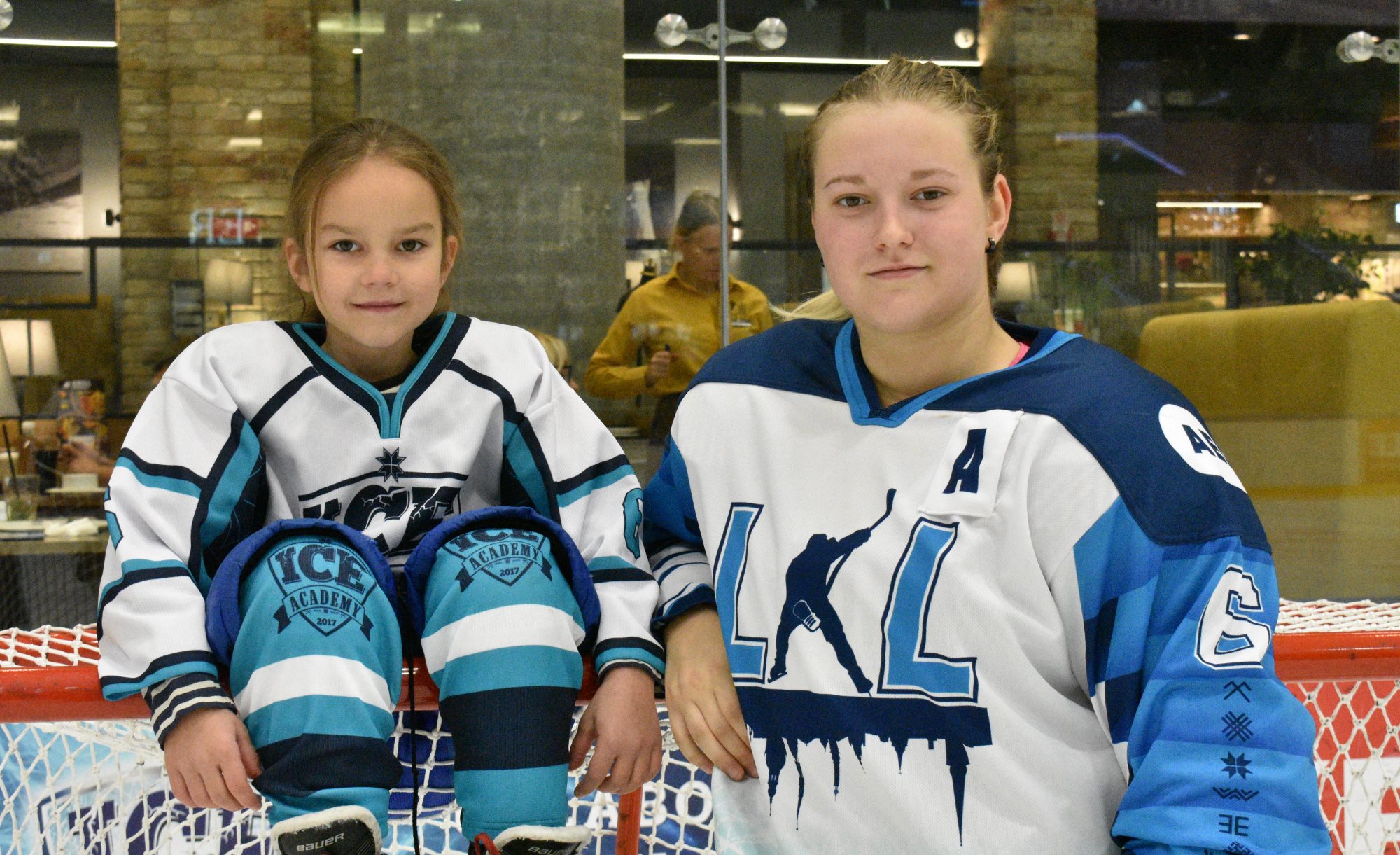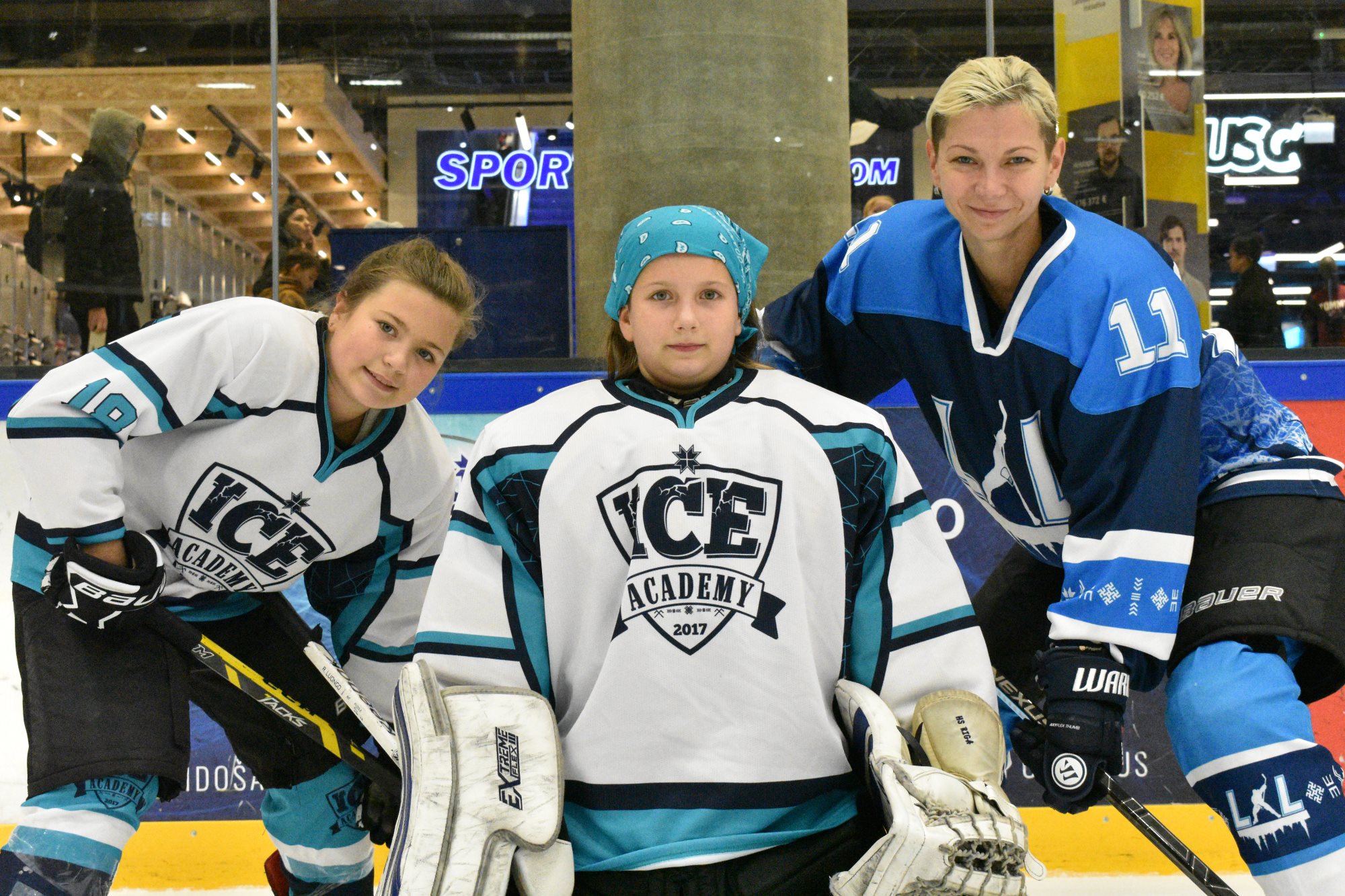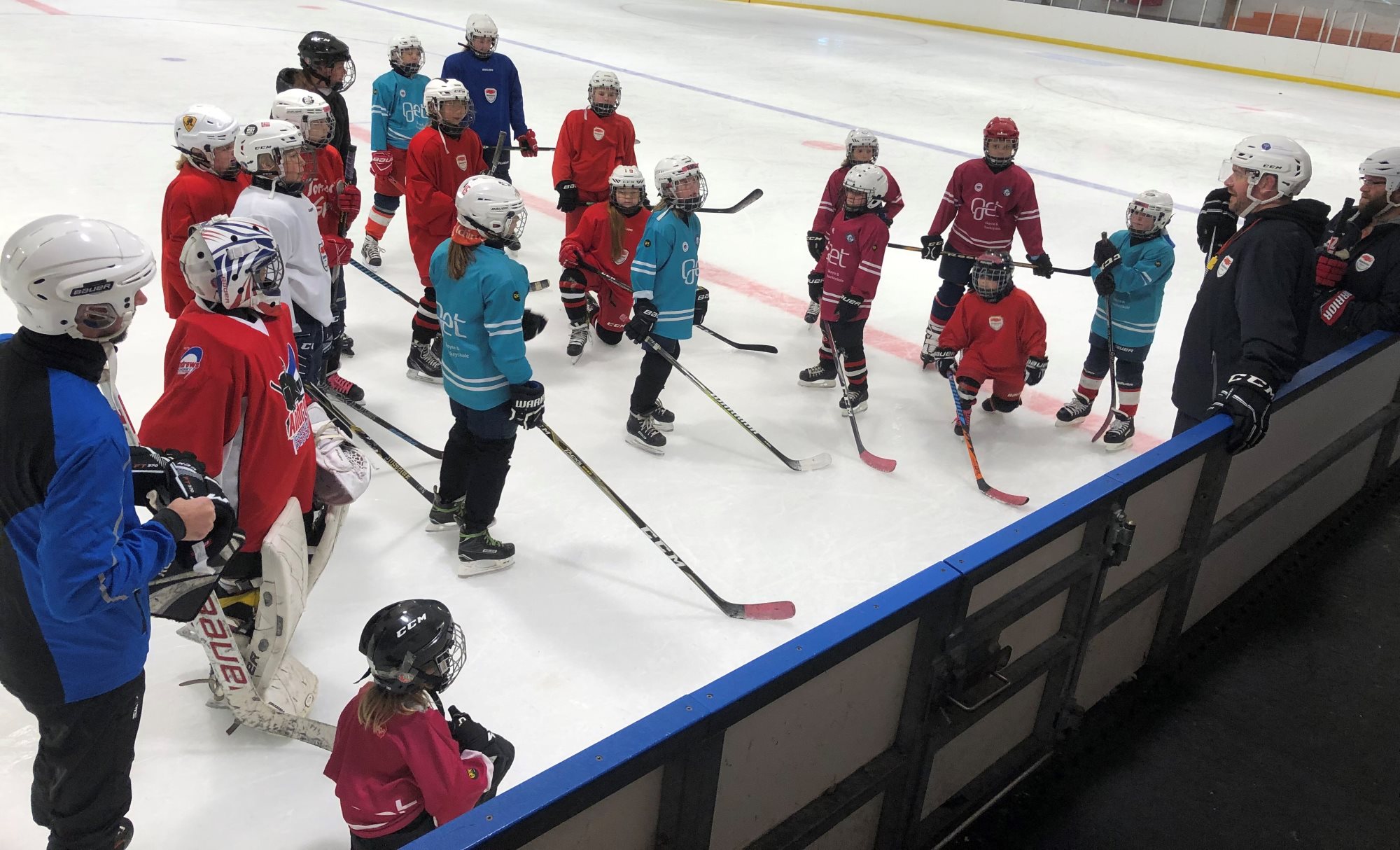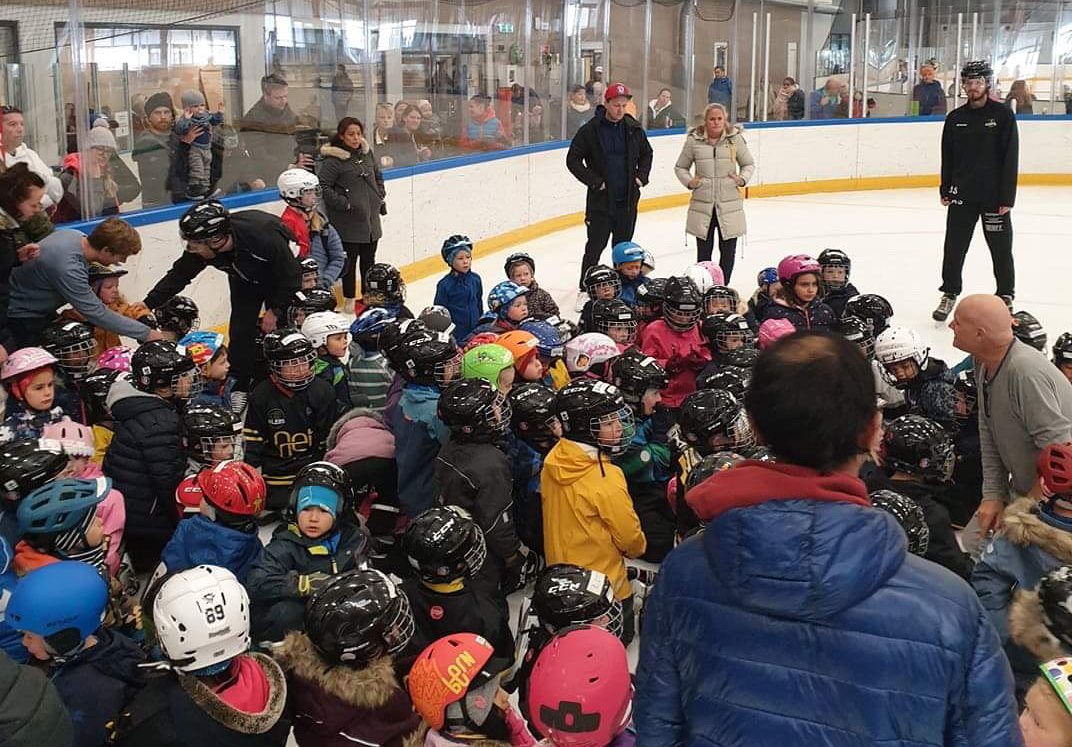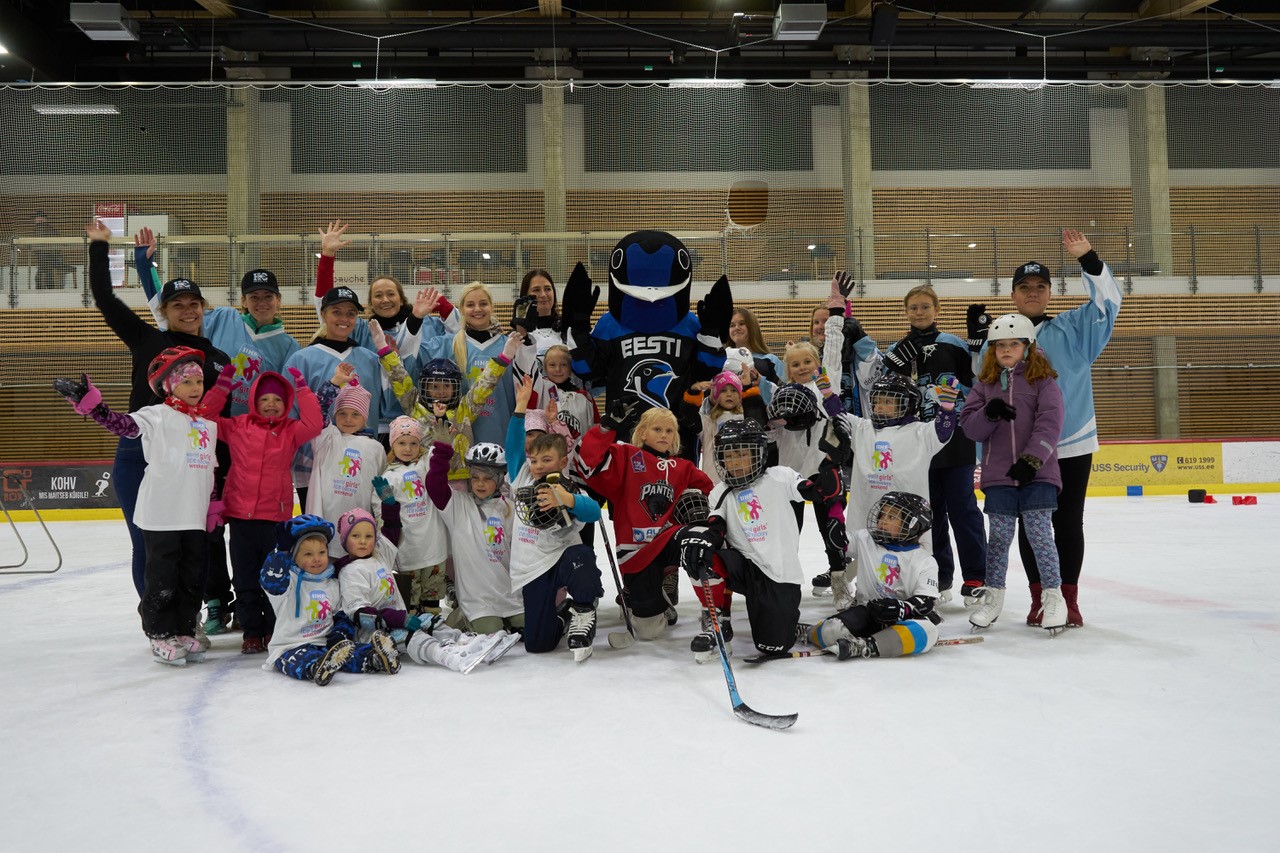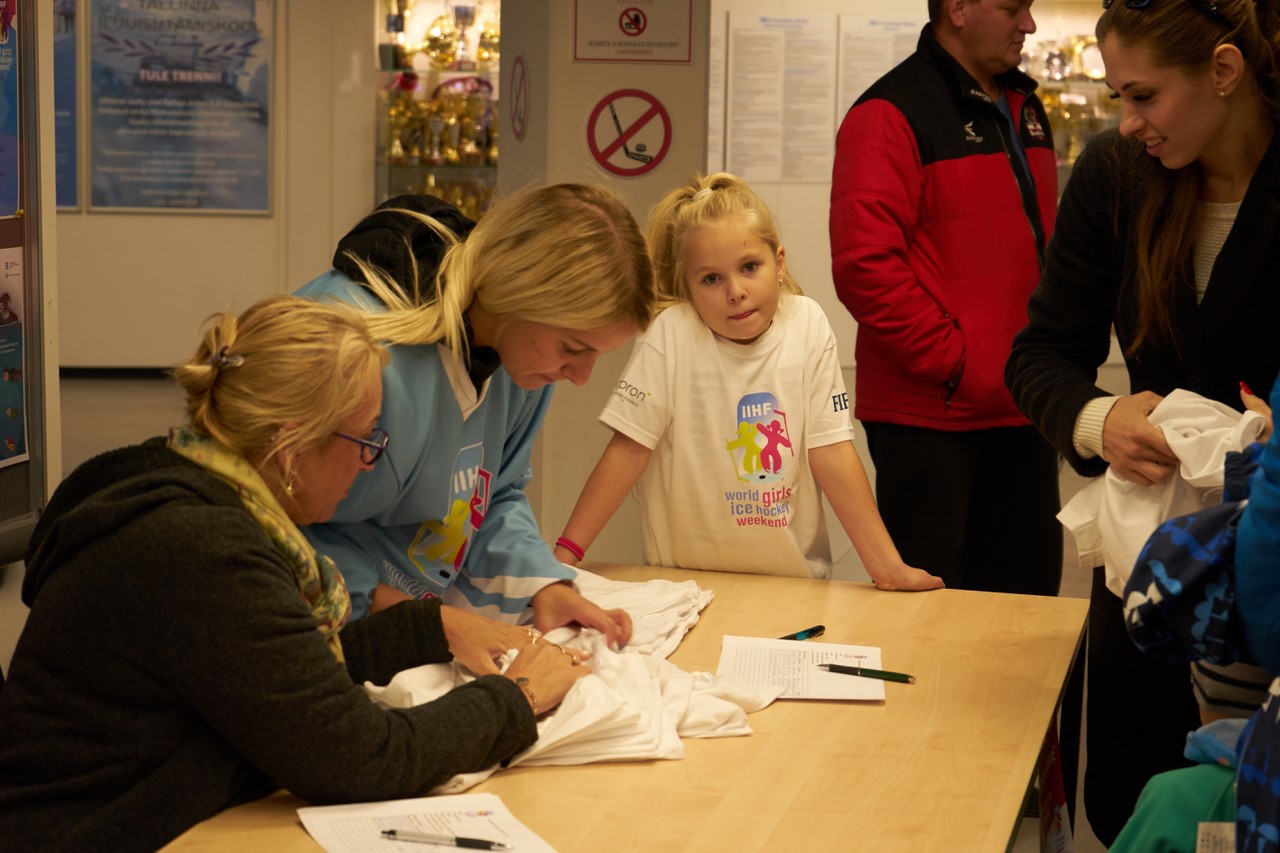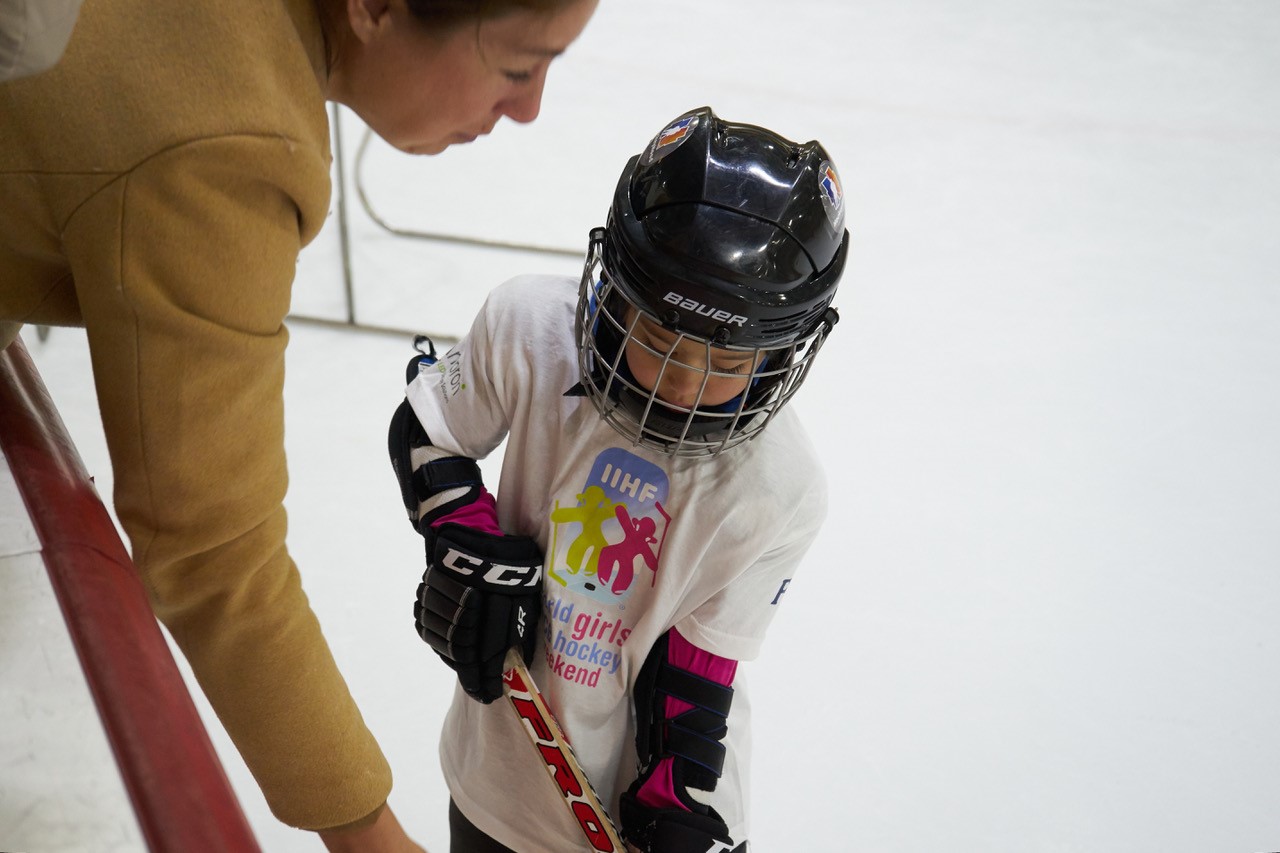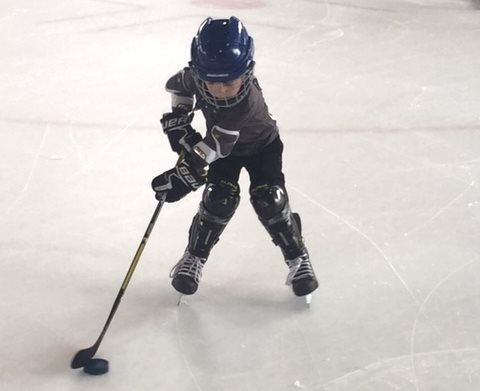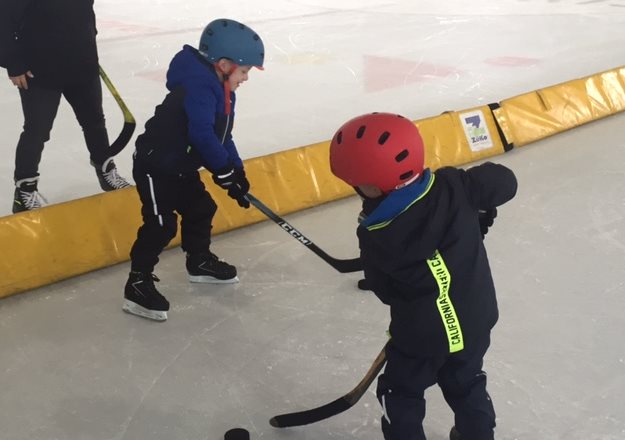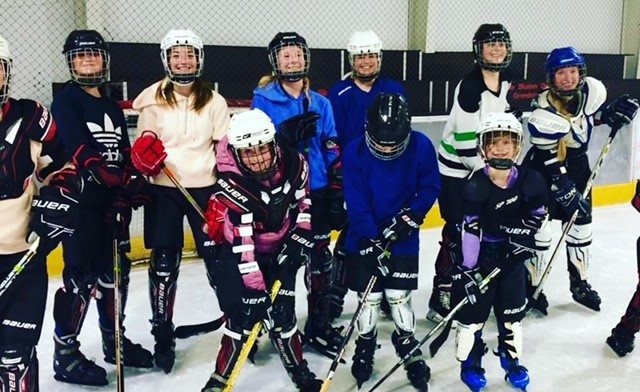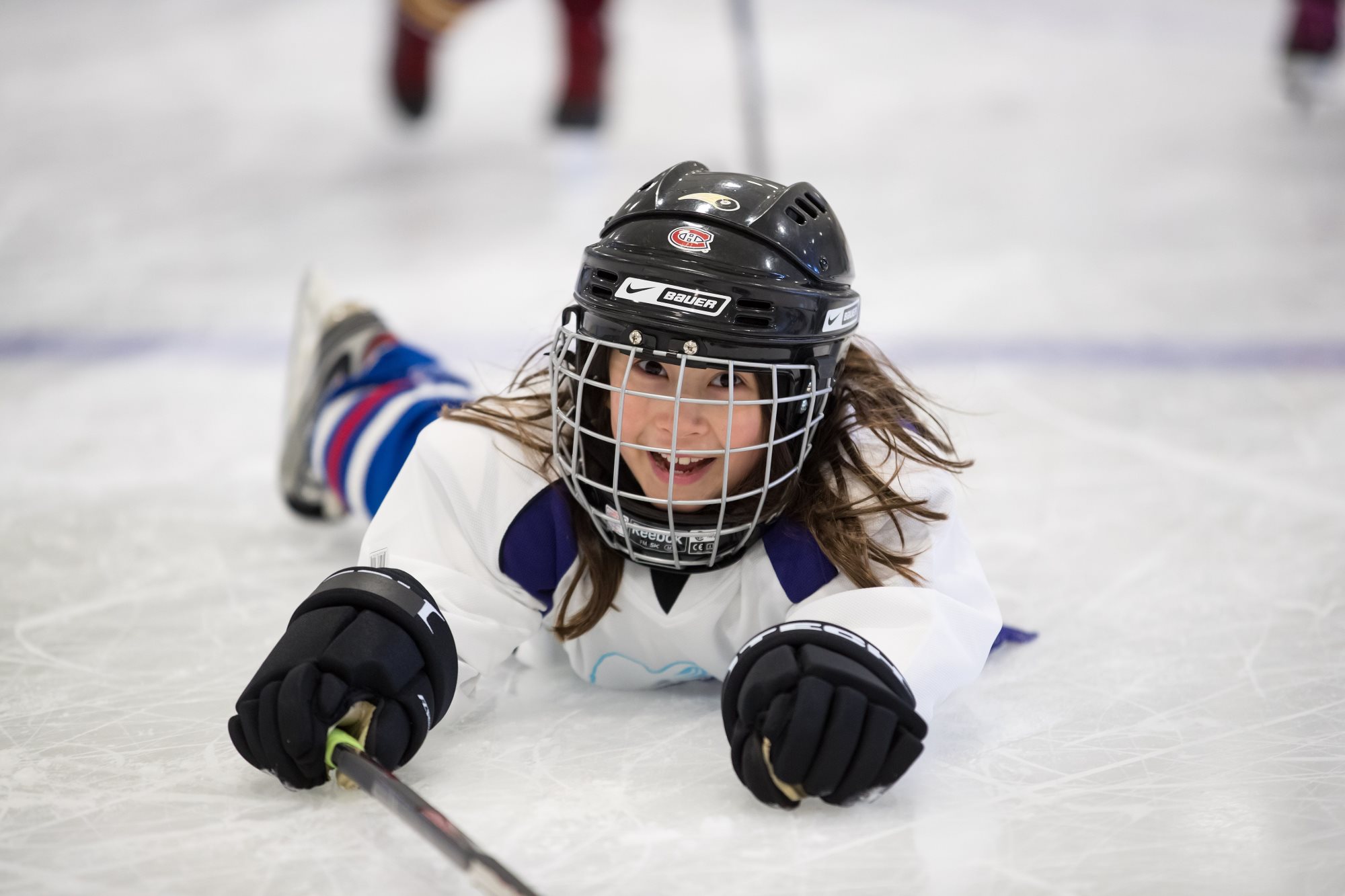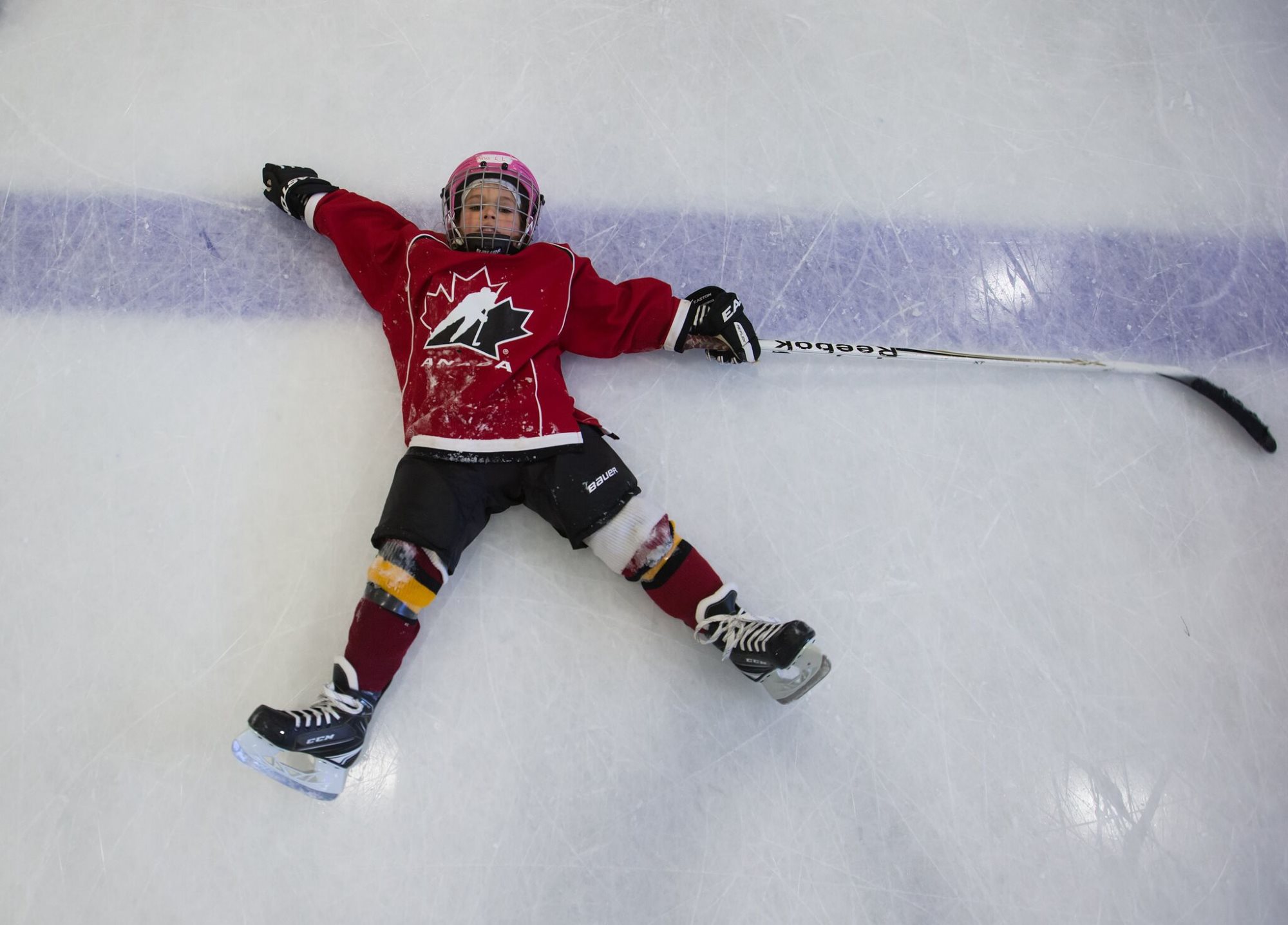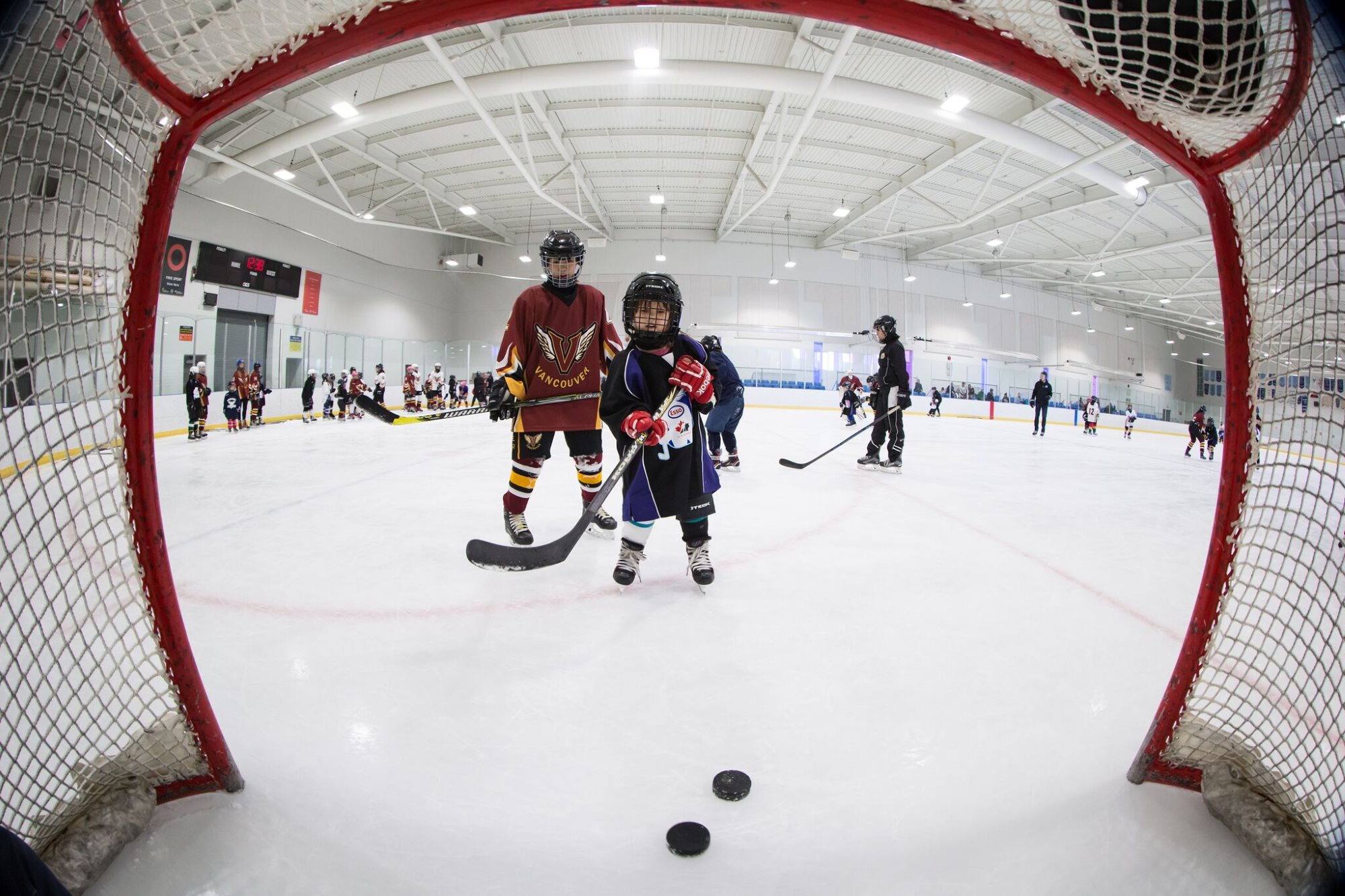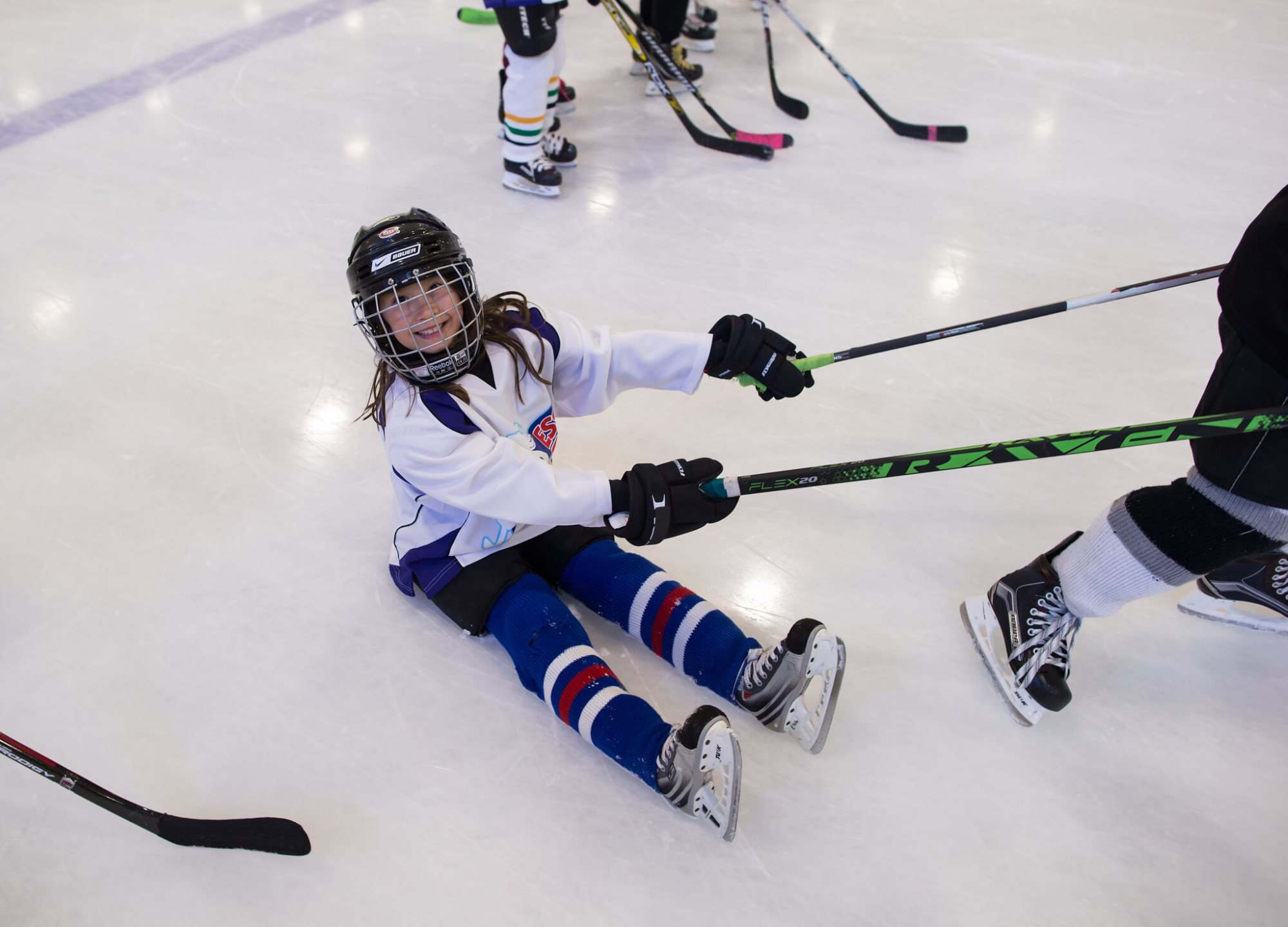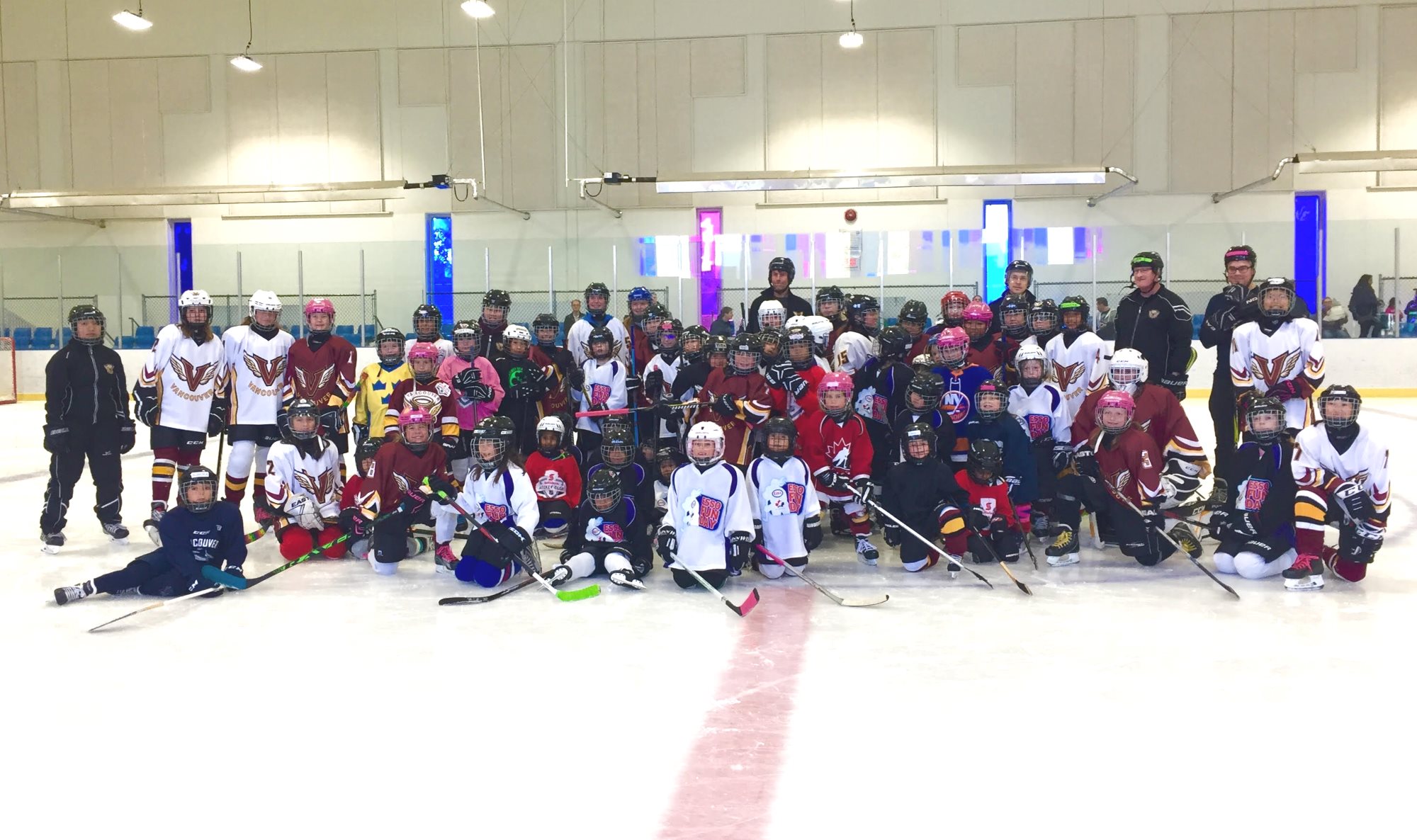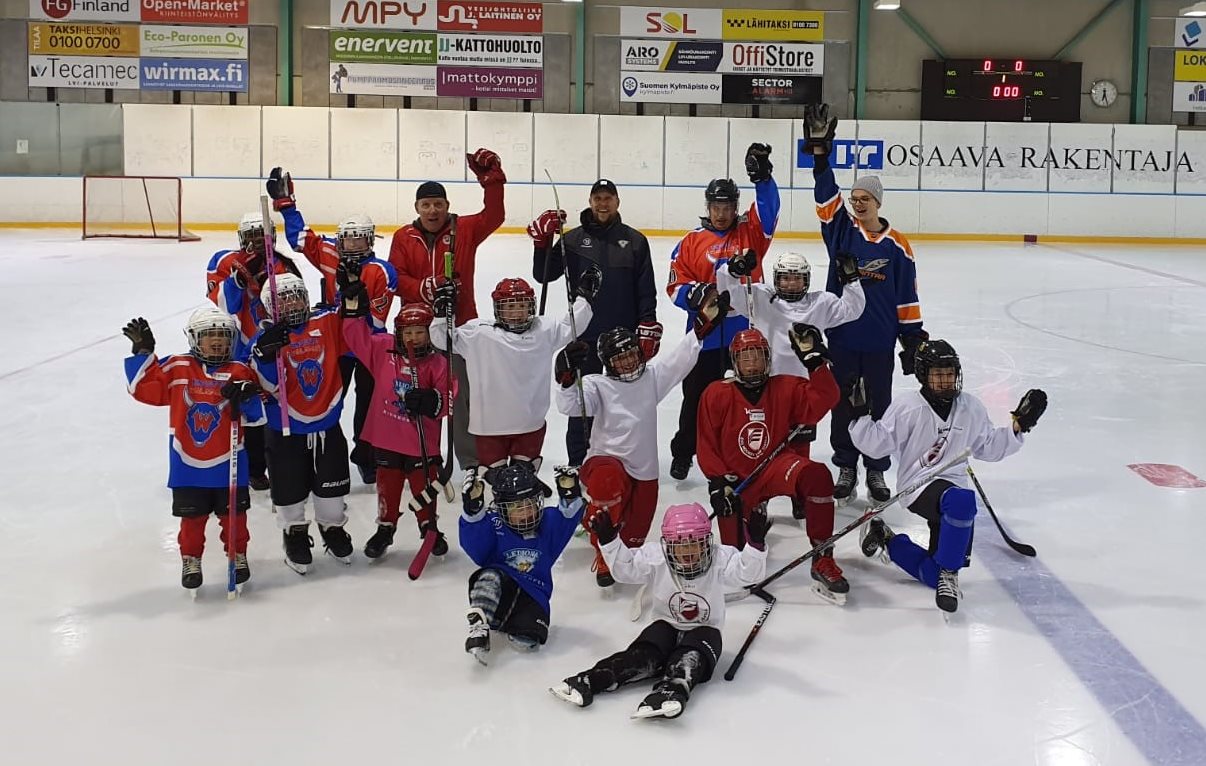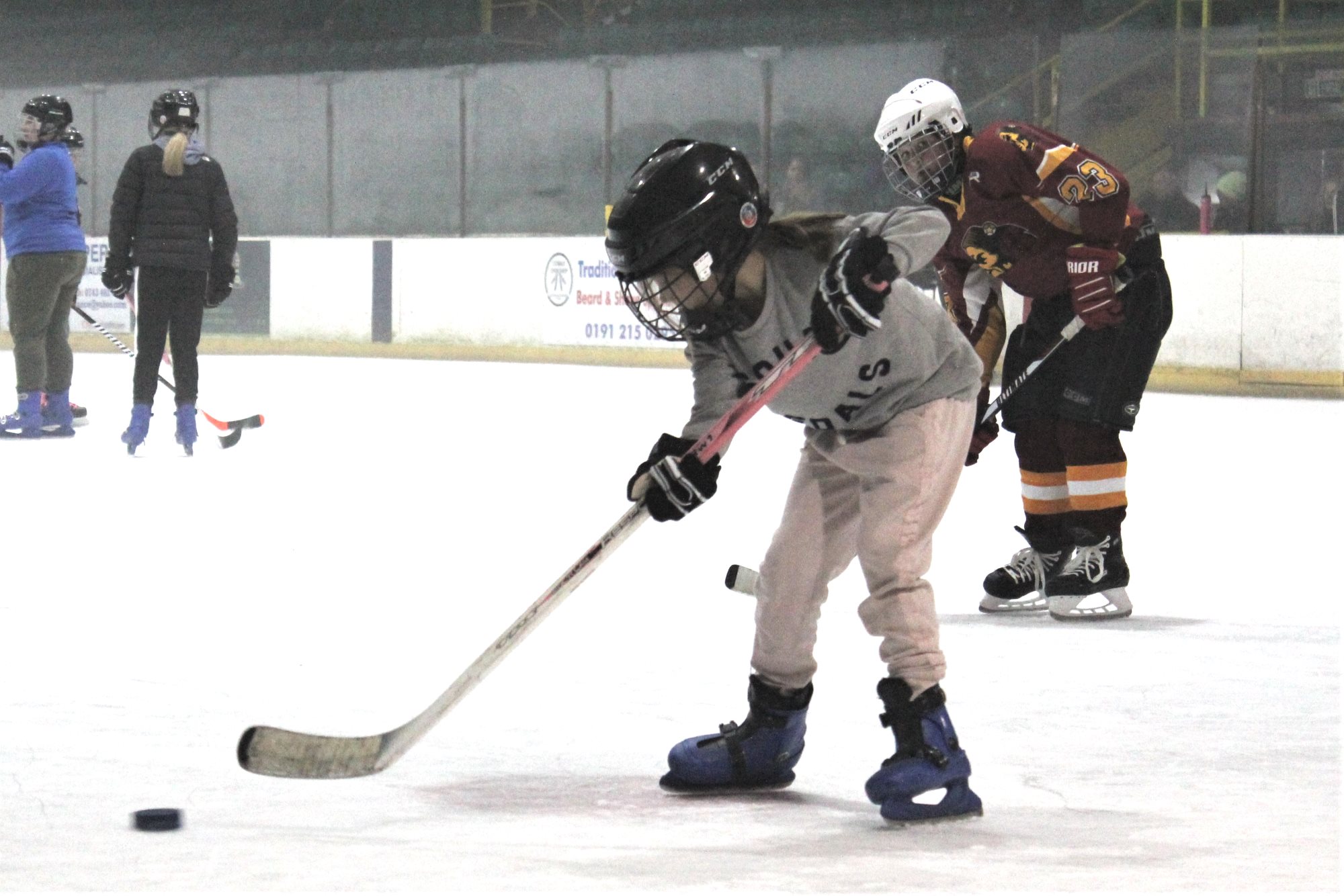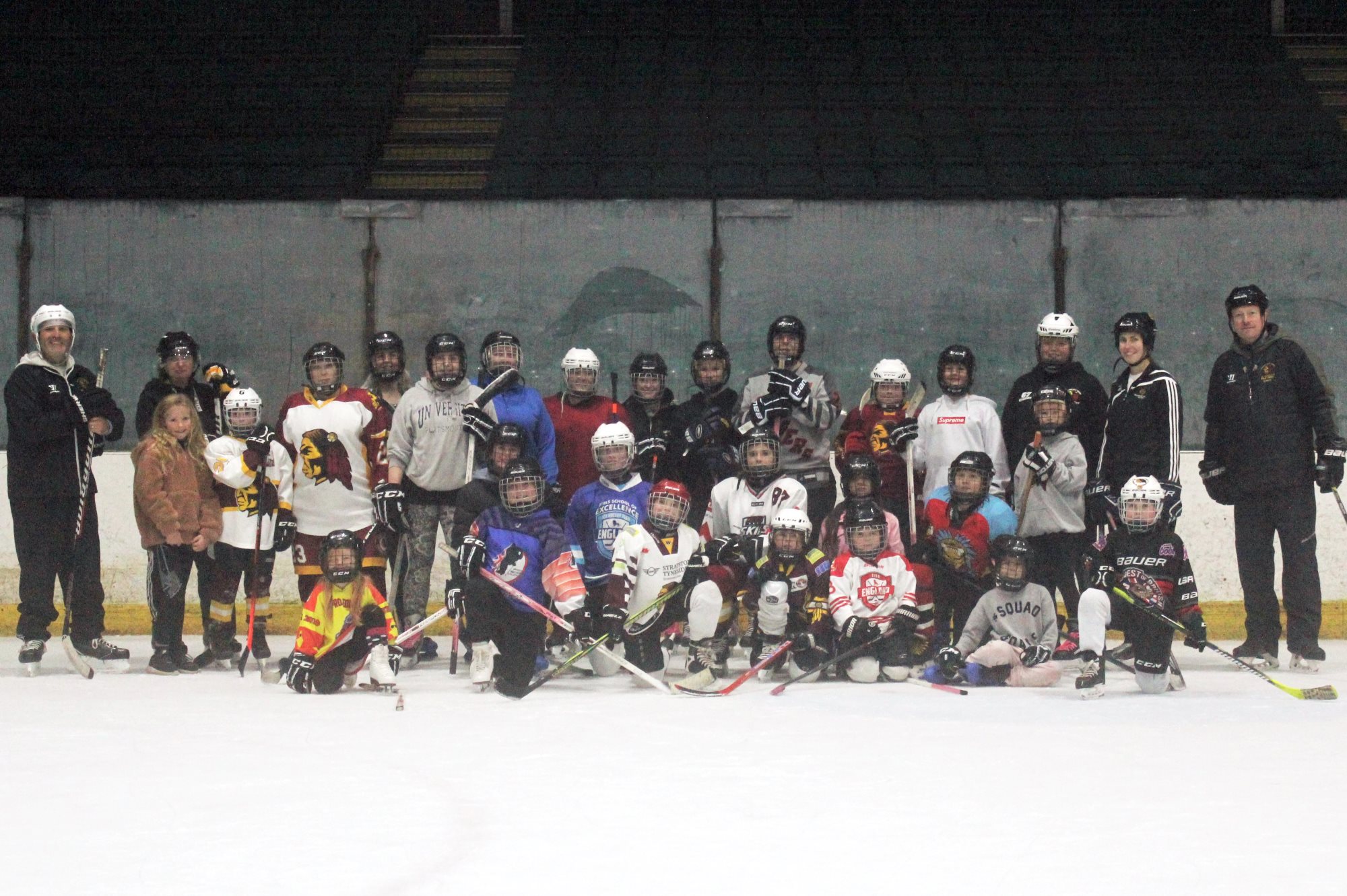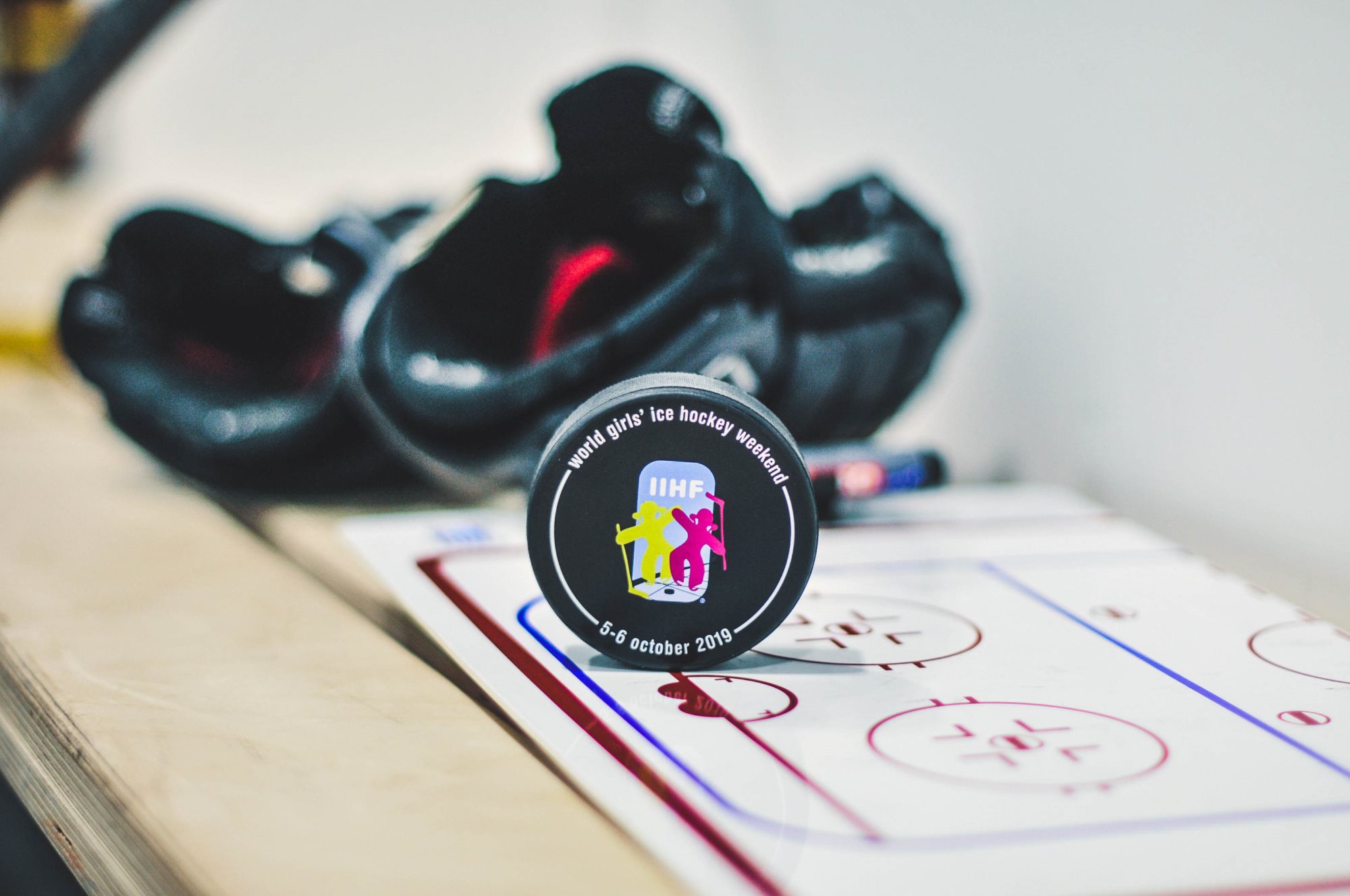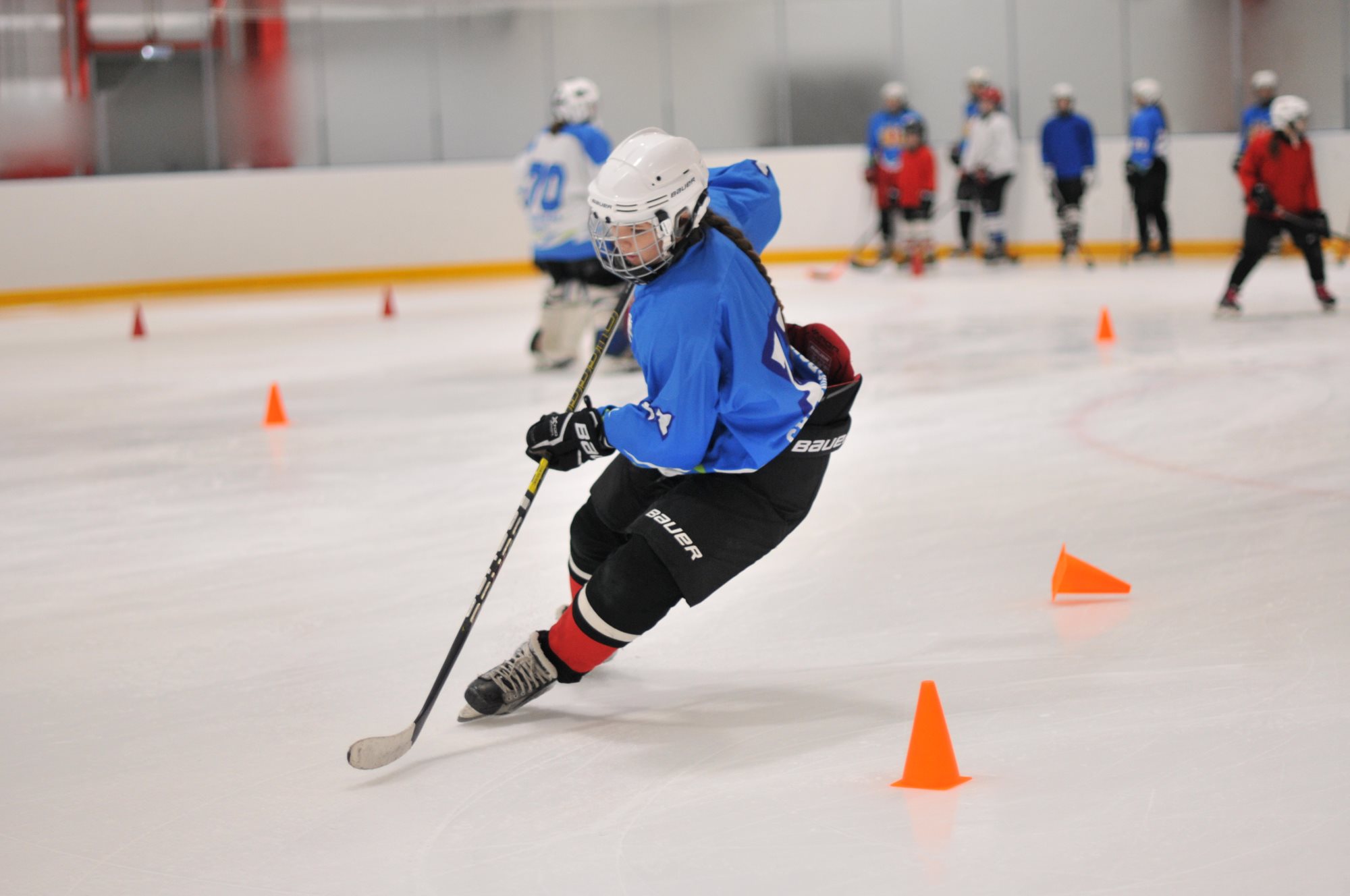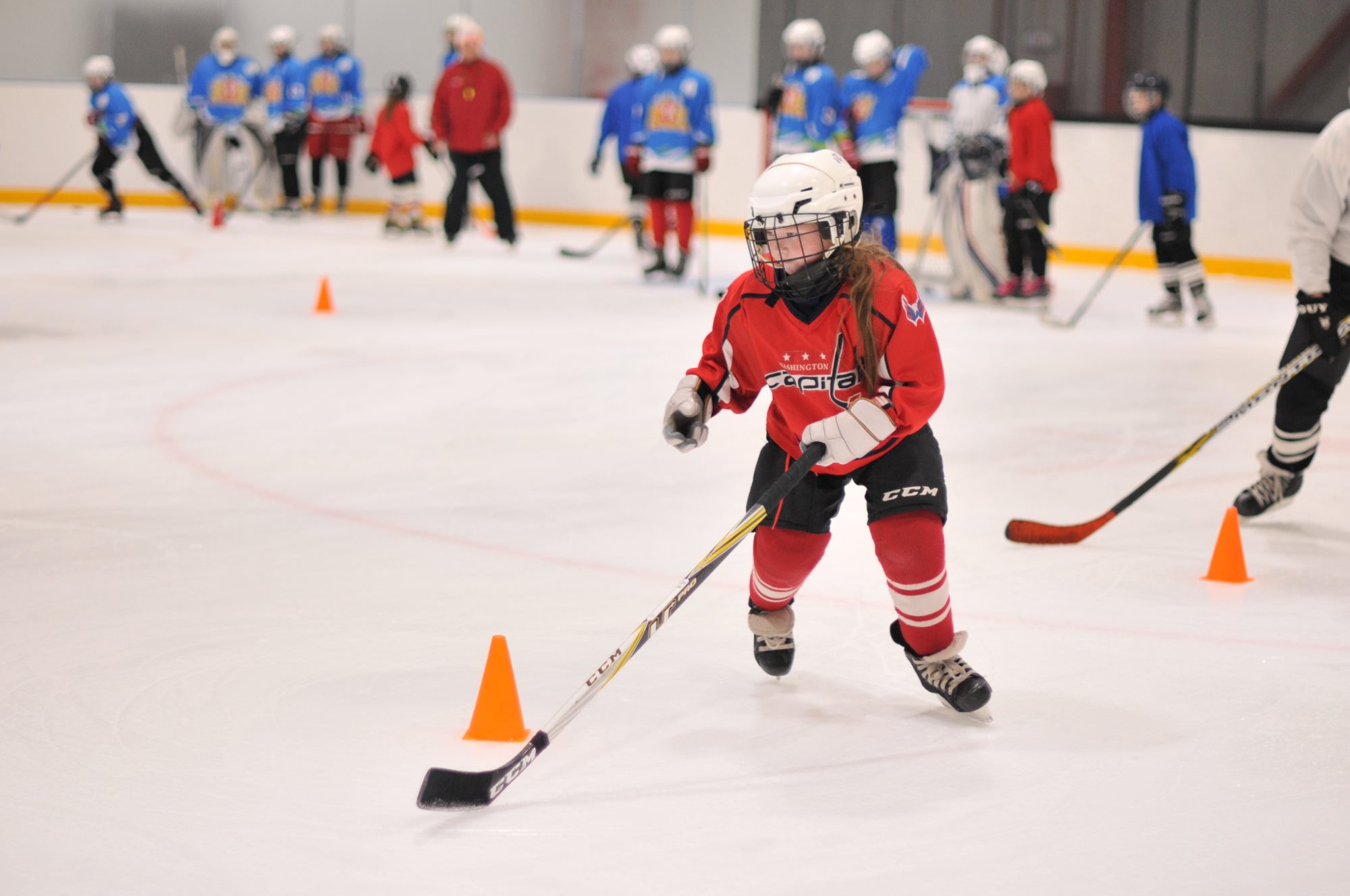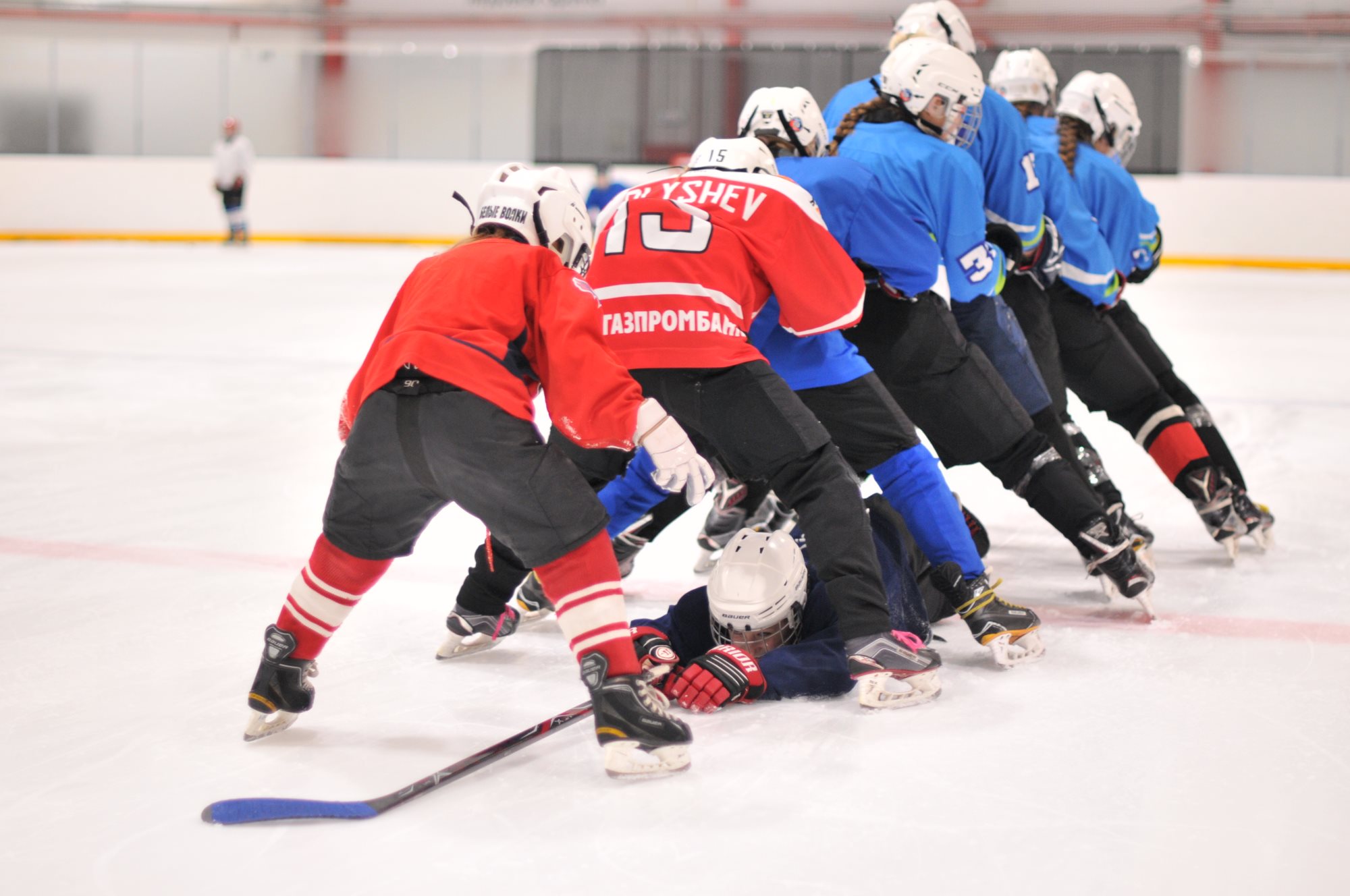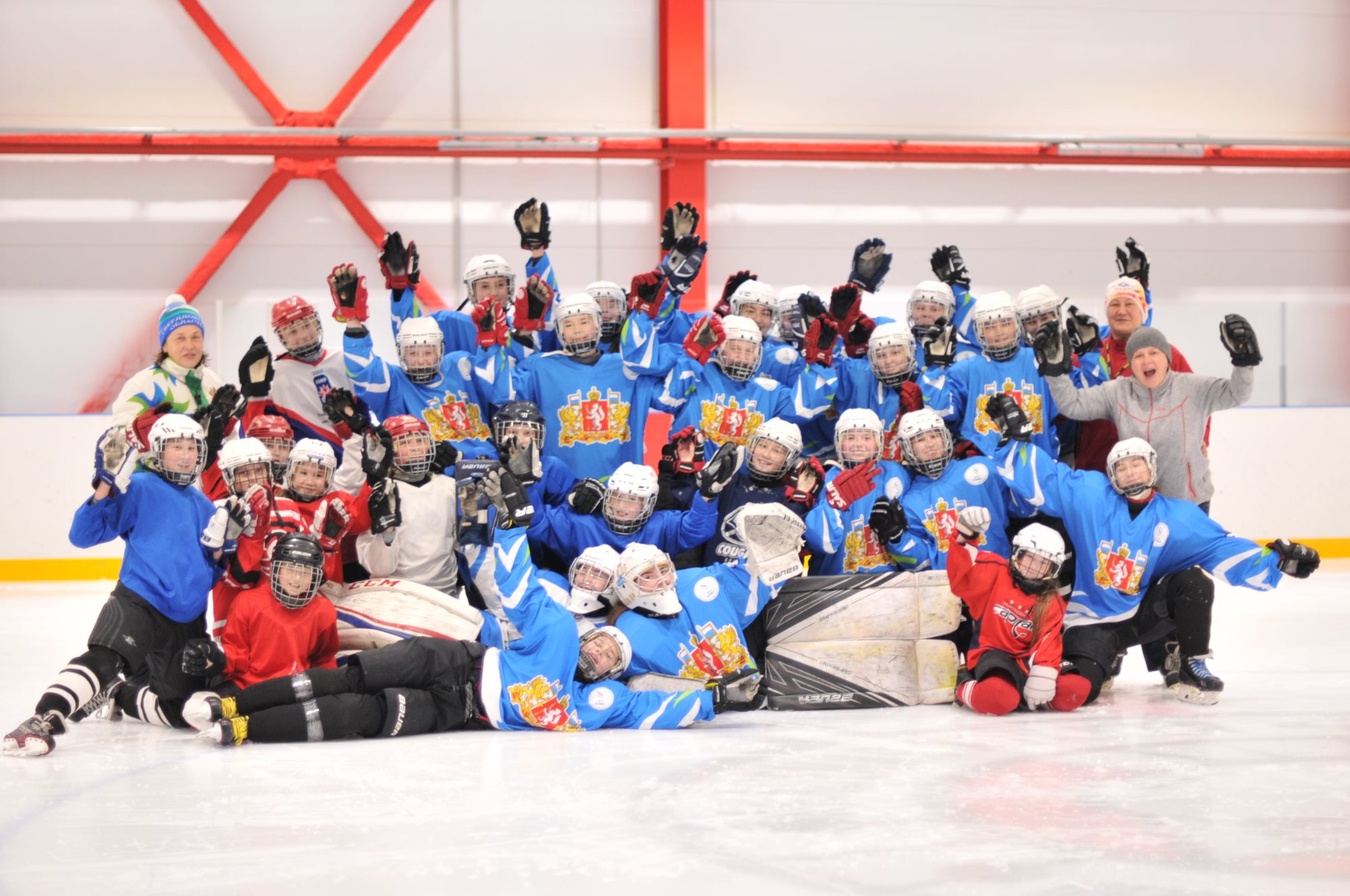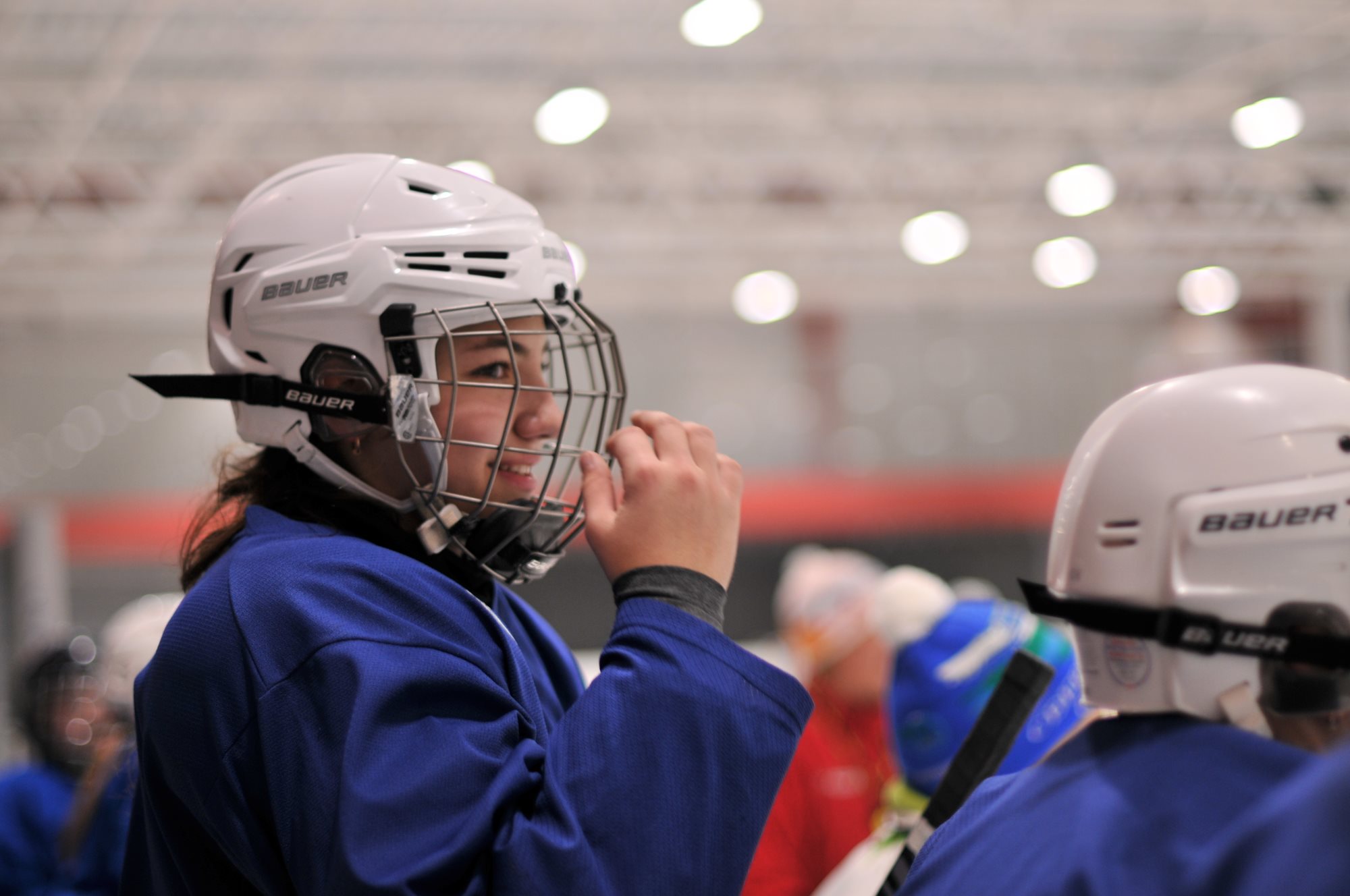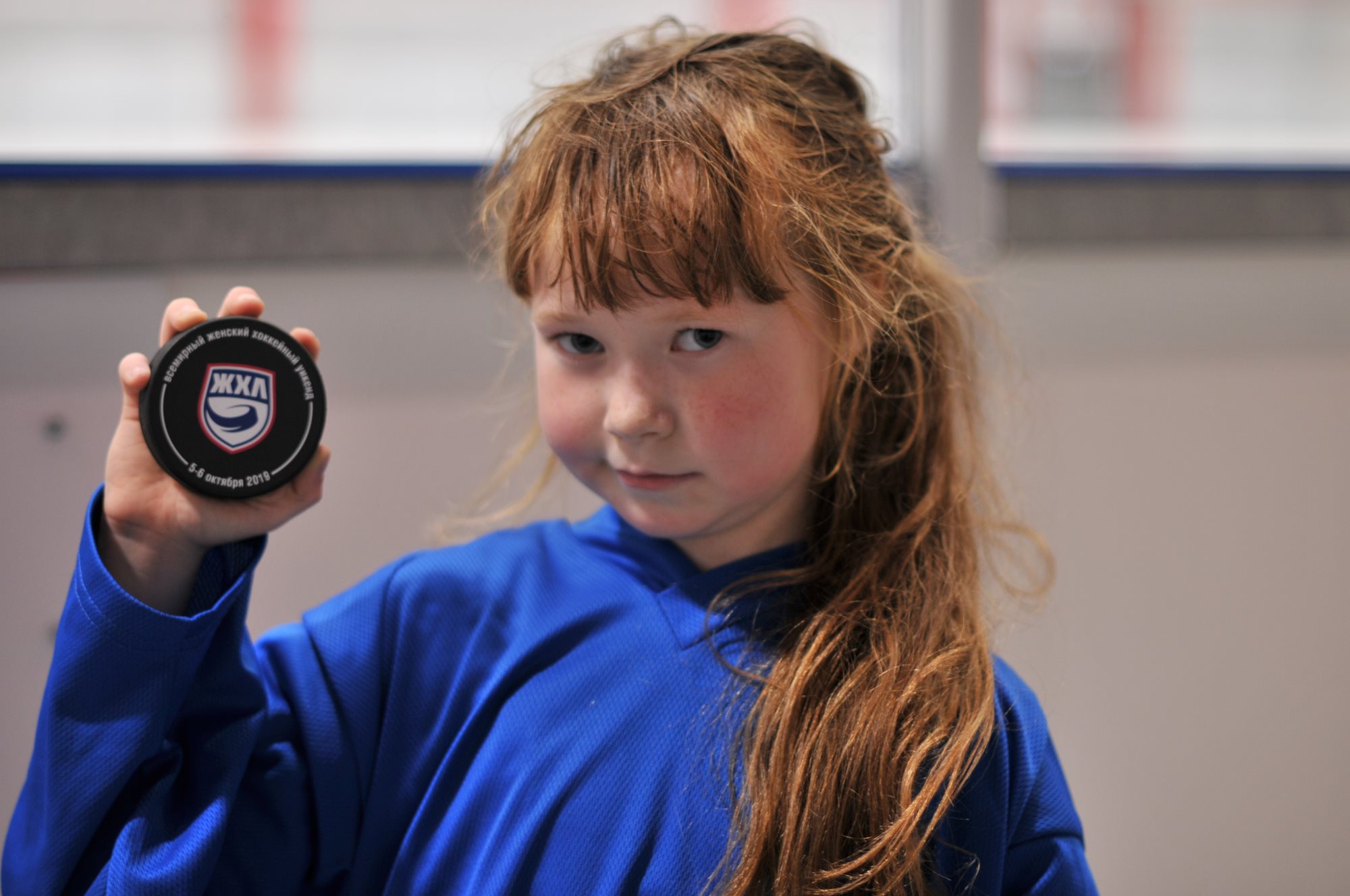Group photo of the World Girls’ Ice Hockey Weekend event in Auckland labelled “Have a Go Day”.
photo: Auckland Ice Hockey Association
When you think of New Zealand sports, you probably think of rugby first. The island nation of 4.8 million will welcome the world’s top women’s rugby teams for Rugby World Cup 2021.
However, Rachel Park, who coaches the New Zealand women’s national hockey team, is striving to build her sport, and World Girls’ Ice Hockey Weekend is a great recruiting tool.
Asked how her event turned out, the Canadian-born Park responded: “It was awesome, actually! We have two rinks in Auckland, and we held it at the Botany arena. About 60 girls showed up, and we had about 15 female volunteers, just to help get everybody organized.”
According to Park, this event was all about developing skills and having fun.
“We basically split the ice into four different zones, and then had the newbies really working on skating and getting comfortable on their skates. And then it kind of went up from there. We did some drill progression and we also had some obstacle courses set up. At the end, we played some scrimmage soccer.”
Park has a busy schedule. The native of Stratford, Ontario is also the director of women’s hockey in Auckland and coaches the local women’s rep team. She honed her skills while playing hockey at the University of Western Ontario from 2002 to 2007.
It’s natural to wonder how the former Western Mustangs captain ended up Down Under.
“I played rugby at Western as well,” Park explained. “I came over here on a rugby tour in 2003 and then knew I wanted to come back for a two-year stint with my work. I work for PwC. And then, I just didn’t get a chance to leave! I really love it here. It’s quite like Canada.”
Her day job has previously taken her everywhere from Atlanta to the Bahamas. But right now, she’s fired up about identifying future prospects for the Kiwi national team, known as the Ice Fernz. New Zealand currently has just 170 registered female players.
Reflecting on the 2019 World Girls’ Ice Hockey Weekend event, Park noted: “There were a couple of real go-getters. One girl, in particular. She plays field hockey, but not ice hockey. However, she has been skating quite a bit. You could just tell that she was 100 per cent all-in and all over the ice. Her mom came and talked to me after the event just to make sure she knew what to do next. I think she’ll definitely be a potential player.”
The Ice Fernz sit 31st overall in the IIHF Women’s World Ranking, behind Hong Kong and ahead of Iceland. They had a promising performance in the 2019 IIHF Ice Hockey Women’s World Championship Division II Group B. Paced by six goals and six assists from Jasmine Horner-Pascoe, New Zealand earned a silver medal, losing just once to Chinese Taipei (3-0).
“This year, Australia actually drops down into our division, and Croatia comes up from the qualifying round,” Park said. “It’s a bit tough to say where we’ll place, but I’m hoping that within the next two years, we’ll go up a division.”
However, Rachel Park, who coaches the New Zealand women’s national hockey team, is striving to build her sport, and World Girls’ Ice Hockey Weekend is a great recruiting tool.
Asked how her event turned out, the Canadian-born Park responded: “It was awesome, actually! We have two rinks in Auckland, and we held it at the Botany arena. About 60 girls showed up, and we had about 15 female volunteers, just to help get everybody organized.”
According to Park, this event was all about developing skills and having fun.
“We basically split the ice into four different zones, and then had the newbies really working on skating and getting comfortable on their skates. And then it kind of went up from there. We did some drill progression and we also had some obstacle courses set up. At the end, we played some scrimmage soccer.”
Park has a busy schedule. The native of Stratford, Ontario is also the director of women’s hockey in Auckland and coaches the local women’s rep team. She honed her skills while playing hockey at the University of Western Ontario from 2002 to 2007.
It’s natural to wonder how the former Western Mustangs captain ended up Down Under.
“I played rugby at Western as well,” Park explained. “I came over here on a rugby tour in 2003 and then knew I wanted to come back for a two-year stint with my work. I work for PwC. And then, I just didn’t get a chance to leave! I really love it here. It’s quite like Canada.”
Her day job has previously taken her everywhere from Atlanta to the Bahamas. But right now, she’s fired up about identifying future prospects for the Kiwi national team, known as the Ice Fernz. New Zealand currently has just 170 registered female players.
Reflecting on the 2019 World Girls’ Ice Hockey Weekend event, Park noted: “There were a couple of real go-getters. One girl, in particular. She plays field hockey, but not ice hockey. However, she has been skating quite a bit. You could just tell that she was 100 per cent all-in and all over the ice. Her mom came and talked to me after the event just to make sure she knew what to do next. I think she’ll definitely be a potential player.”
The Ice Fernz sit 31st overall in the IIHF Women’s World Ranking, behind Hong Kong and ahead of Iceland. They had a promising performance in the 2019 IIHF Ice Hockey Women’s World Championship Division II Group B. Paced by six goals and six assists from Jasmine Horner-Pascoe, New Zealand earned a silver medal, losing just once to Chinese Taipei (3-0).
“This year, Australia actually drops down into our division, and Croatia comes up from the qualifying round,” Park said. “It’s a bit tough to say where we’ll place, but I’m hoping that within the next two years, we’ll go up a division.”
Rachel Park behind the New Zealand bench during the 2019 IIHF Ice Hockey Women’s World Championship Division II Group B.
photo: Razvan Pasarica / Sport Pictures
That would certainly provide further encouragement for the youngsters who came out for WGIHW. The Auckland event got some media coverage from the Australia-based Puck Yeah Podcast.
Women’s sports are, relatively speaking, well-supported in New Zealand. Last year, a new collective bargaining agreement guaranteed financial parity between the senior women’s and men’s national football teams while representing their country. The Sport NZ Women + Girls Summit, taking place on Monday in Wellington, has attracted prominent speakers like Dr. Nicole M. LaVoi, the director of the Tucker Center for Research on Girls and Women in Sport in Minneapolis, Minnesota.
“Ice hockey is still very much in its developmental stage,” Park acknowledged. “There are very few ice rinks, with the climate being what it is. They’re expensive to run, obviously. But definitely there’s the support for women’s sports overall, and people do watch. I went out to a women’s rugby game a month ago, and the stands weren’t as full as for the men, but it was a good show, it was intense, and there was still quite a crowd. Really cool to see.”
American stars Hilary Knight, Hannah Brandt, and Haley Skarupa visited Australia back in July to run a girls’ hockey camp. Park said the welcome mat is out for any Team Canada stars who’d like to bring their skills and experience to New Zealand.
“There are some people here who are really in love with the sport. I think it’s a sport that all New Zealanders, once they’ve been introduced to it, they really do grasp it. The dynamic’s quite like rugby. So I’d love to see some of those Canadians come, and if they want to get on the ice with us, they’re absolutely more than welcome!”
She’d also like to see more young Kiwis playing NCAA women’s hockey on scholarships. Goalie Grace Harrison is a good recent example. The 22-year-old Auckland native played four years at St. Lawrence University, a college in New York State, and posted a 2.18 GAA and 92.2 save percentage in 23 games as a senior. Harrison carried that momentum into April’s Division II Group B tournament, where she earned a 1.73 GAA and 93.8 save percentage in three starts.
The World Girls’ Ice Hockey Weekend has the power and potential to inspire other young women to achieve their dreams on a global stage as well.
Women’s sports are, relatively speaking, well-supported in New Zealand. Last year, a new collective bargaining agreement guaranteed financial parity between the senior women’s and men’s national football teams while representing their country. The Sport NZ Women + Girls Summit, taking place on Monday in Wellington, has attracted prominent speakers like Dr. Nicole M. LaVoi, the director of the Tucker Center for Research on Girls and Women in Sport in Minneapolis, Minnesota.
“Ice hockey is still very much in its developmental stage,” Park acknowledged. “There are very few ice rinks, with the climate being what it is. They’re expensive to run, obviously. But definitely there’s the support for women’s sports overall, and people do watch. I went out to a women’s rugby game a month ago, and the stands weren’t as full as for the men, but it was a good show, it was intense, and there was still quite a crowd. Really cool to see.”
American stars Hilary Knight, Hannah Brandt, and Haley Skarupa visited Australia back in July to run a girls’ hockey camp. Park said the welcome mat is out for any Team Canada stars who’d like to bring their skills and experience to New Zealand.
“There are some people here who are really in love with the sport. I think it’s a sport that all New Zealanders, once they’ve been introduced to it, they really do grasp it. The dynamic’s quite like rugby. So I’d love to see some of those Canadians come, and if they want to get on the ice with us, they’re absolutely more than welcome!”
She’d also like to see more young Kiwis playing NCAA women’s hockey on scholarships. Goalie Grace Harrison is a good recent example. The 22-year-old Auckland native played four years at St. Lawrence University, a college in New York State, and posted a 2.18 GAA and 92.2 save percentage in 23 games as a senior. Harrison carried that momentum into April’s Division II Group B tournament, where she earned a 1.73 GAA and 93.8 save percentage in three starts.
The World Girls’ Ice Hockey Weekend has the power and potential to inspire other young women to achieve their dreams on a global stage as well.
2019 World Girls' Ice Hockey Weekend
OF
